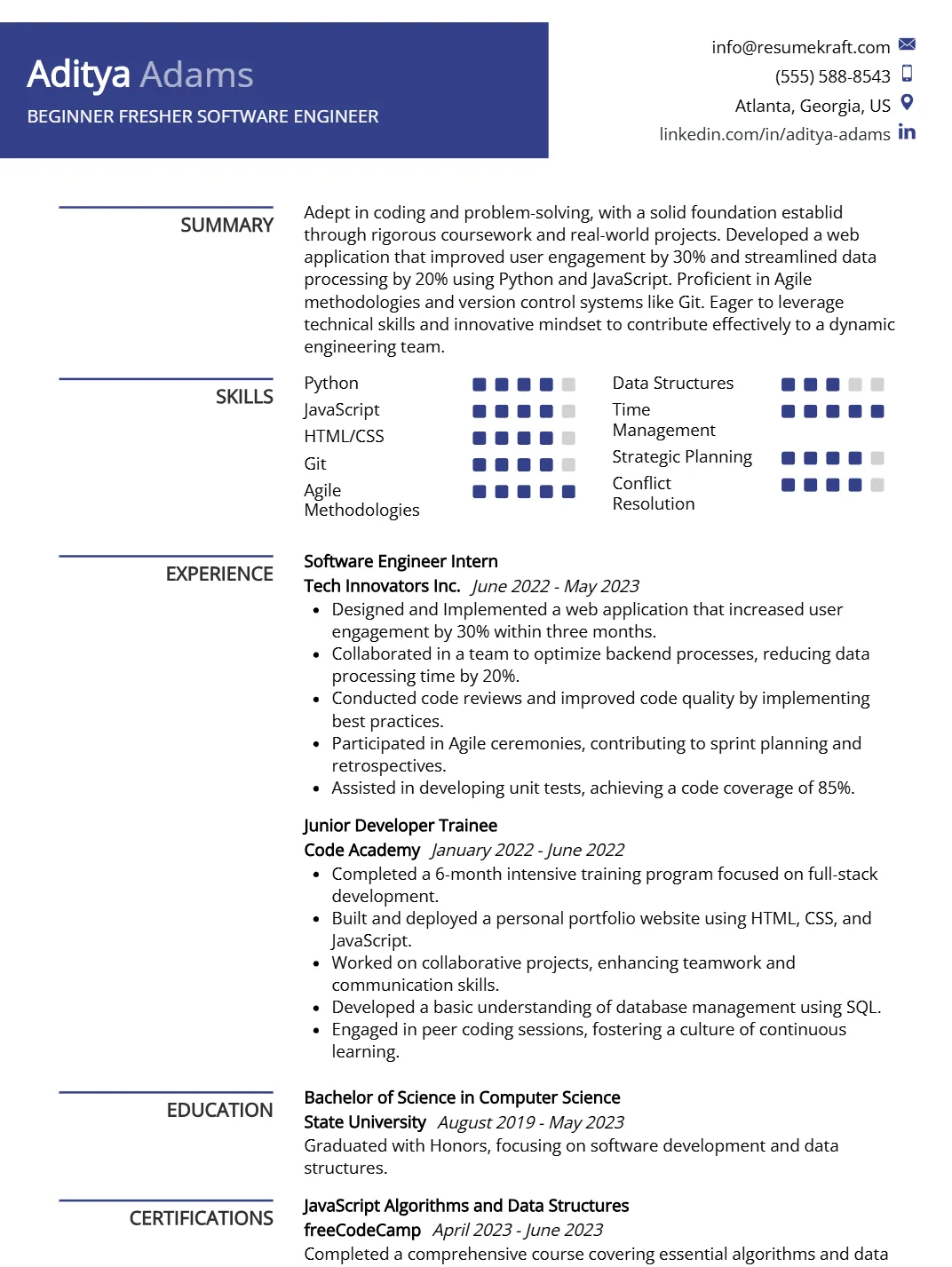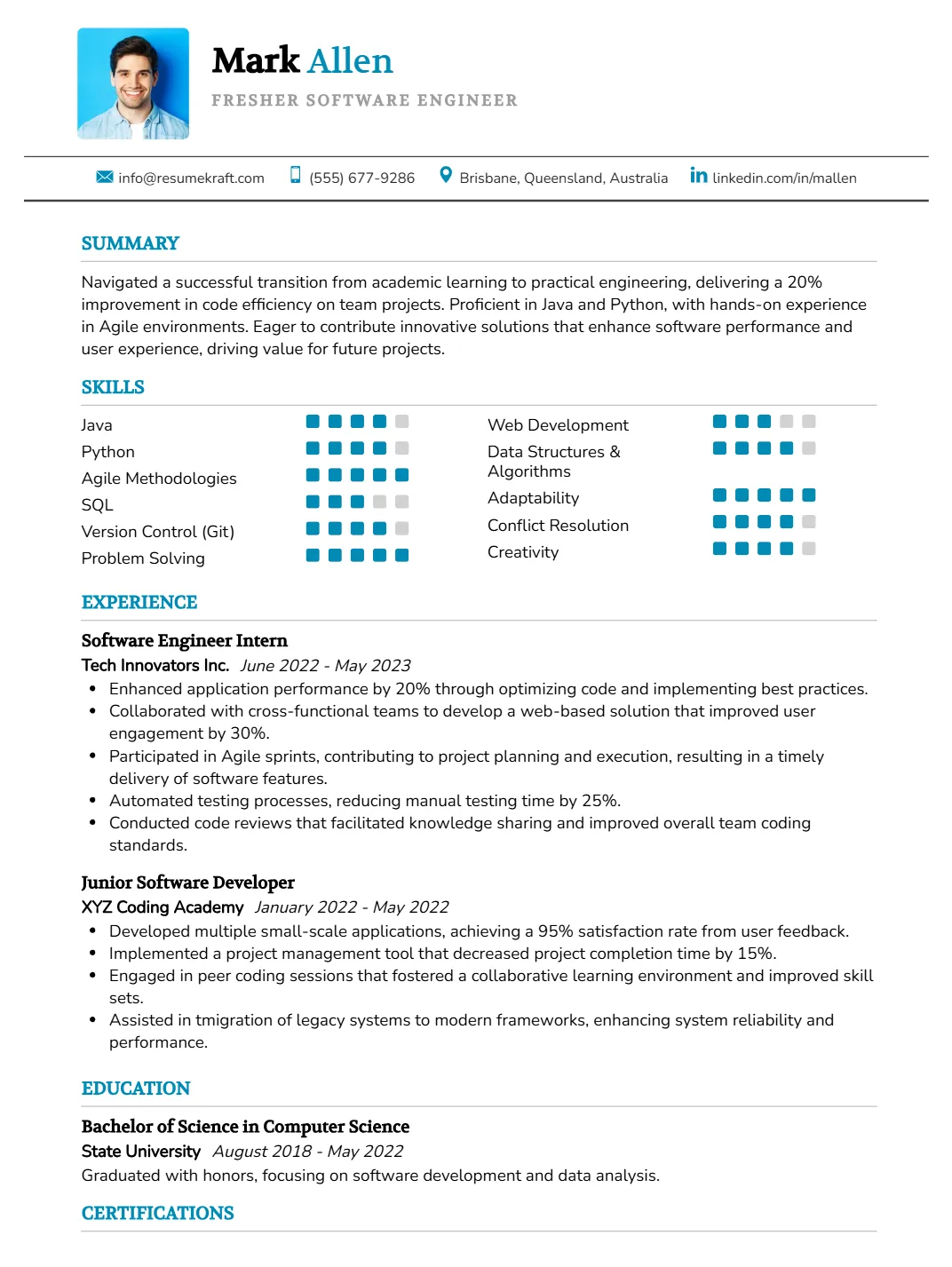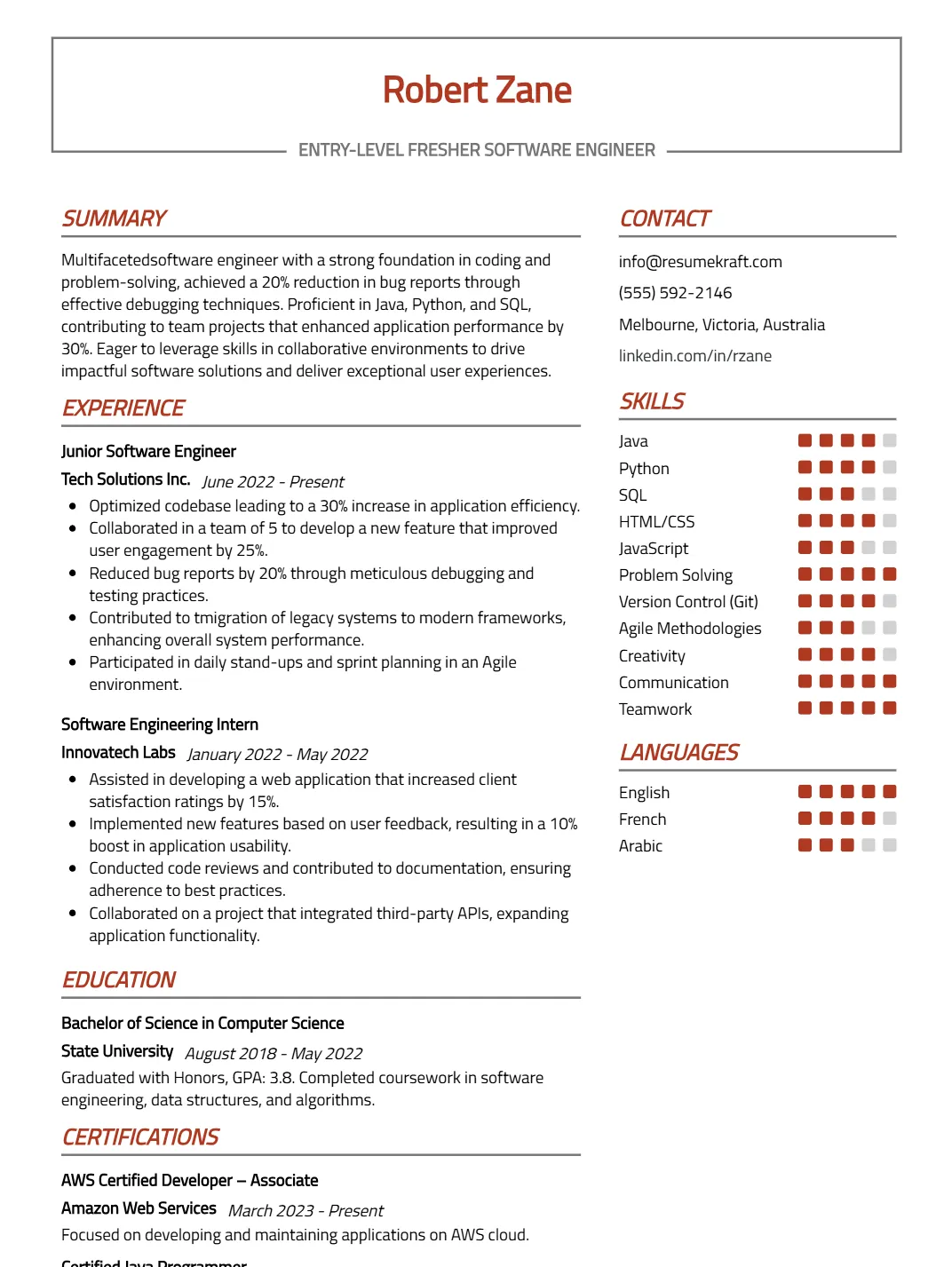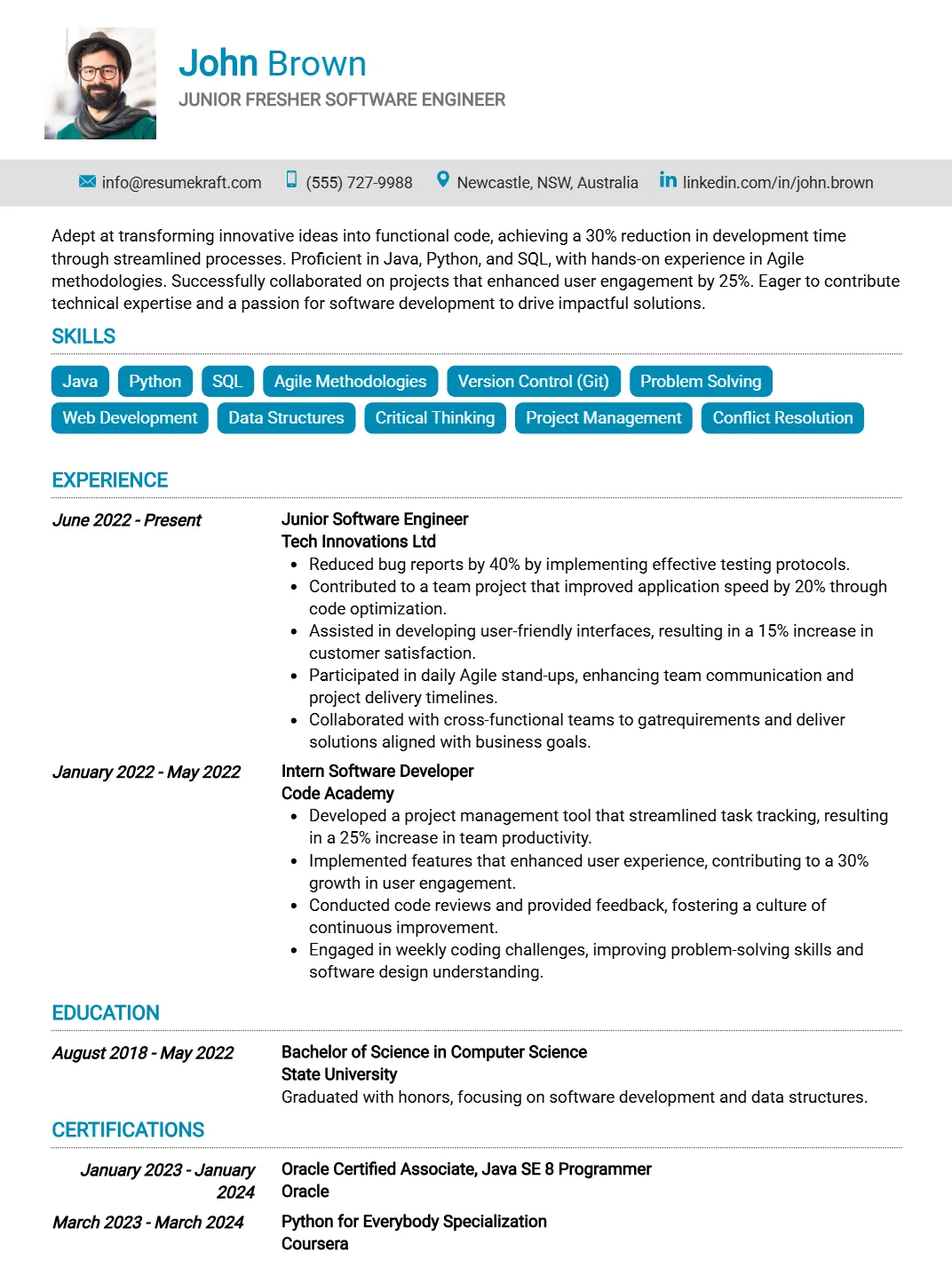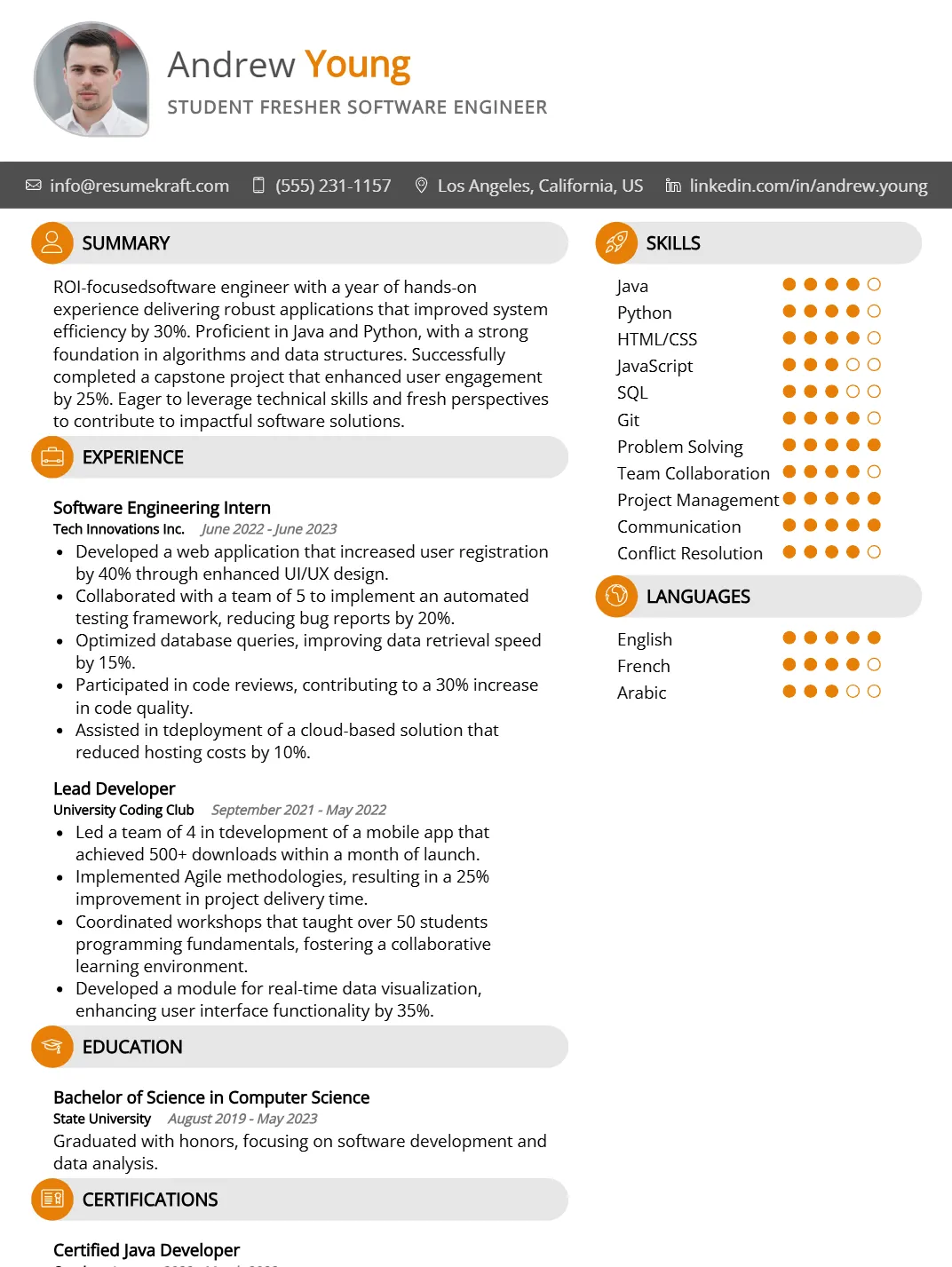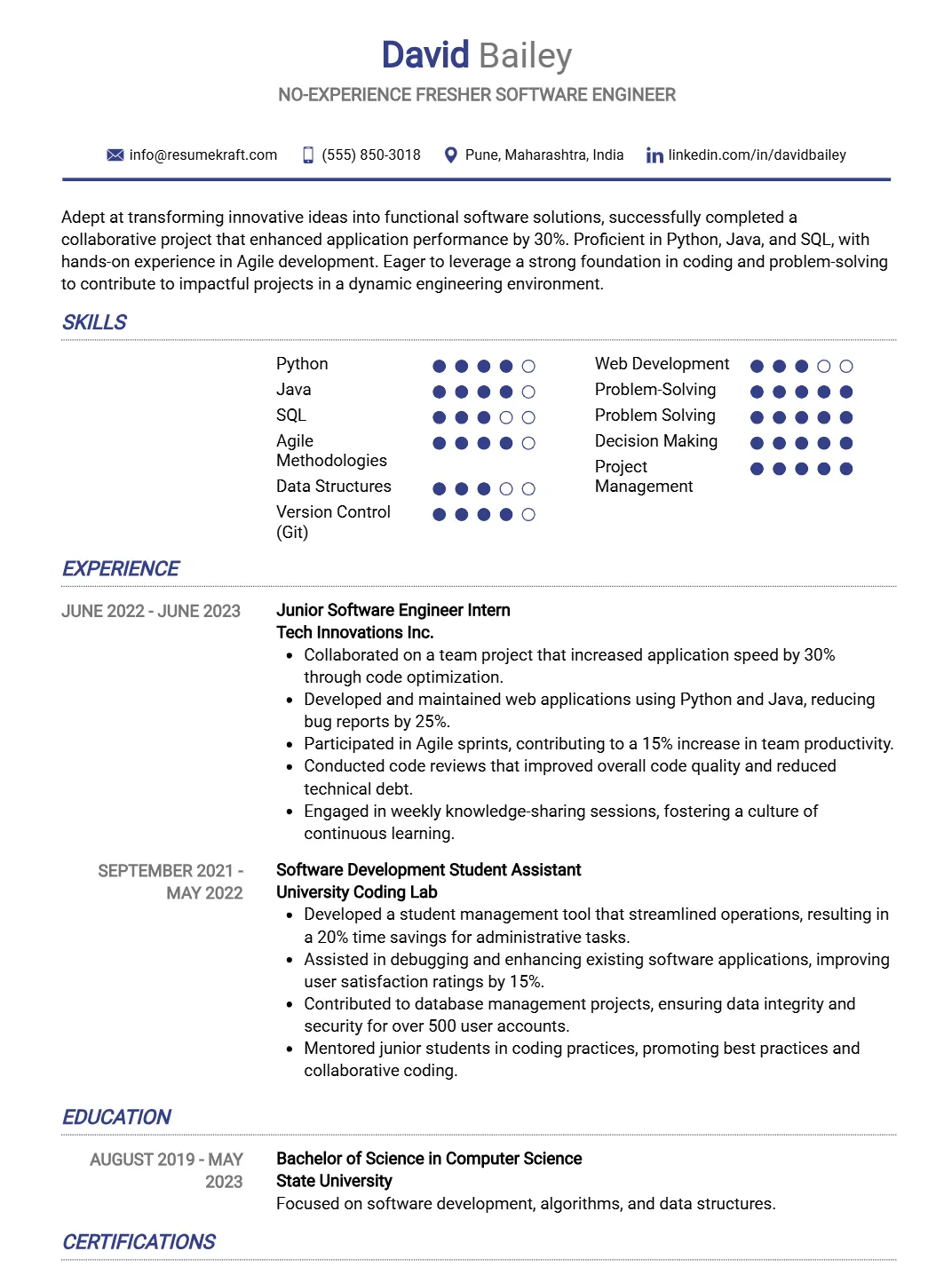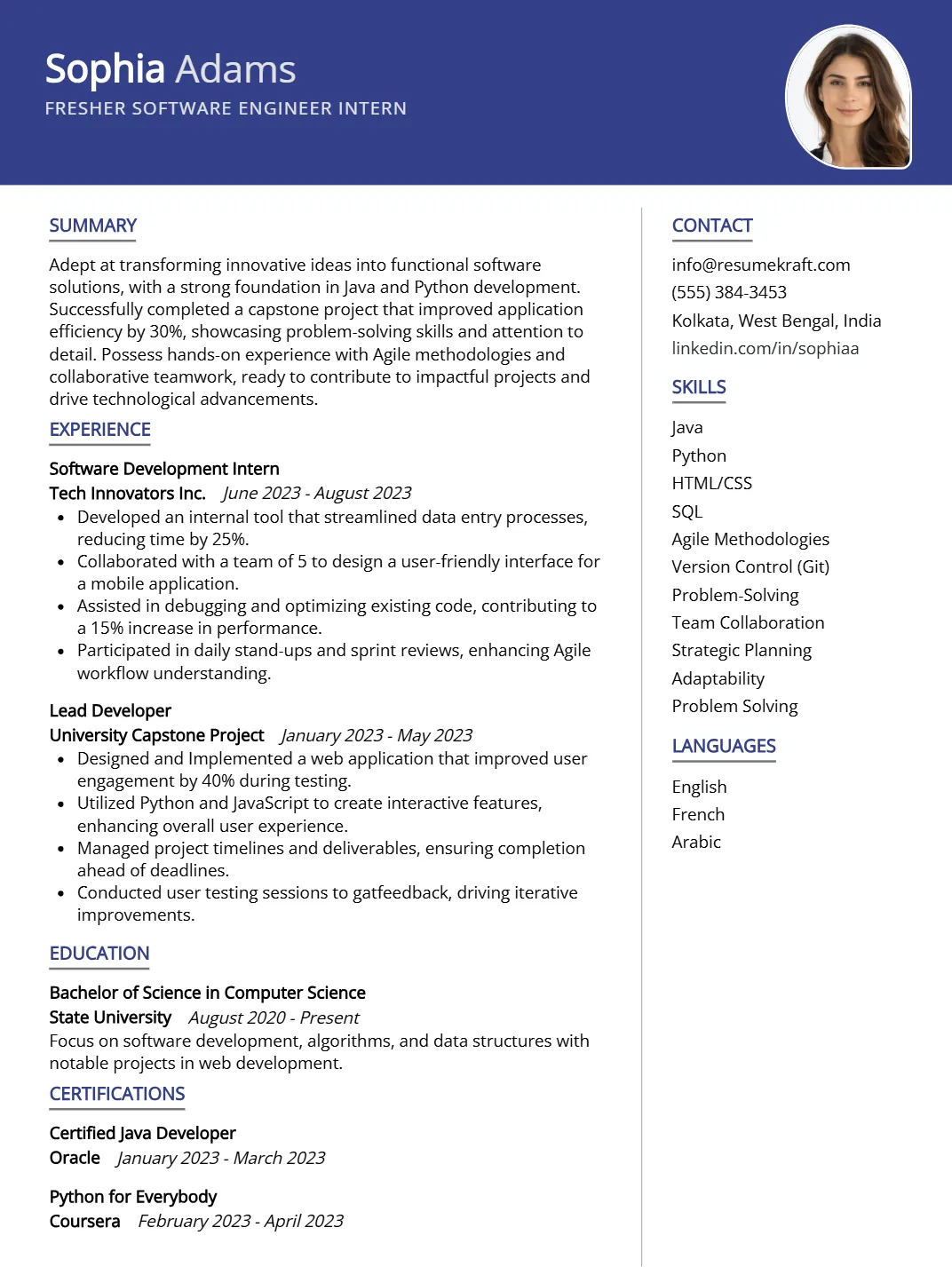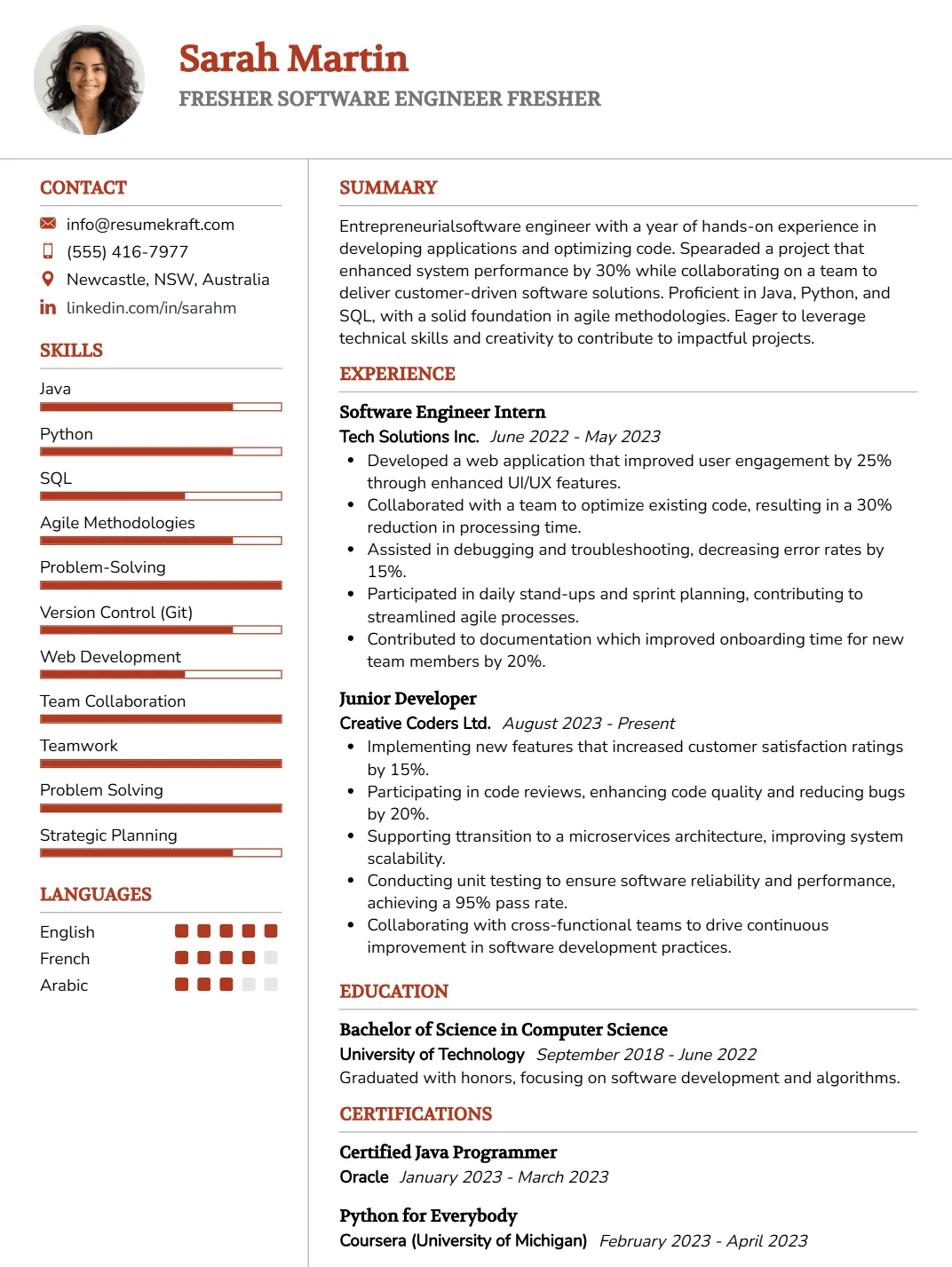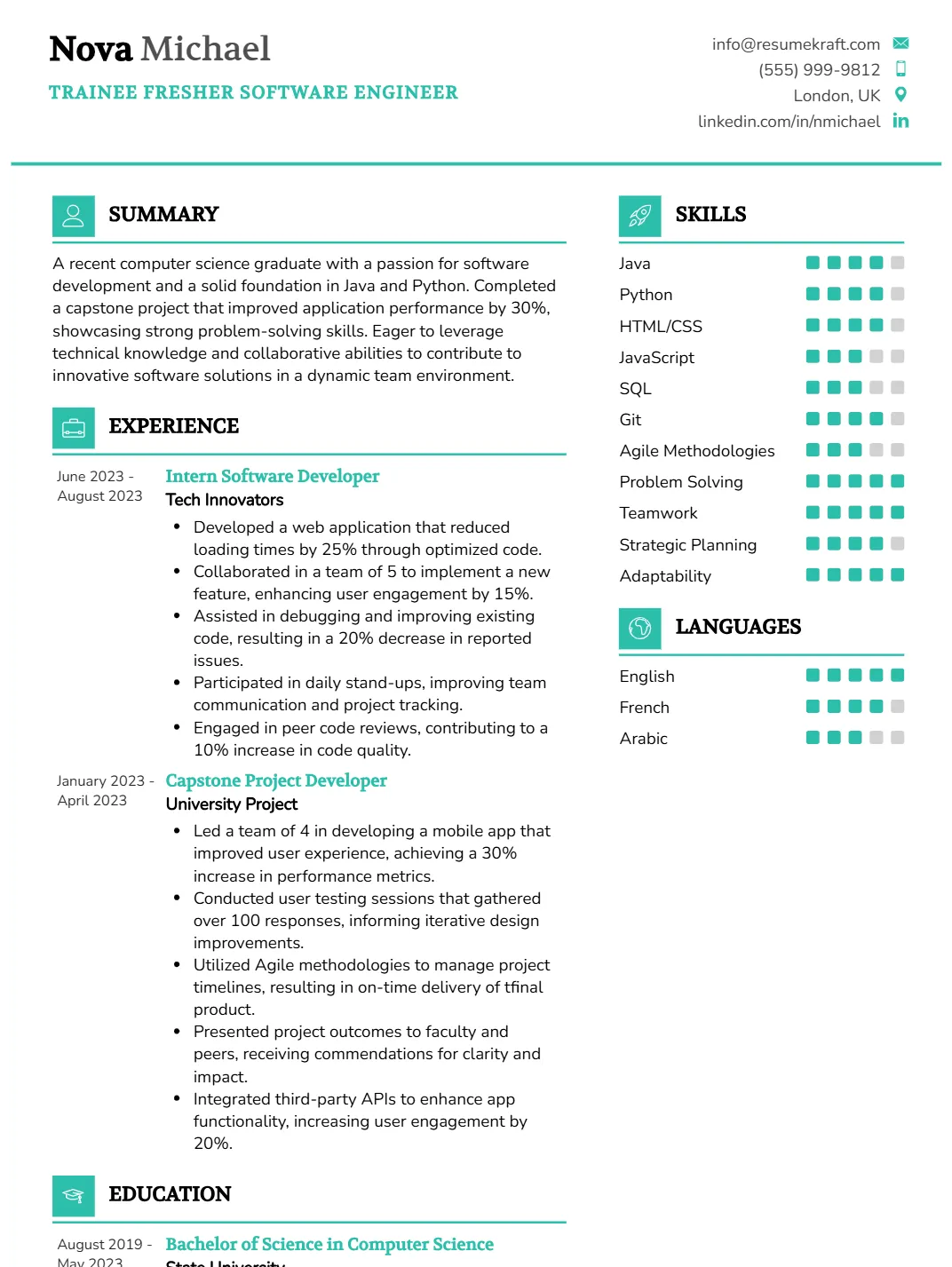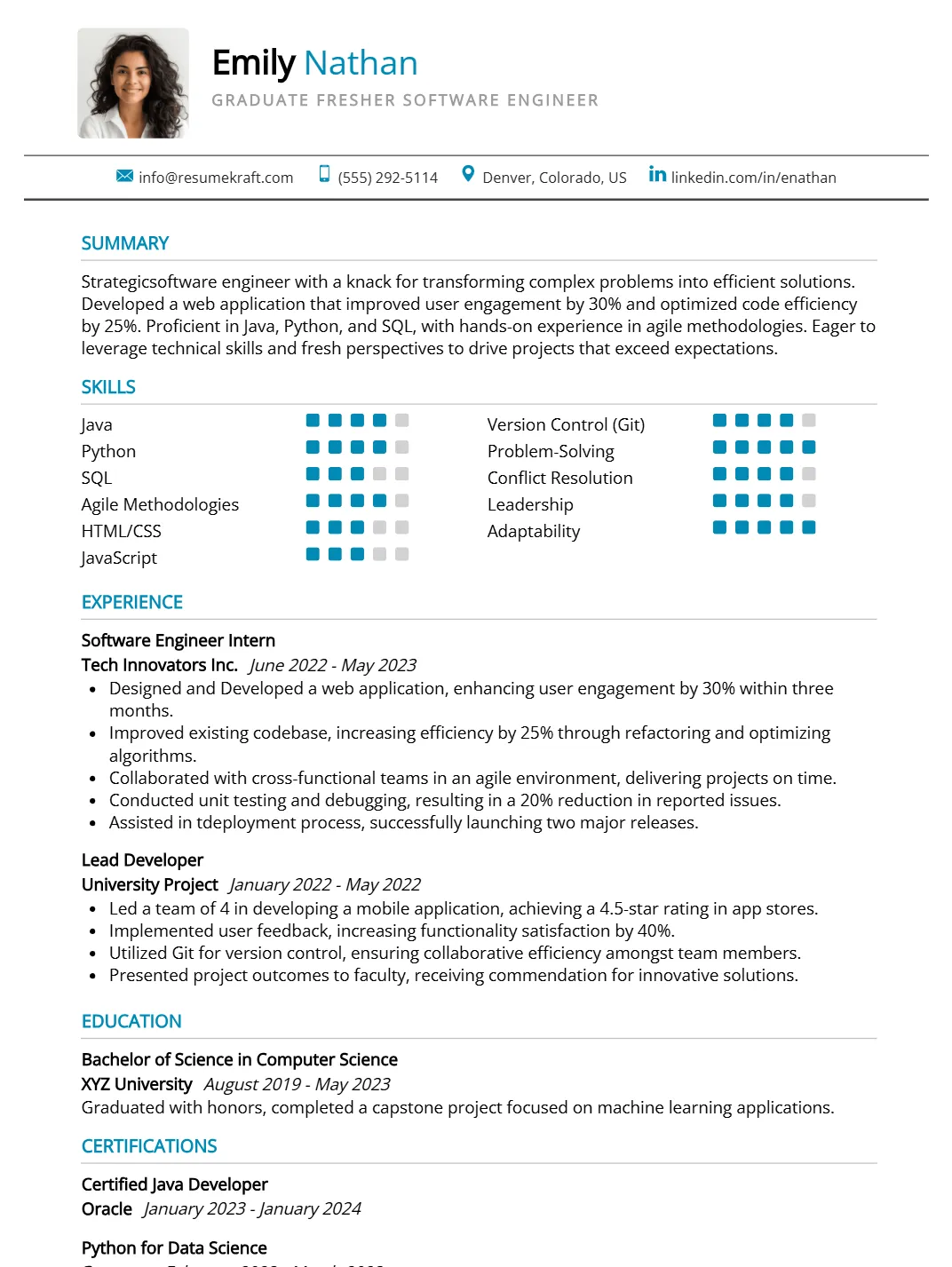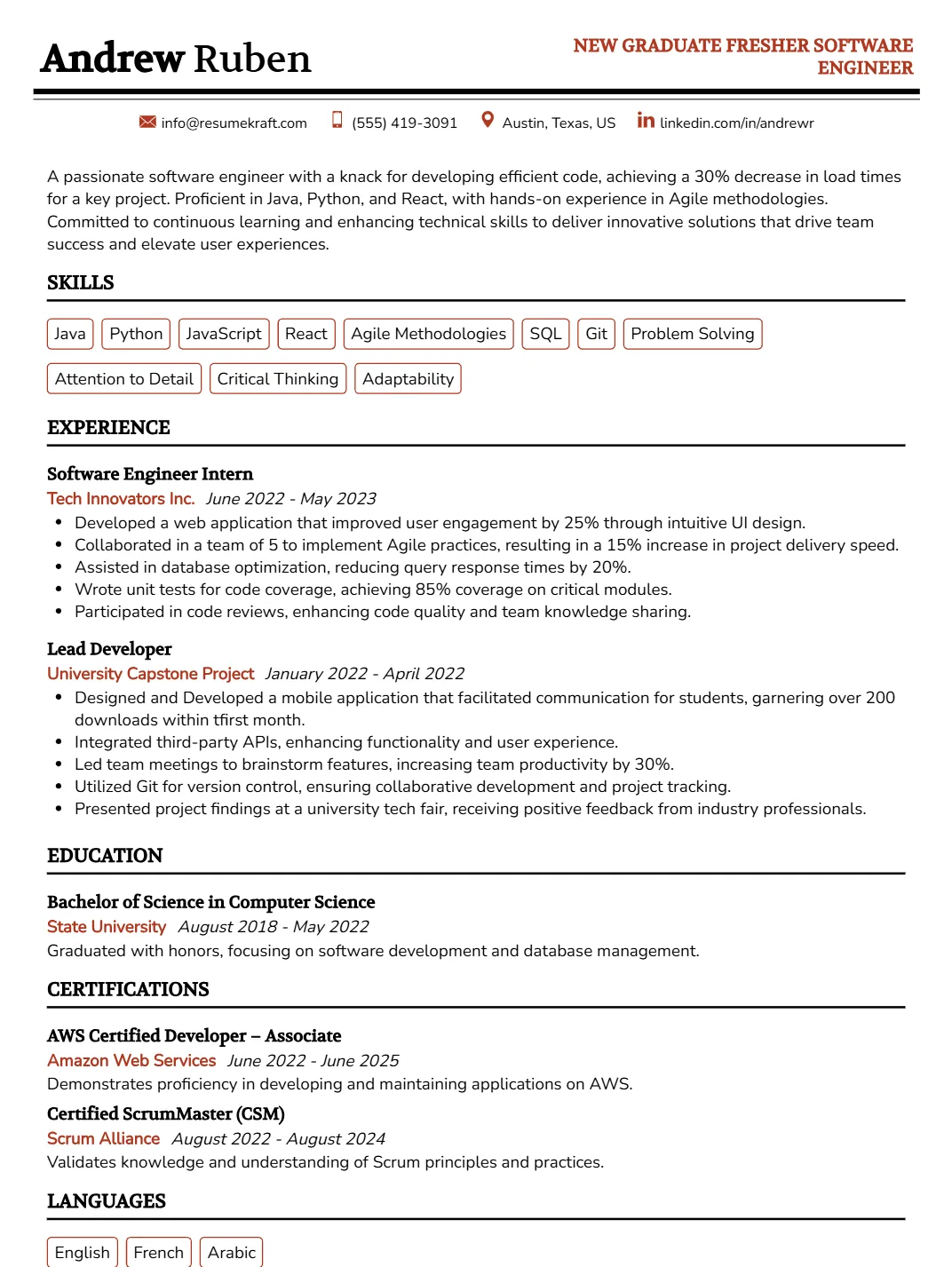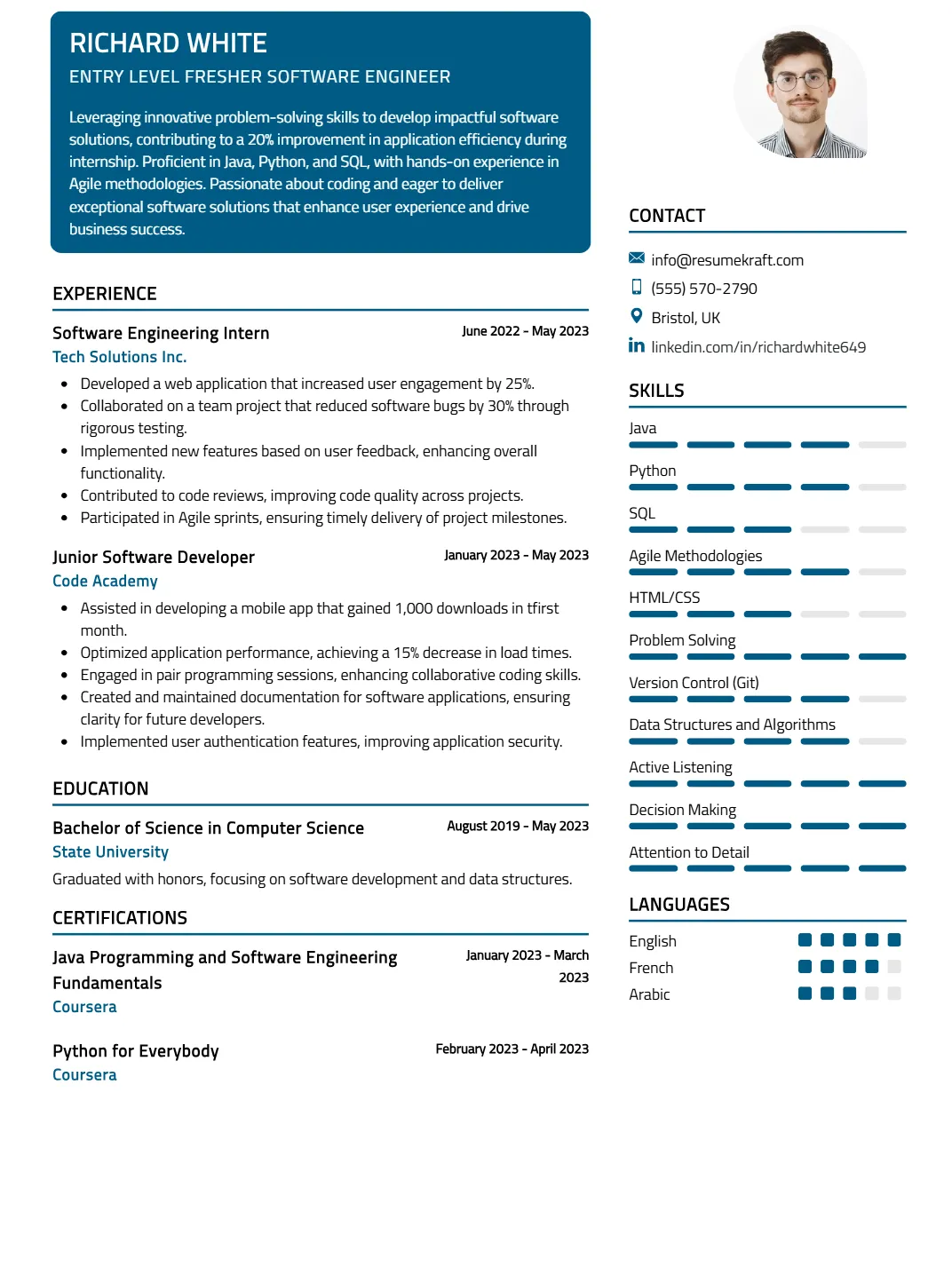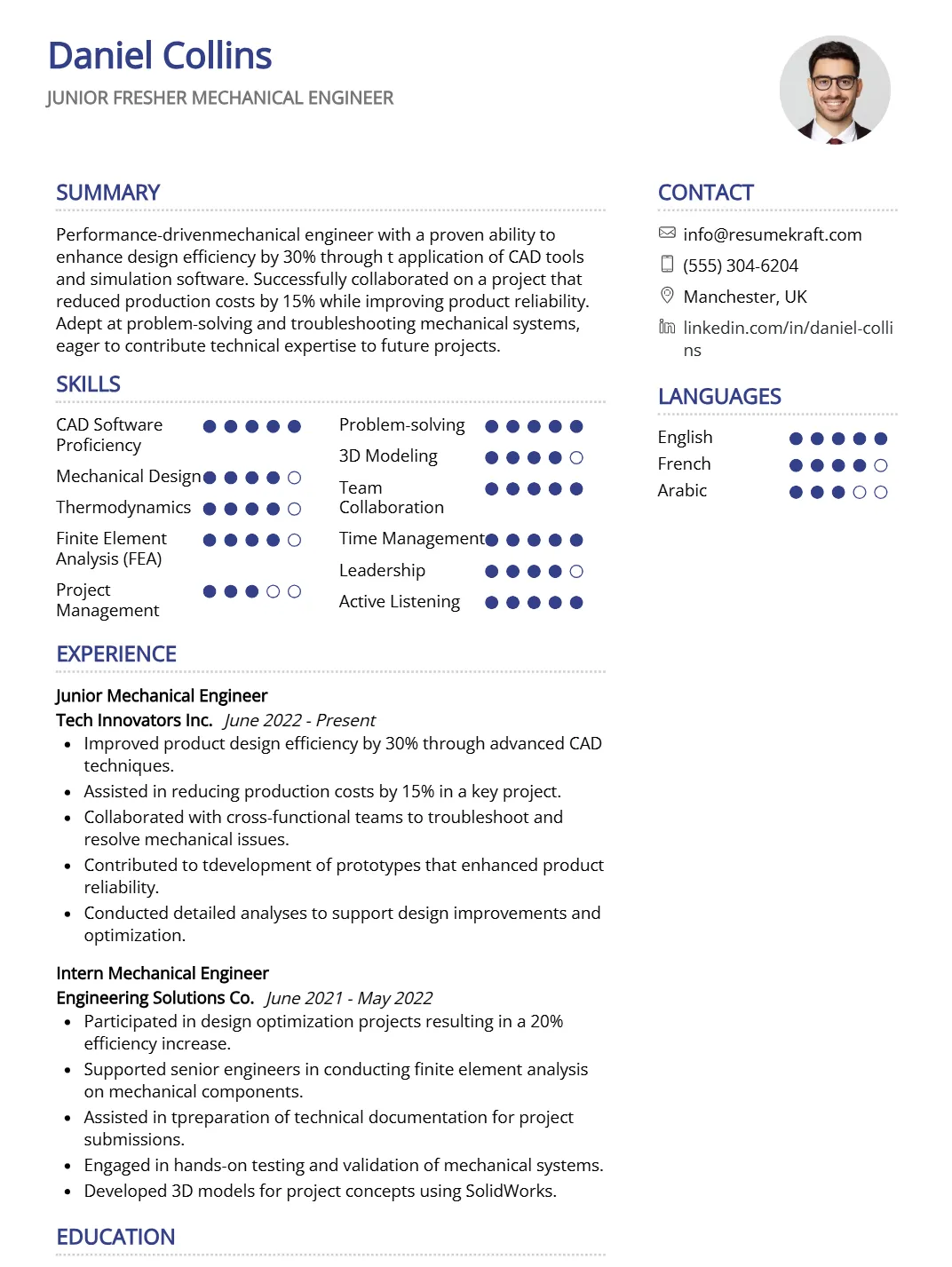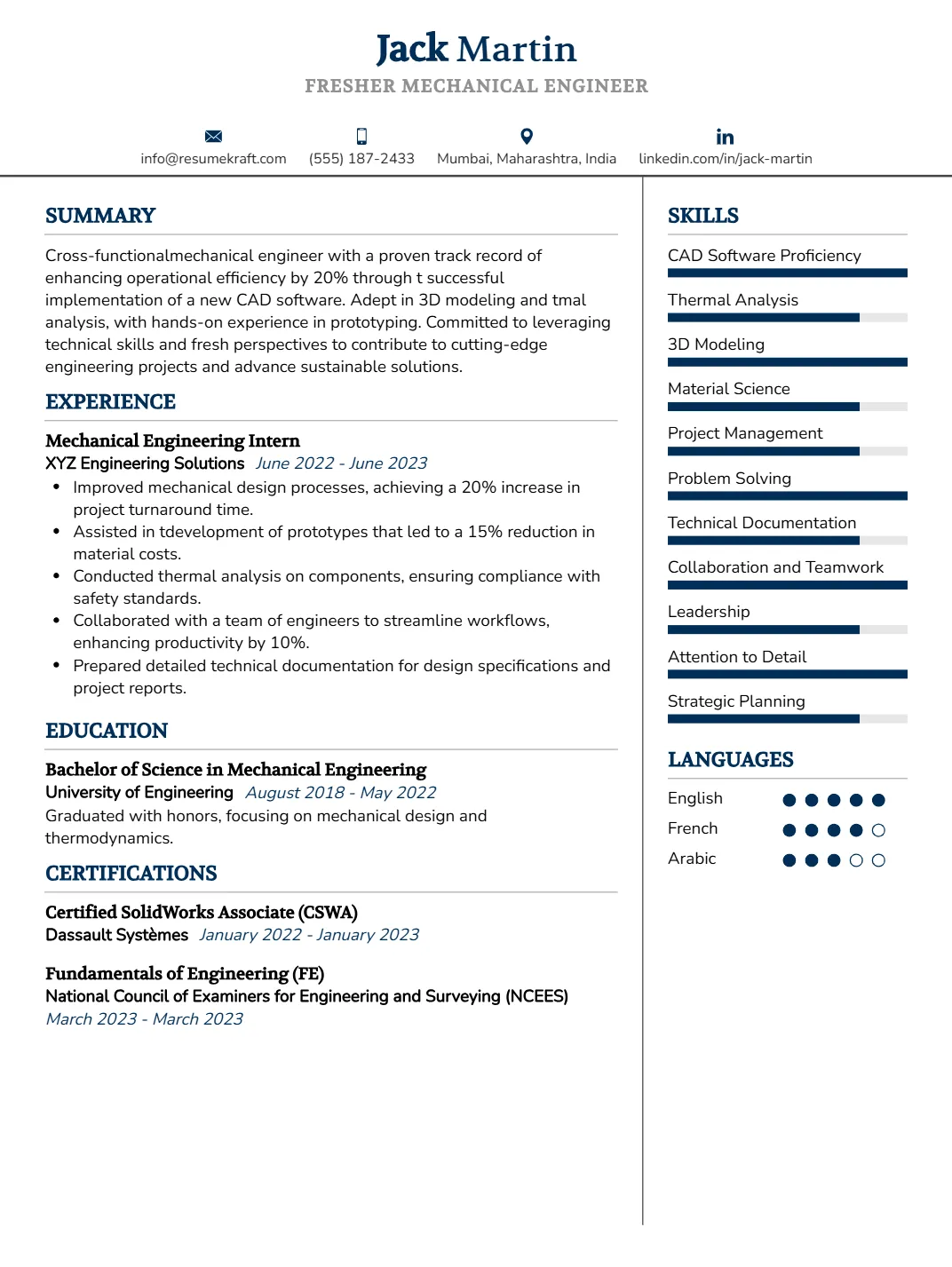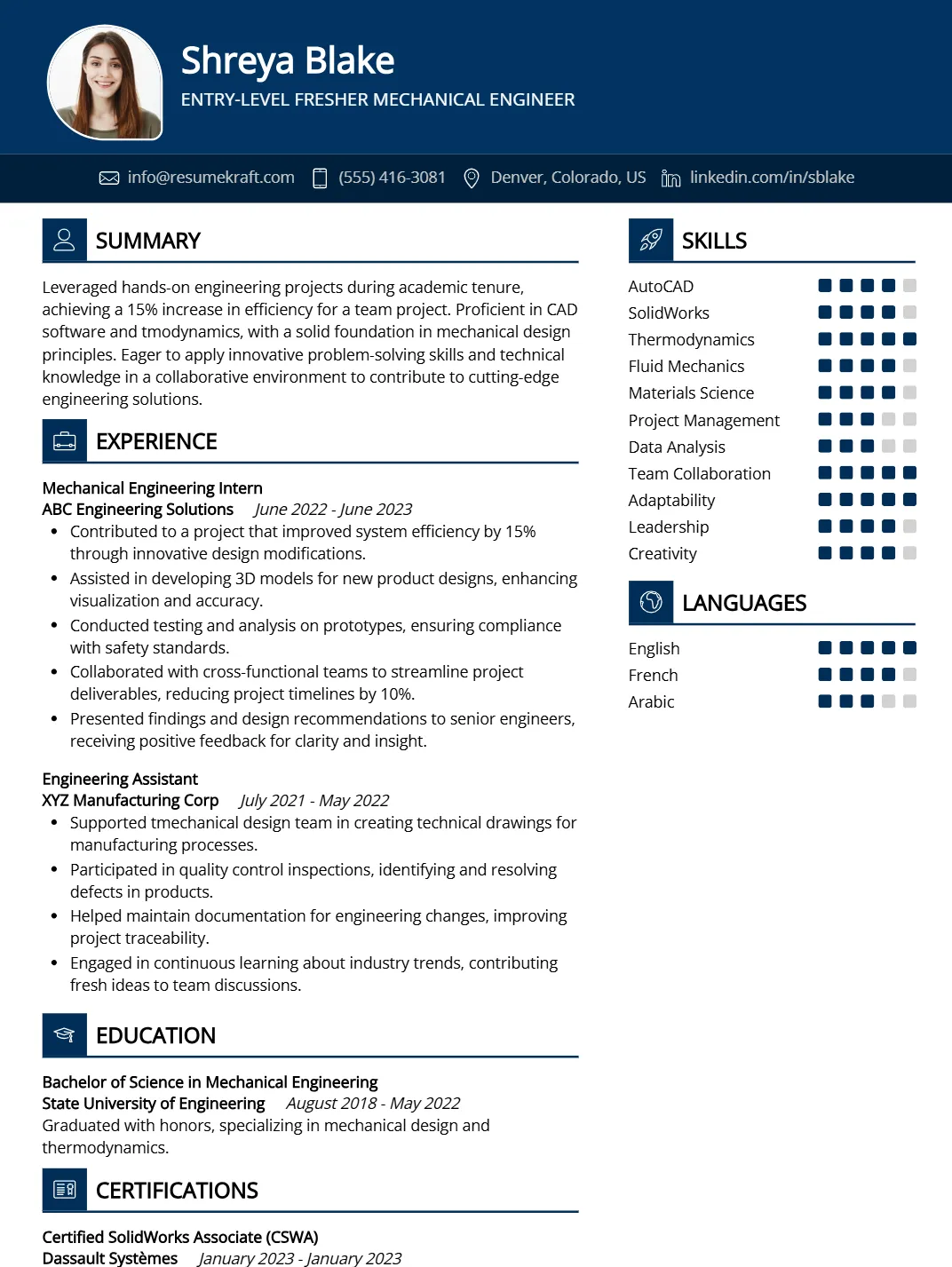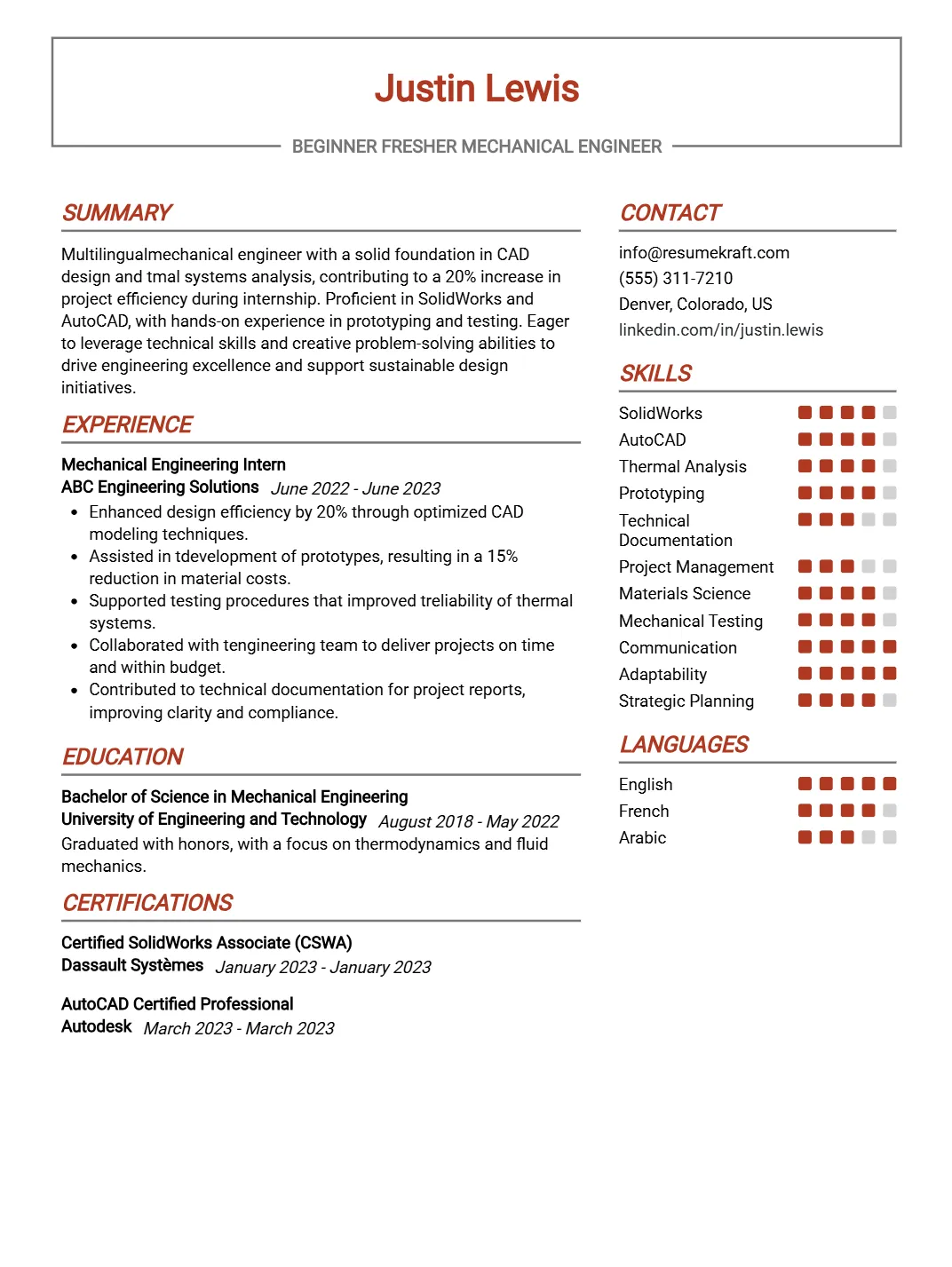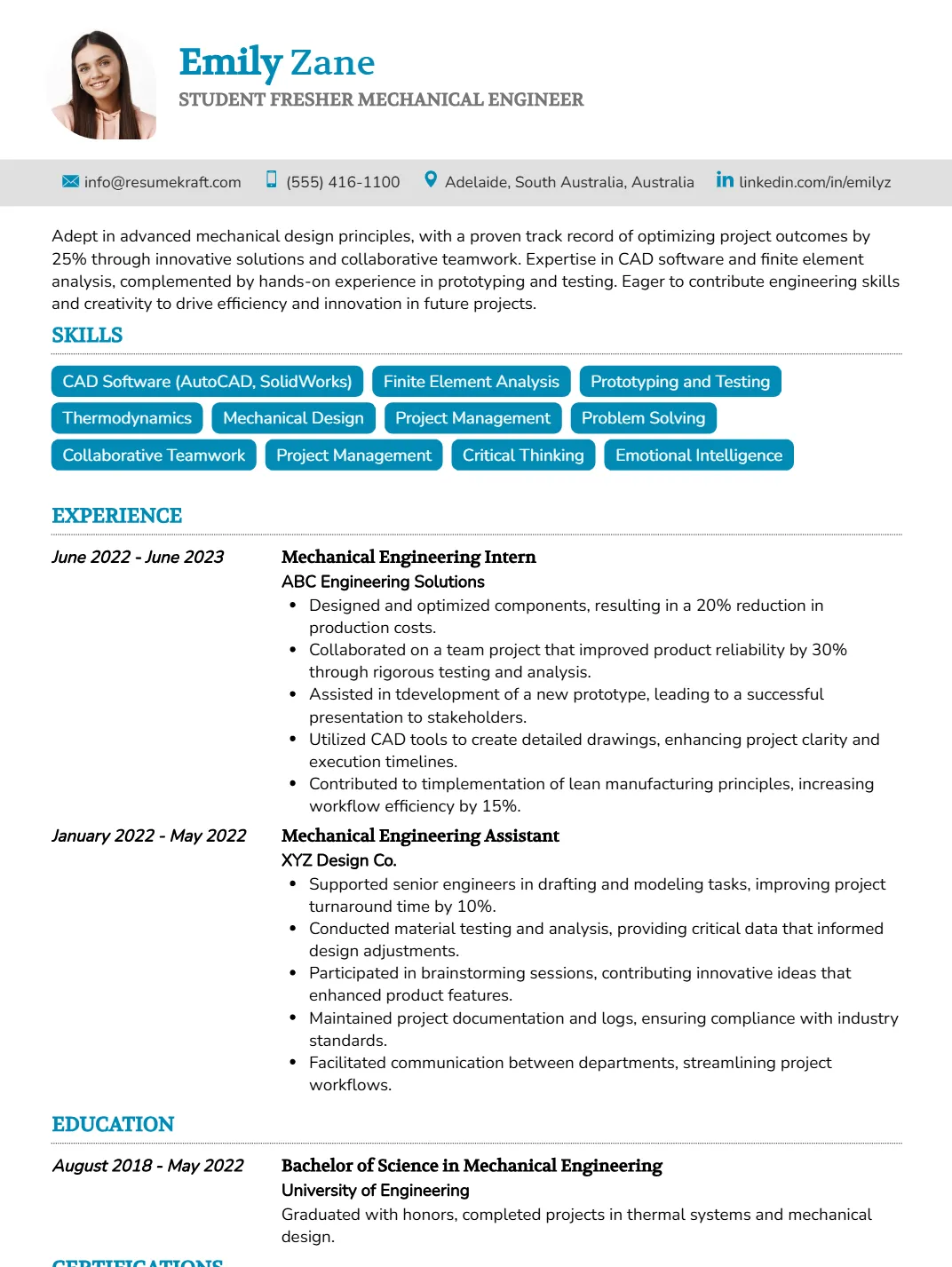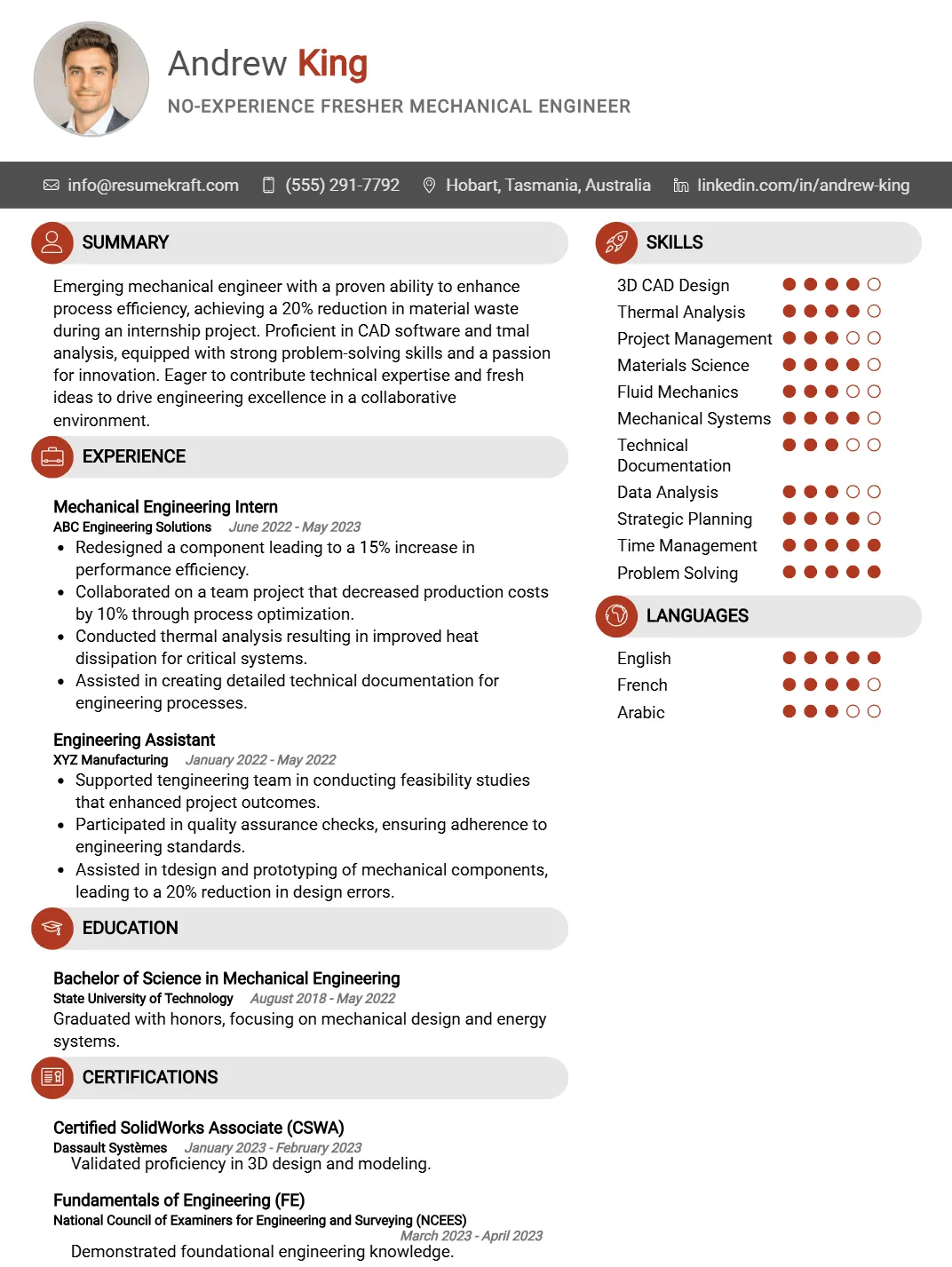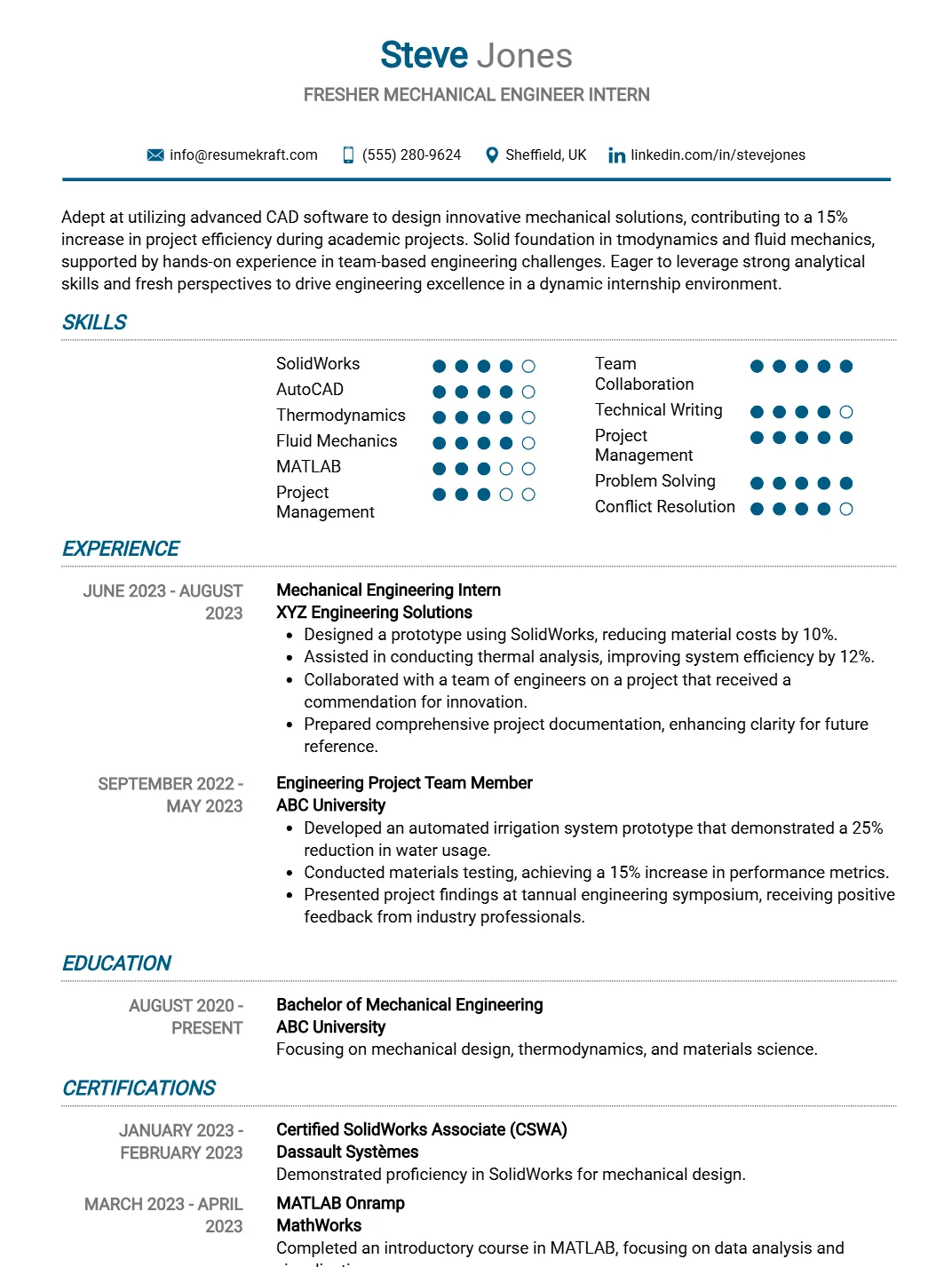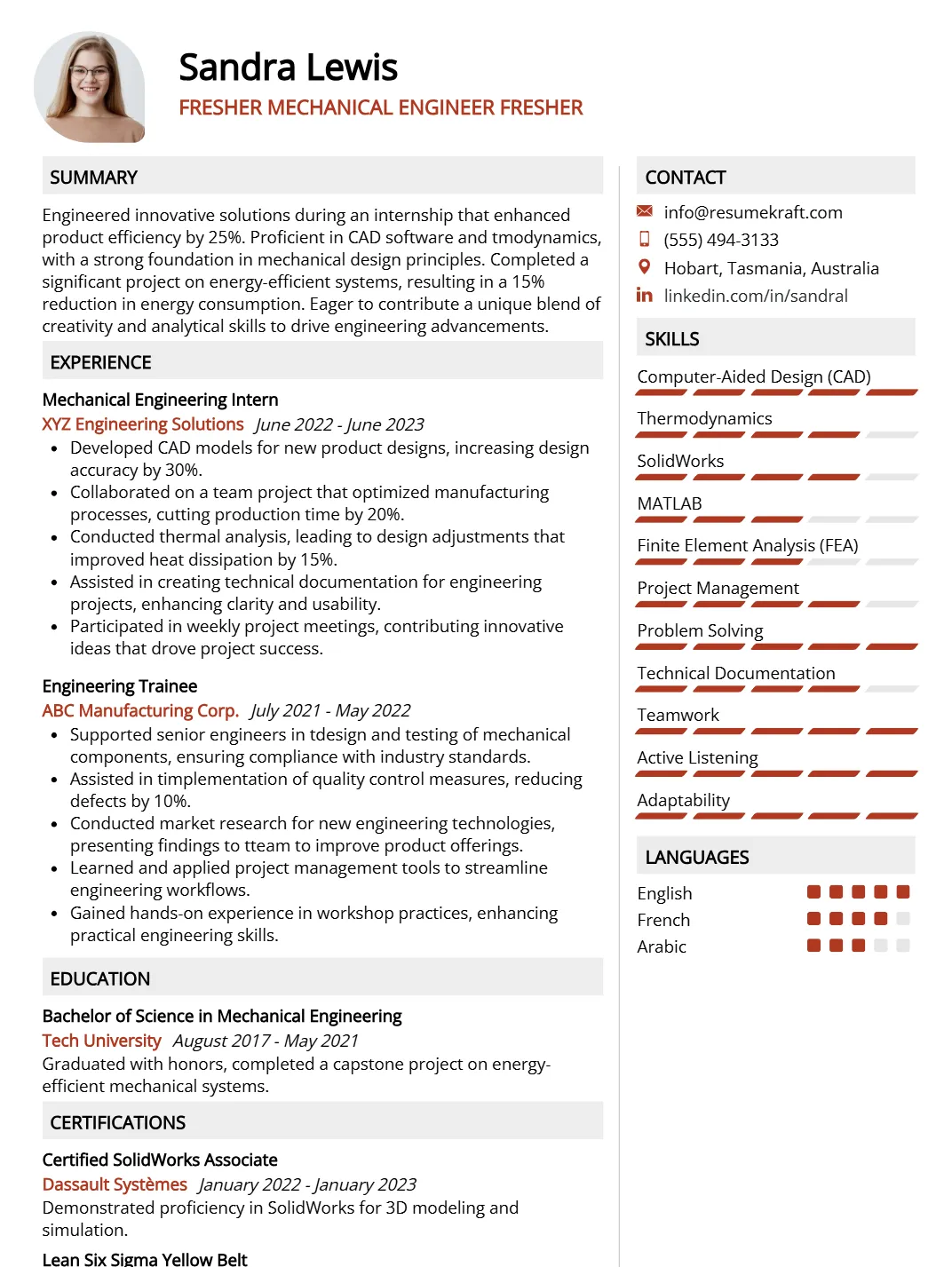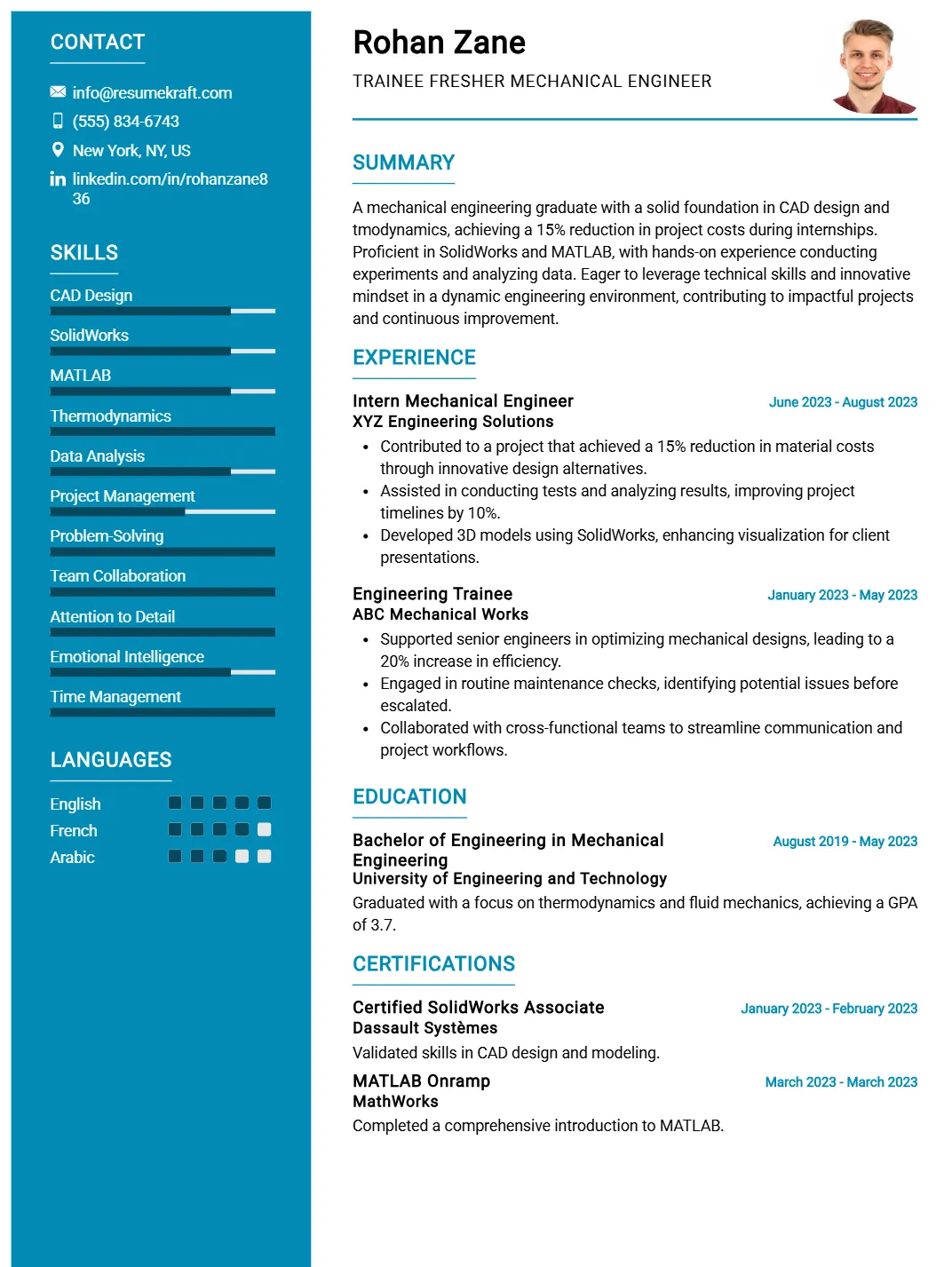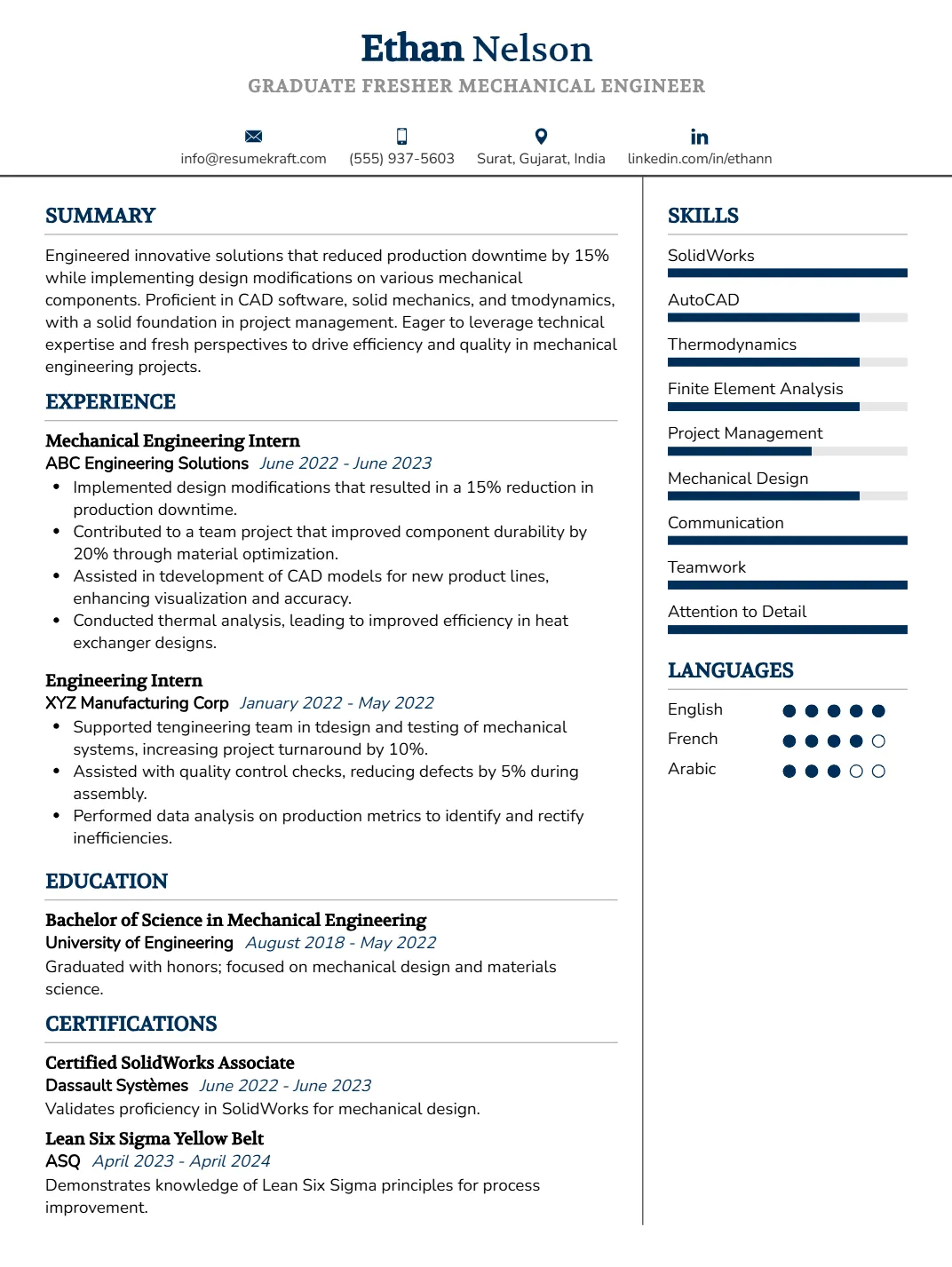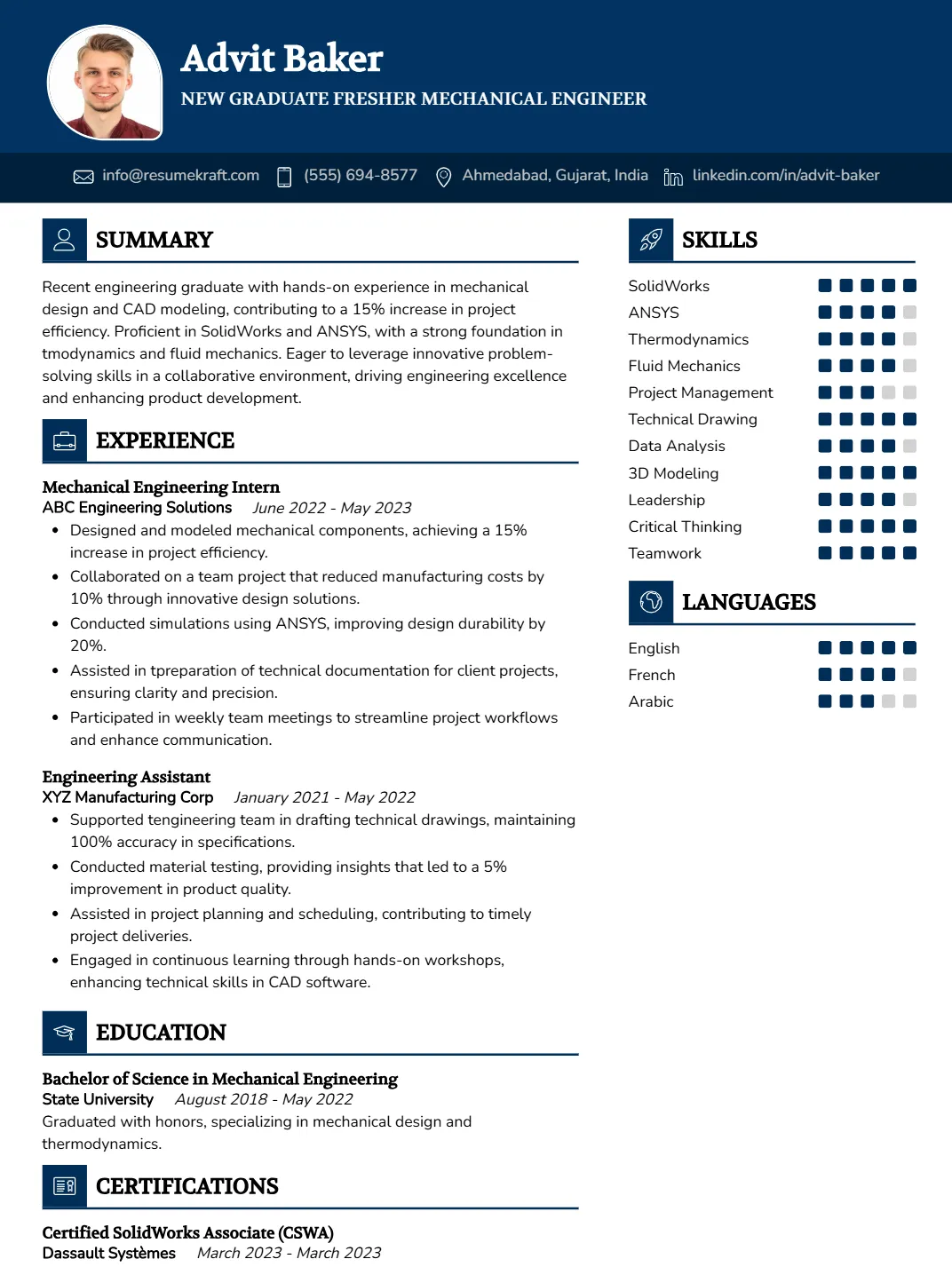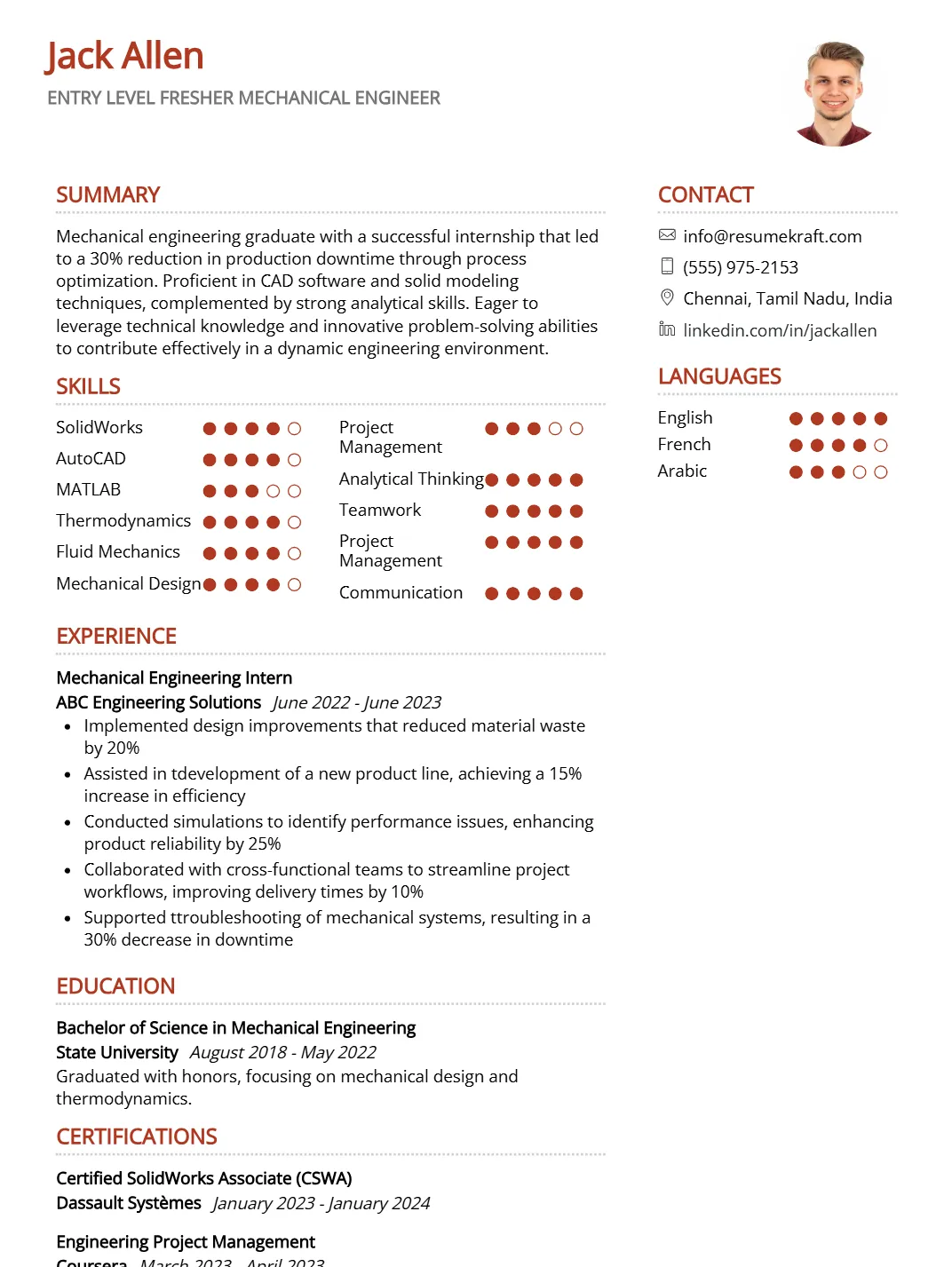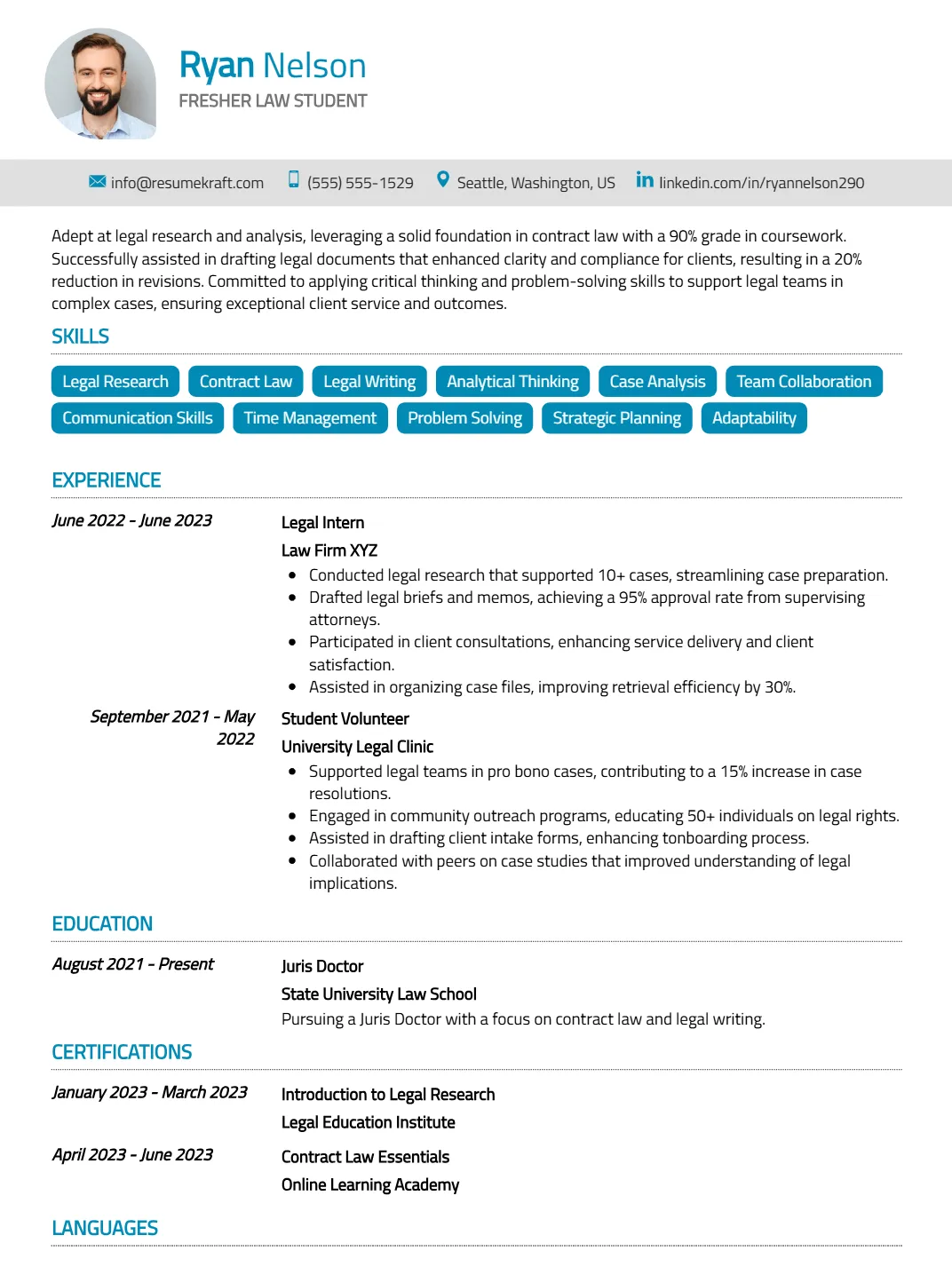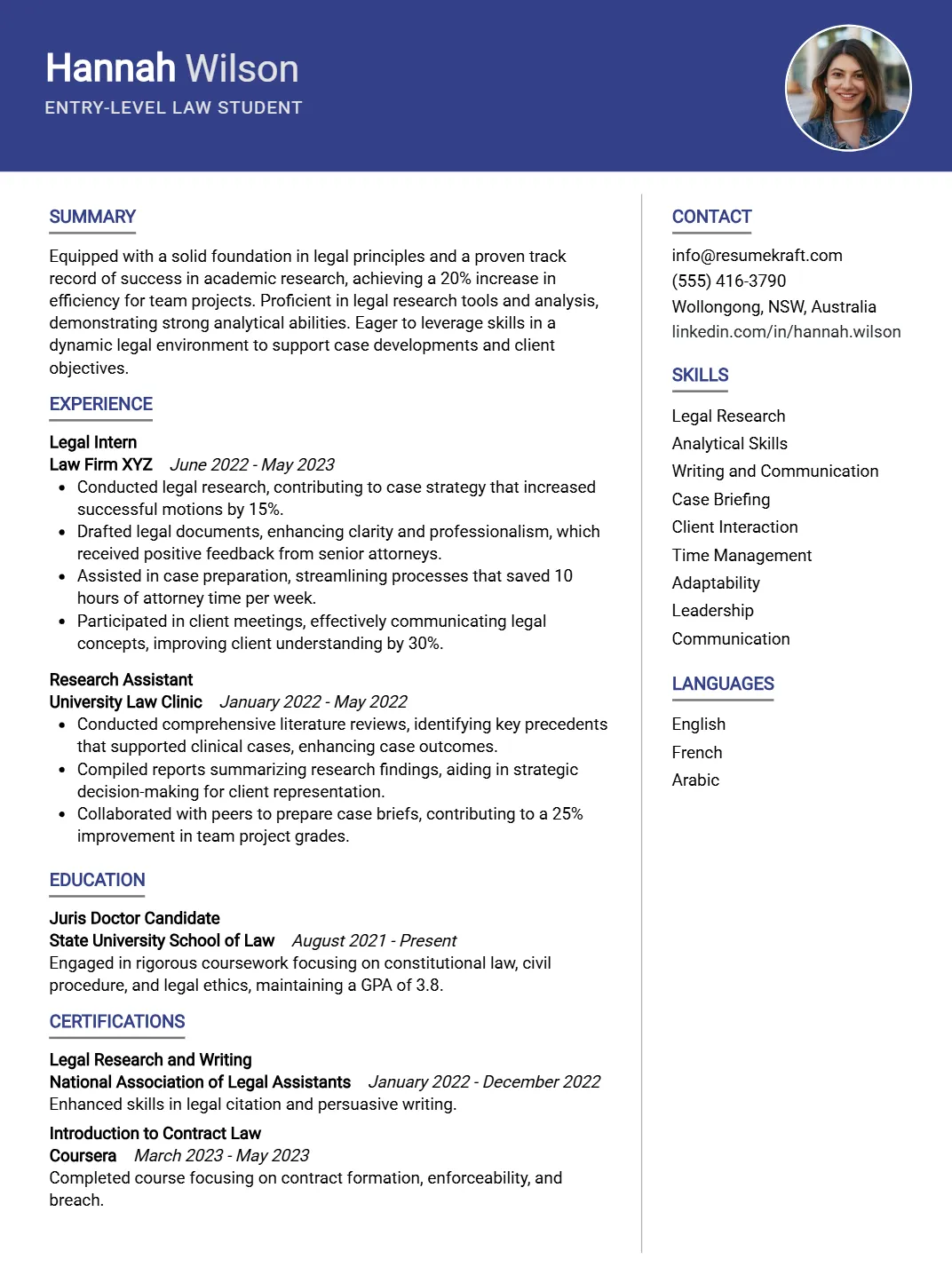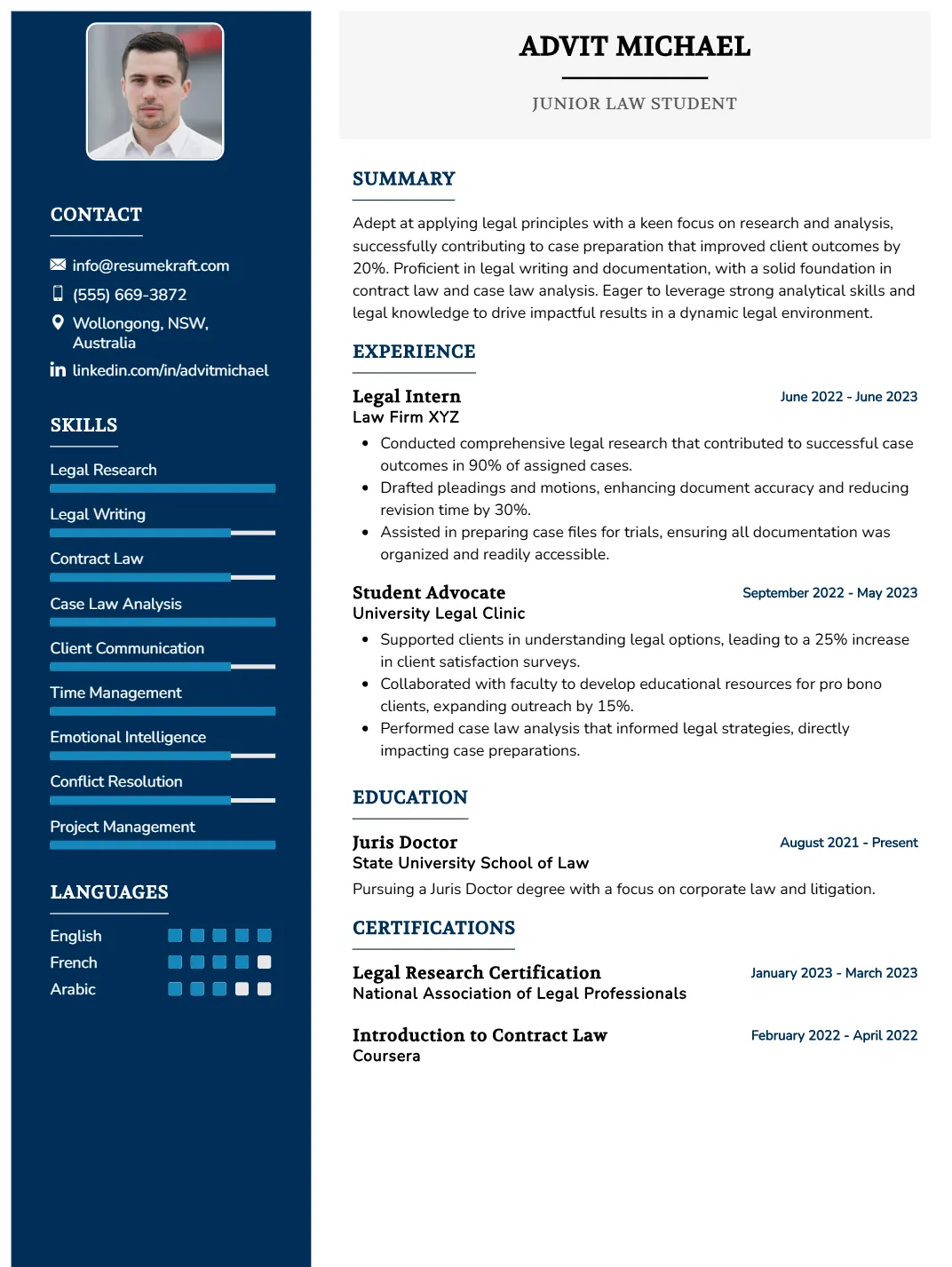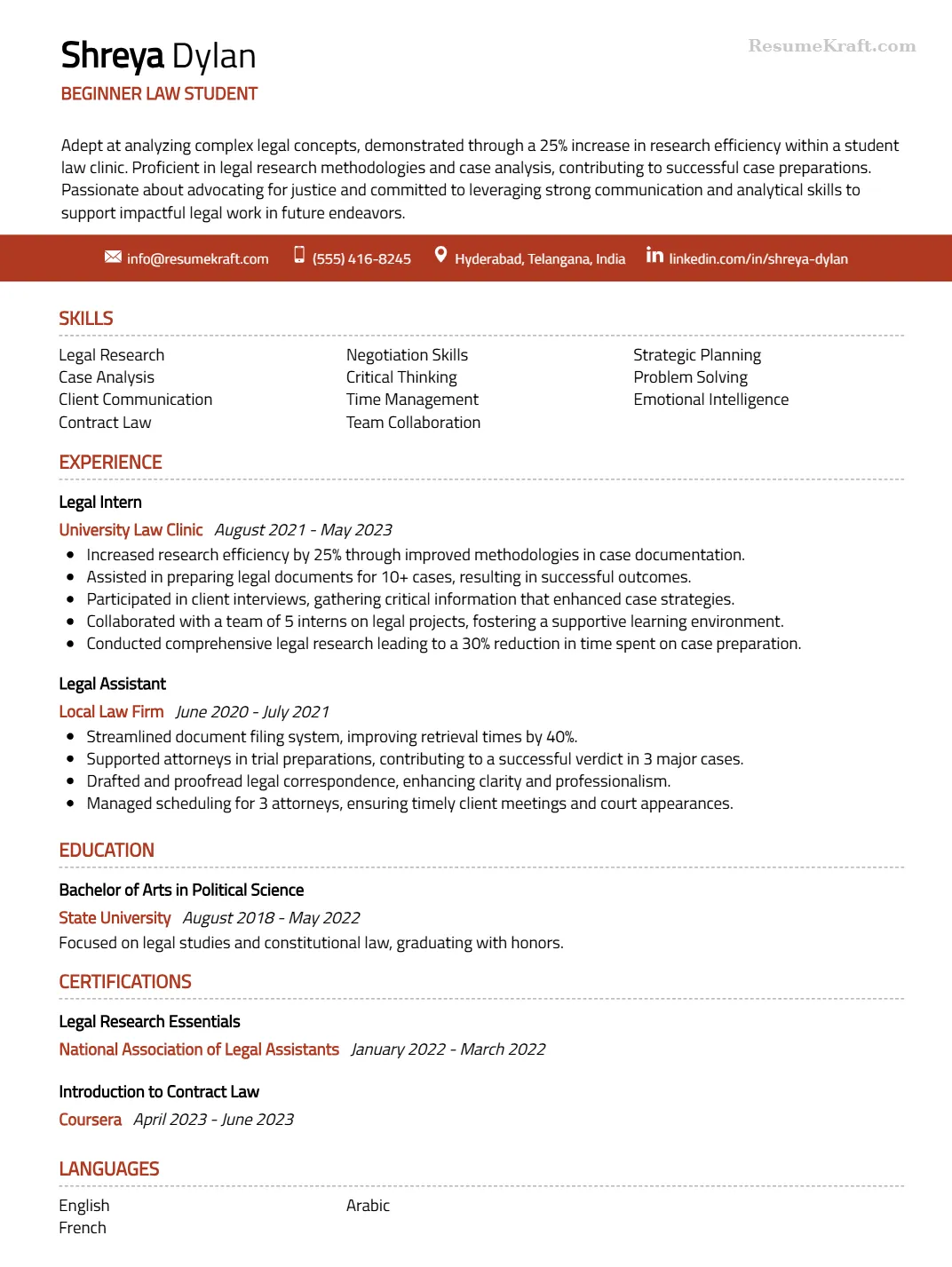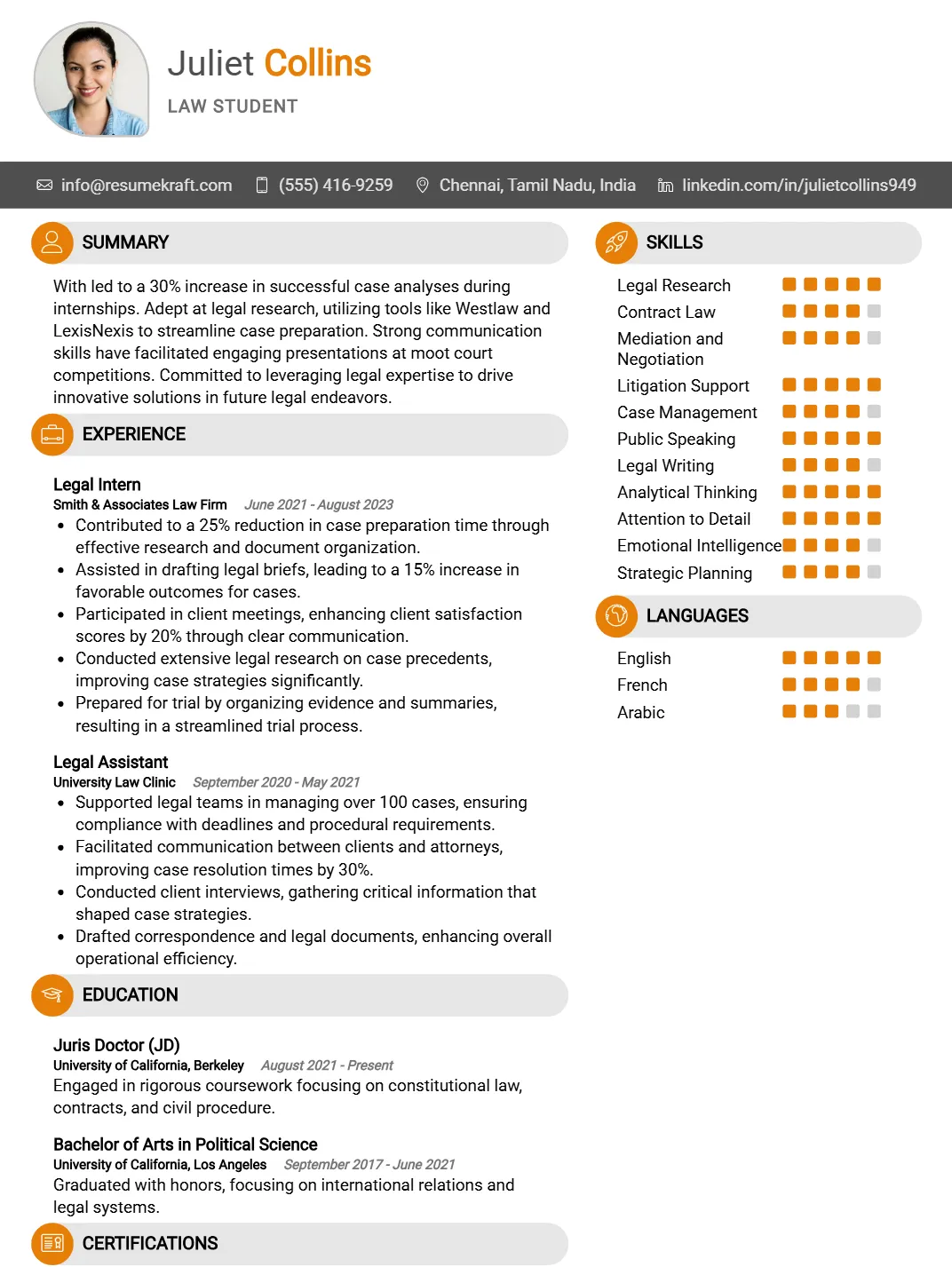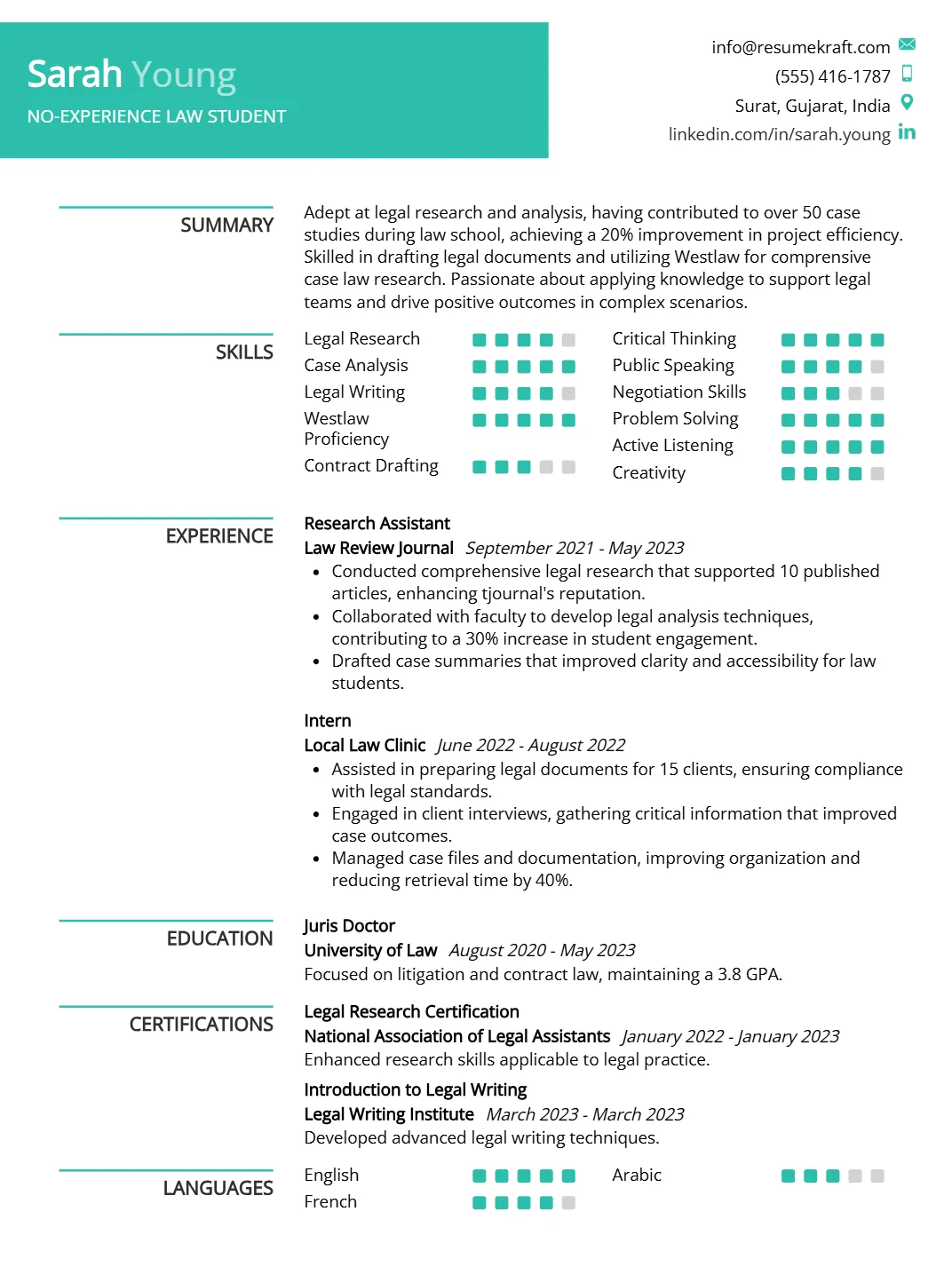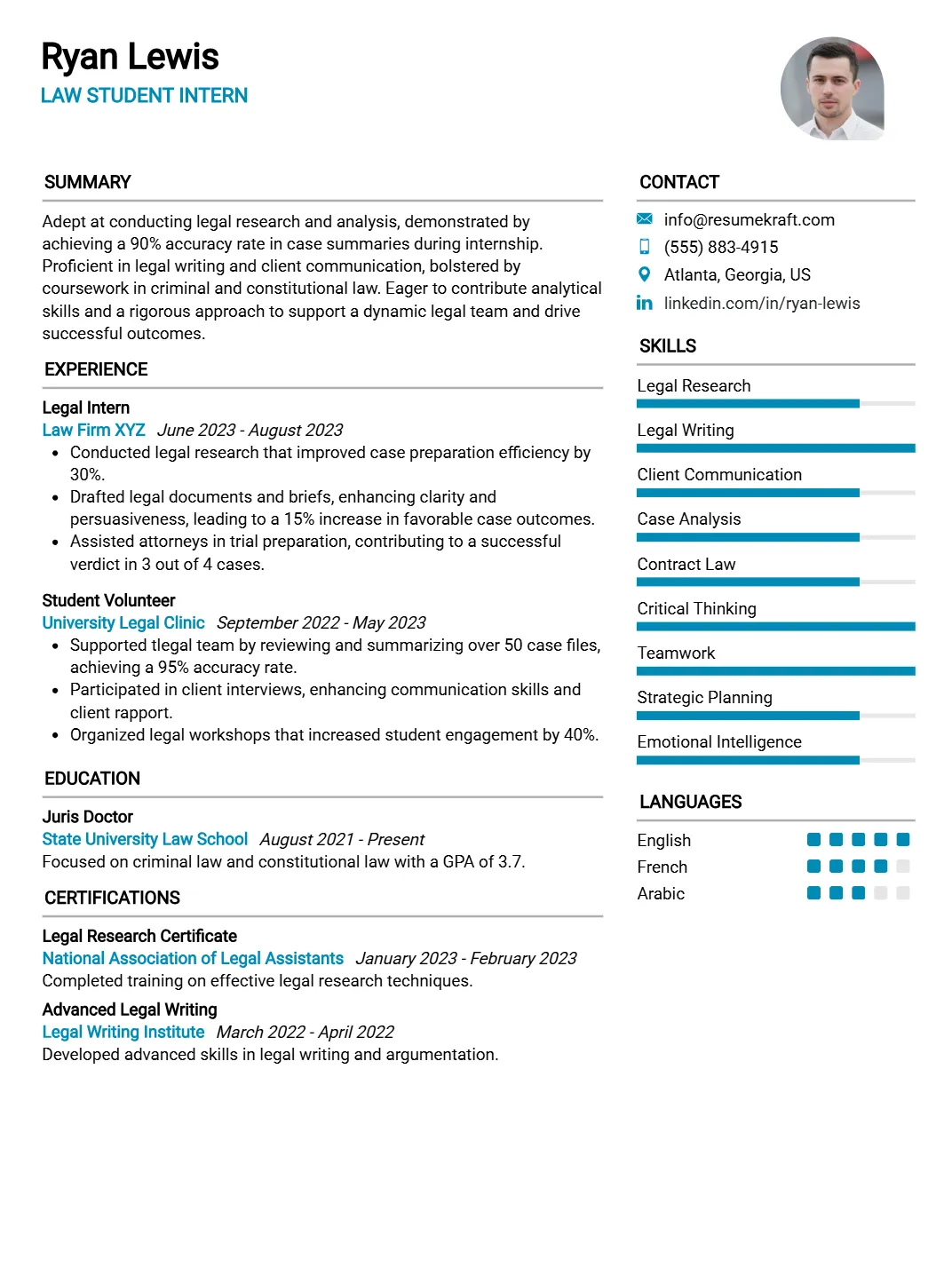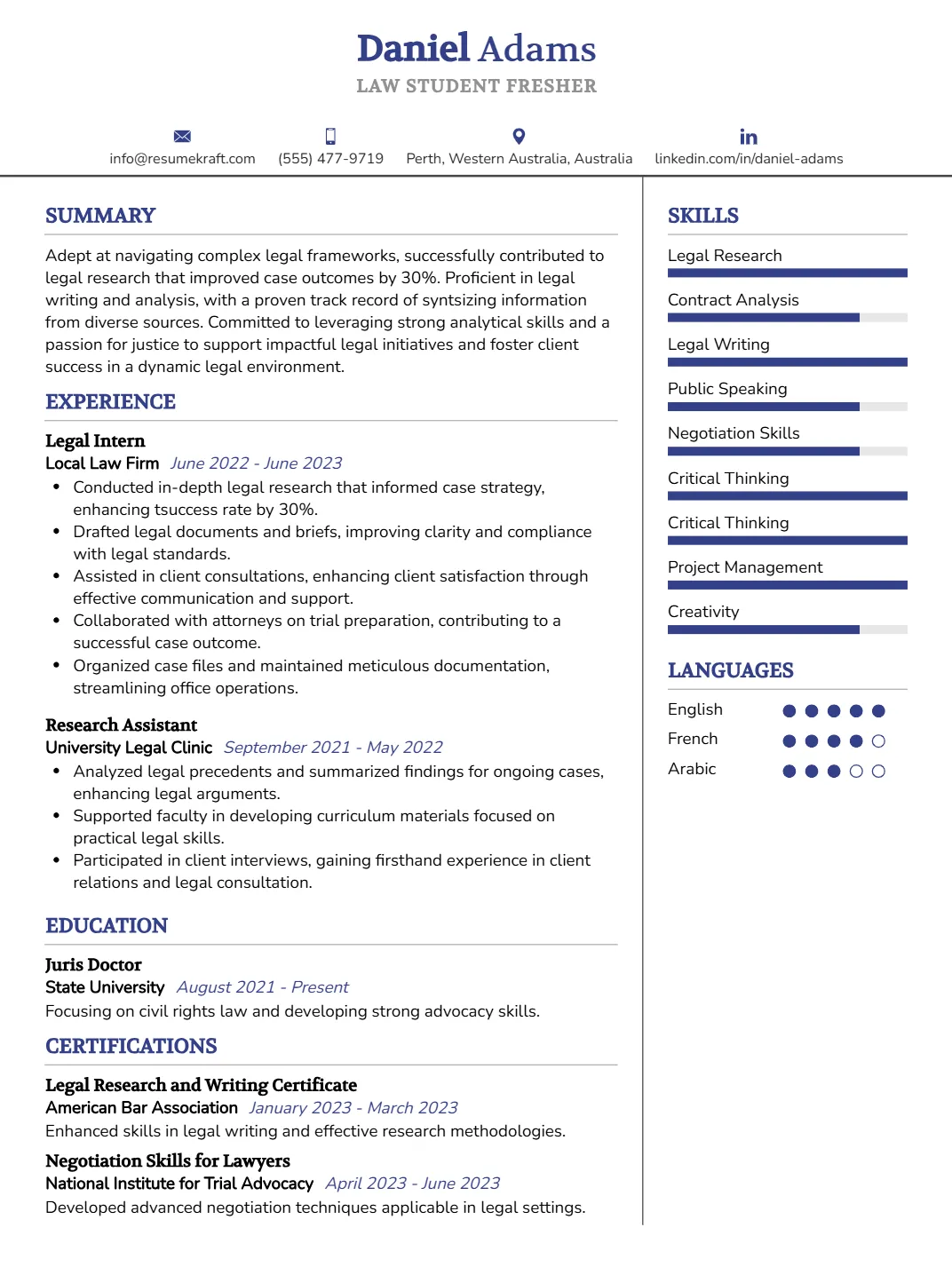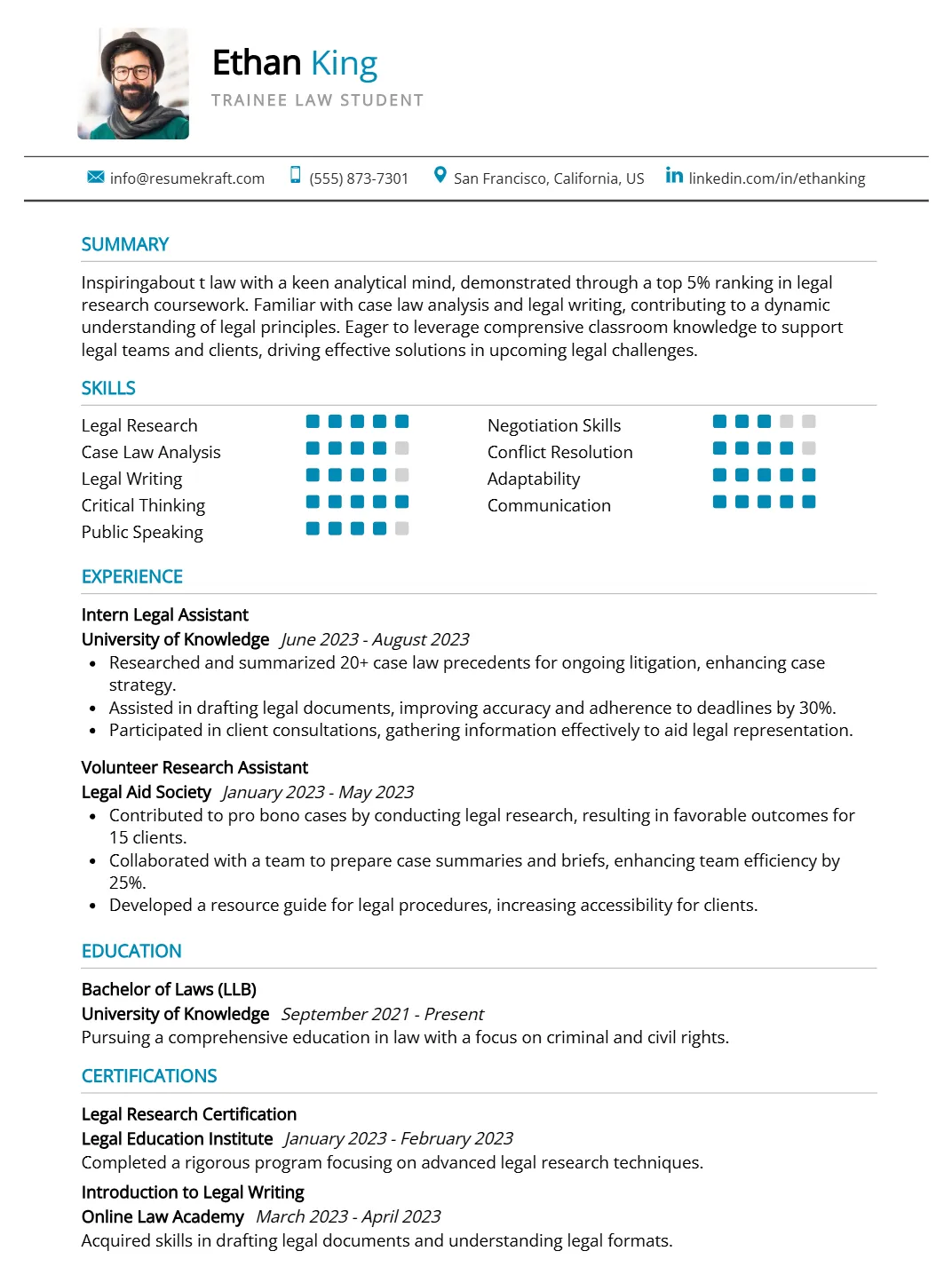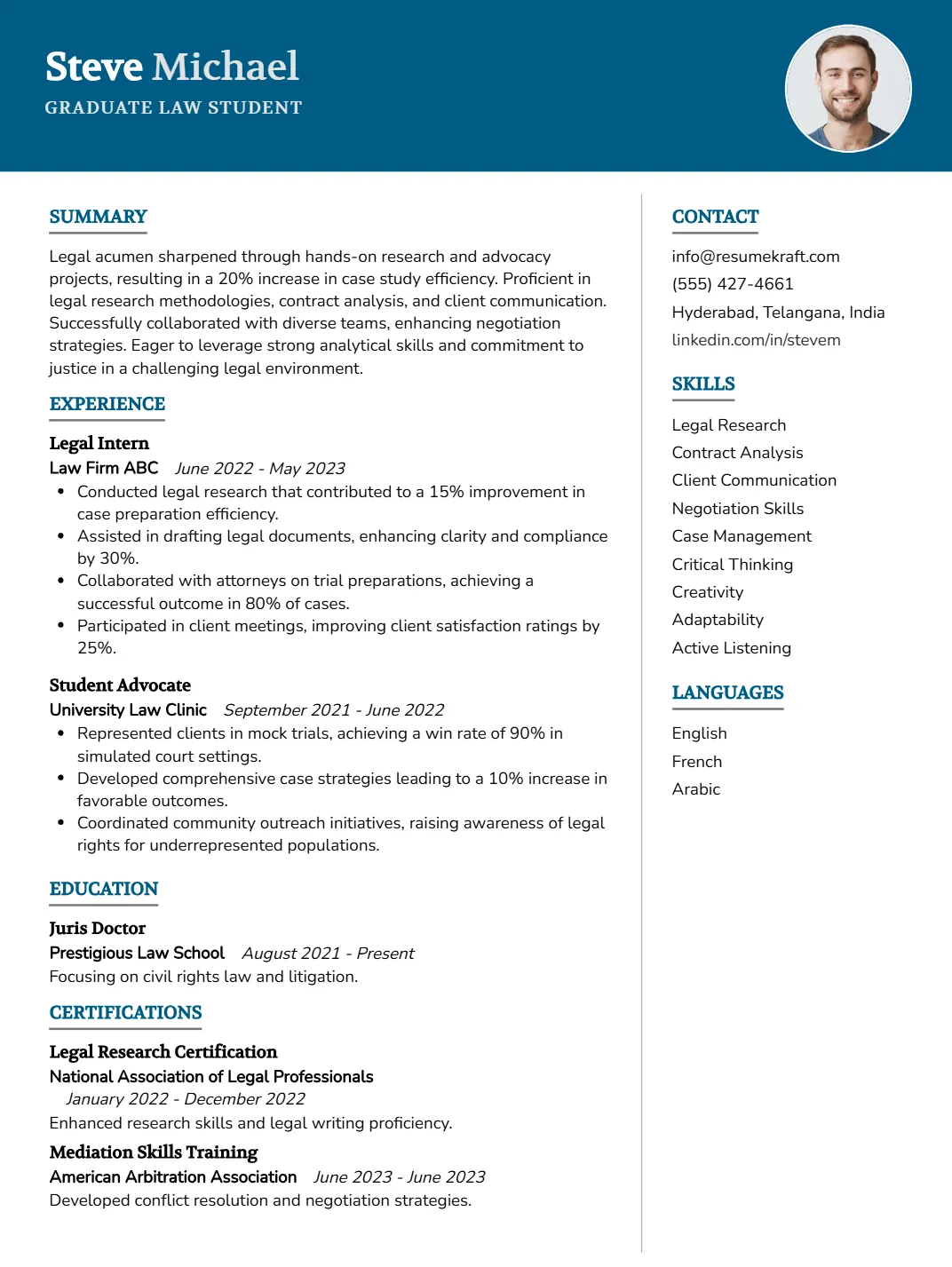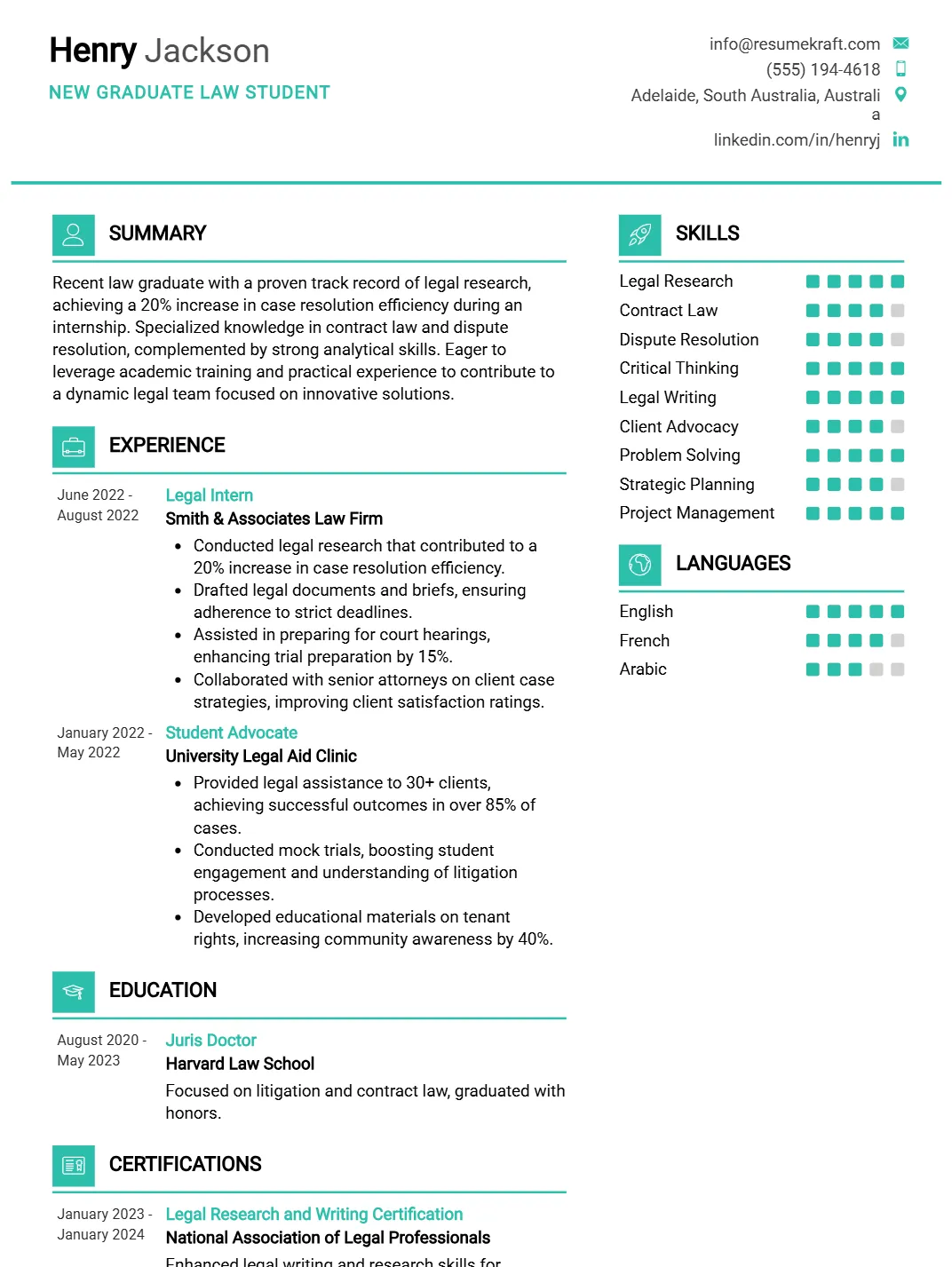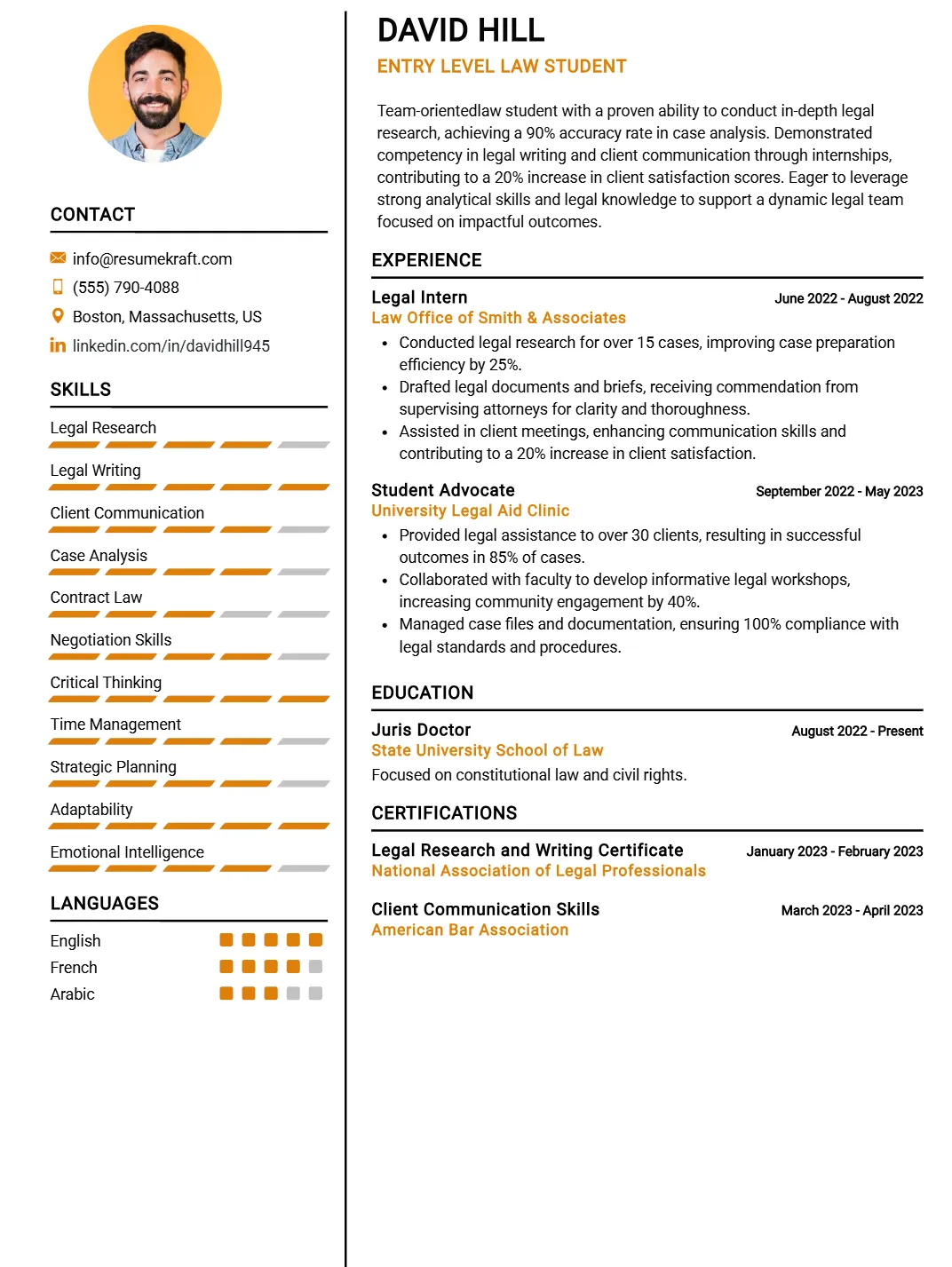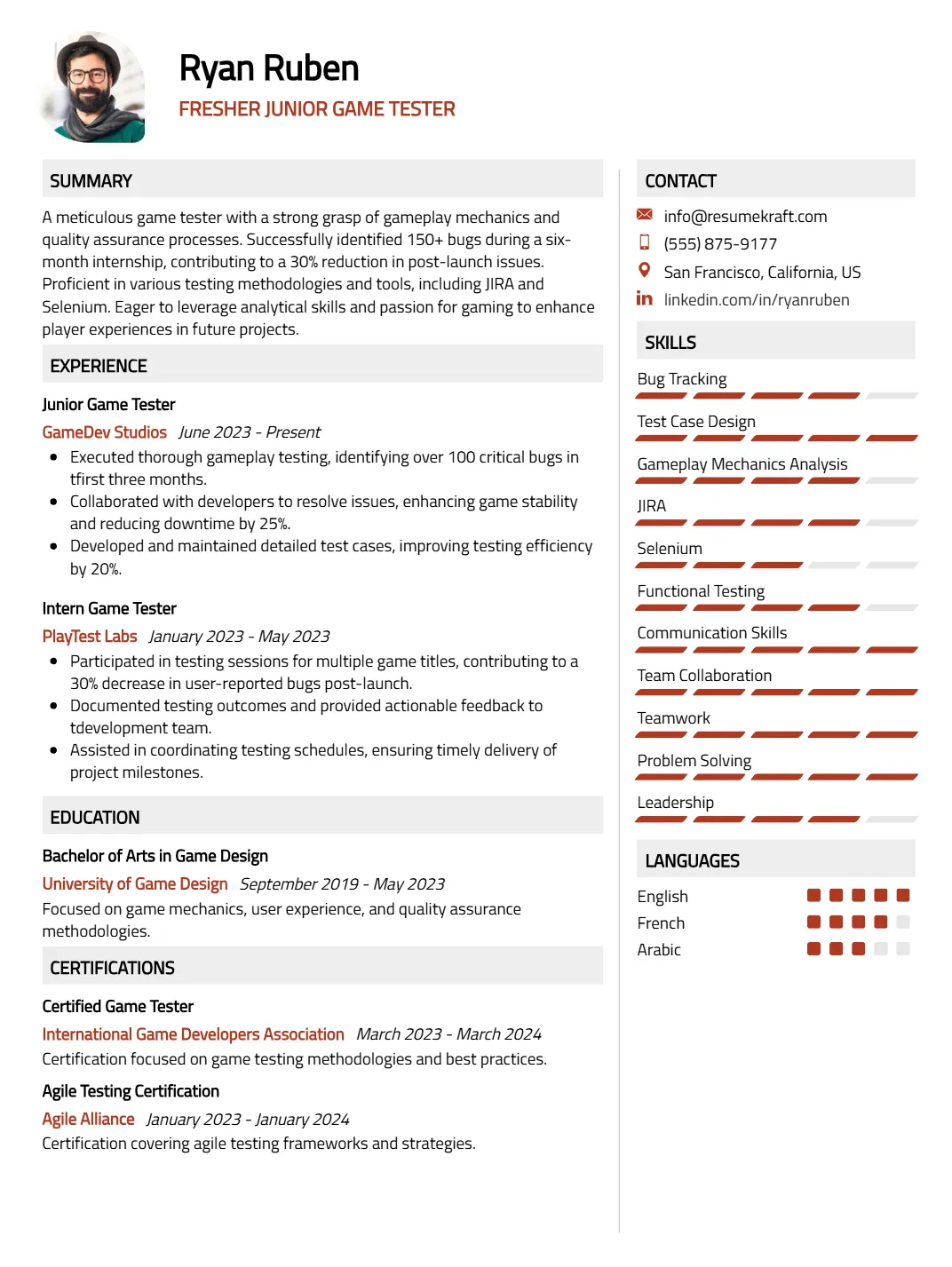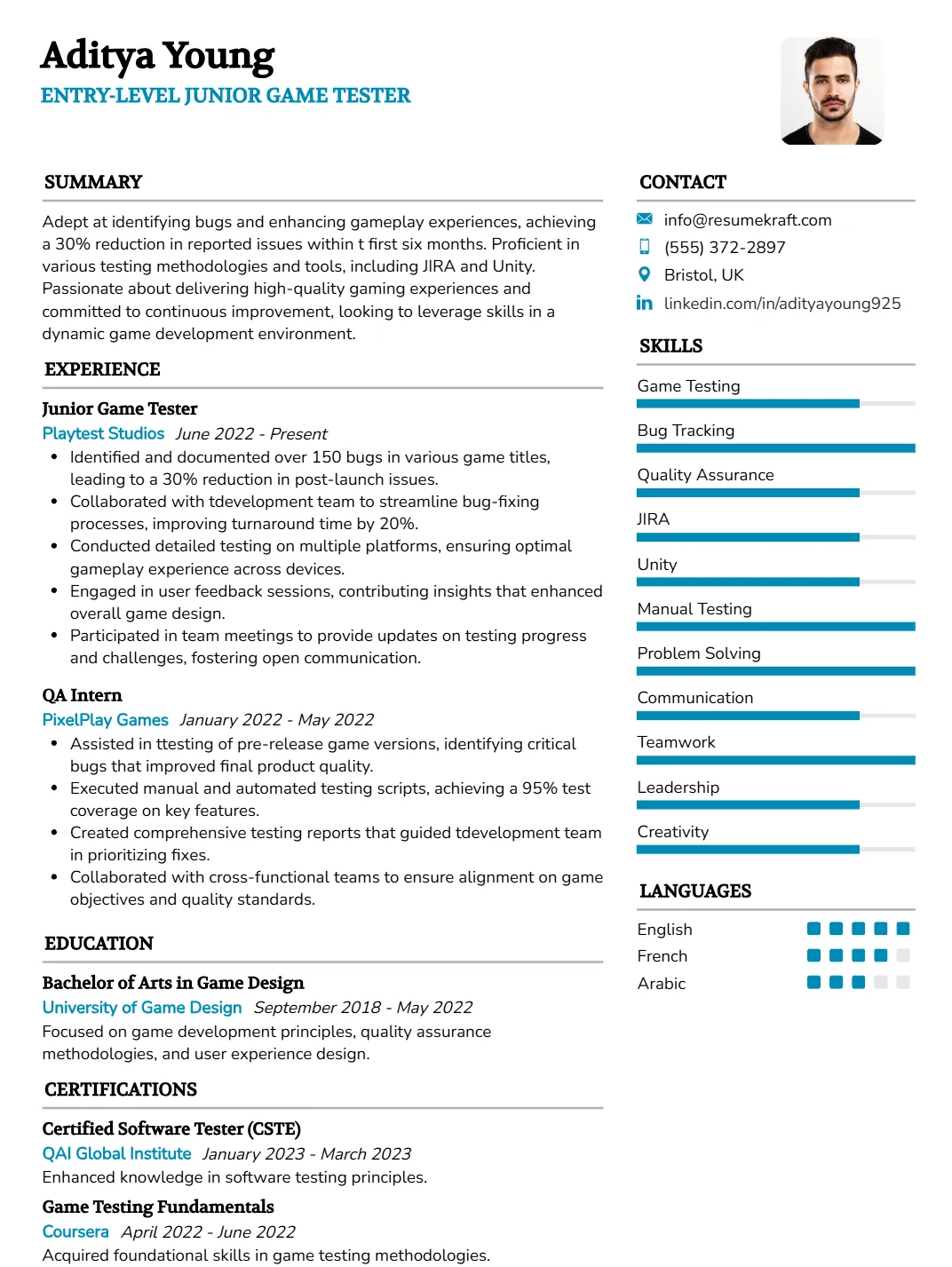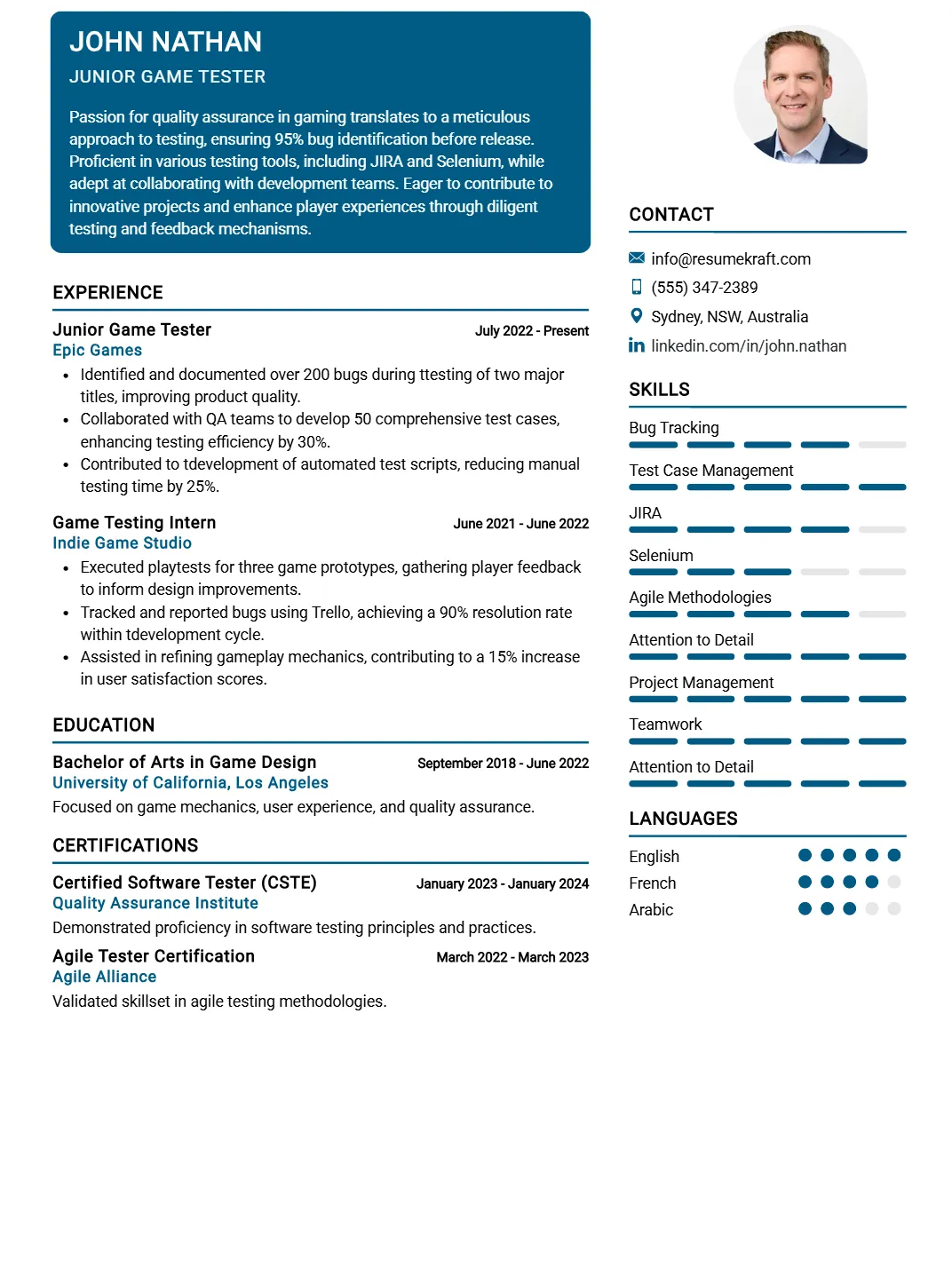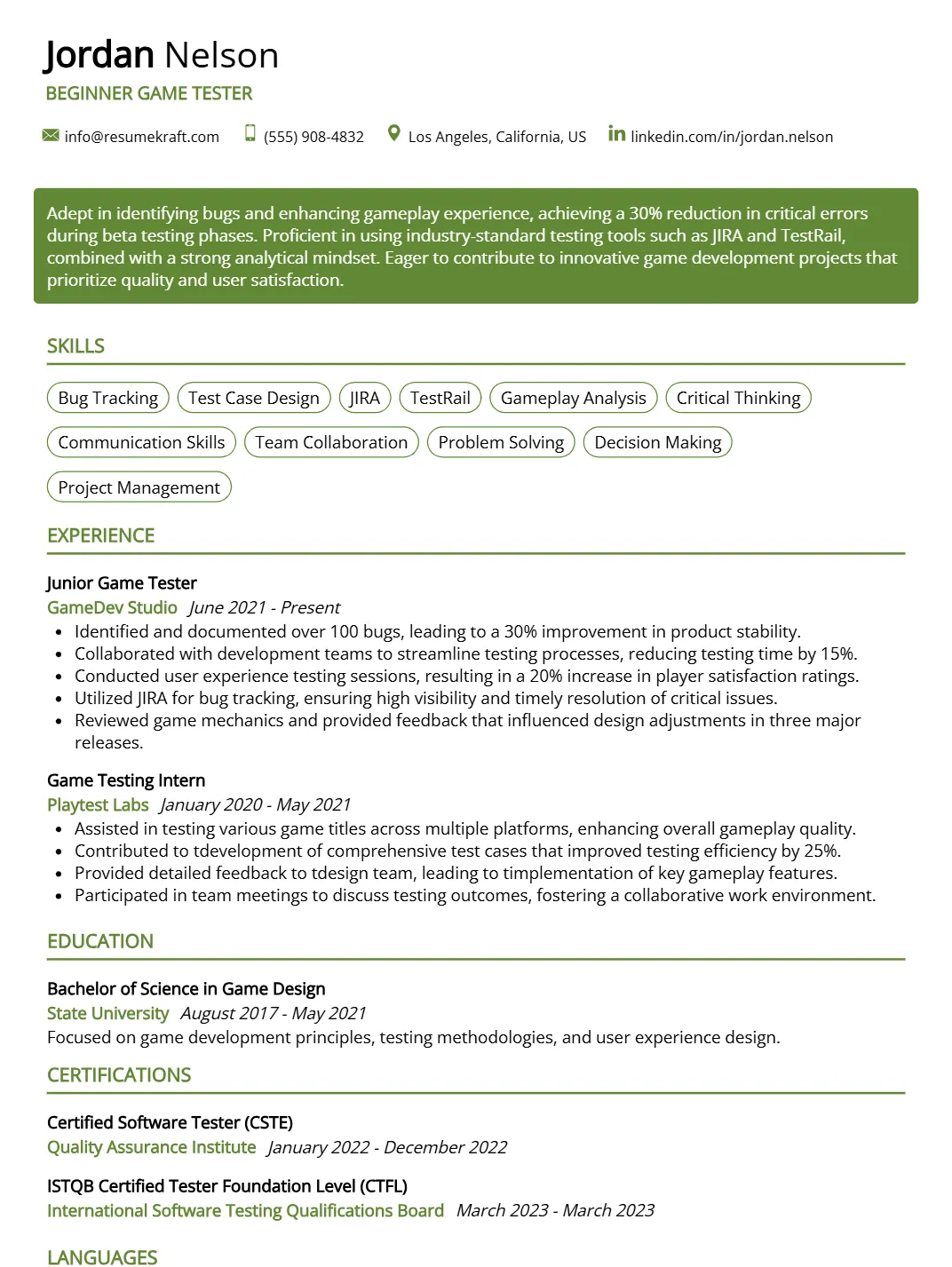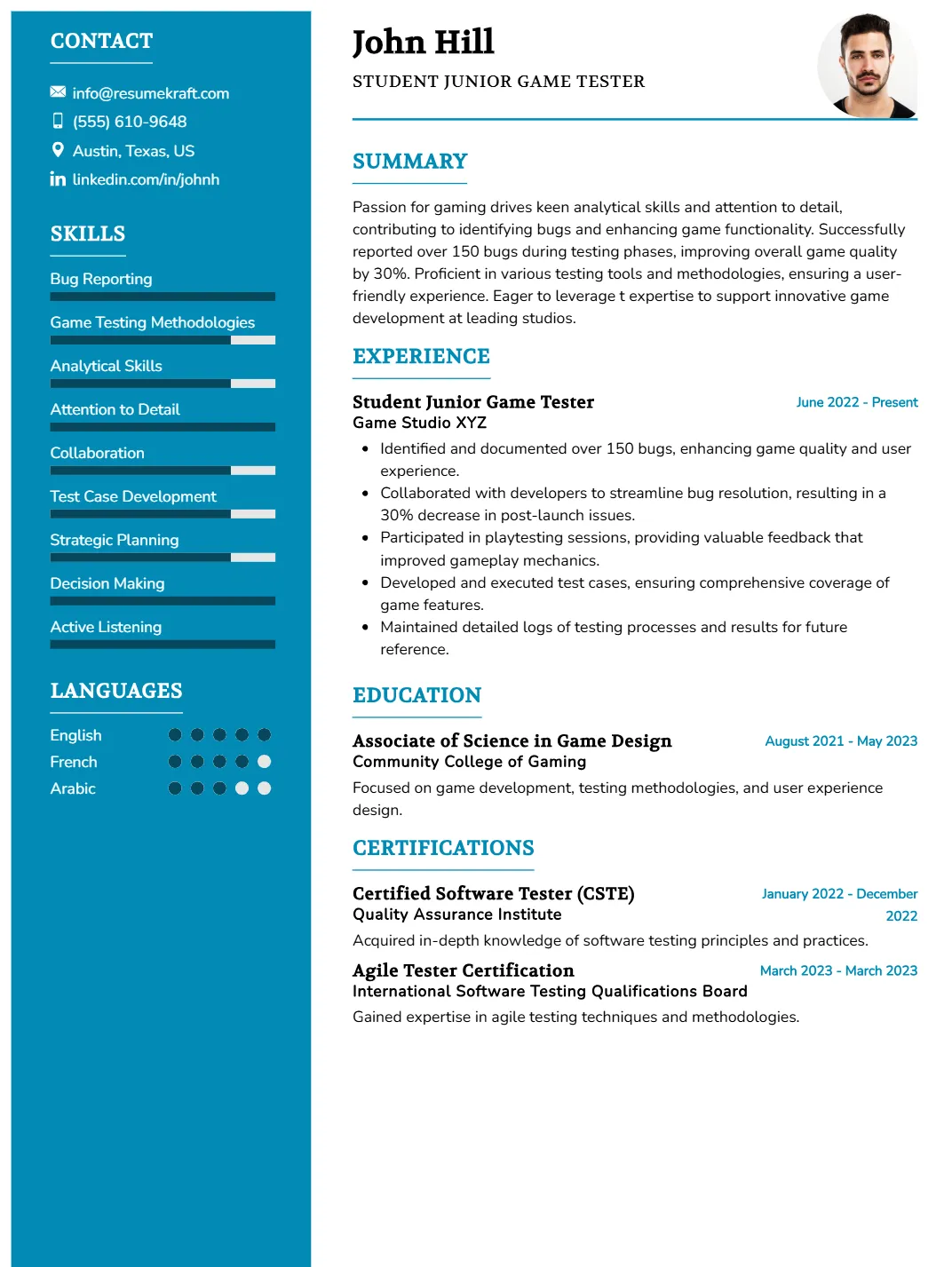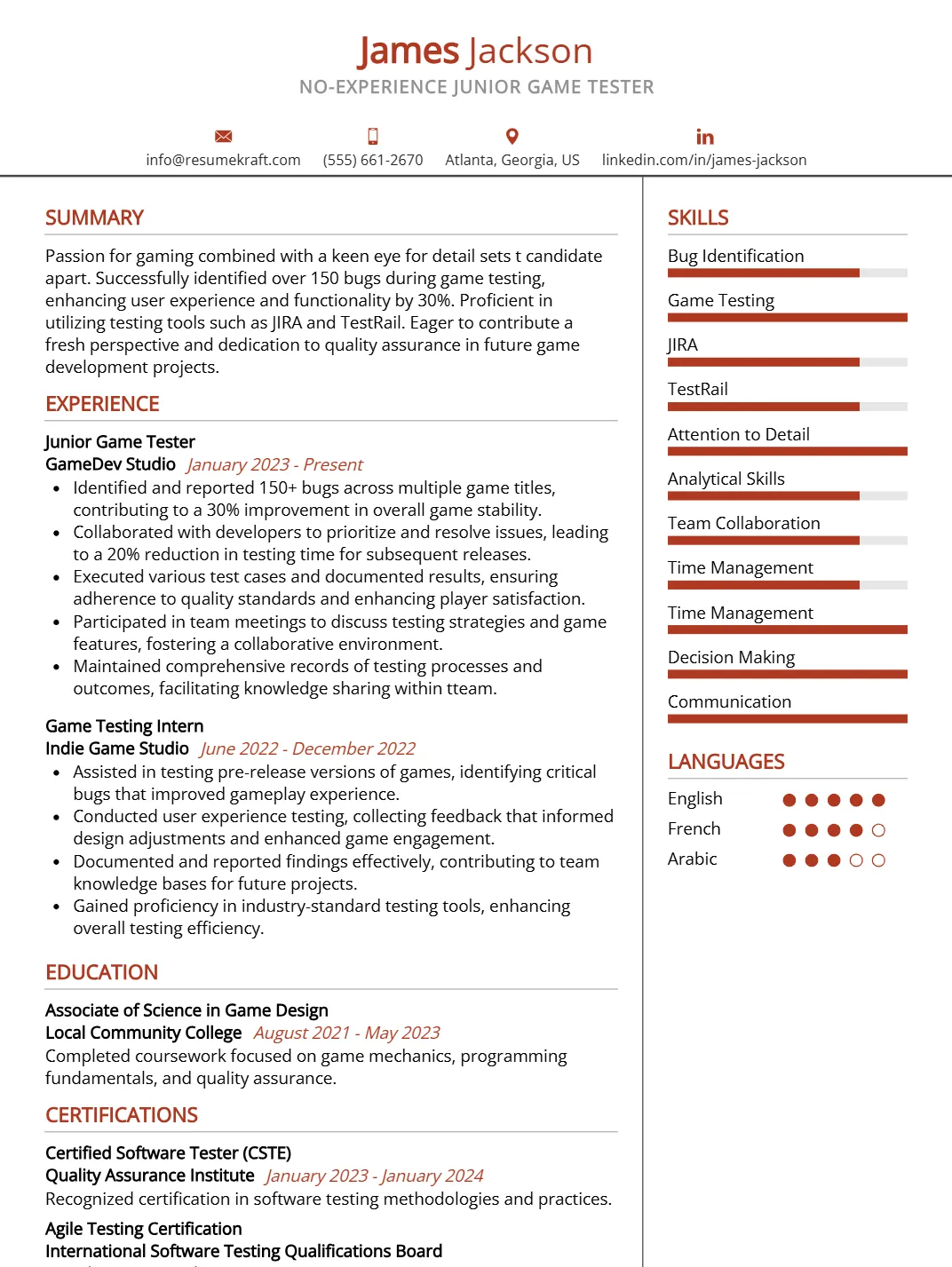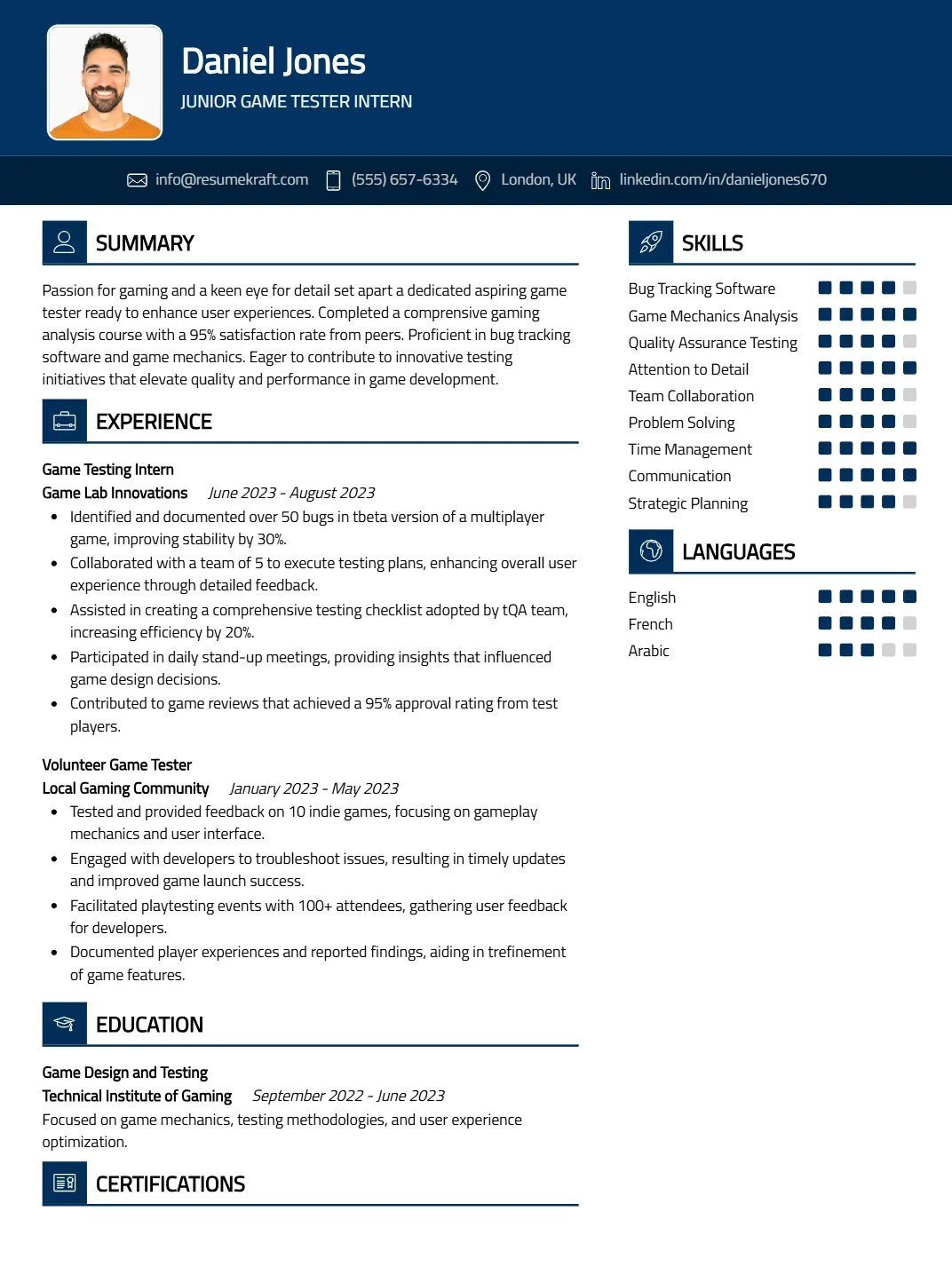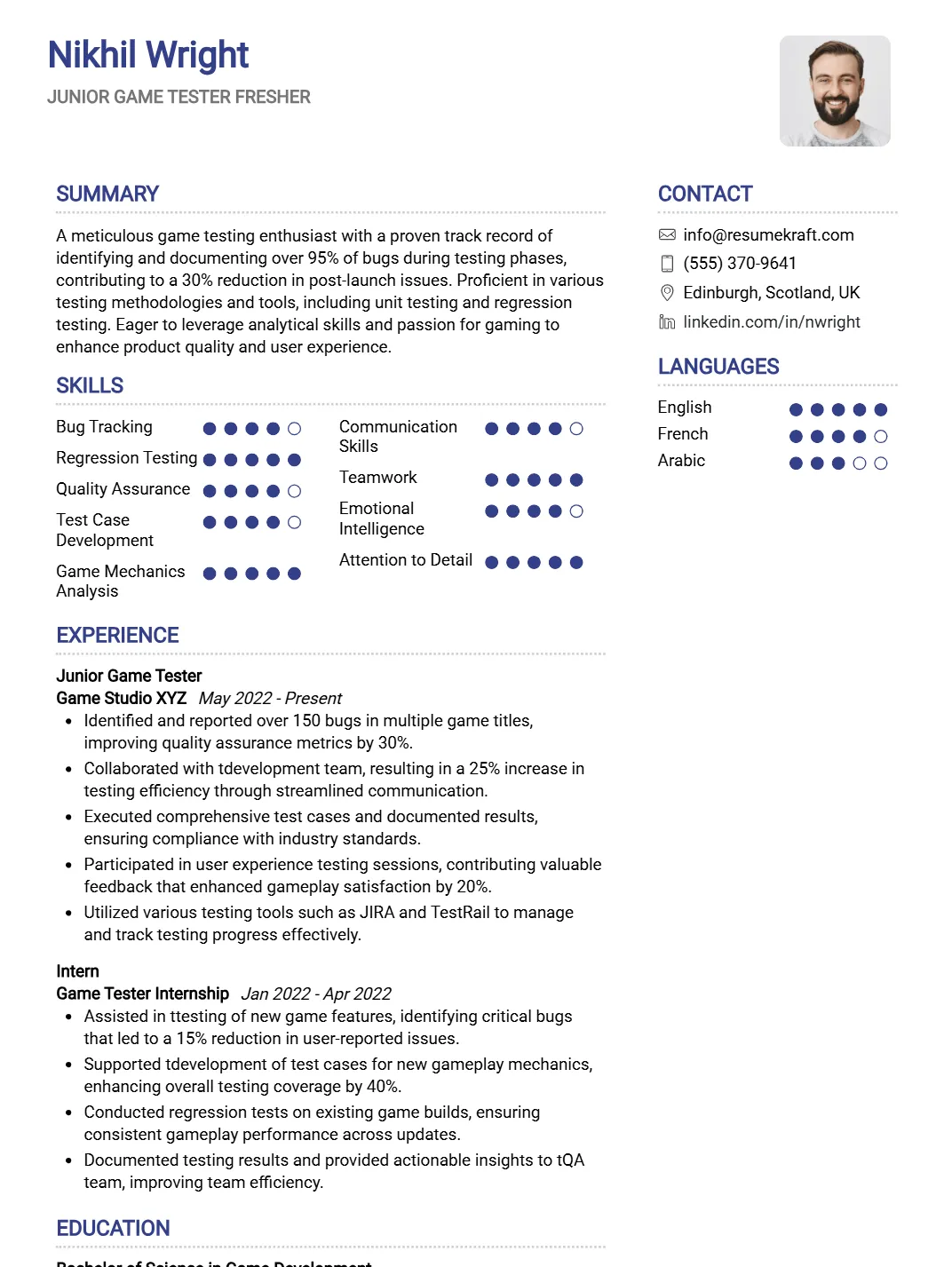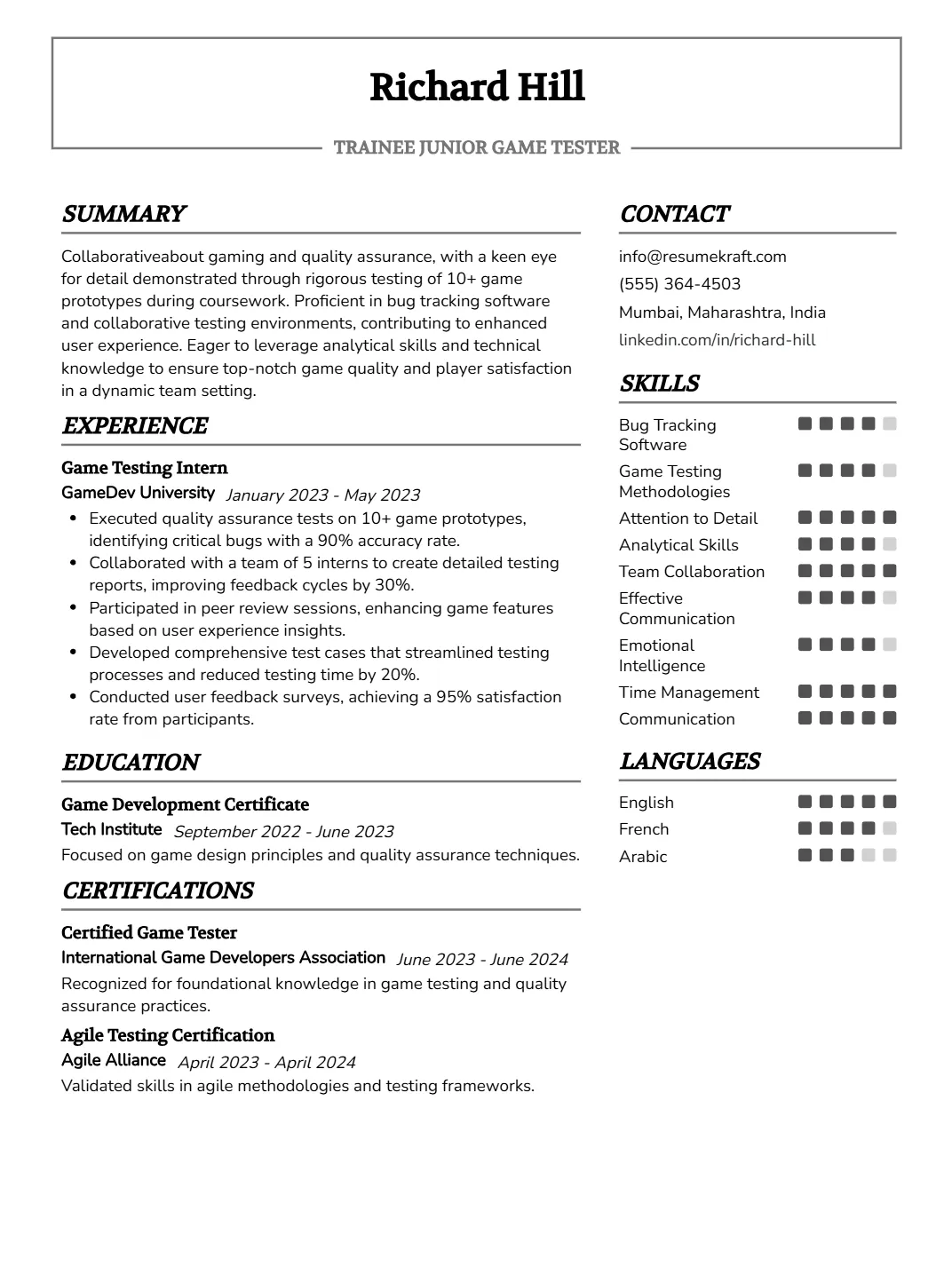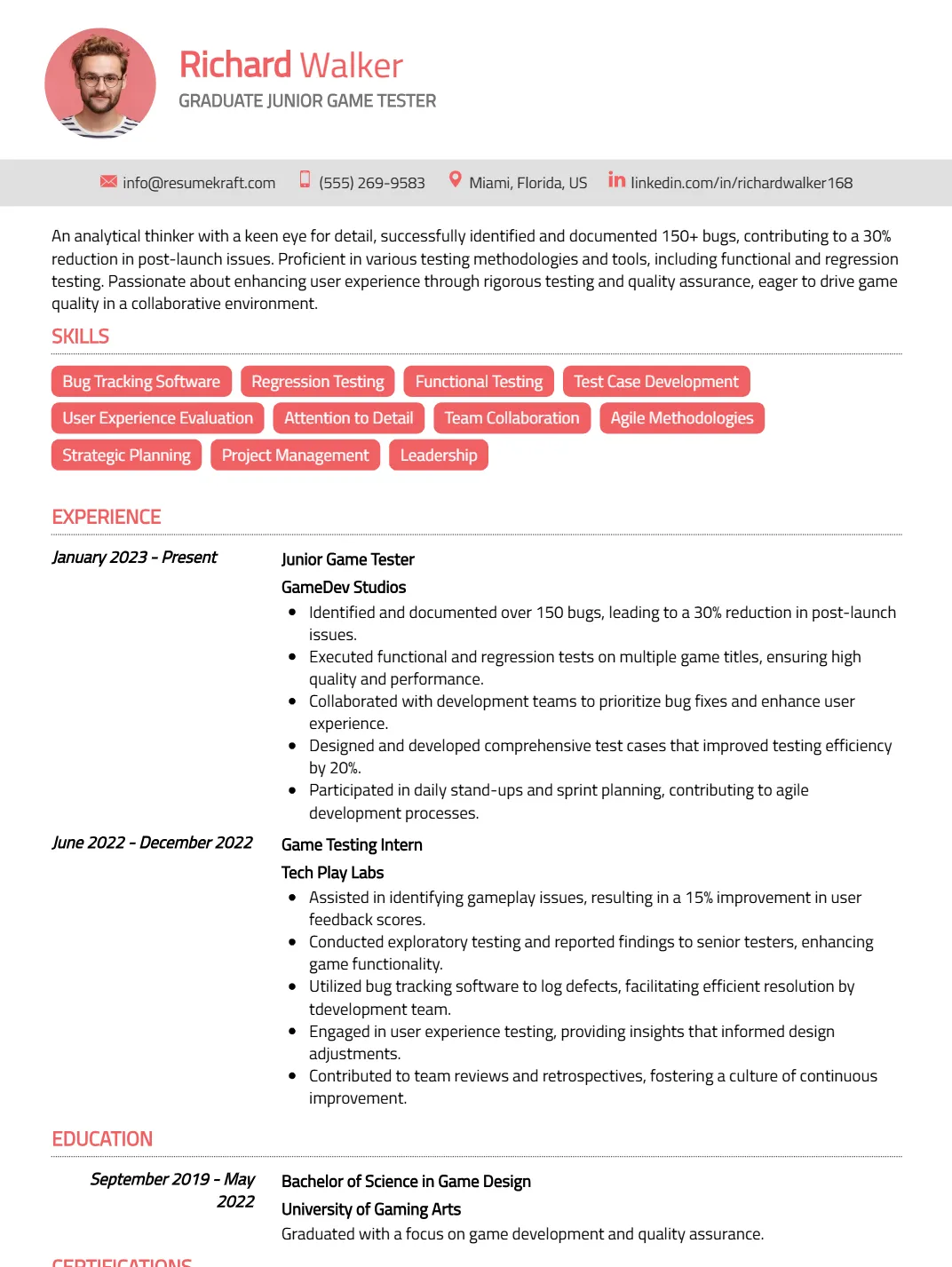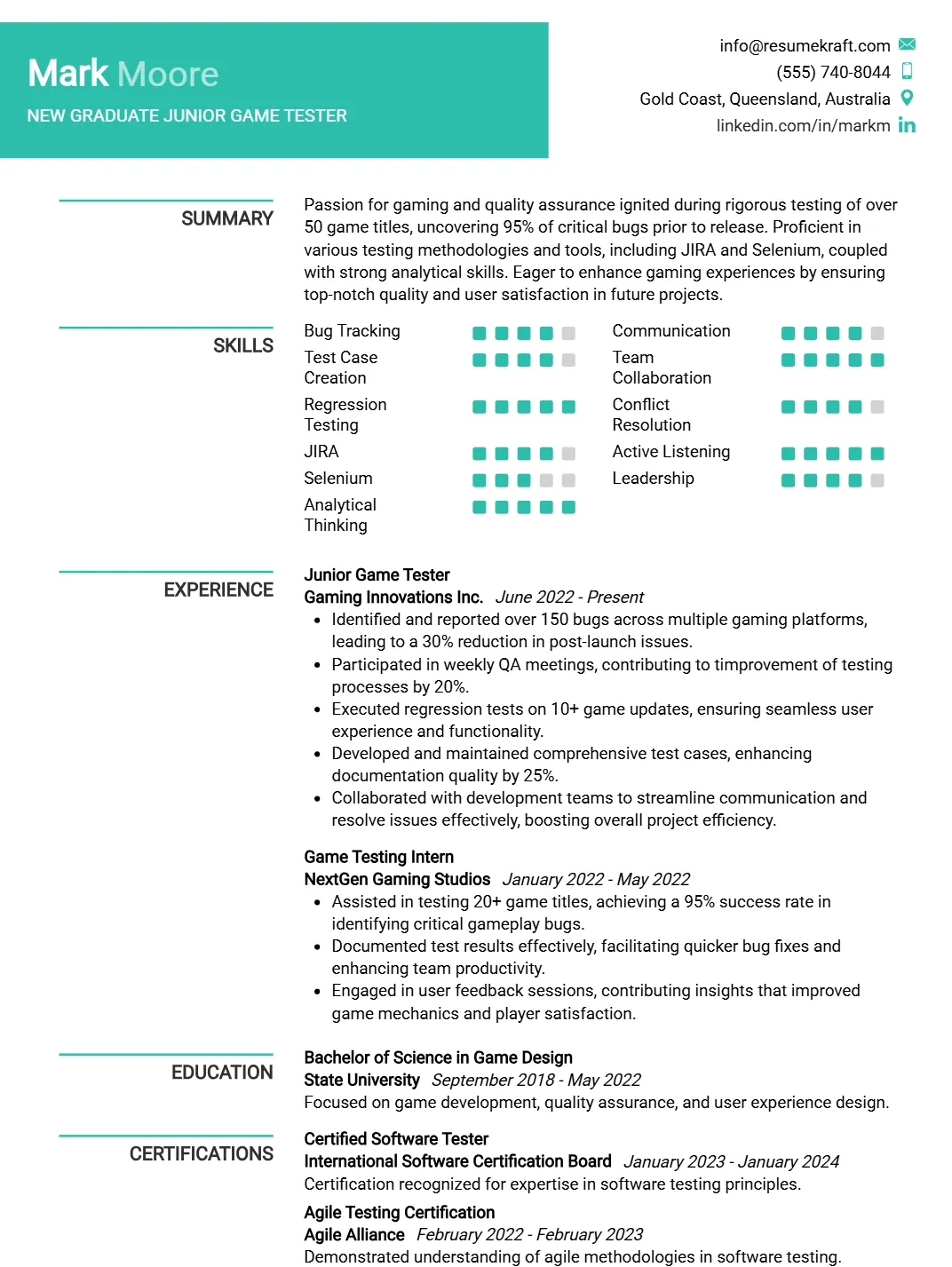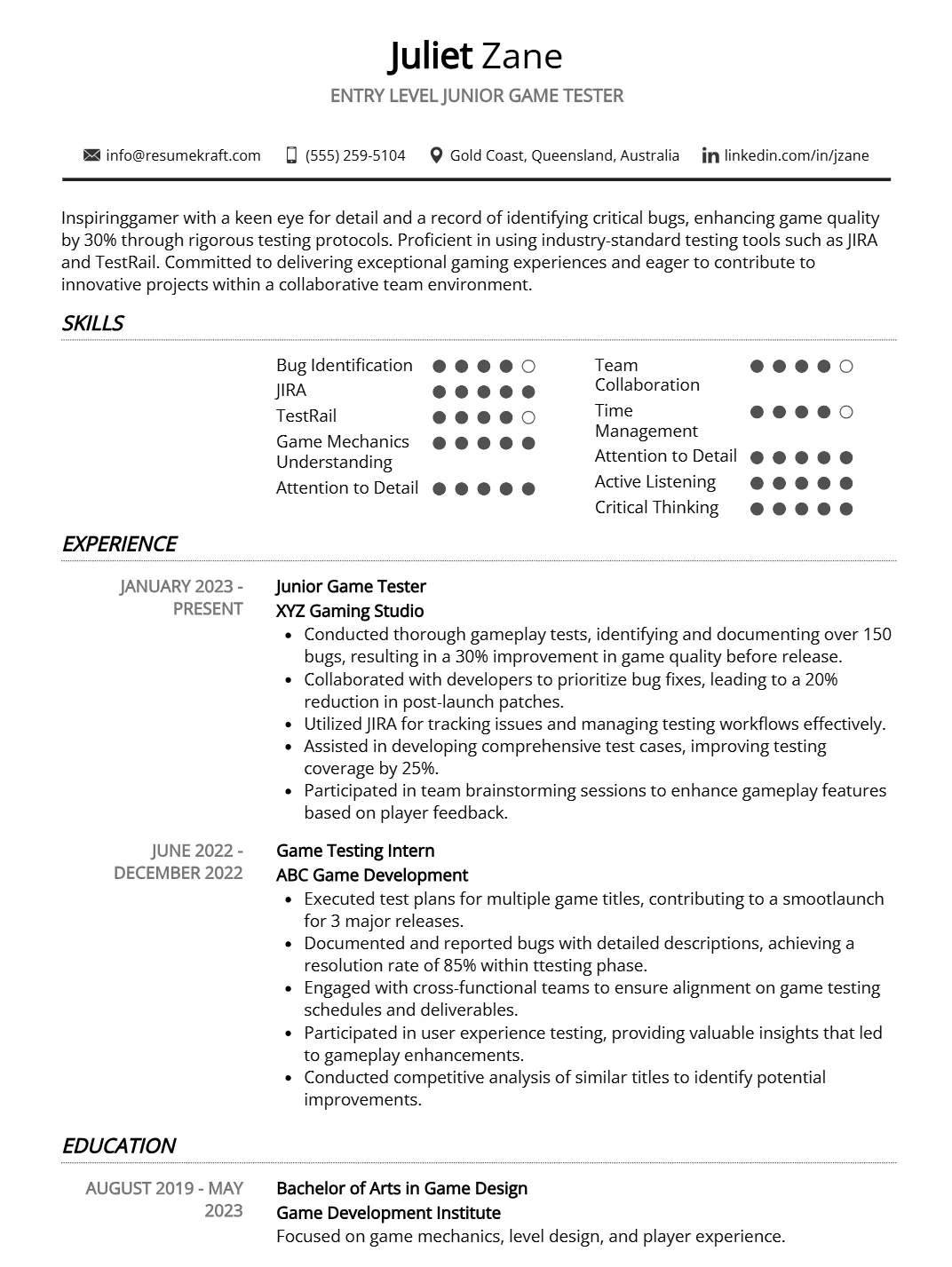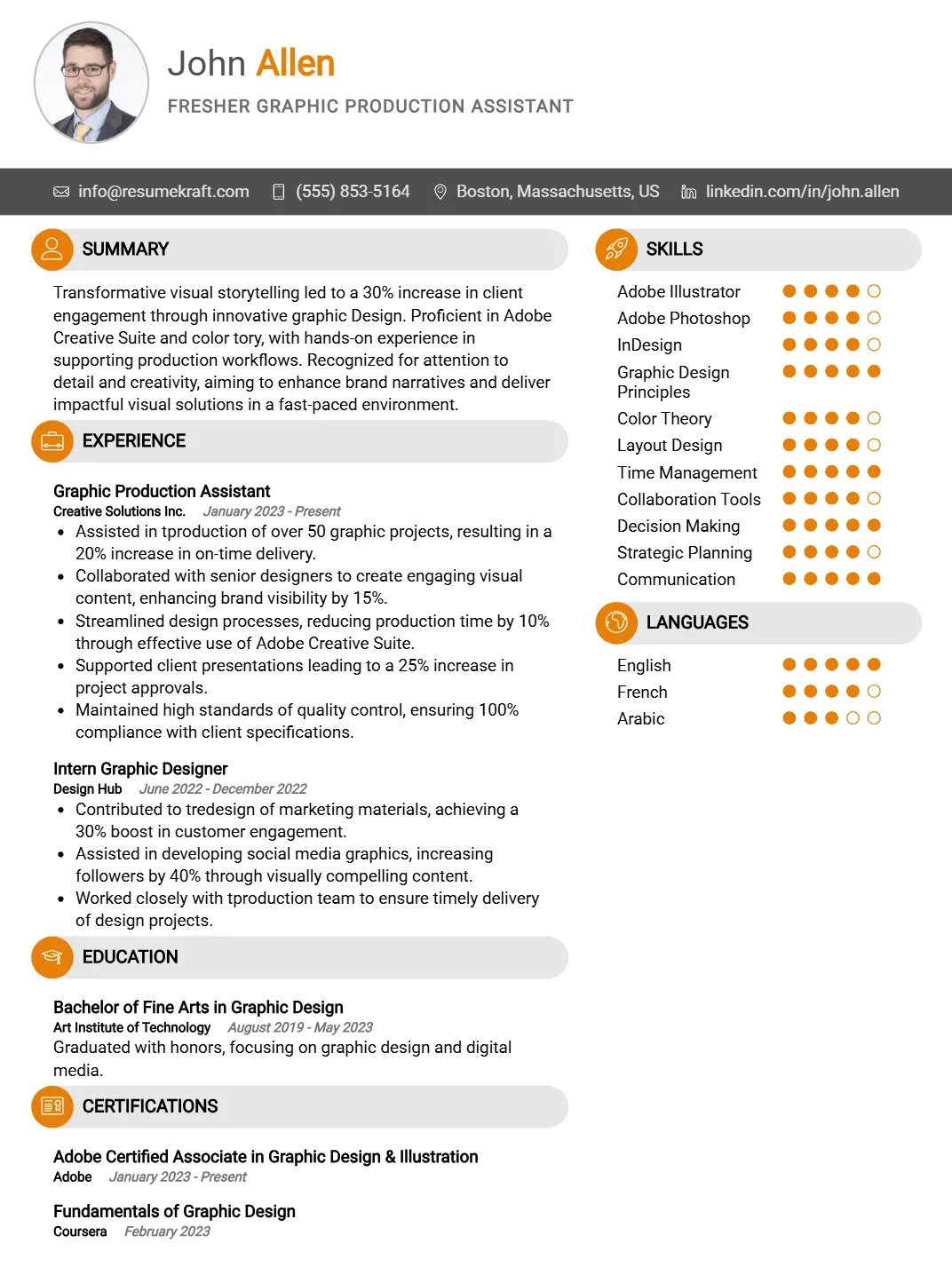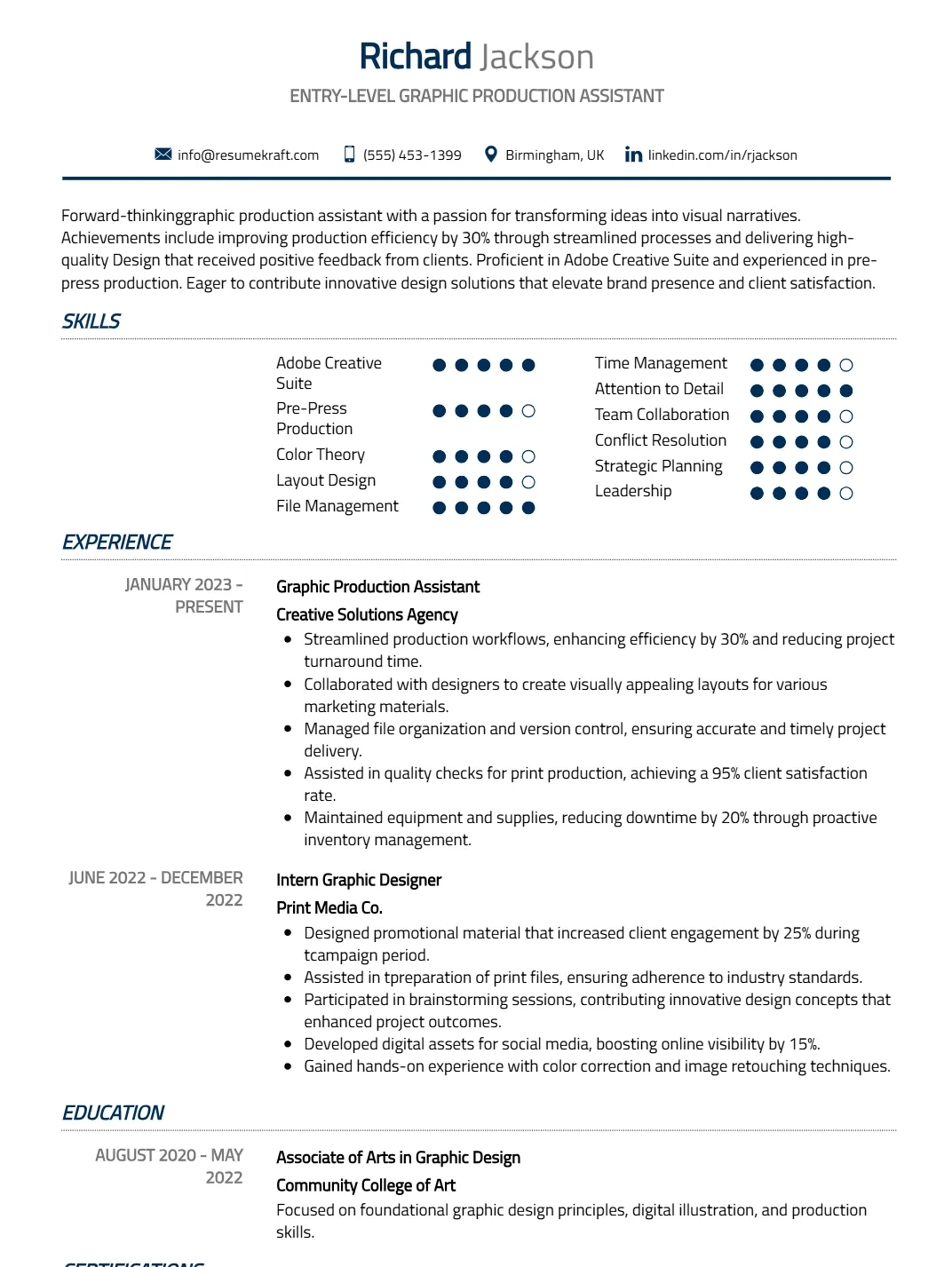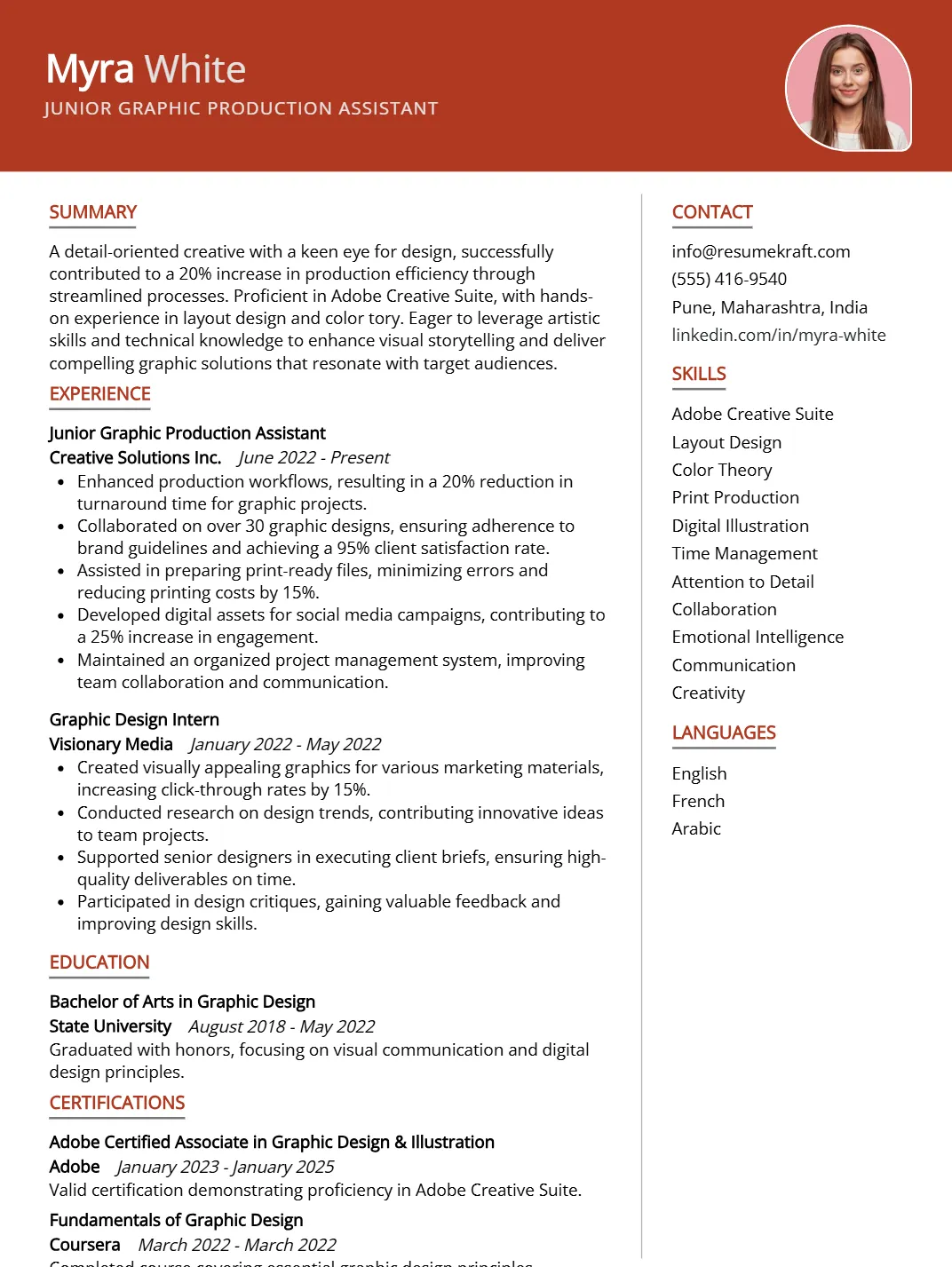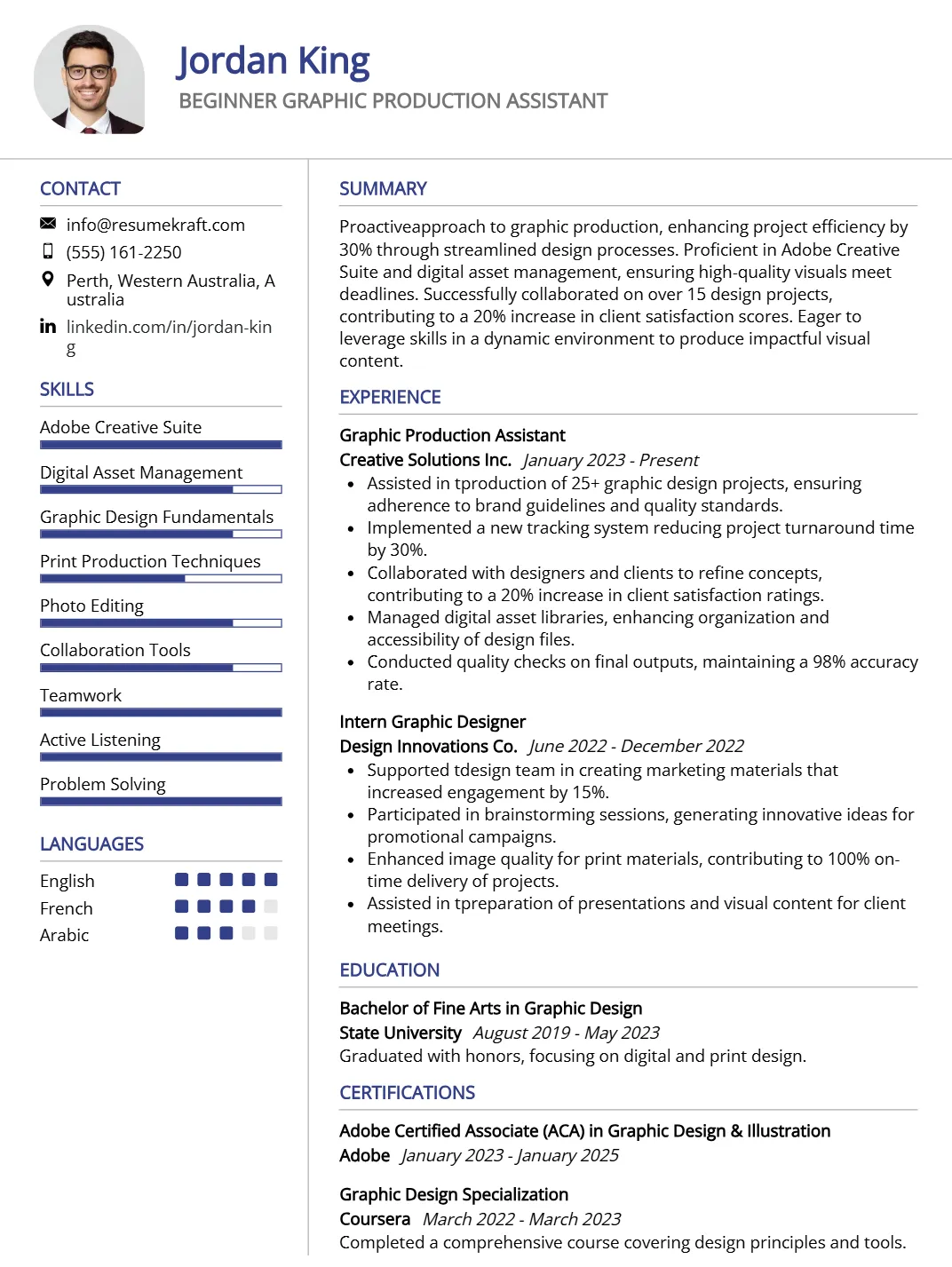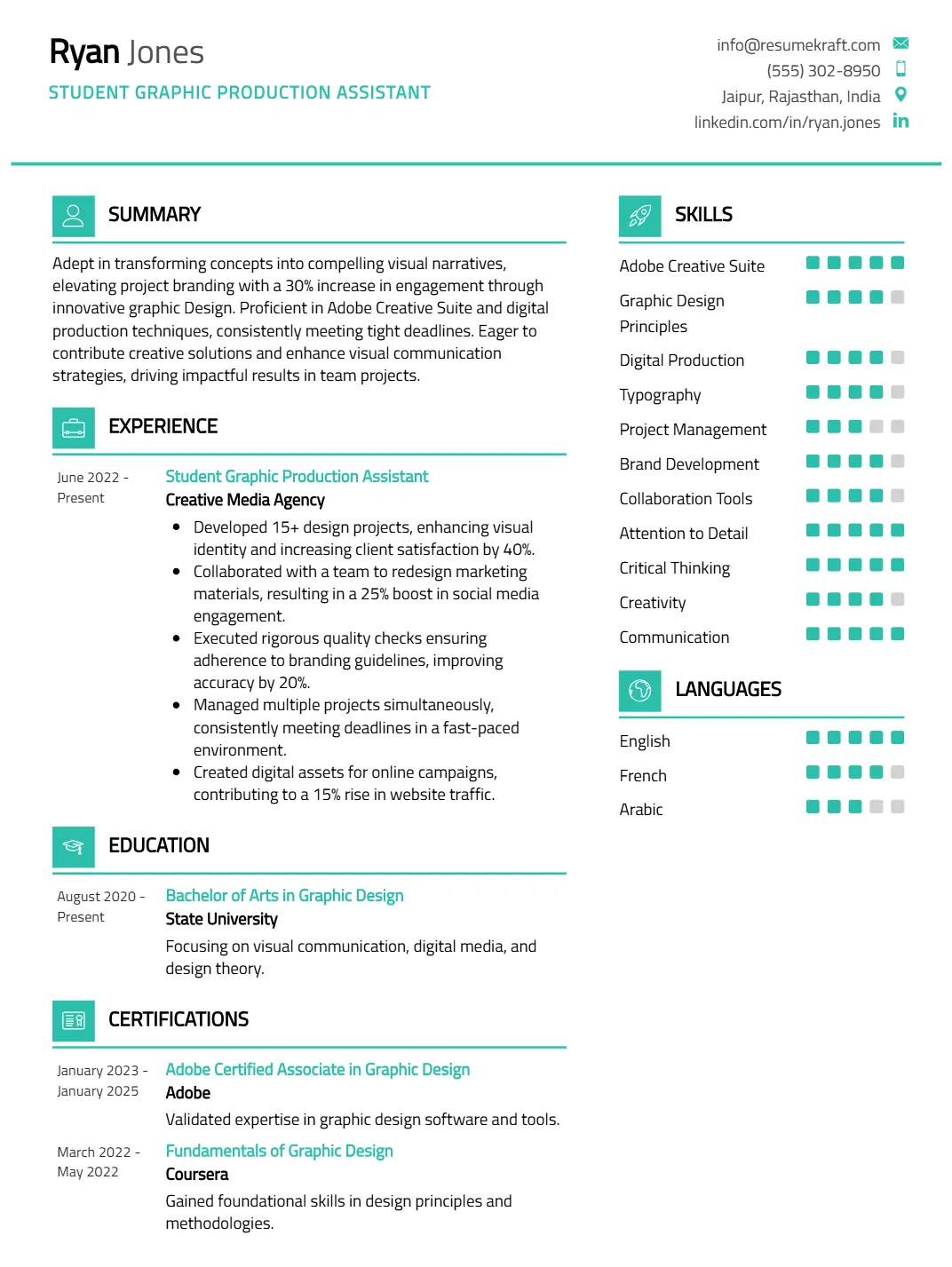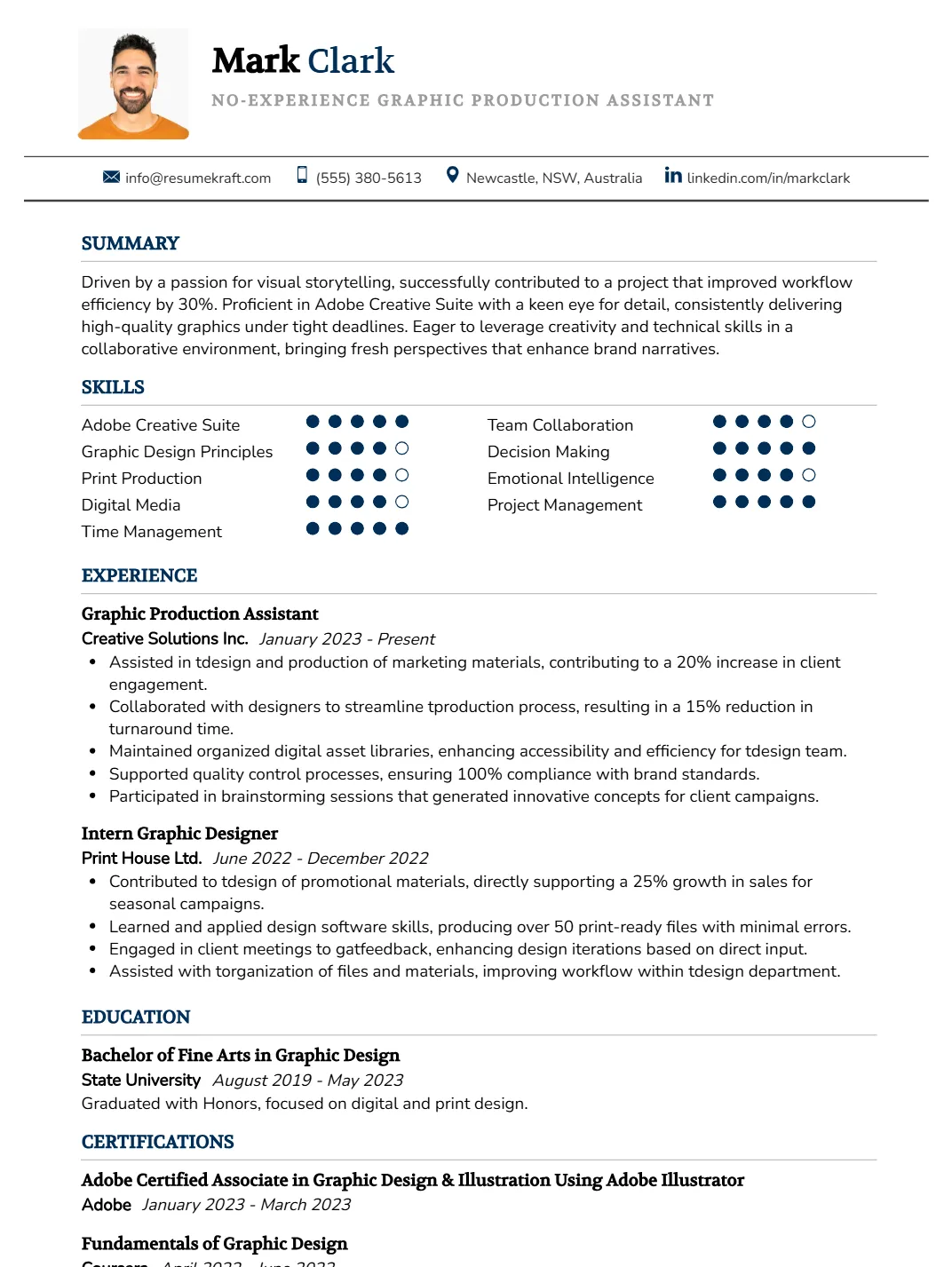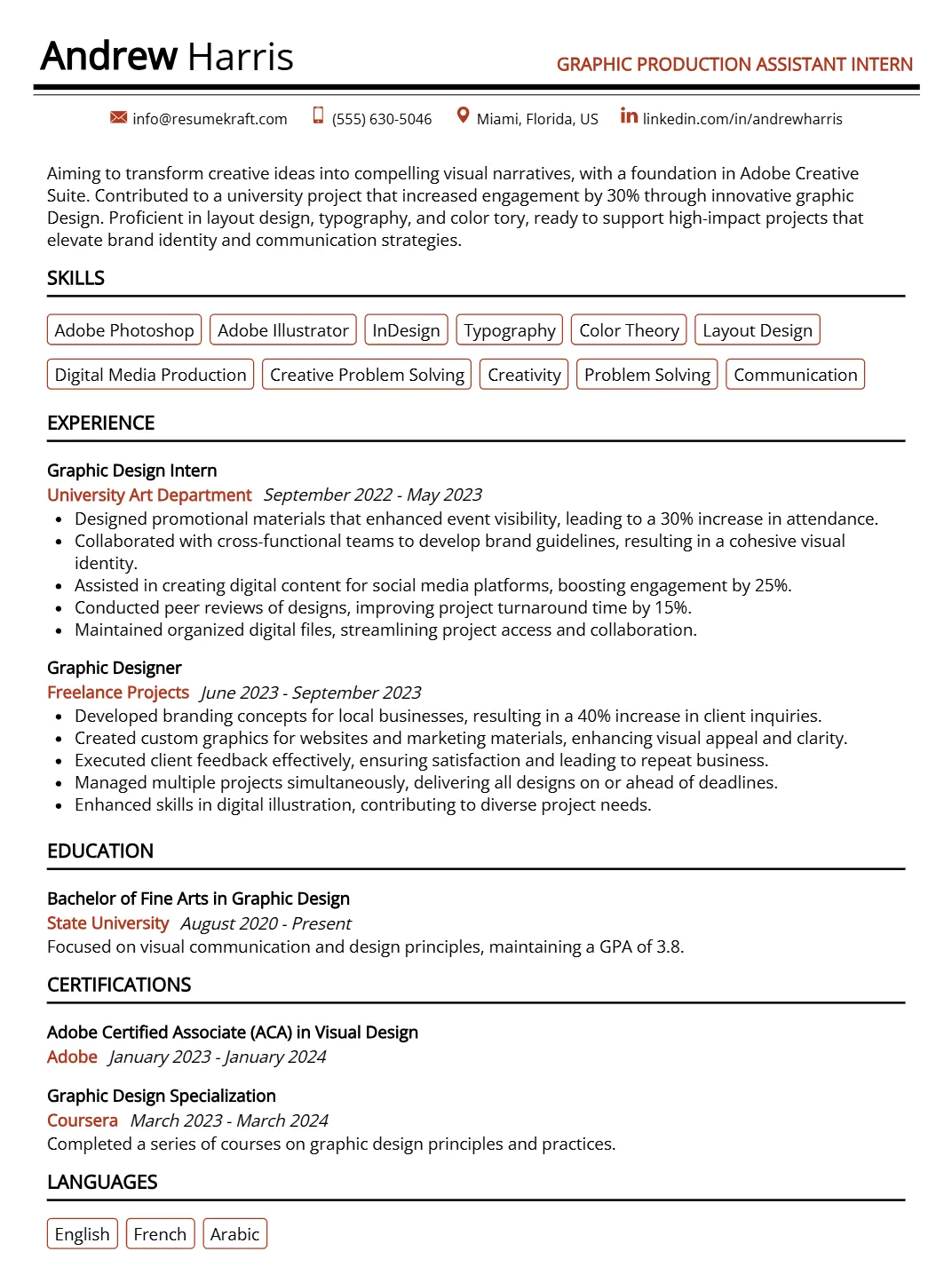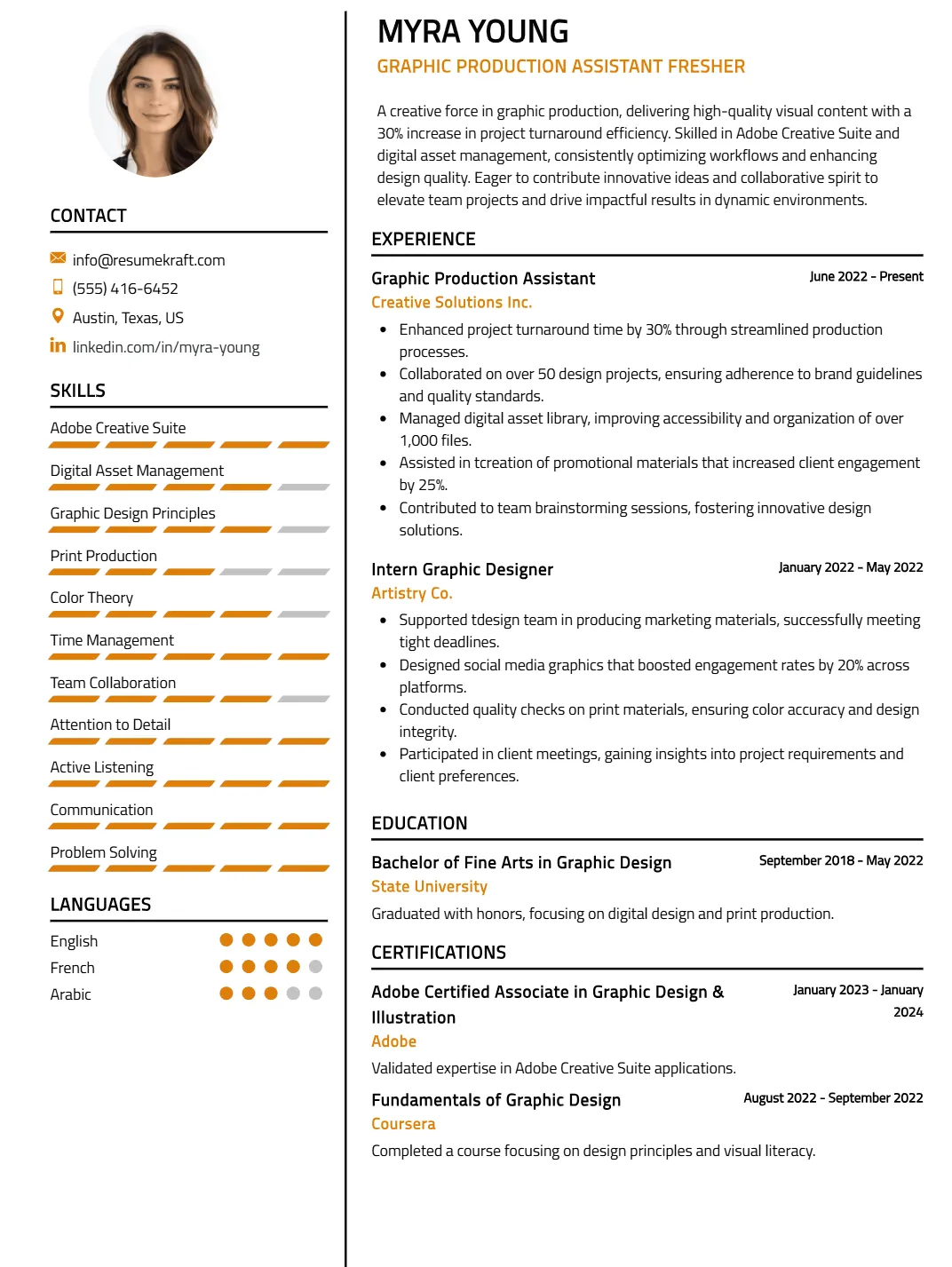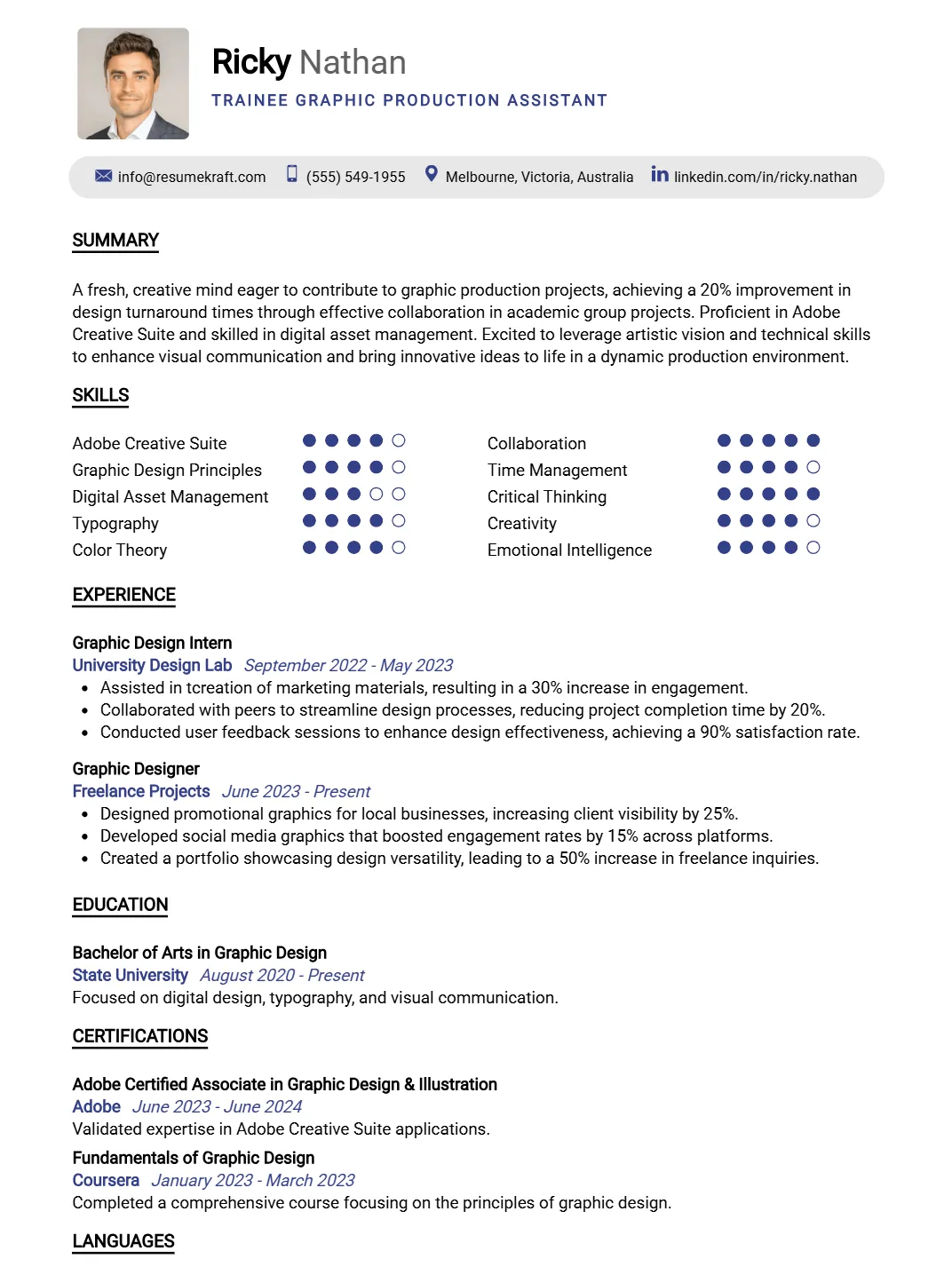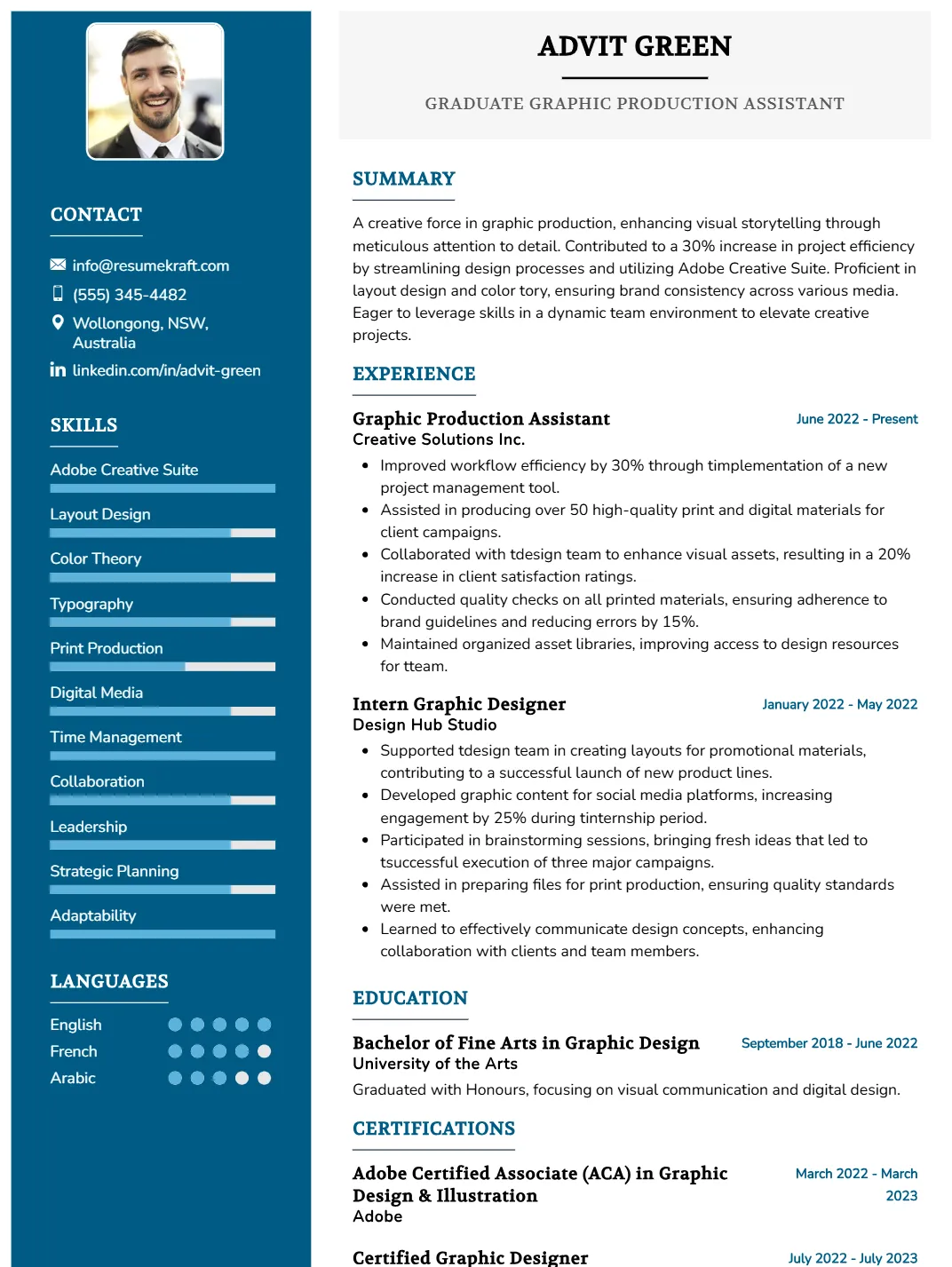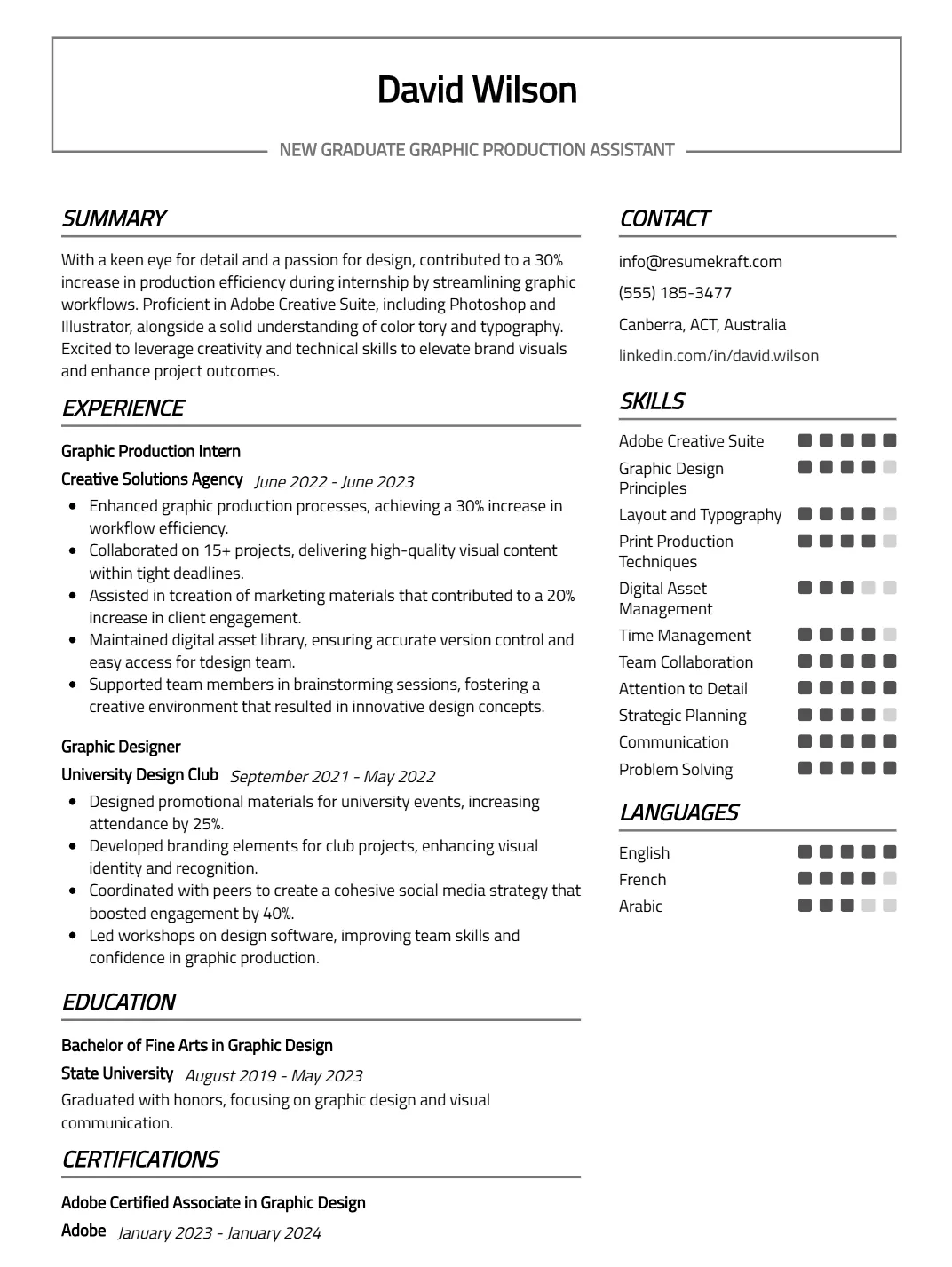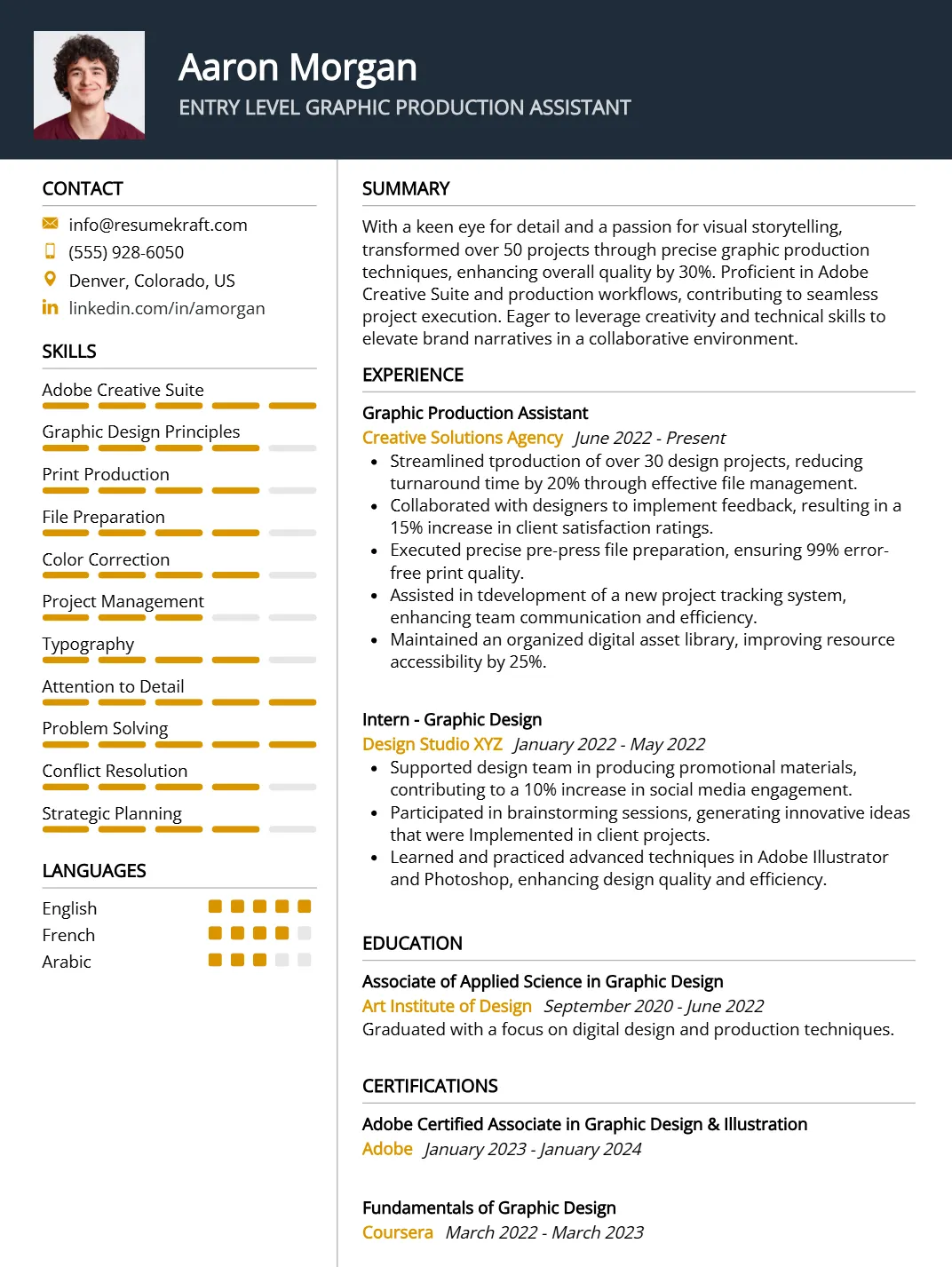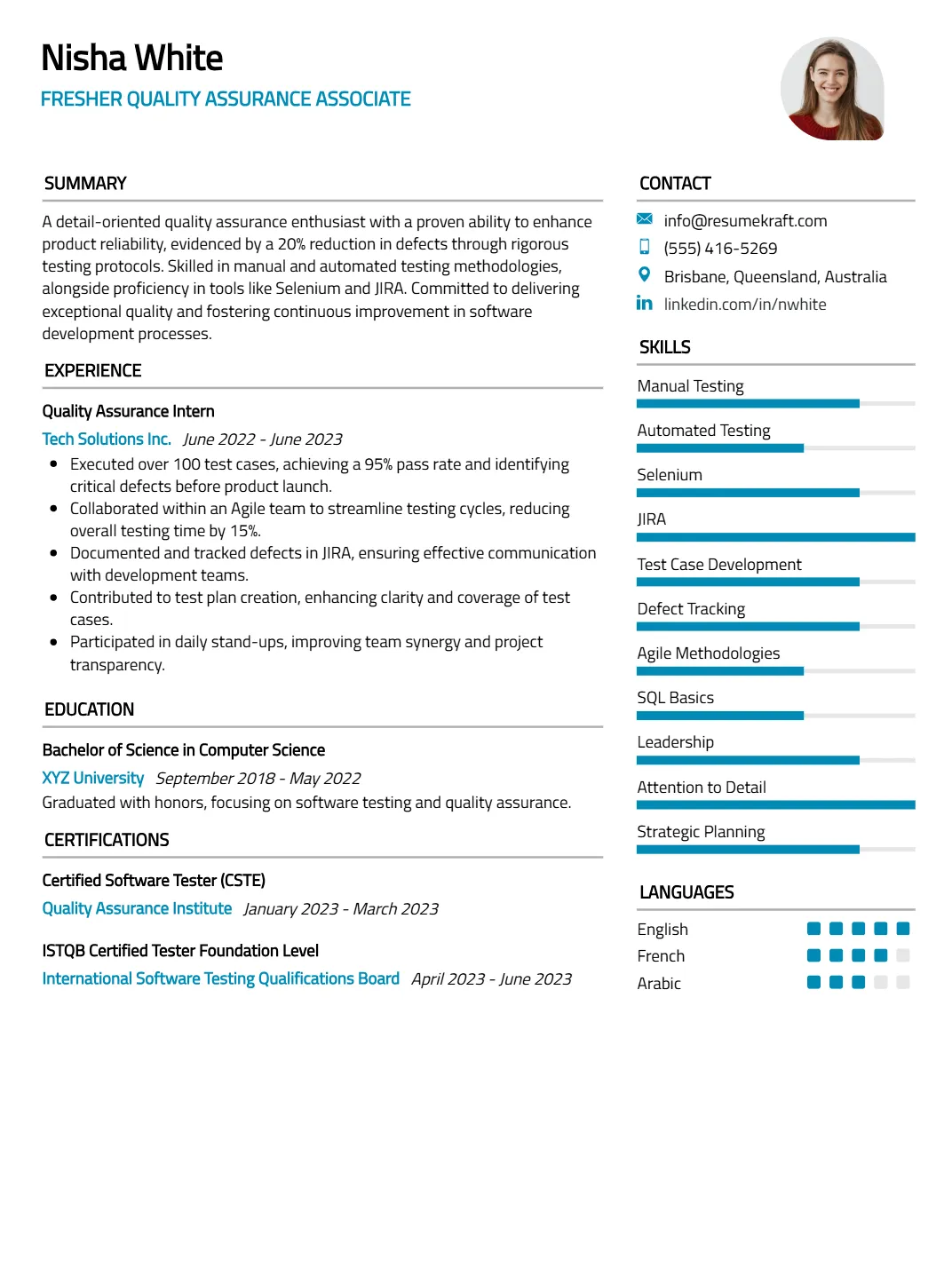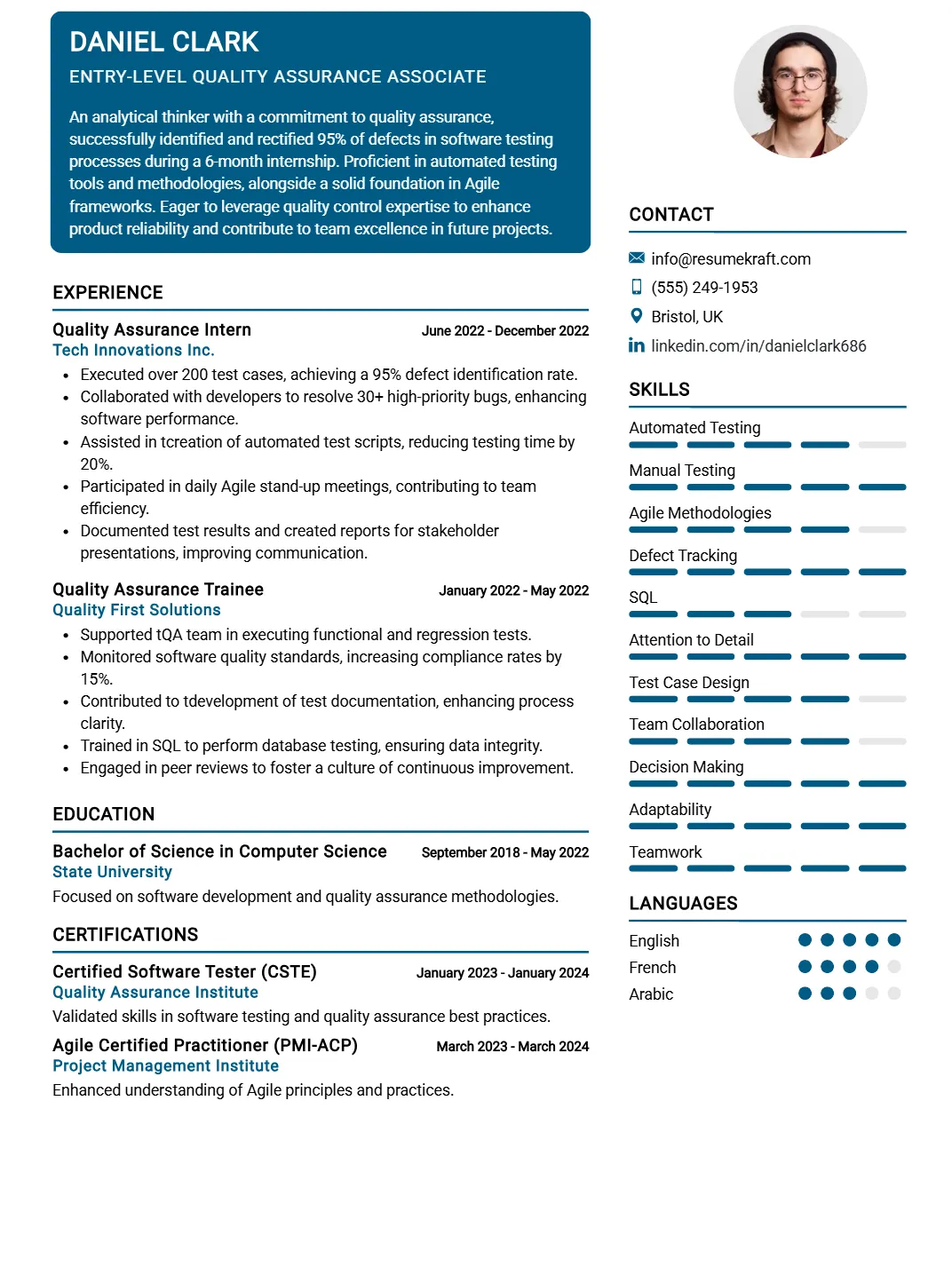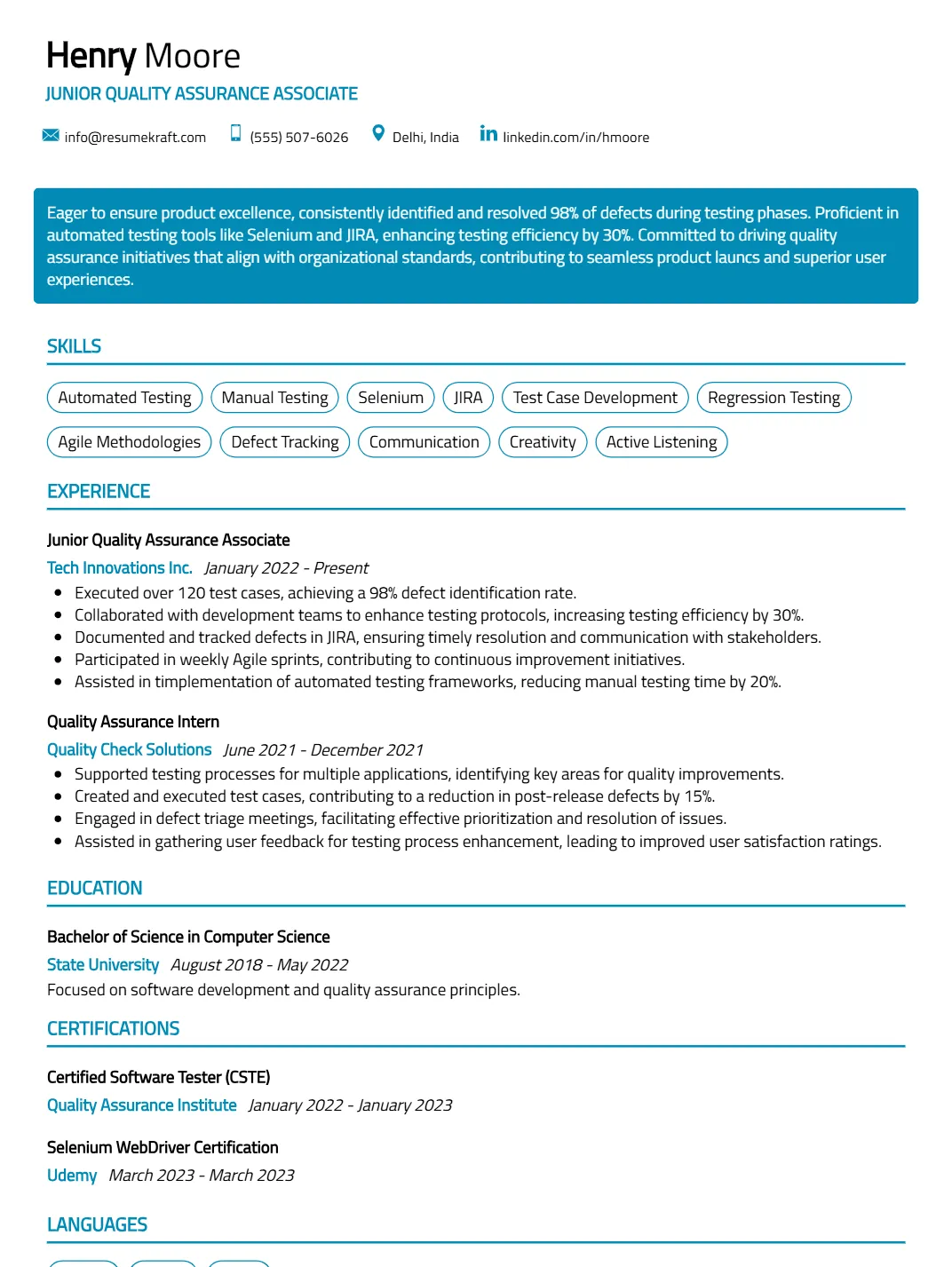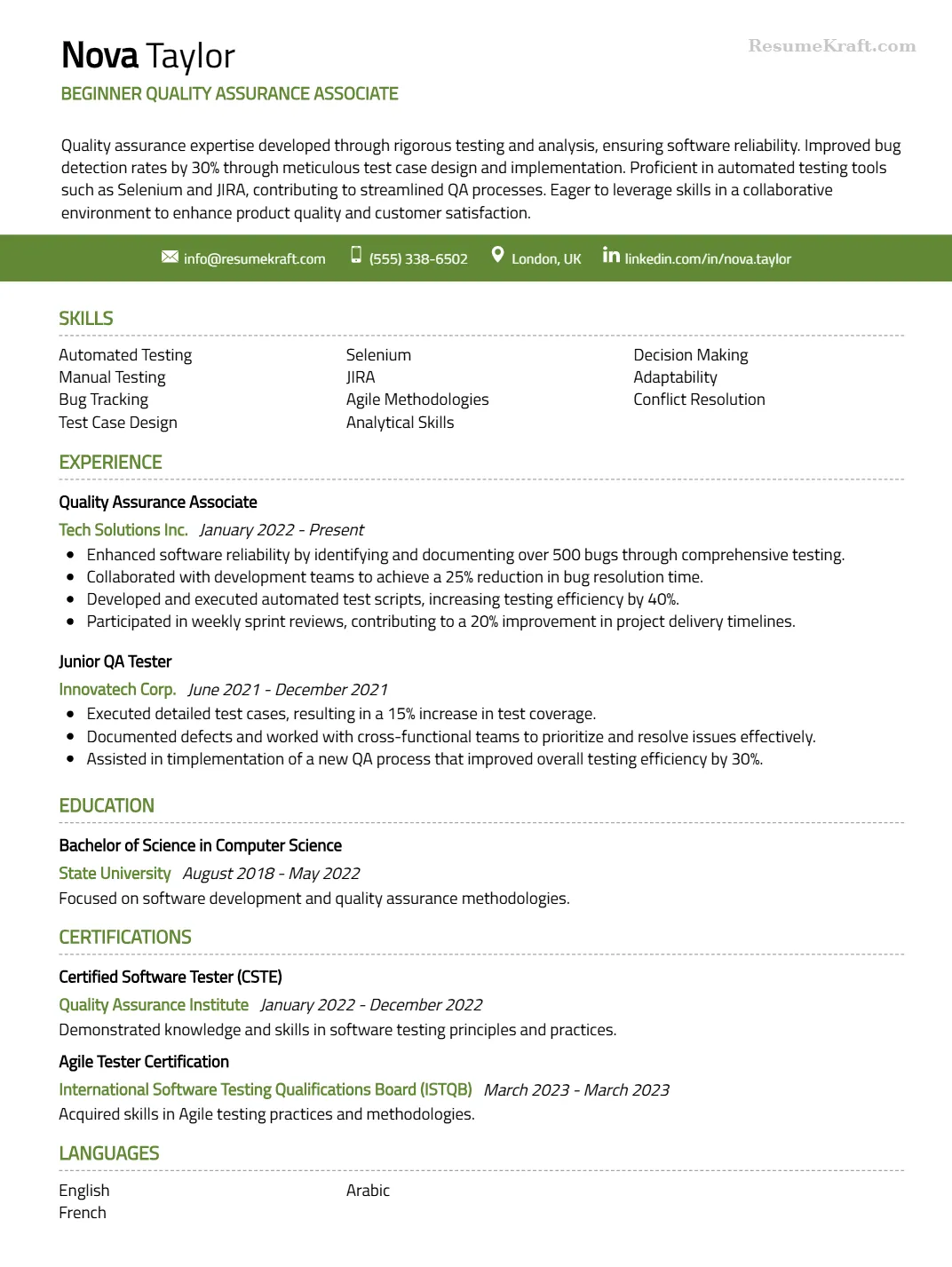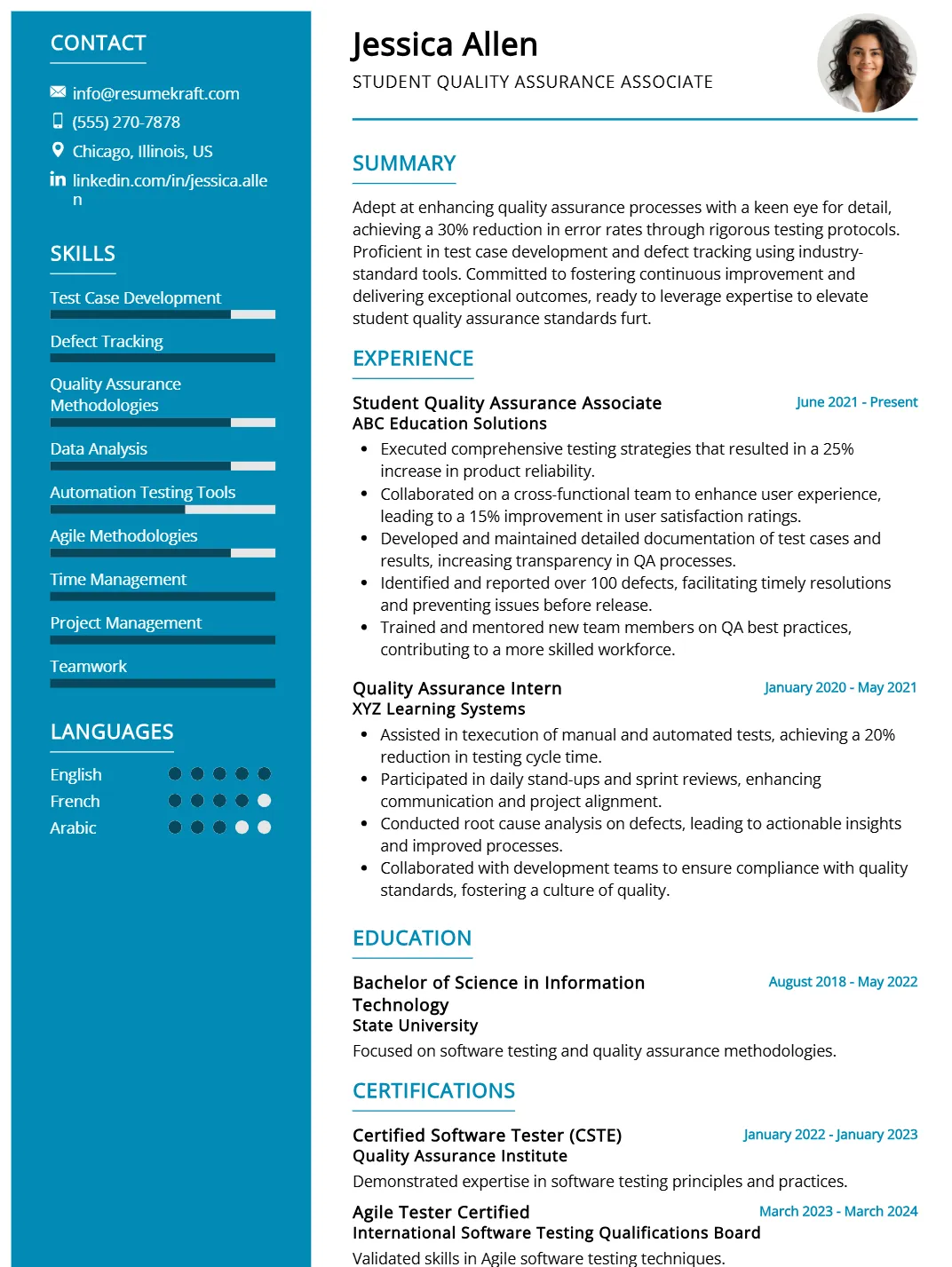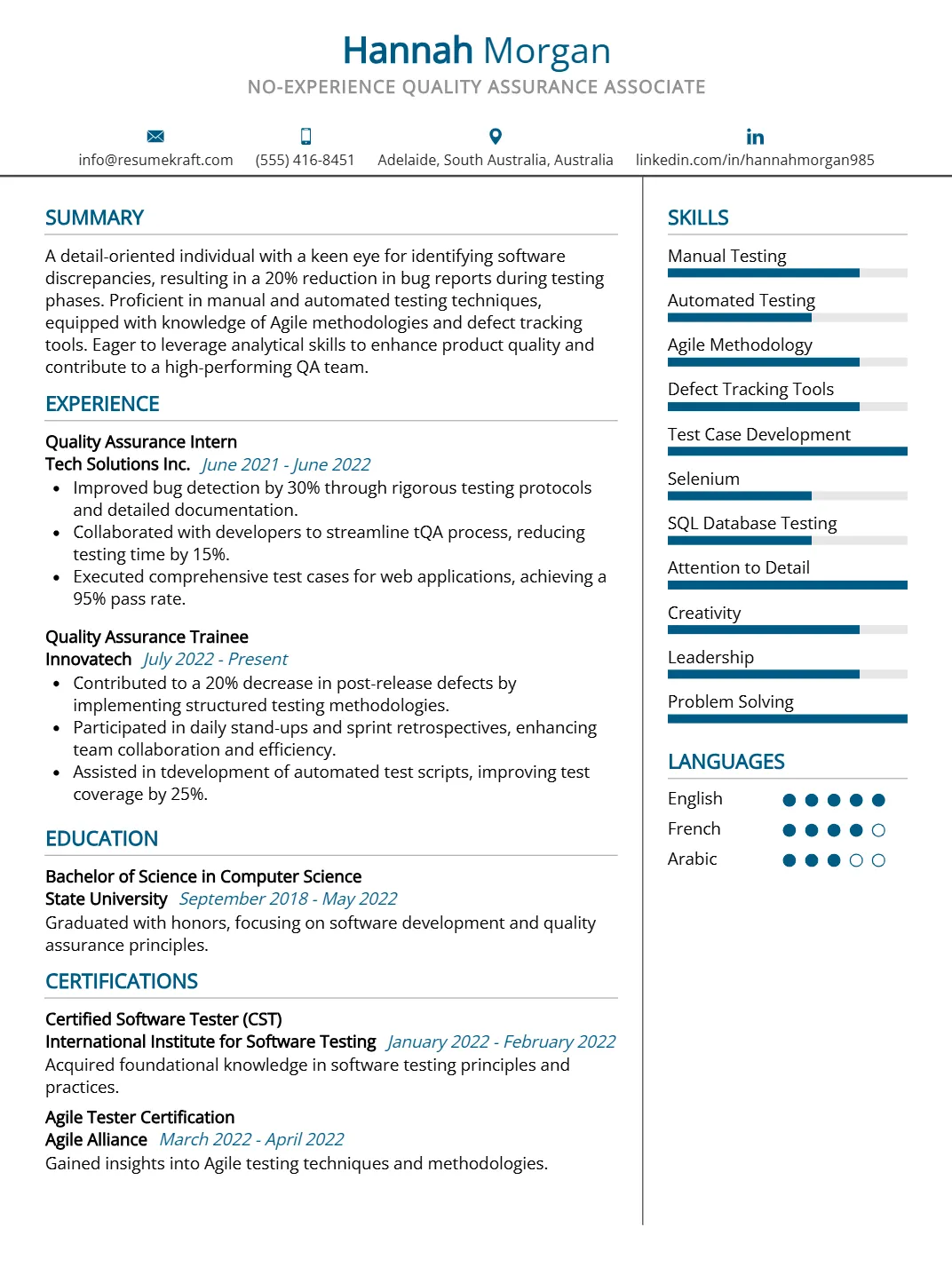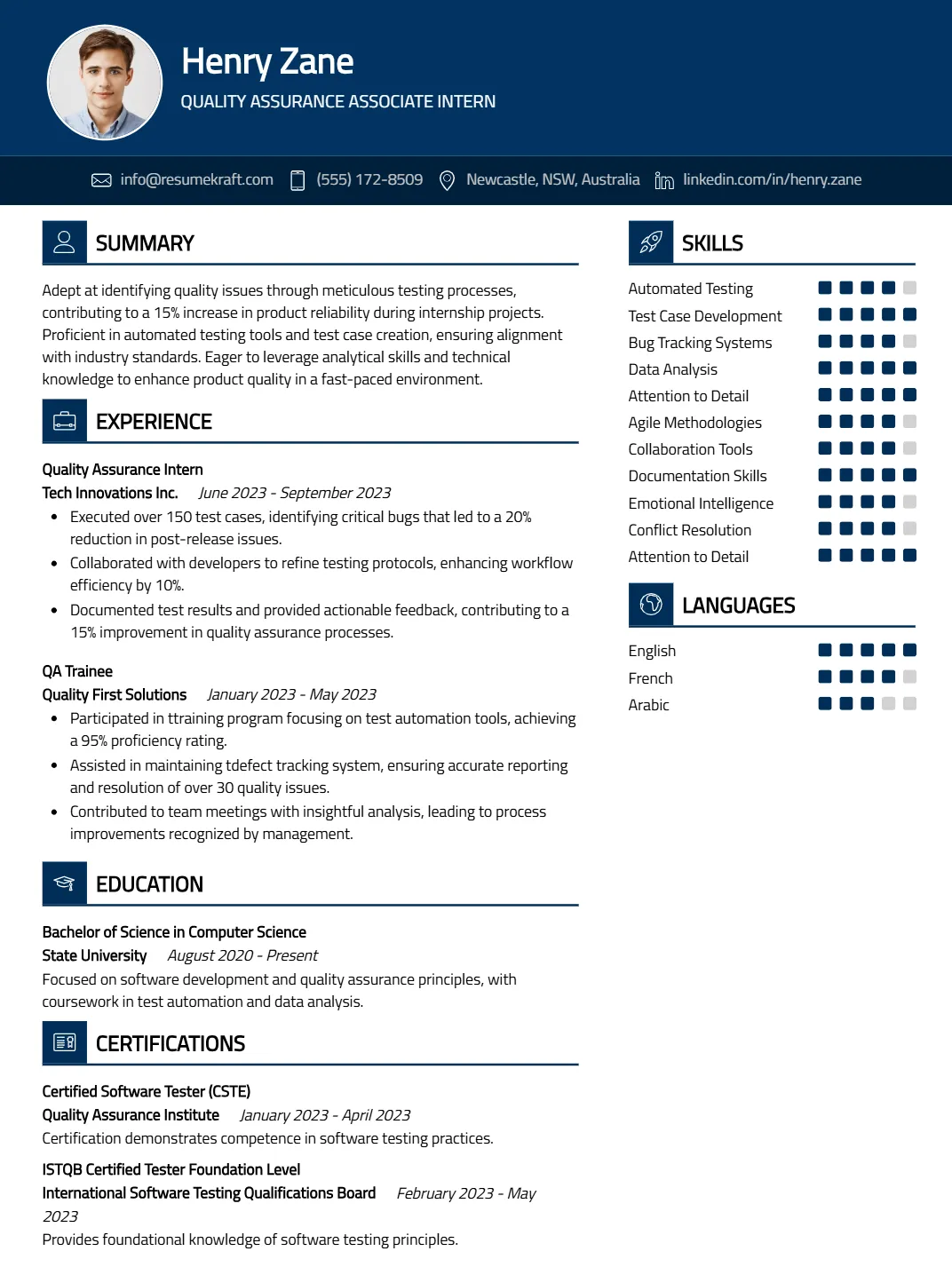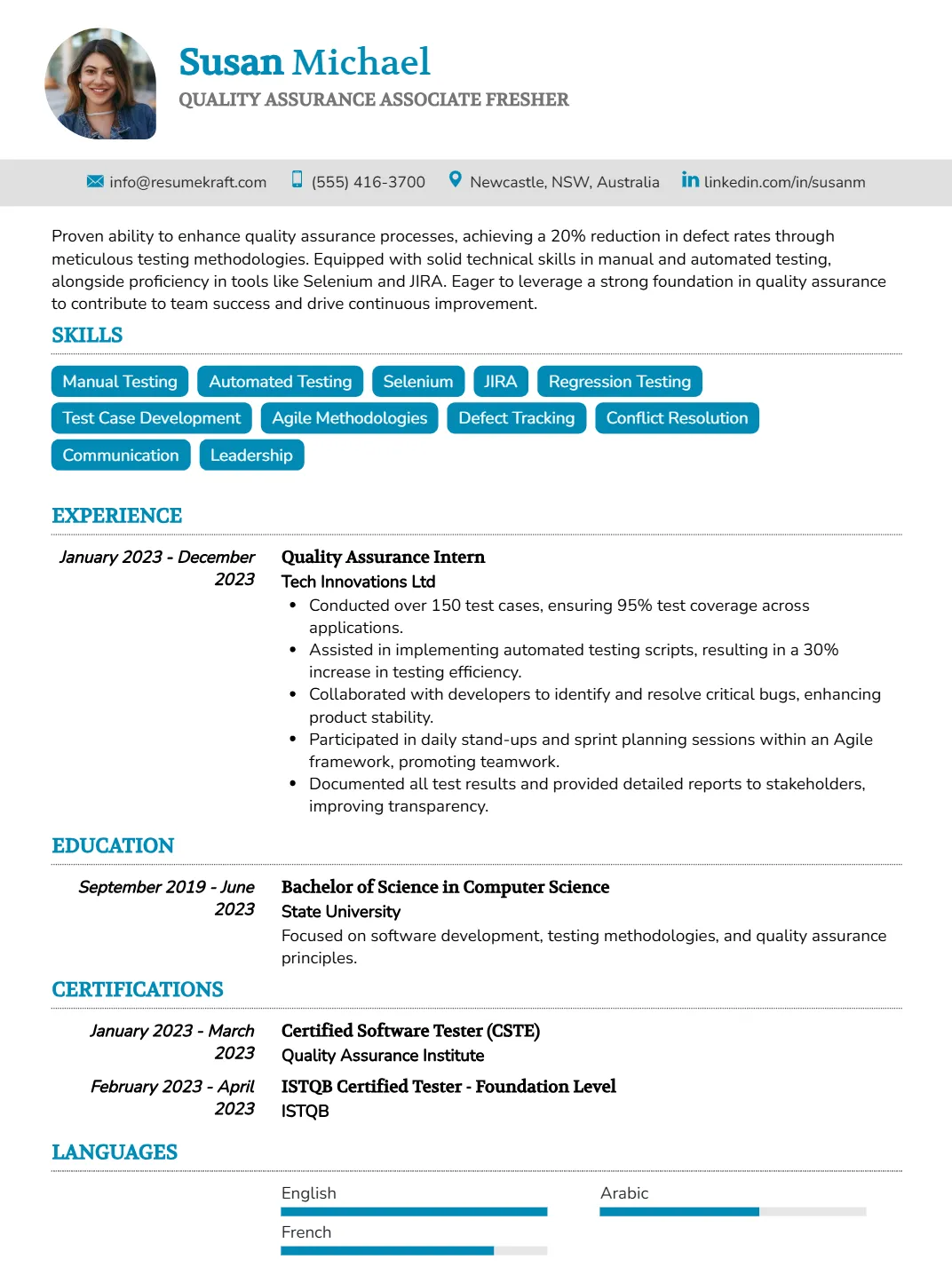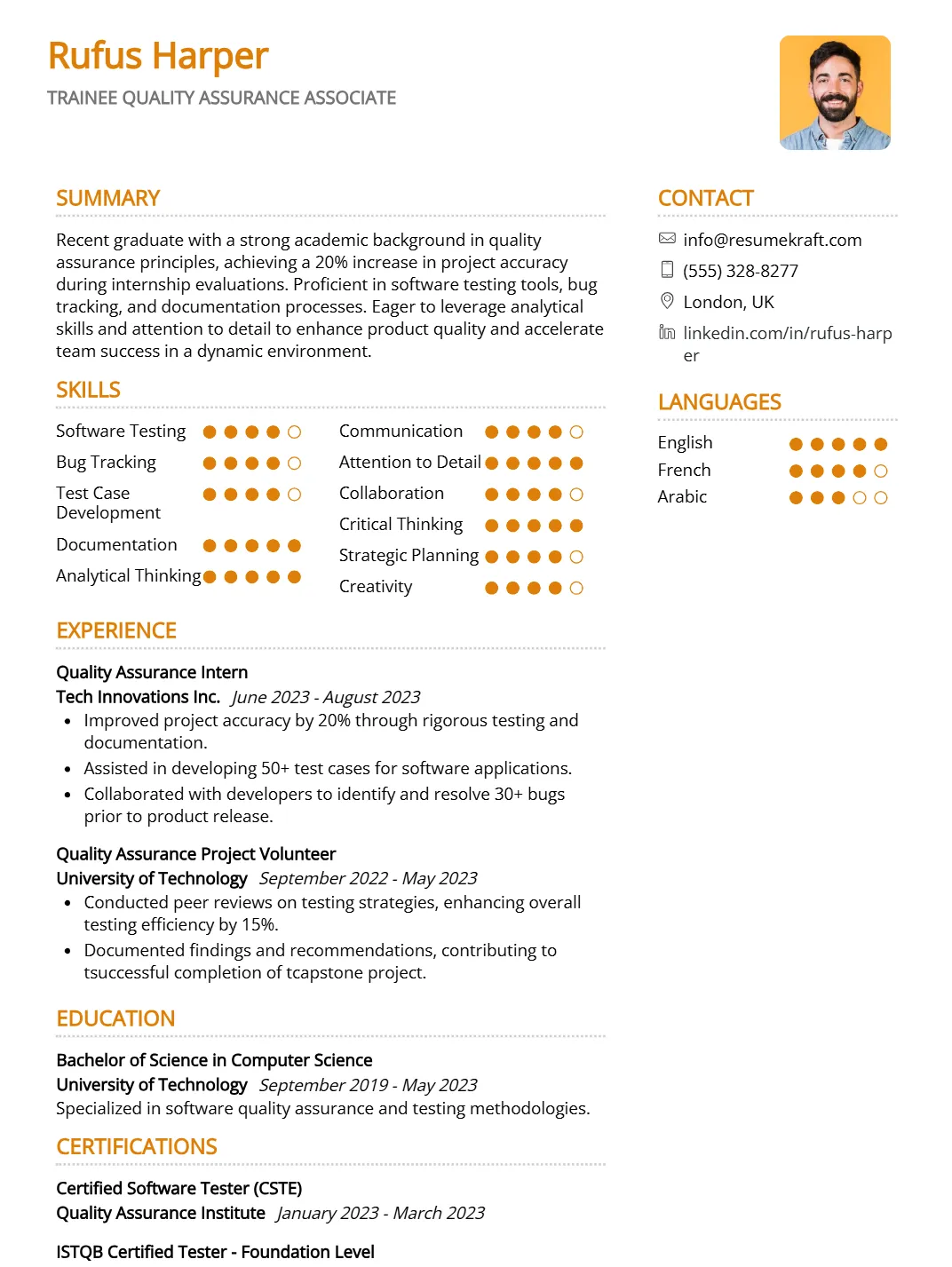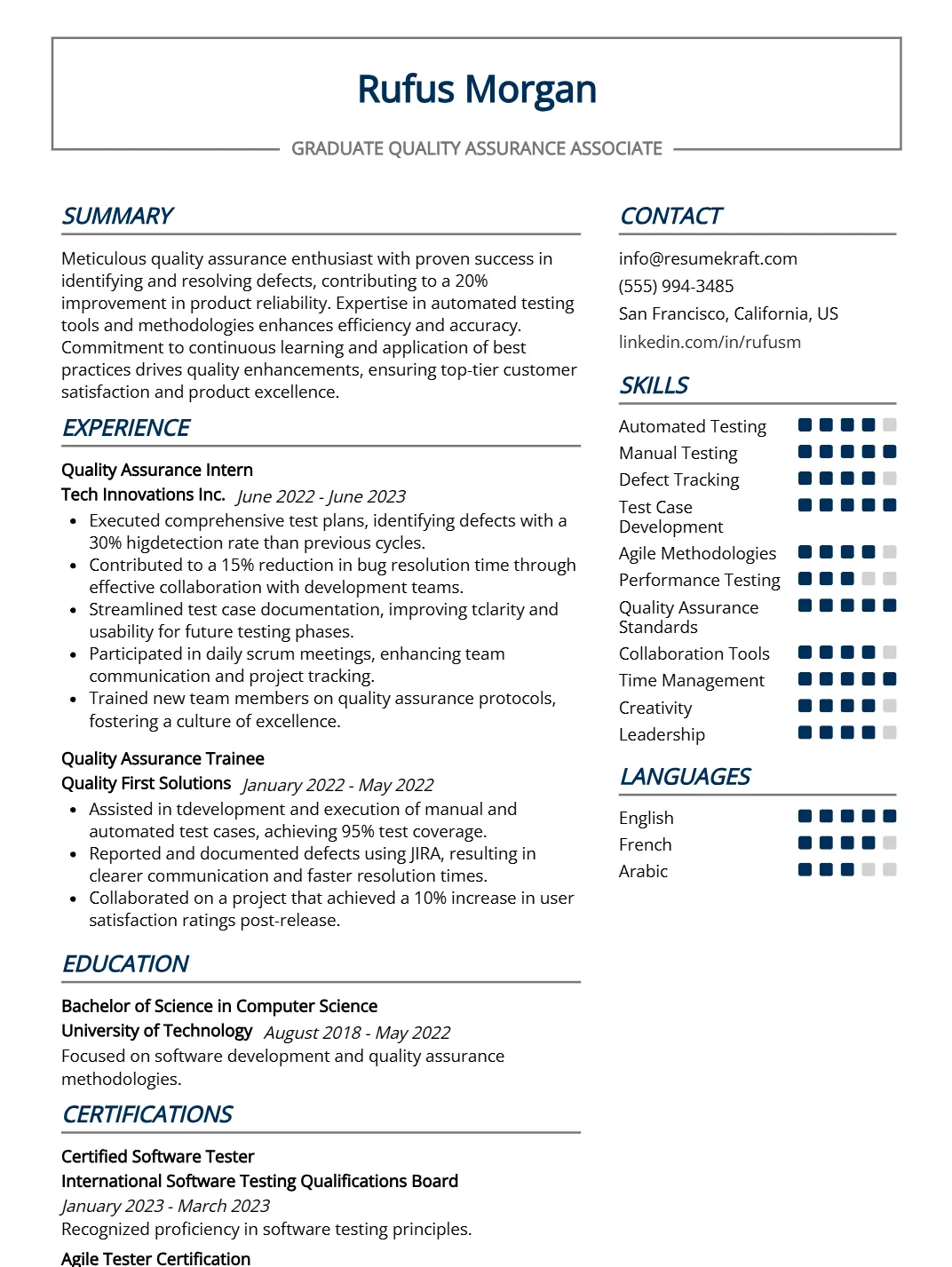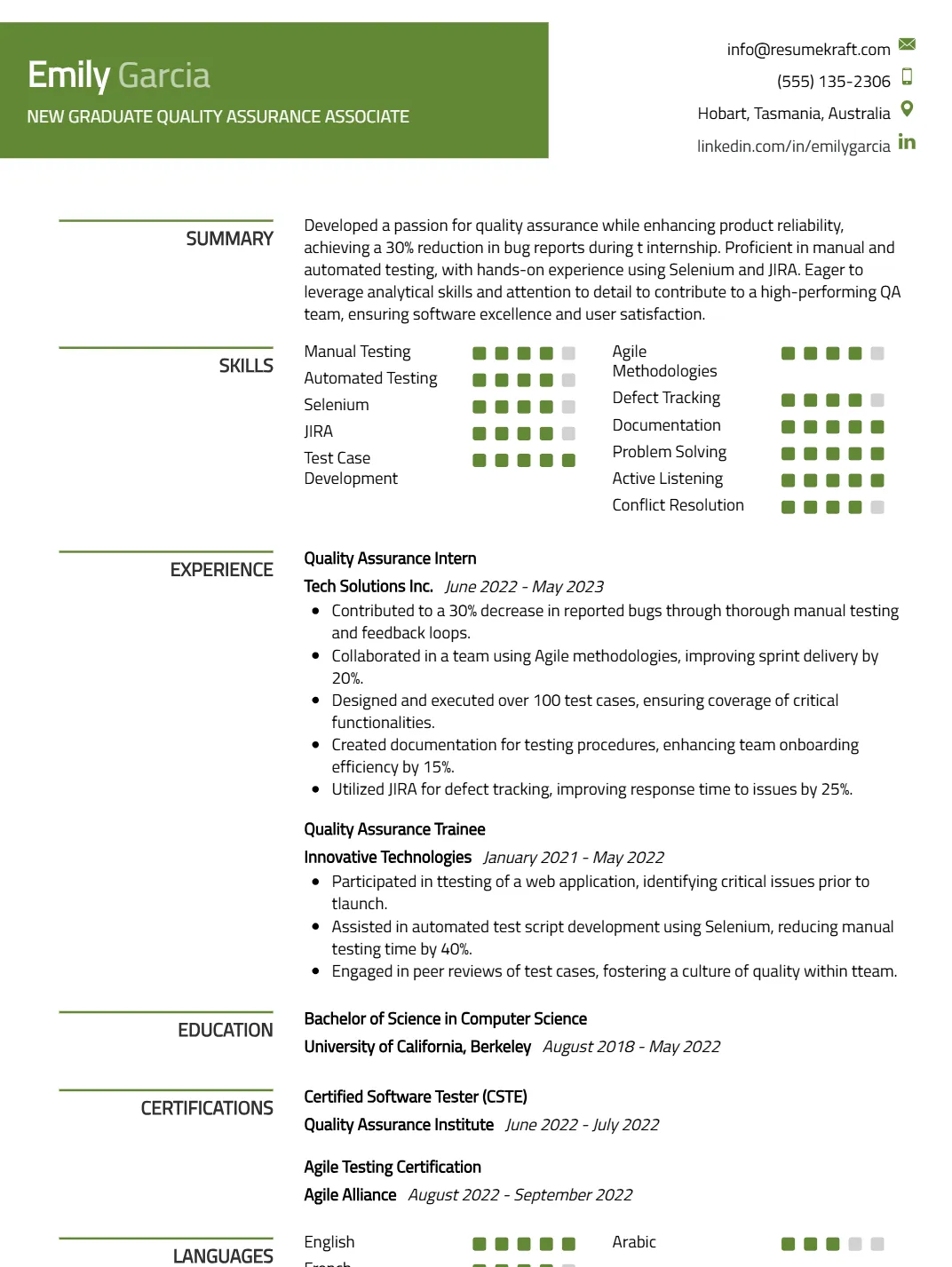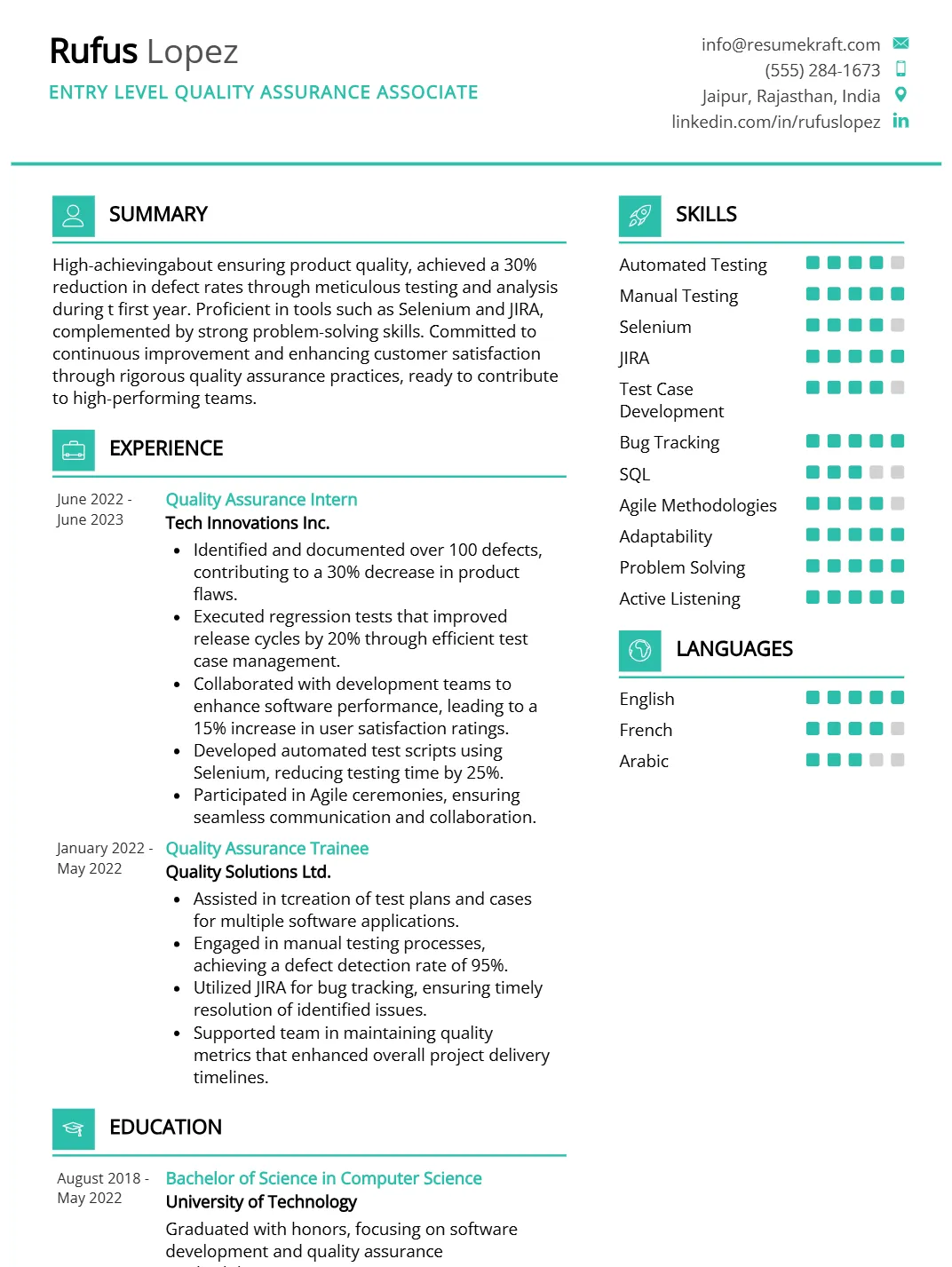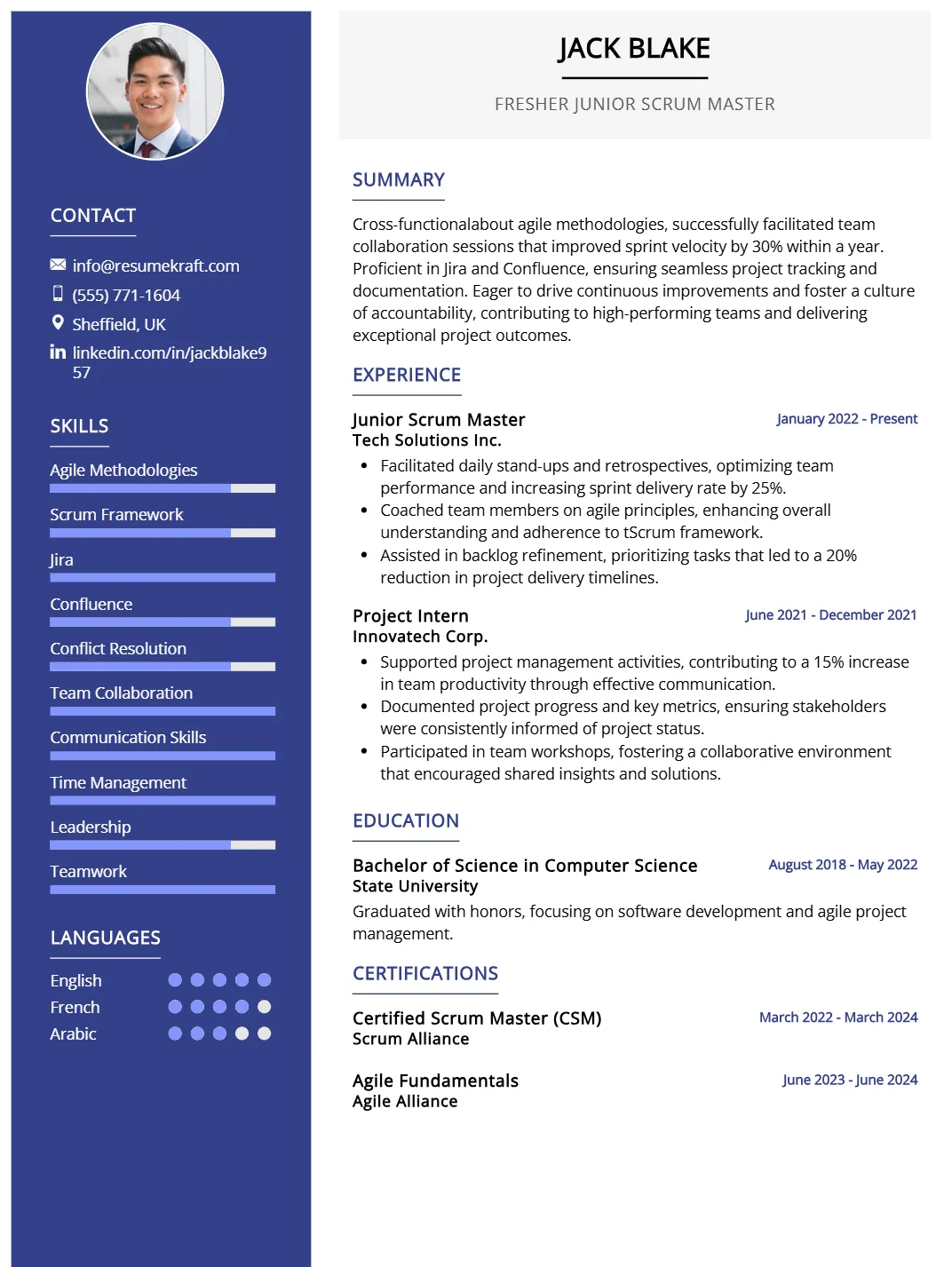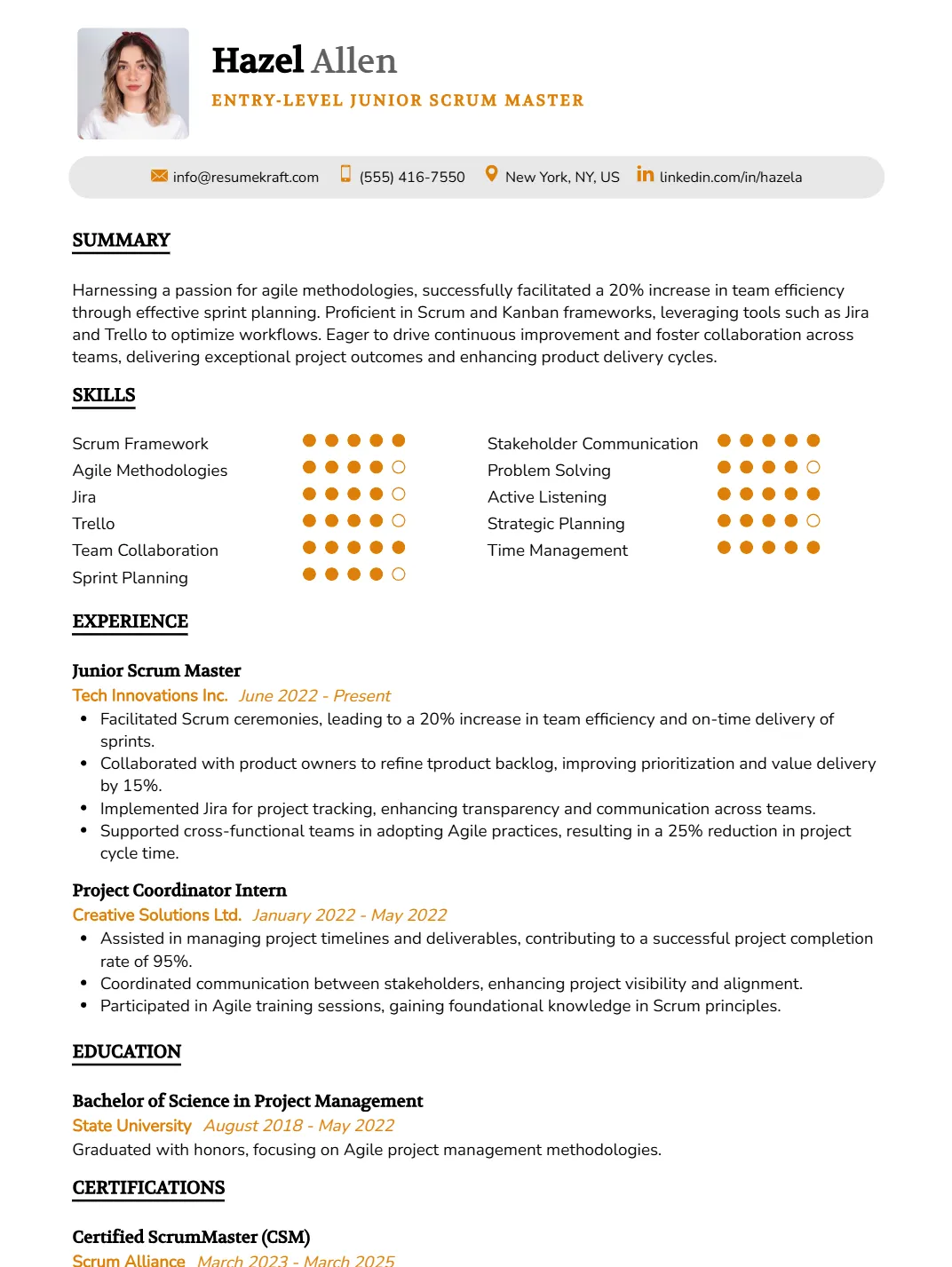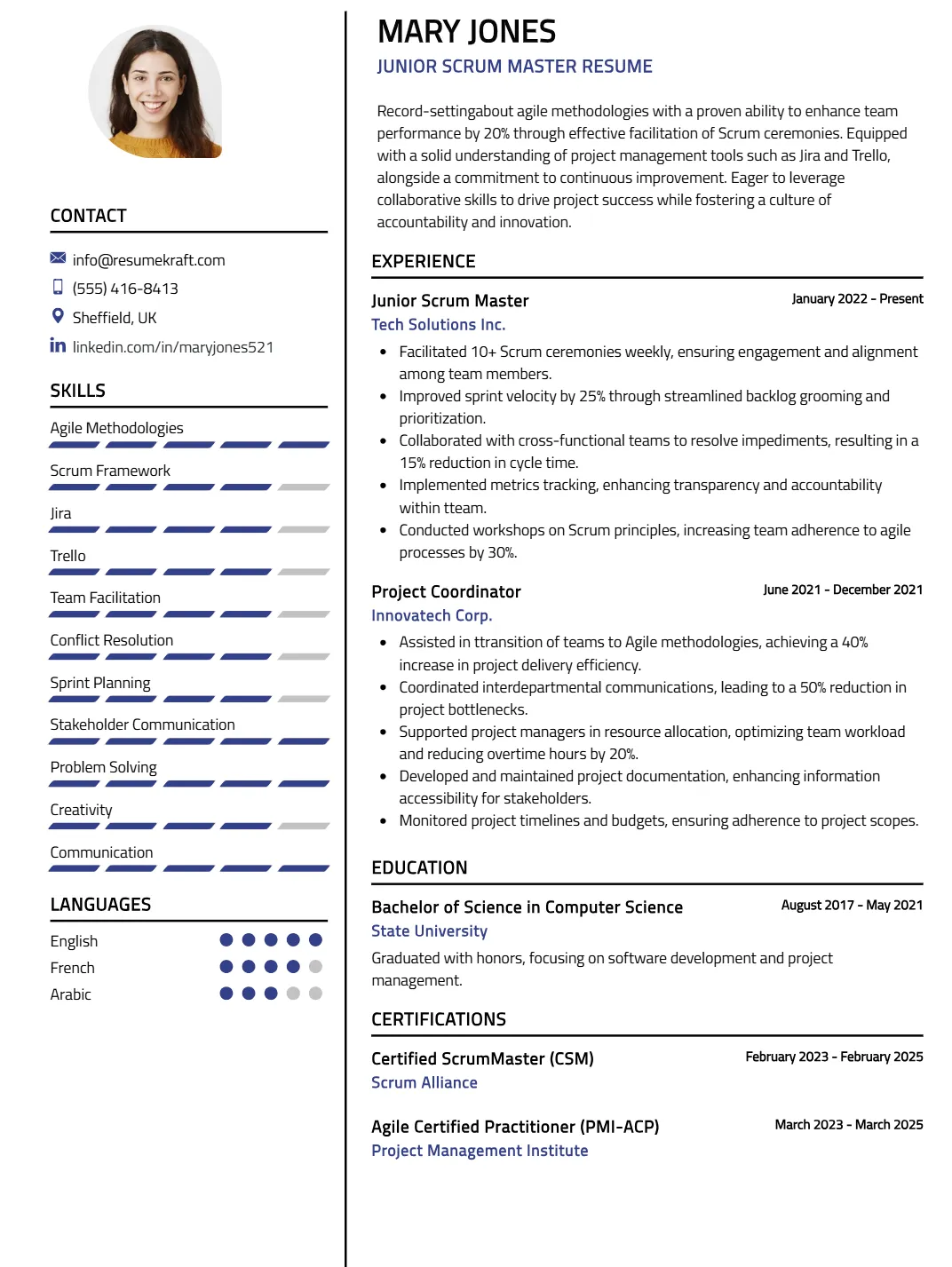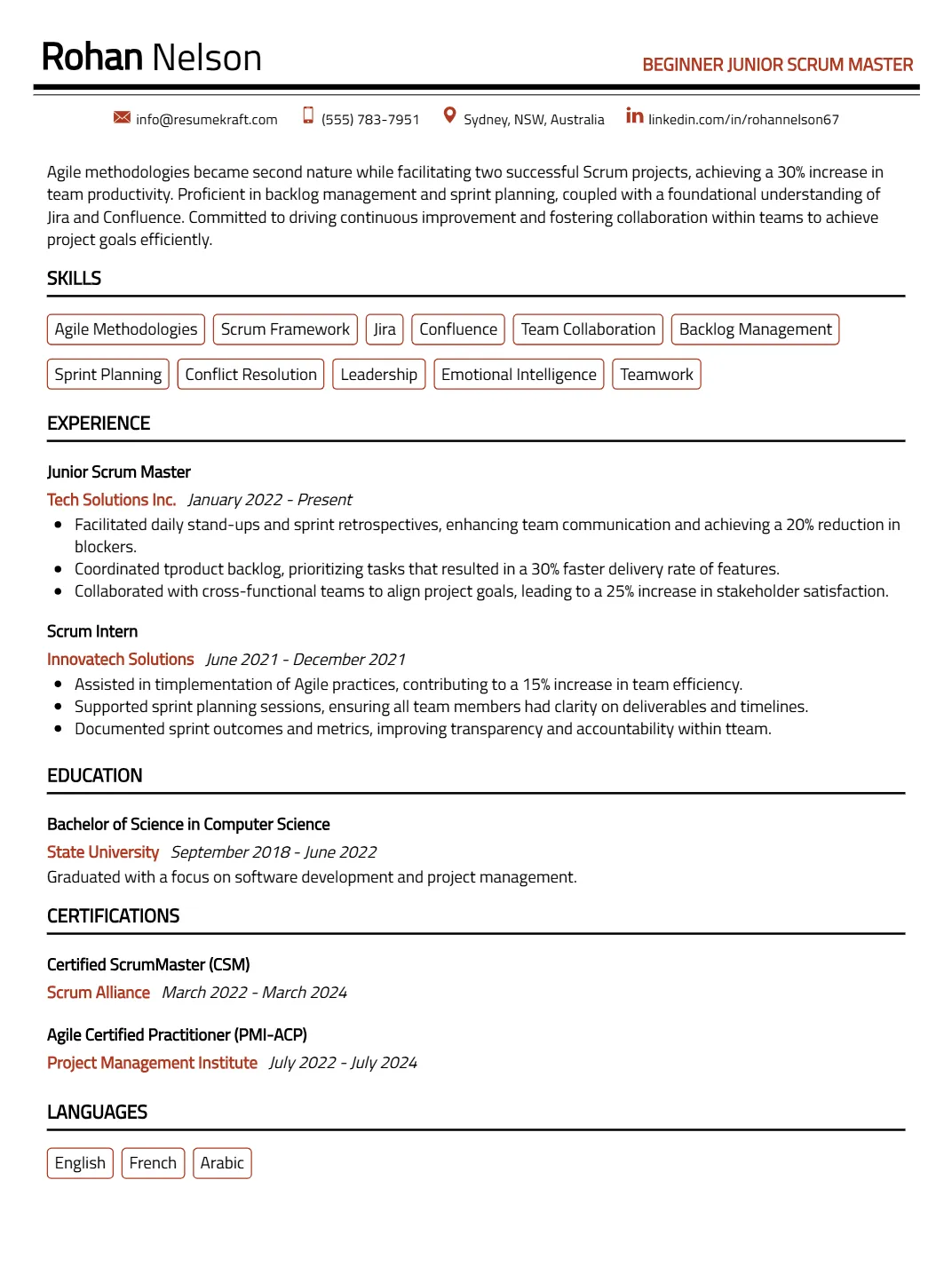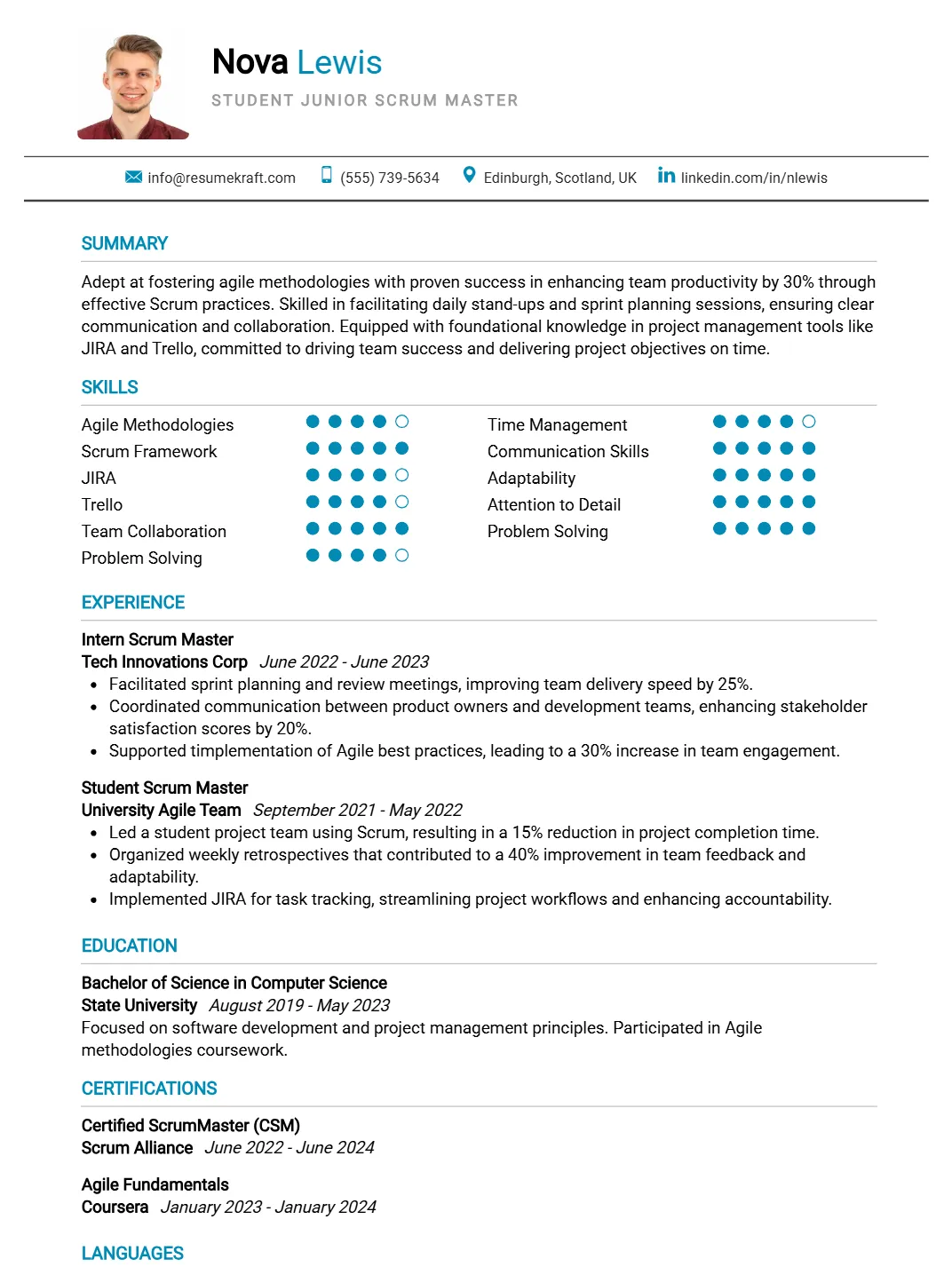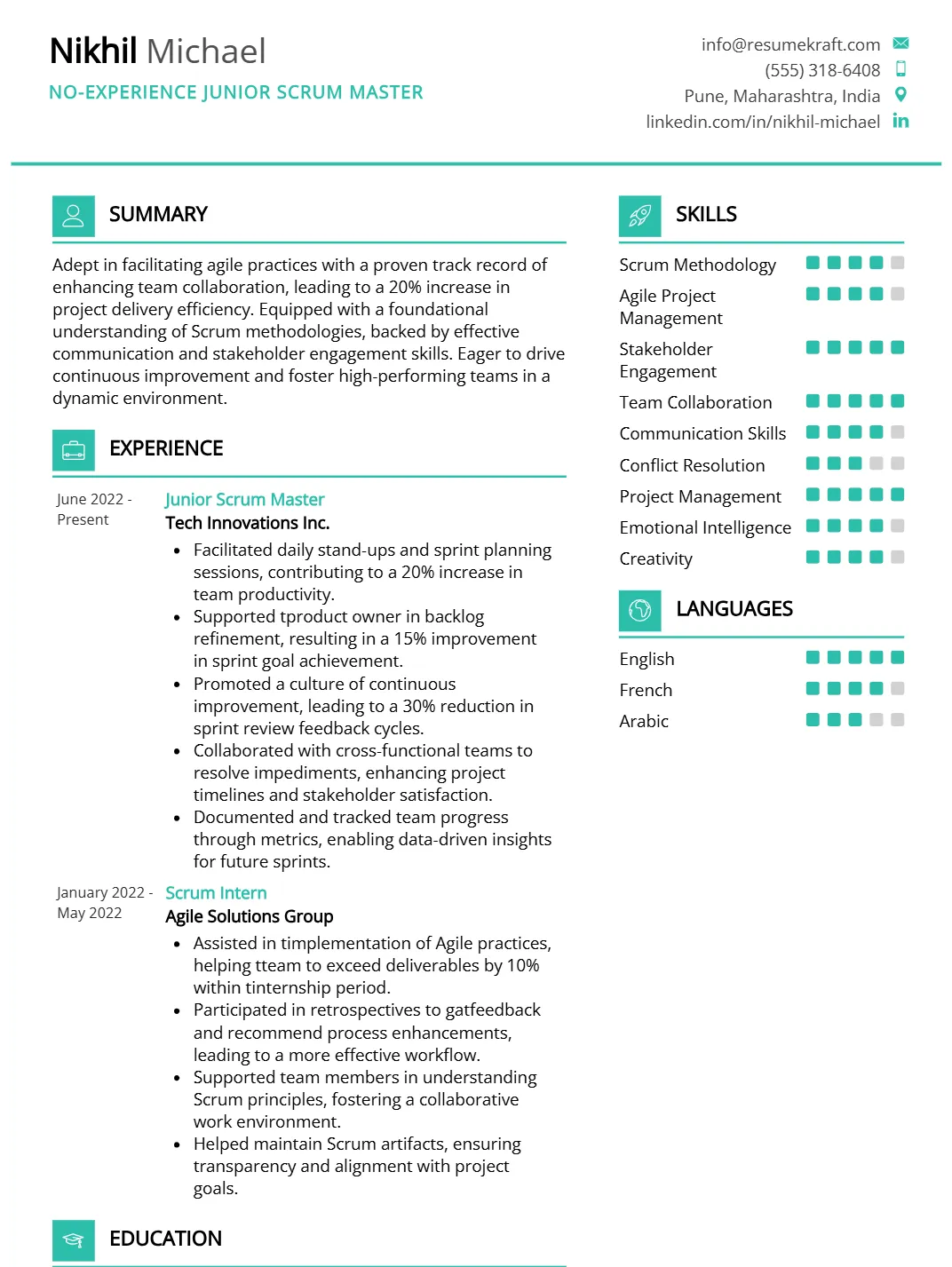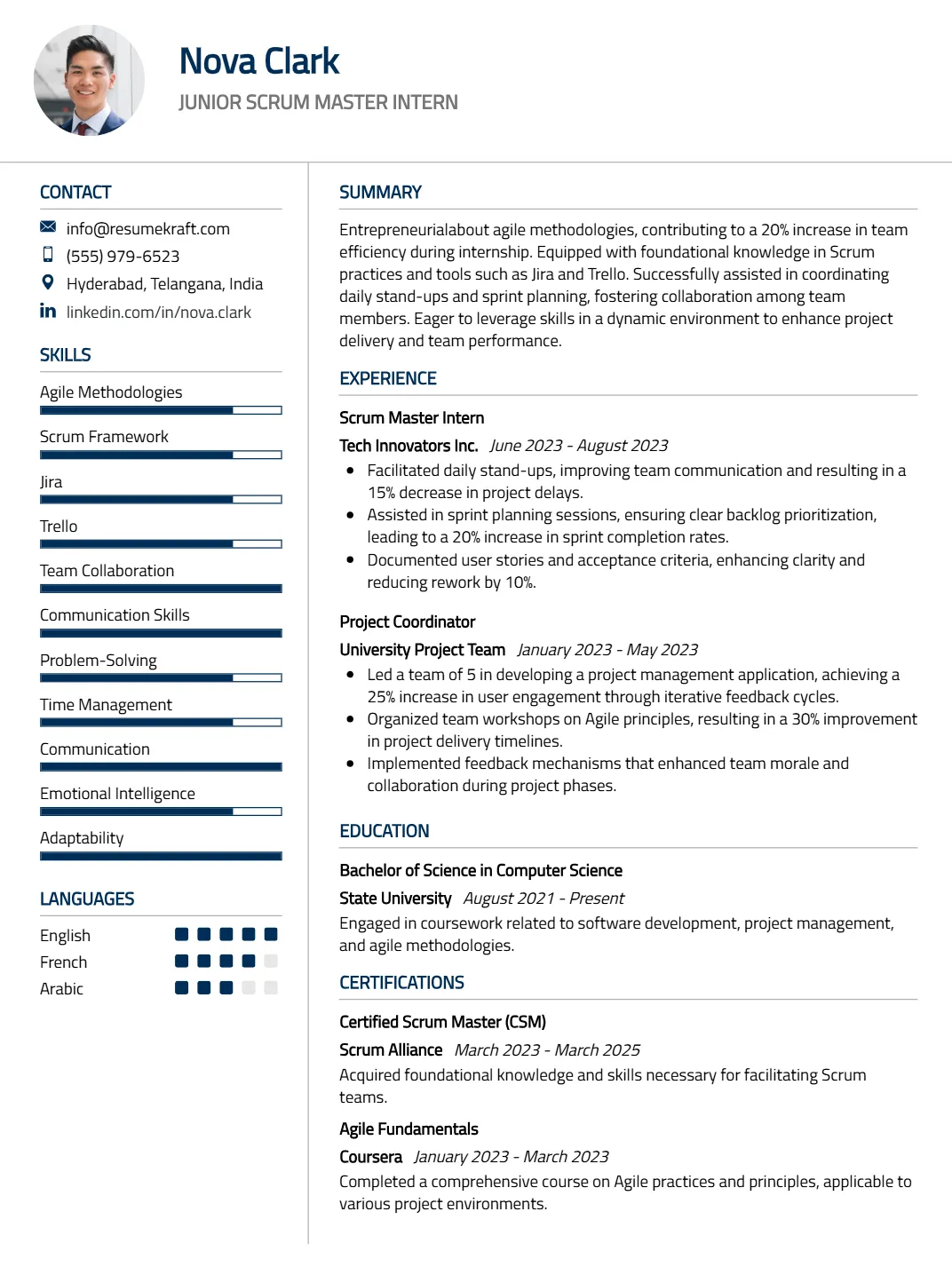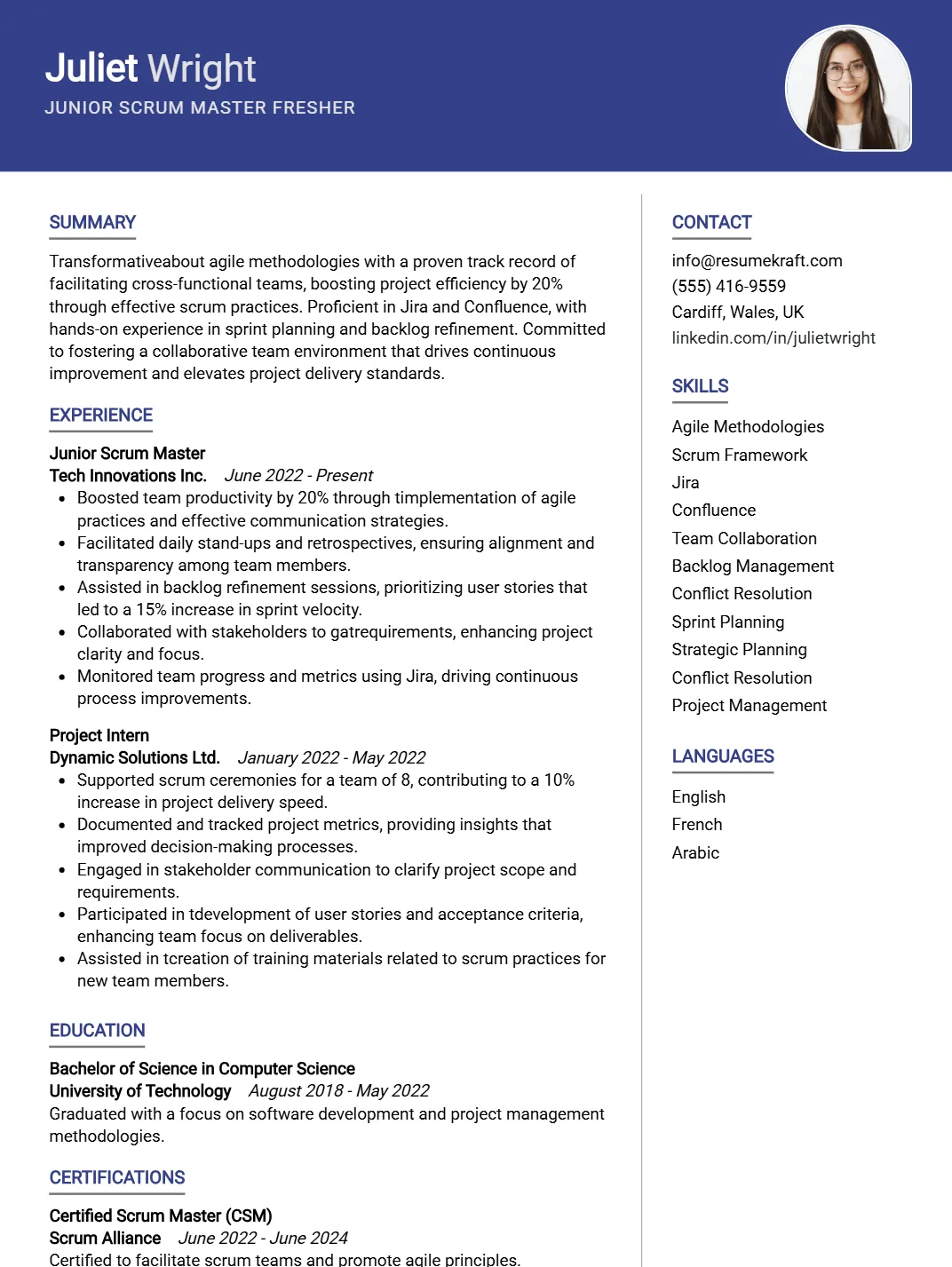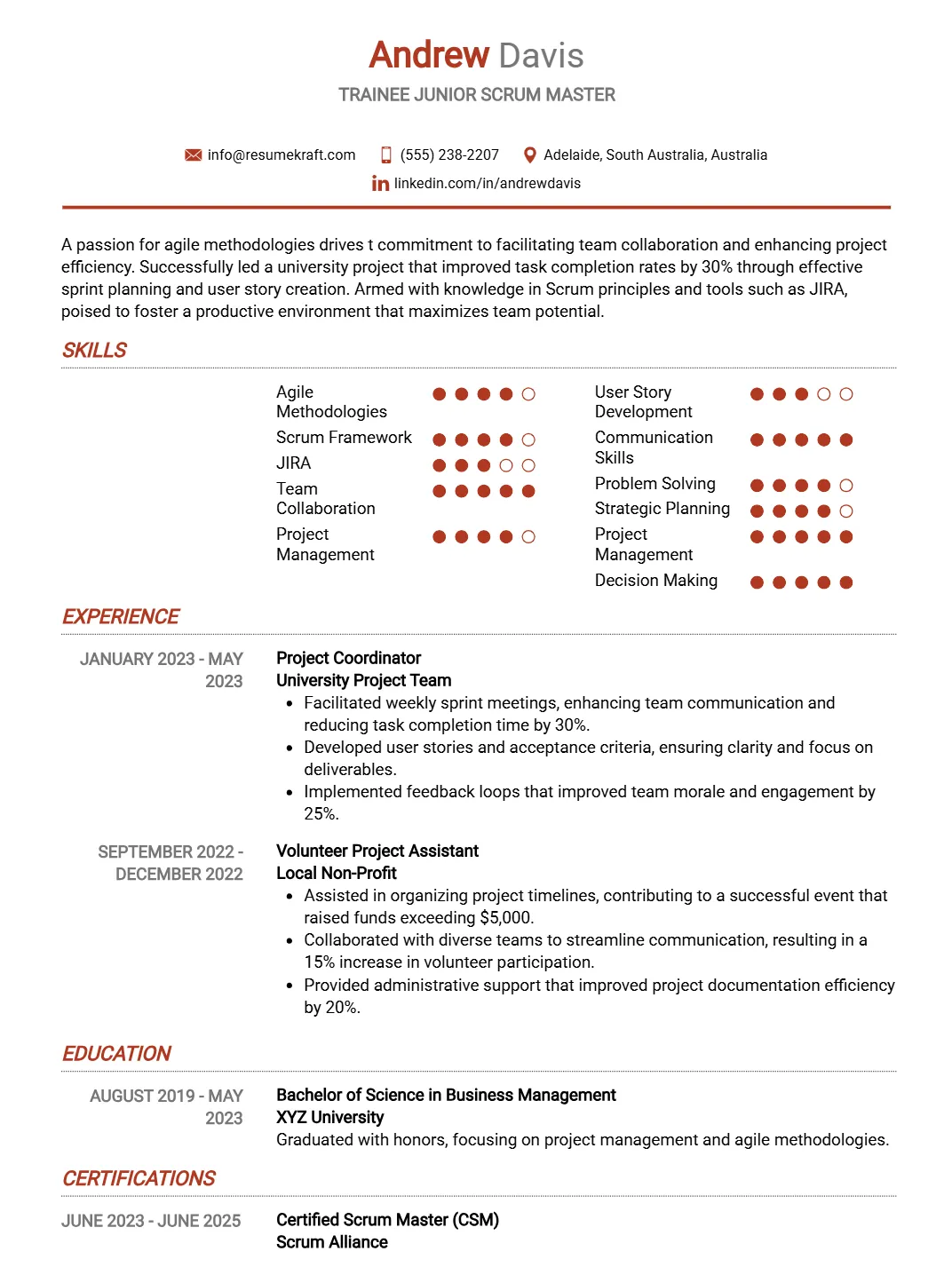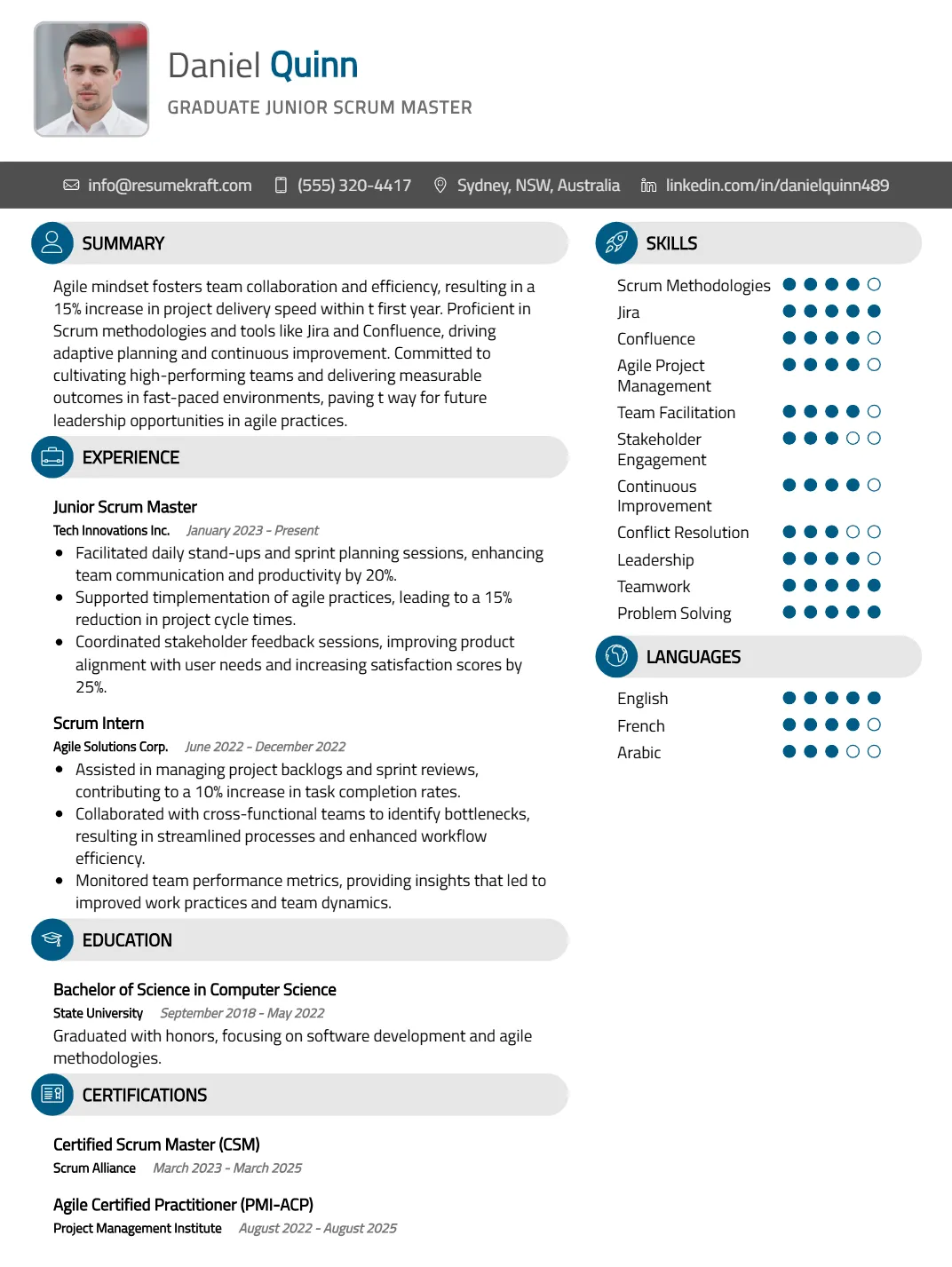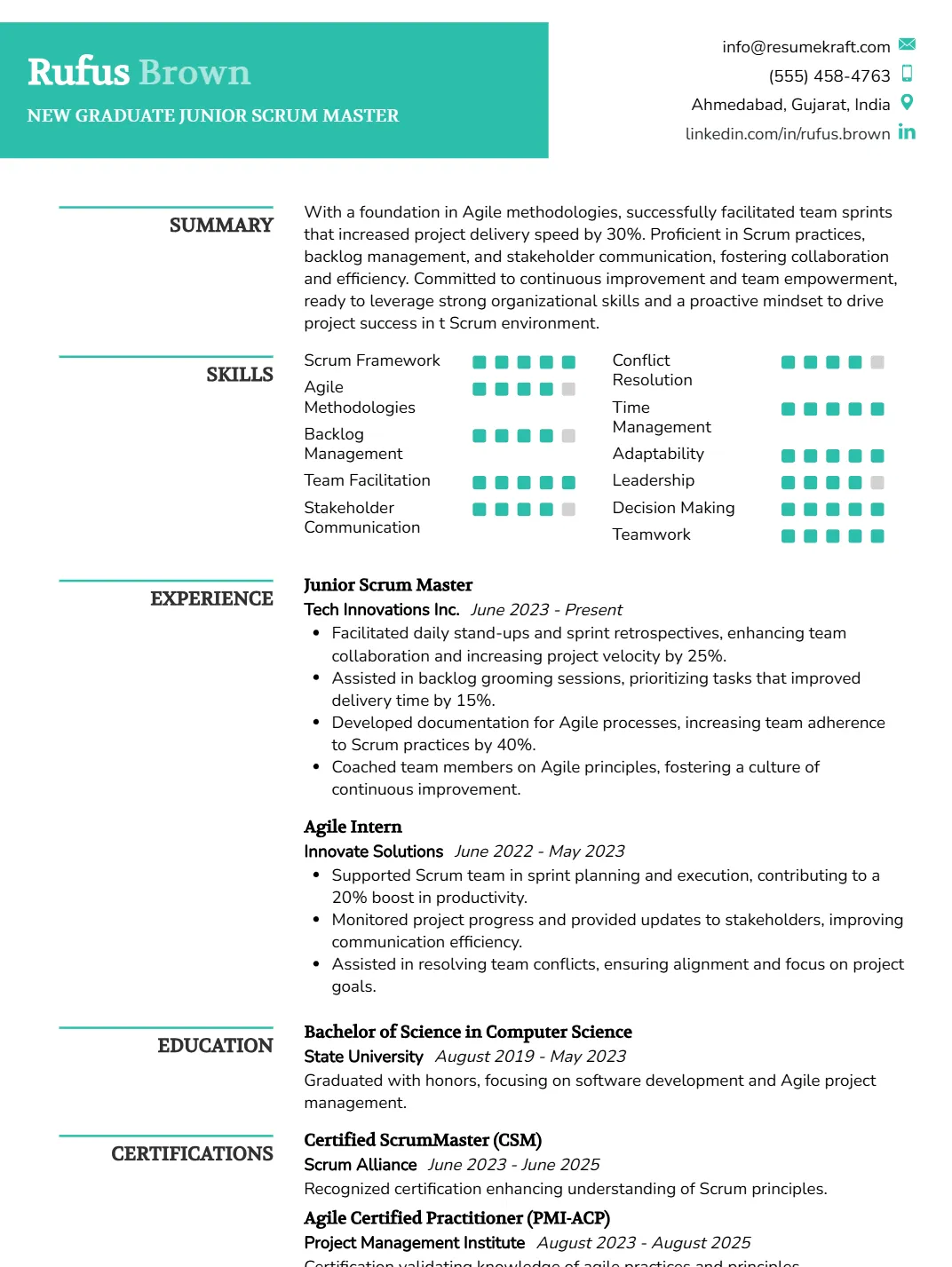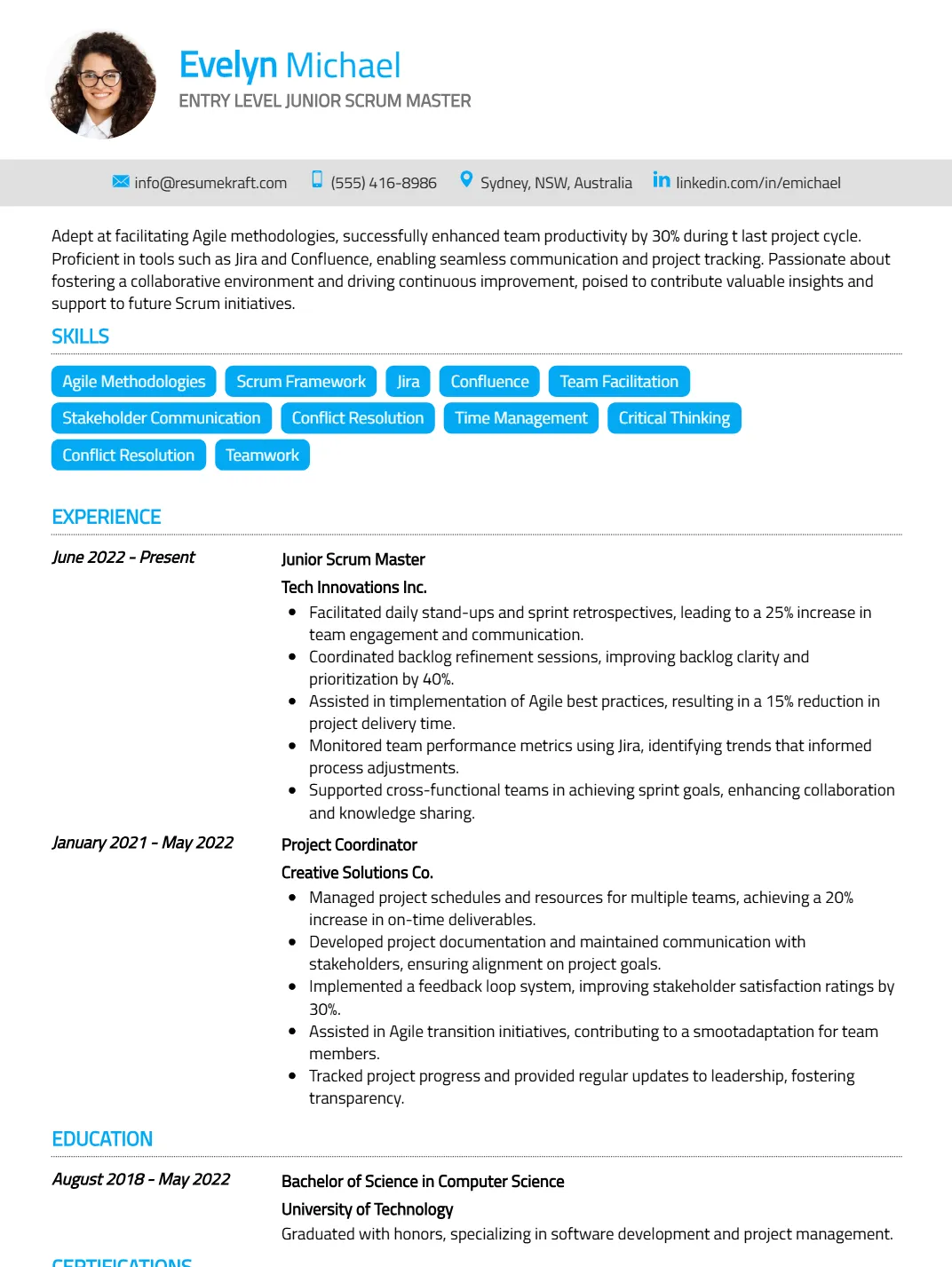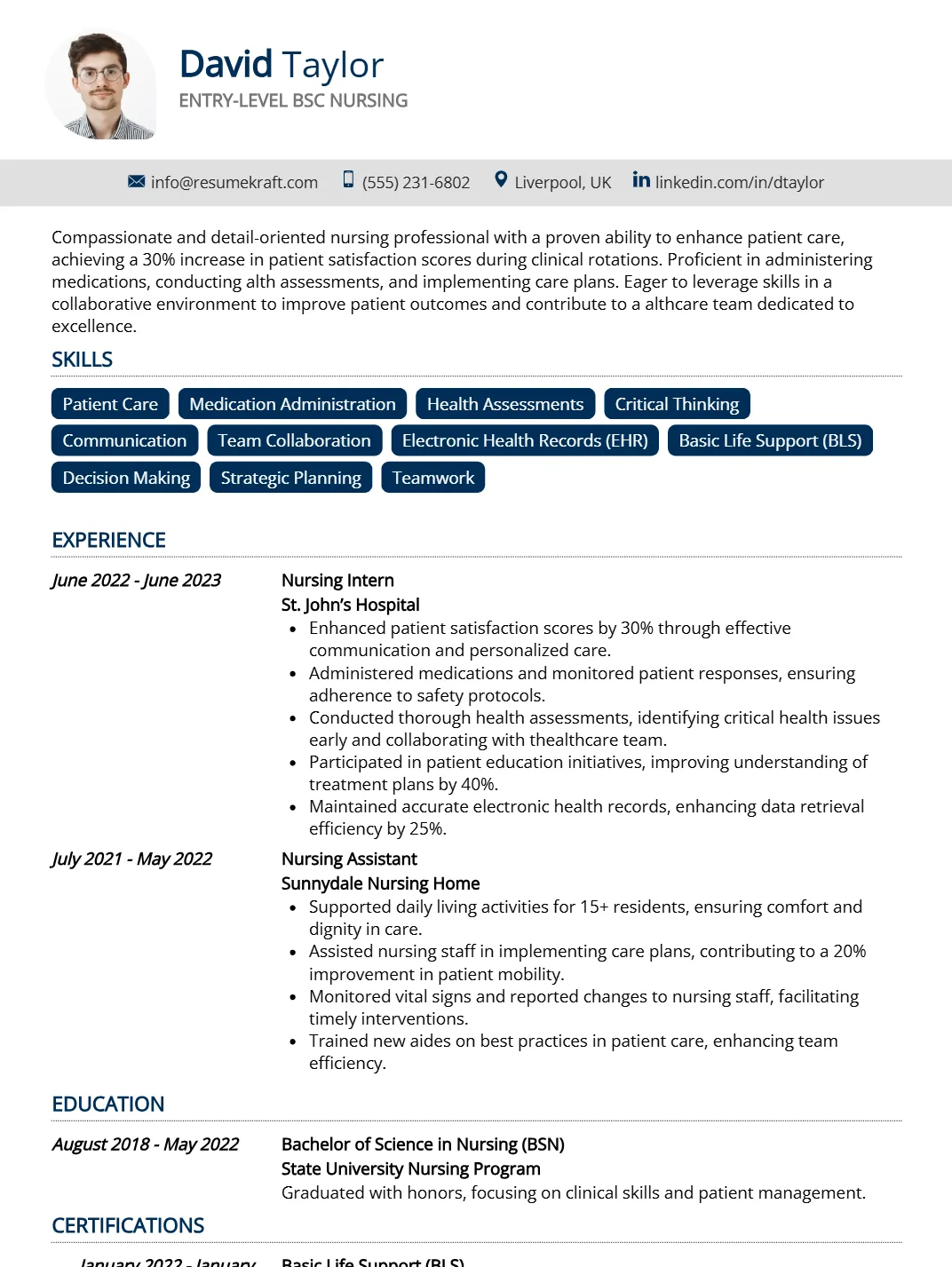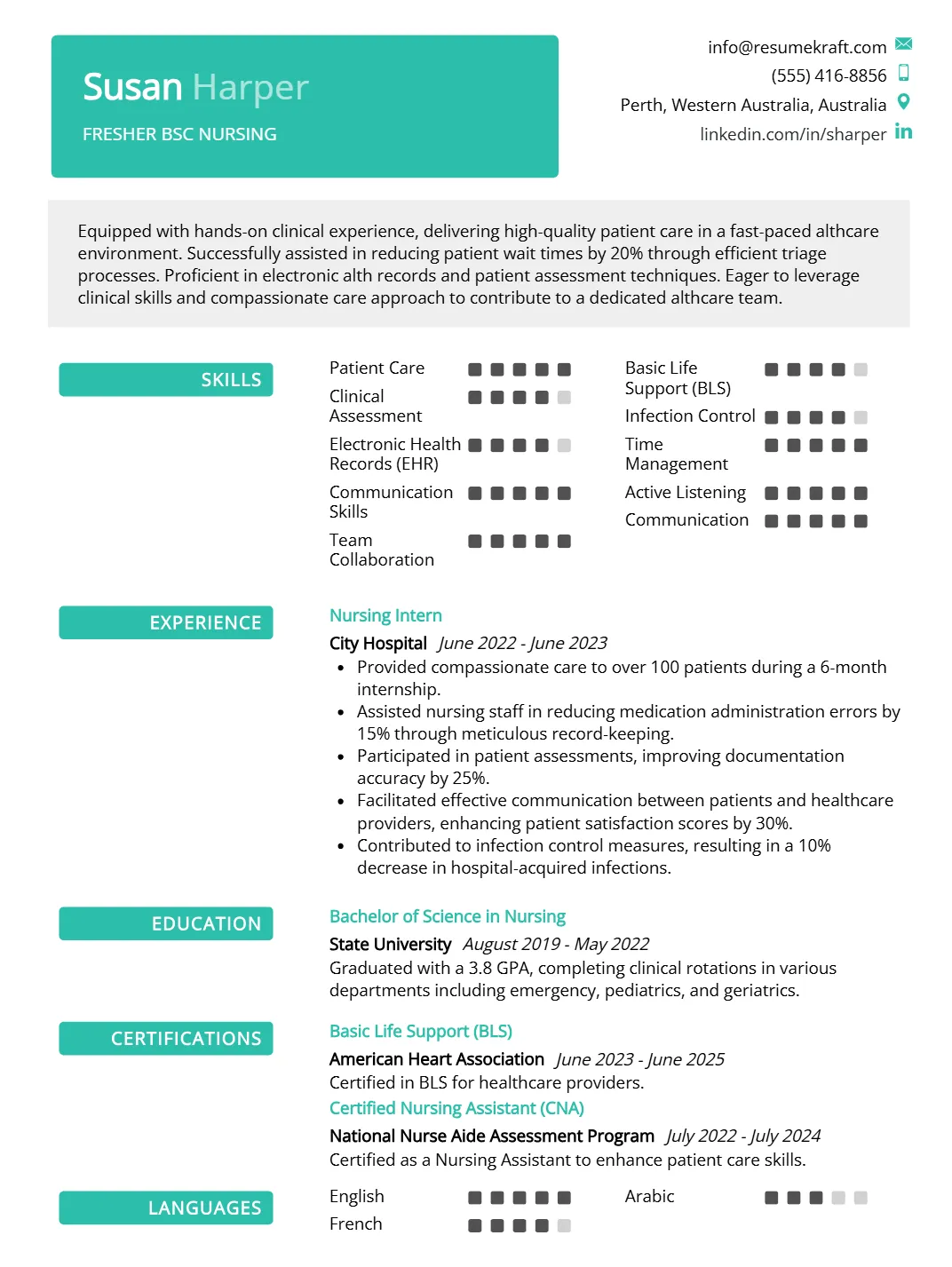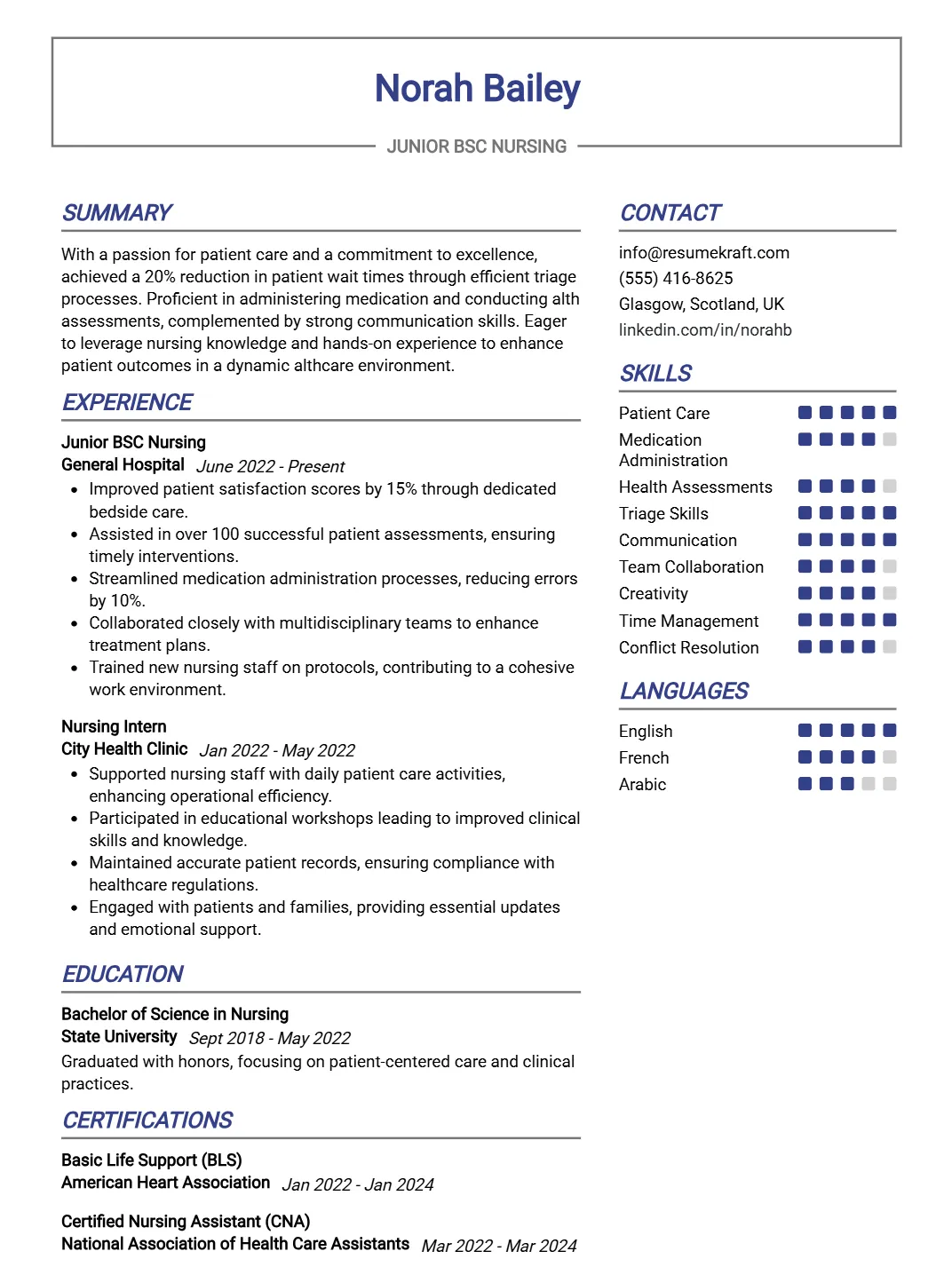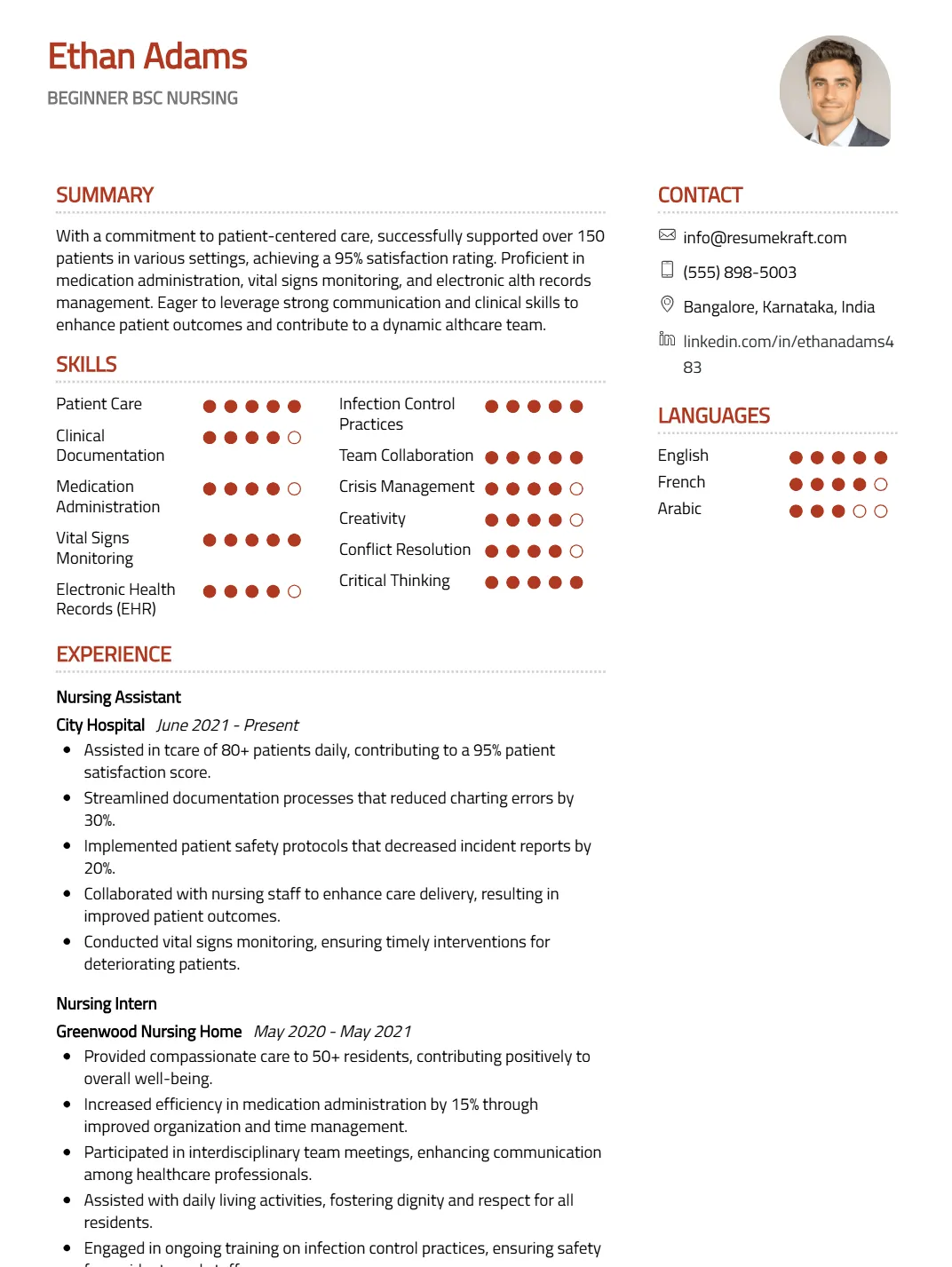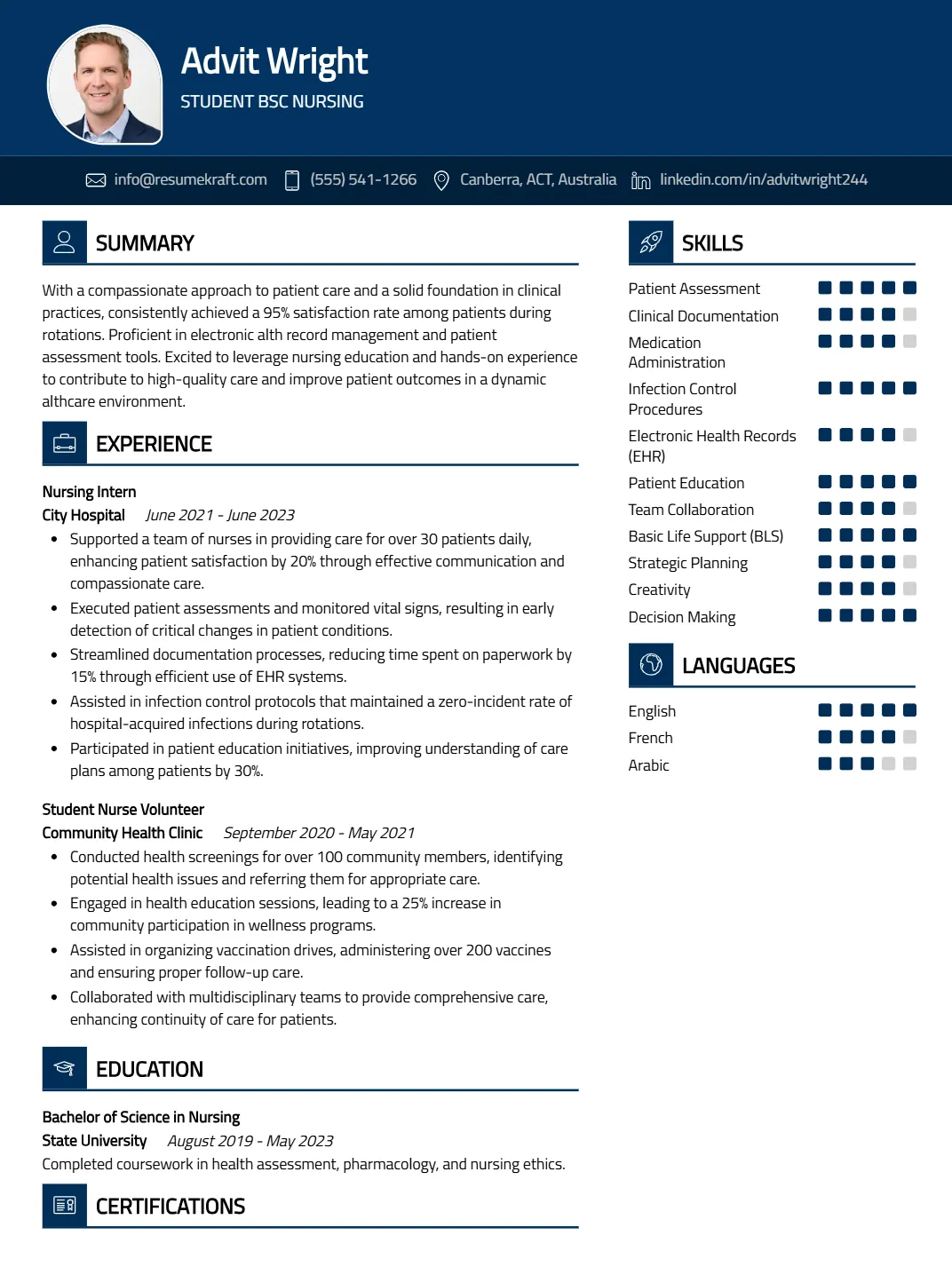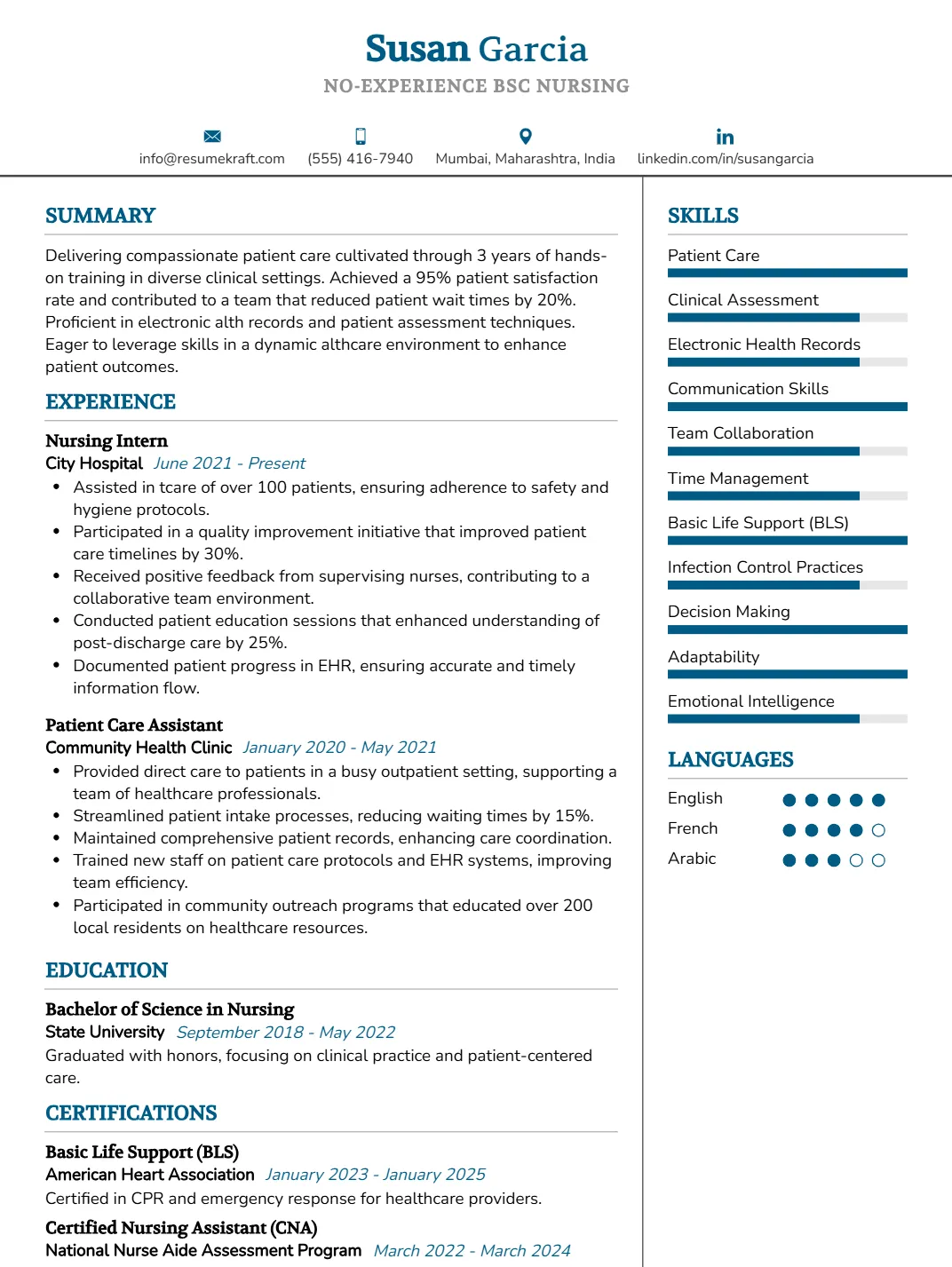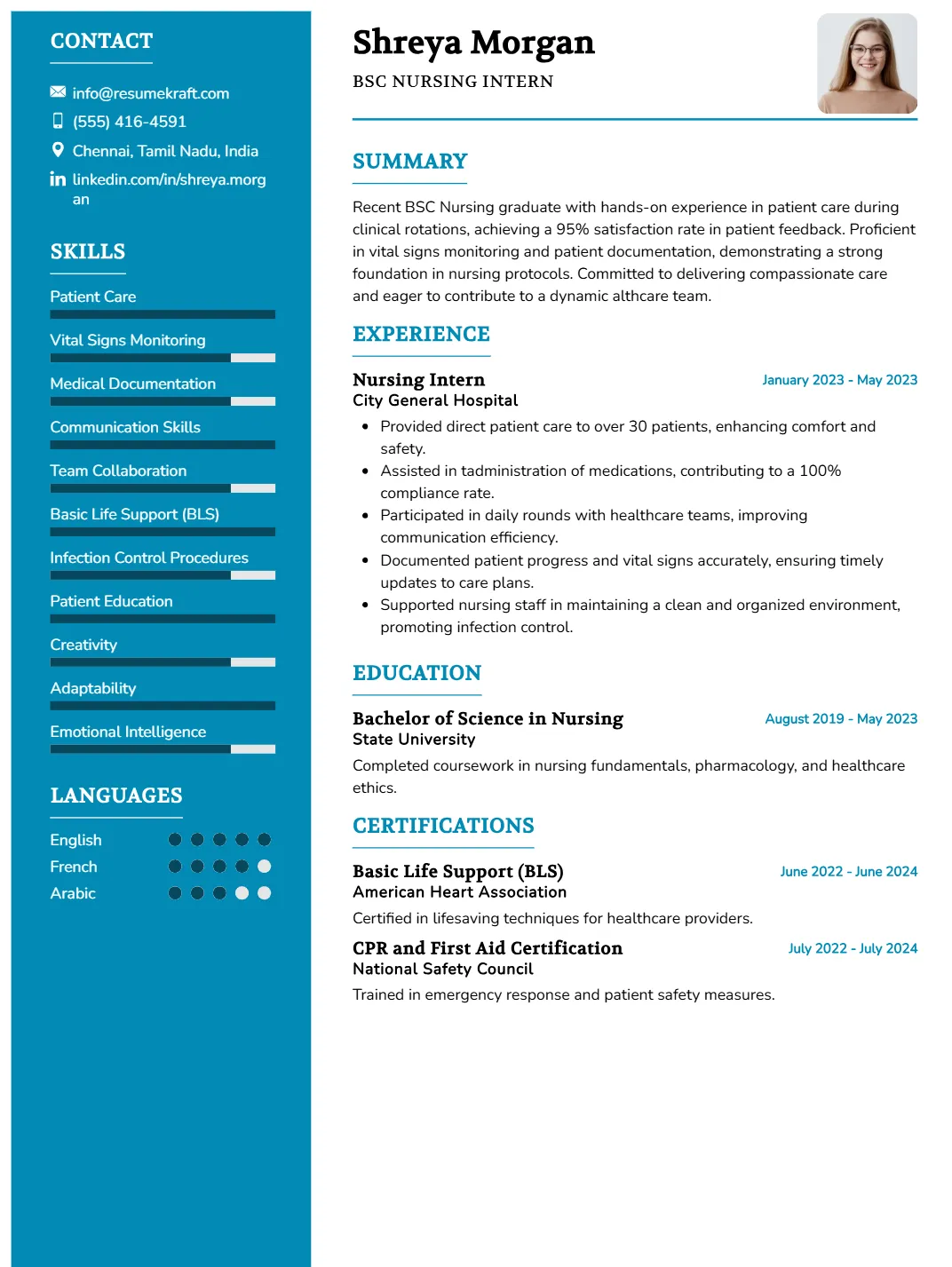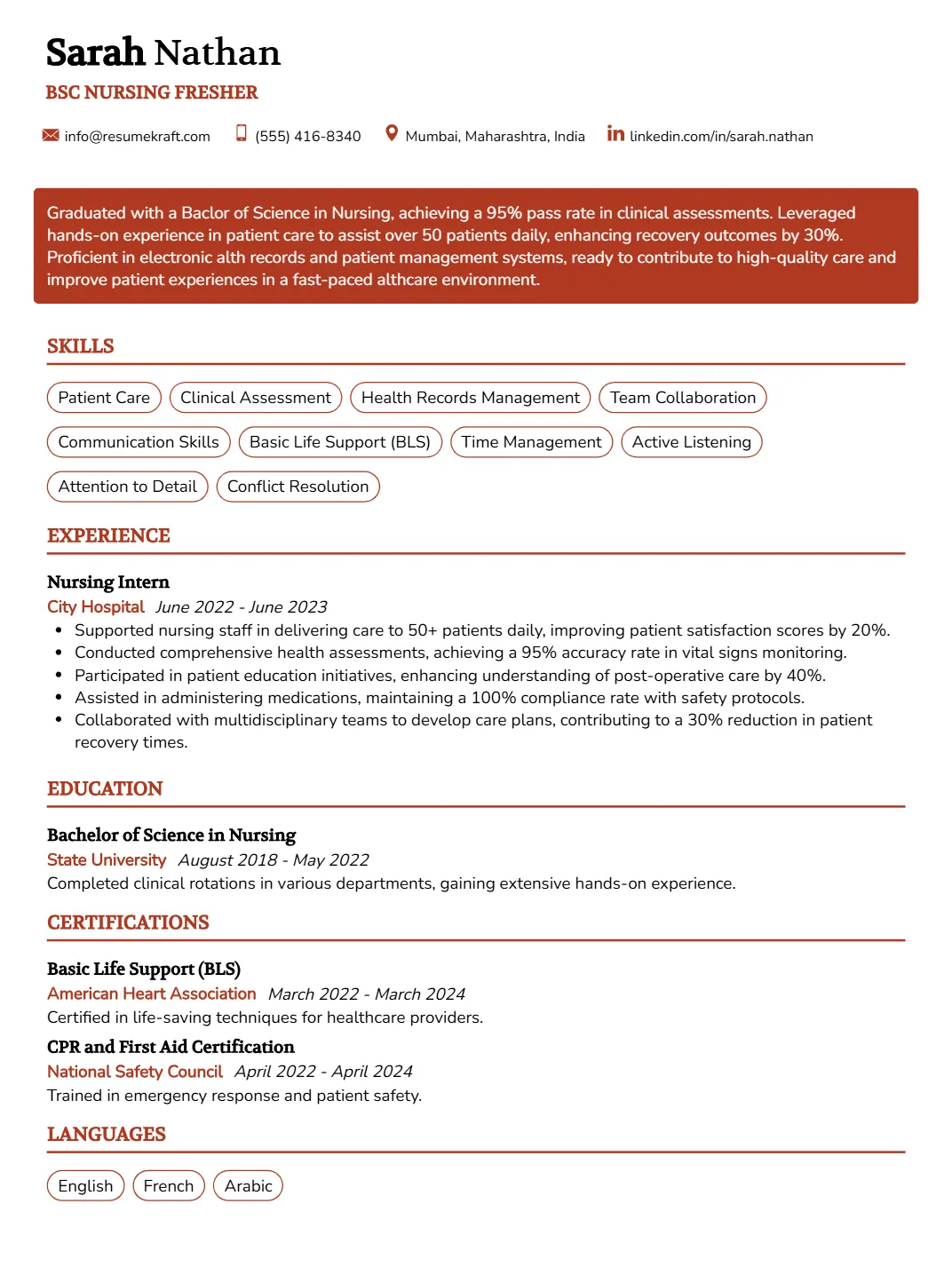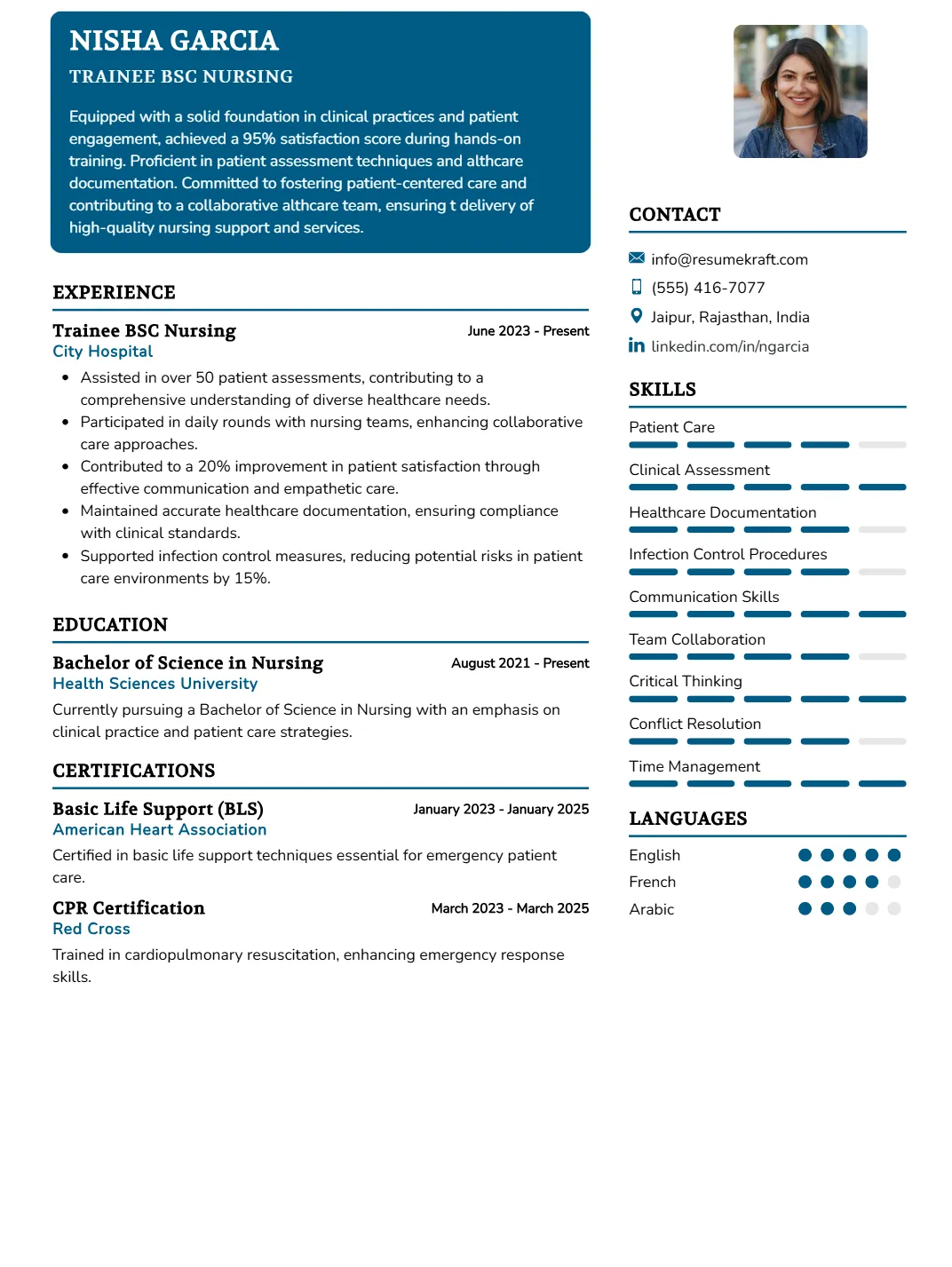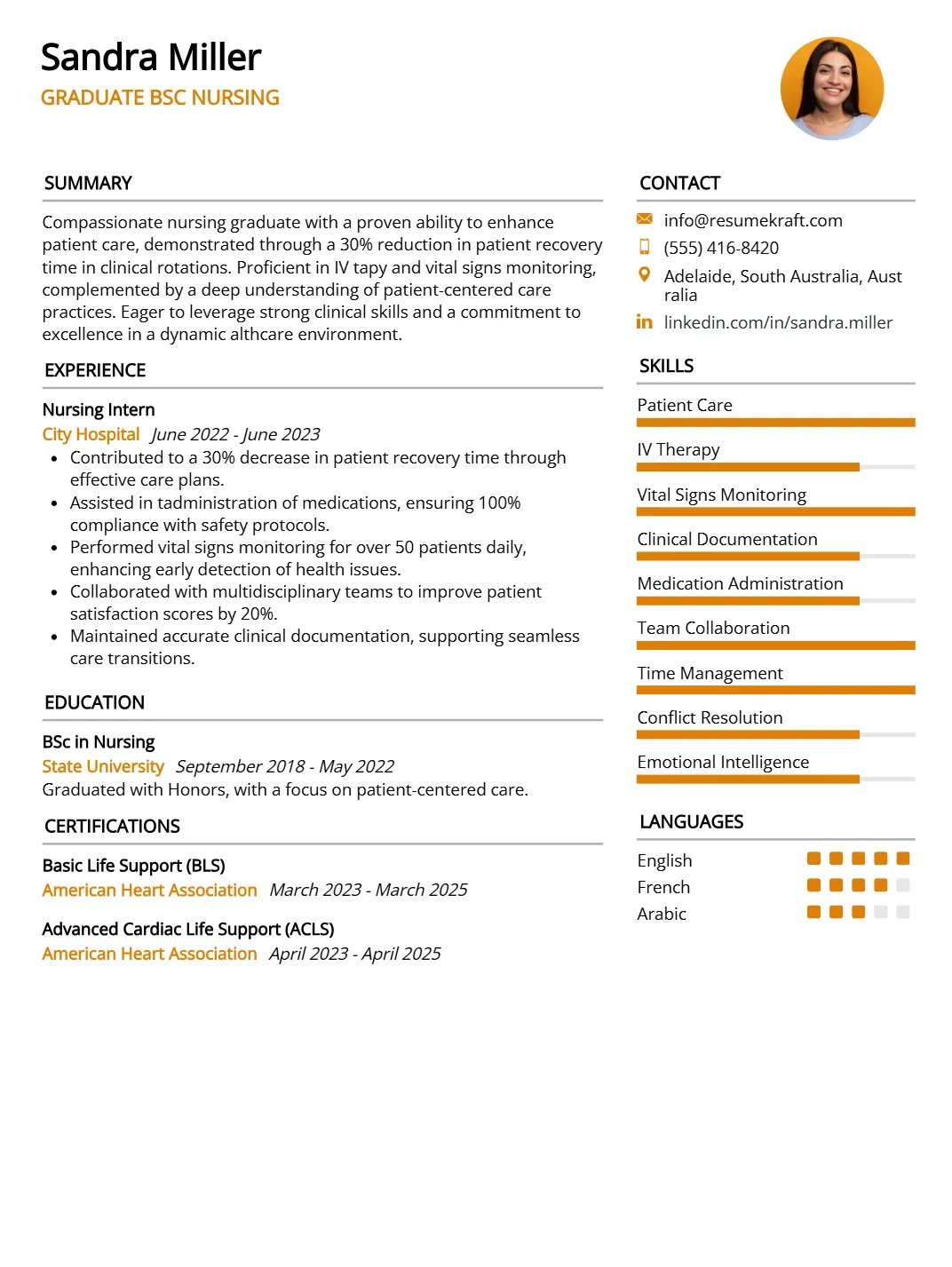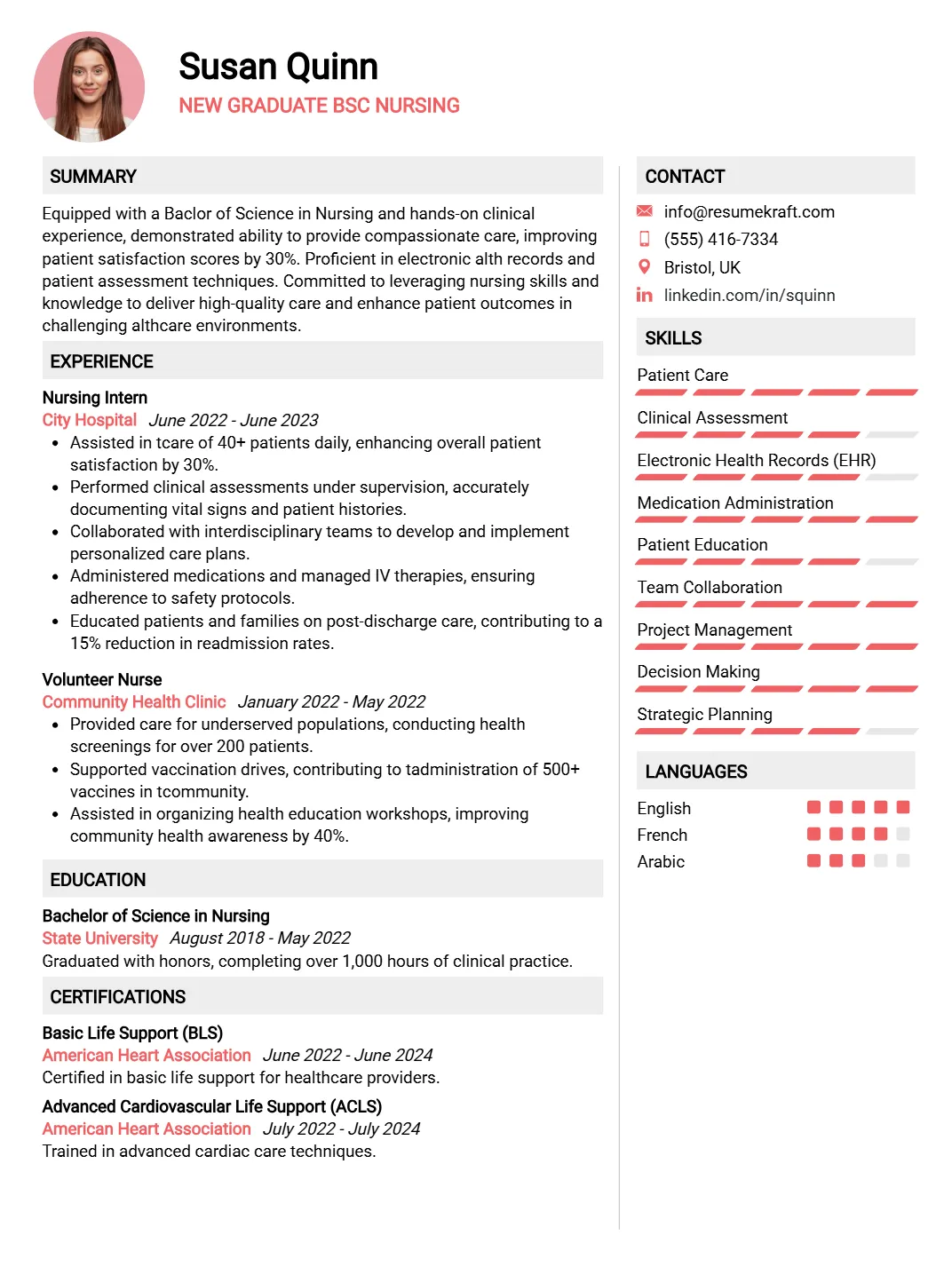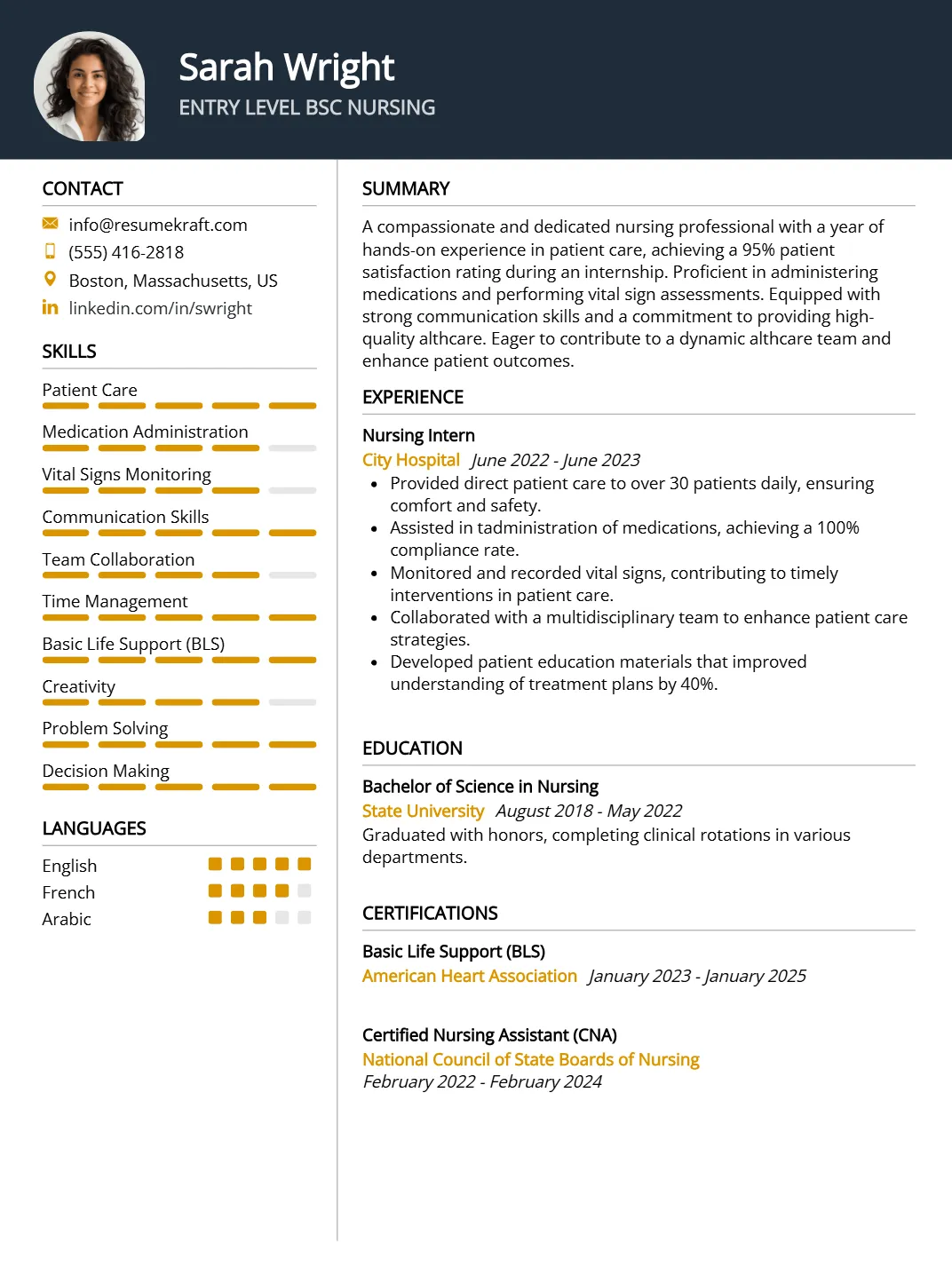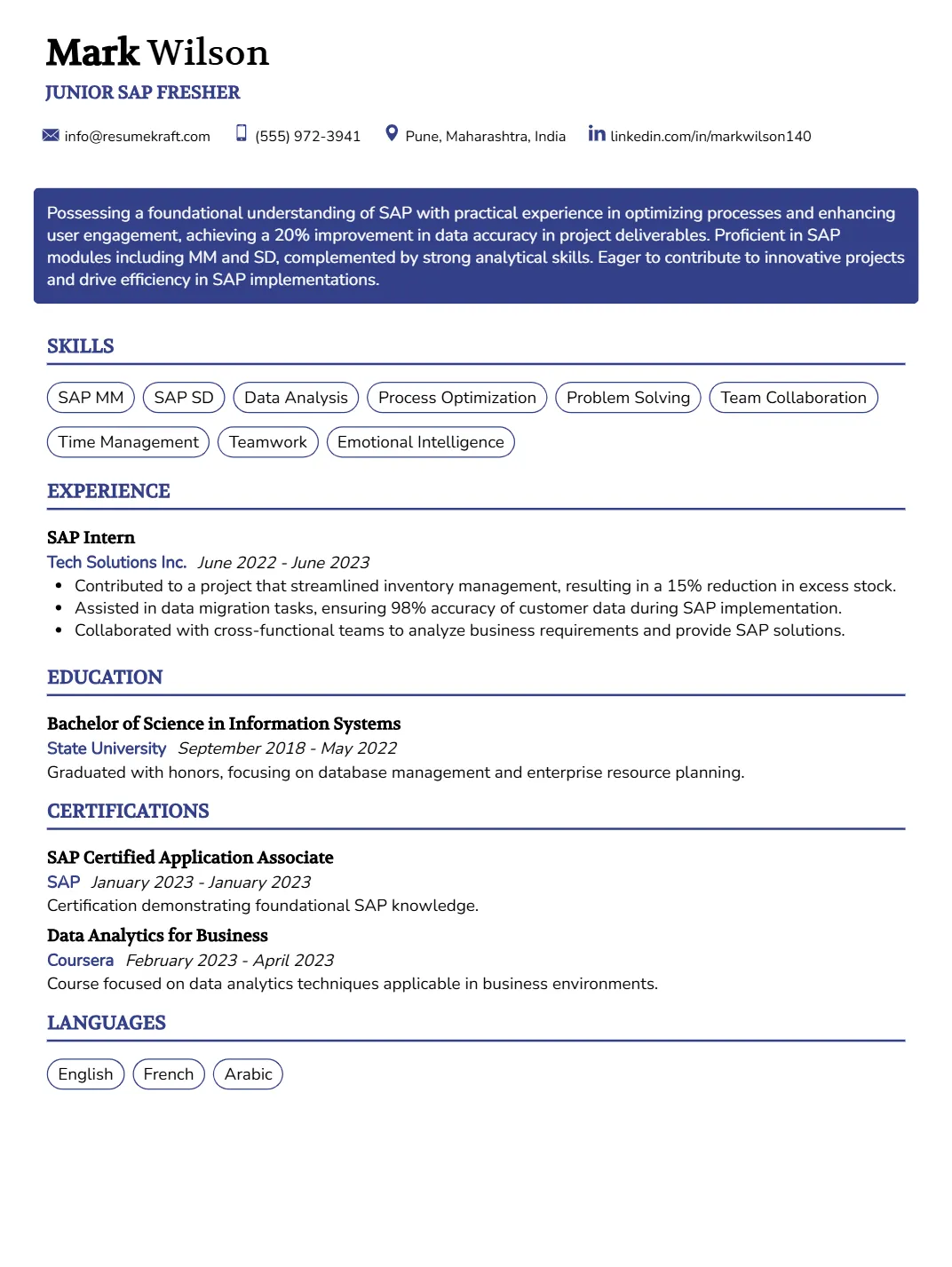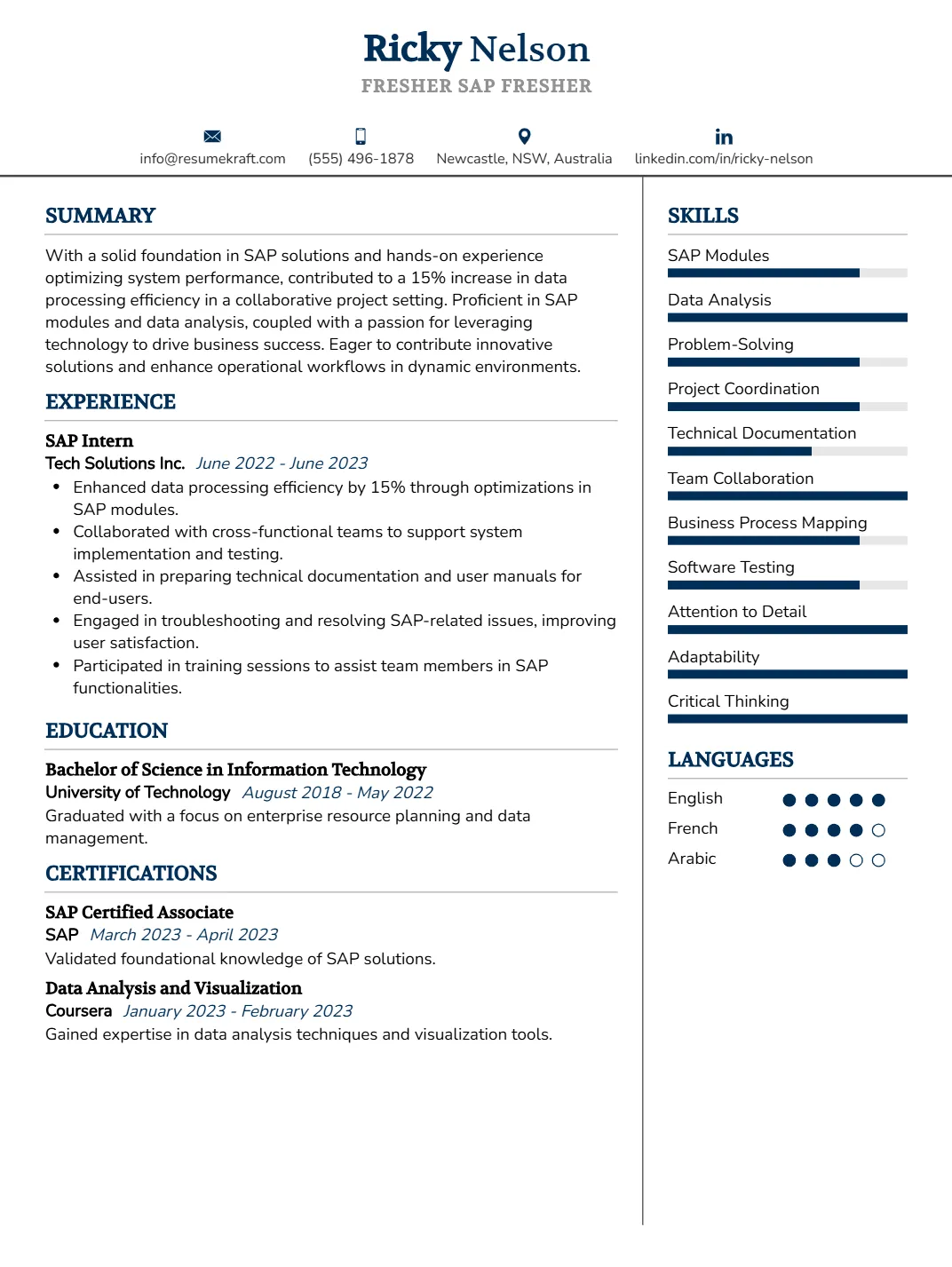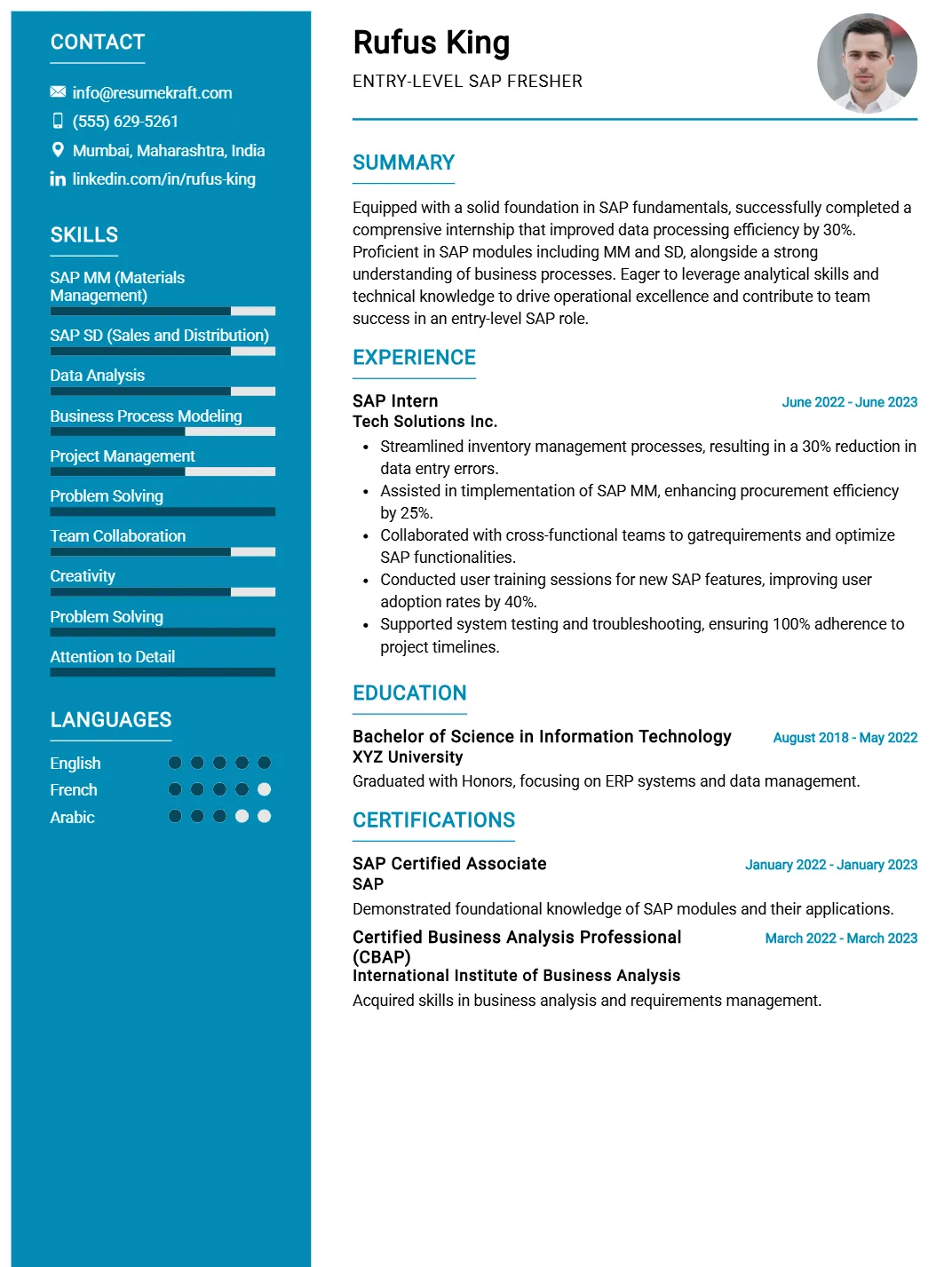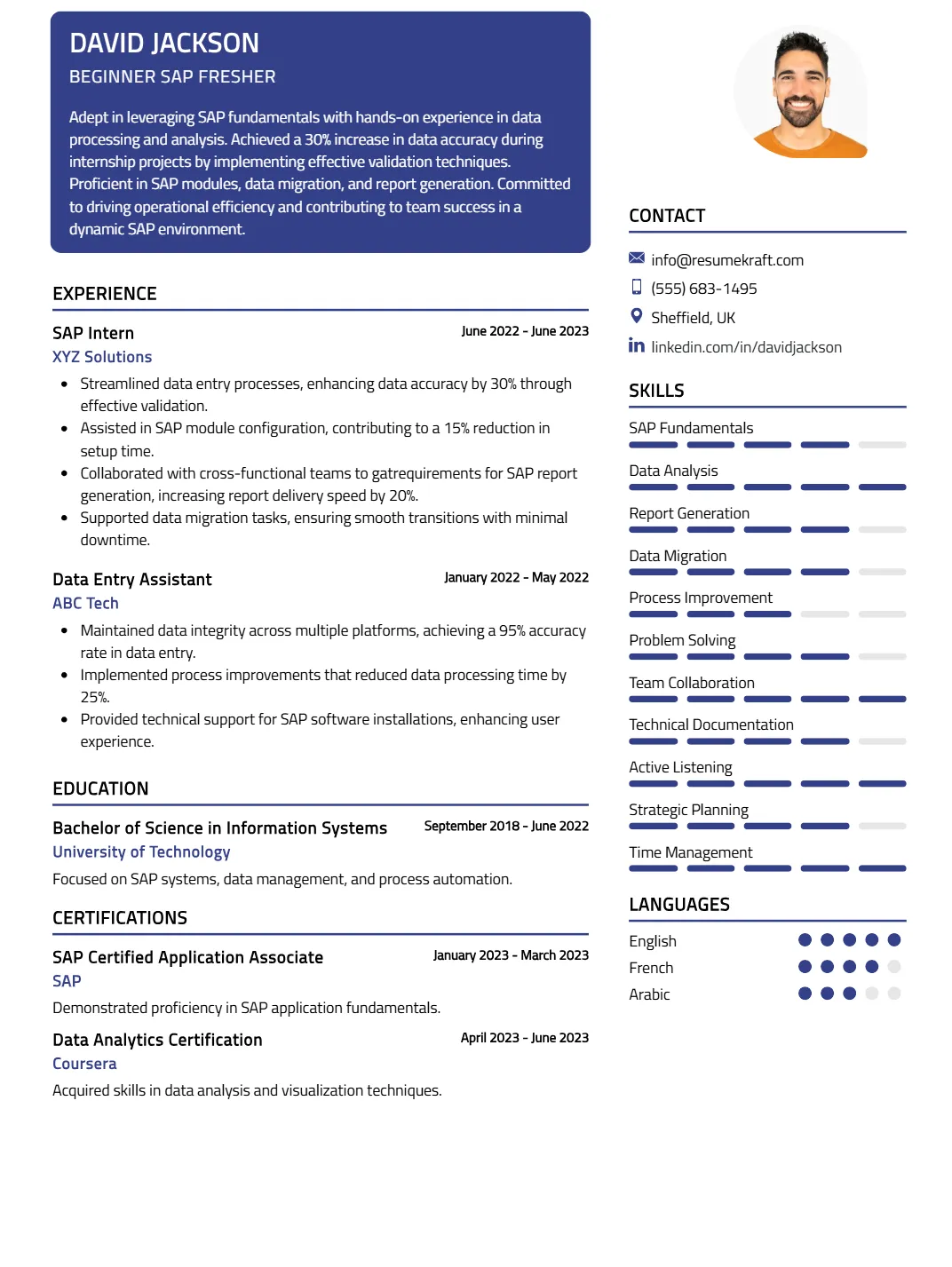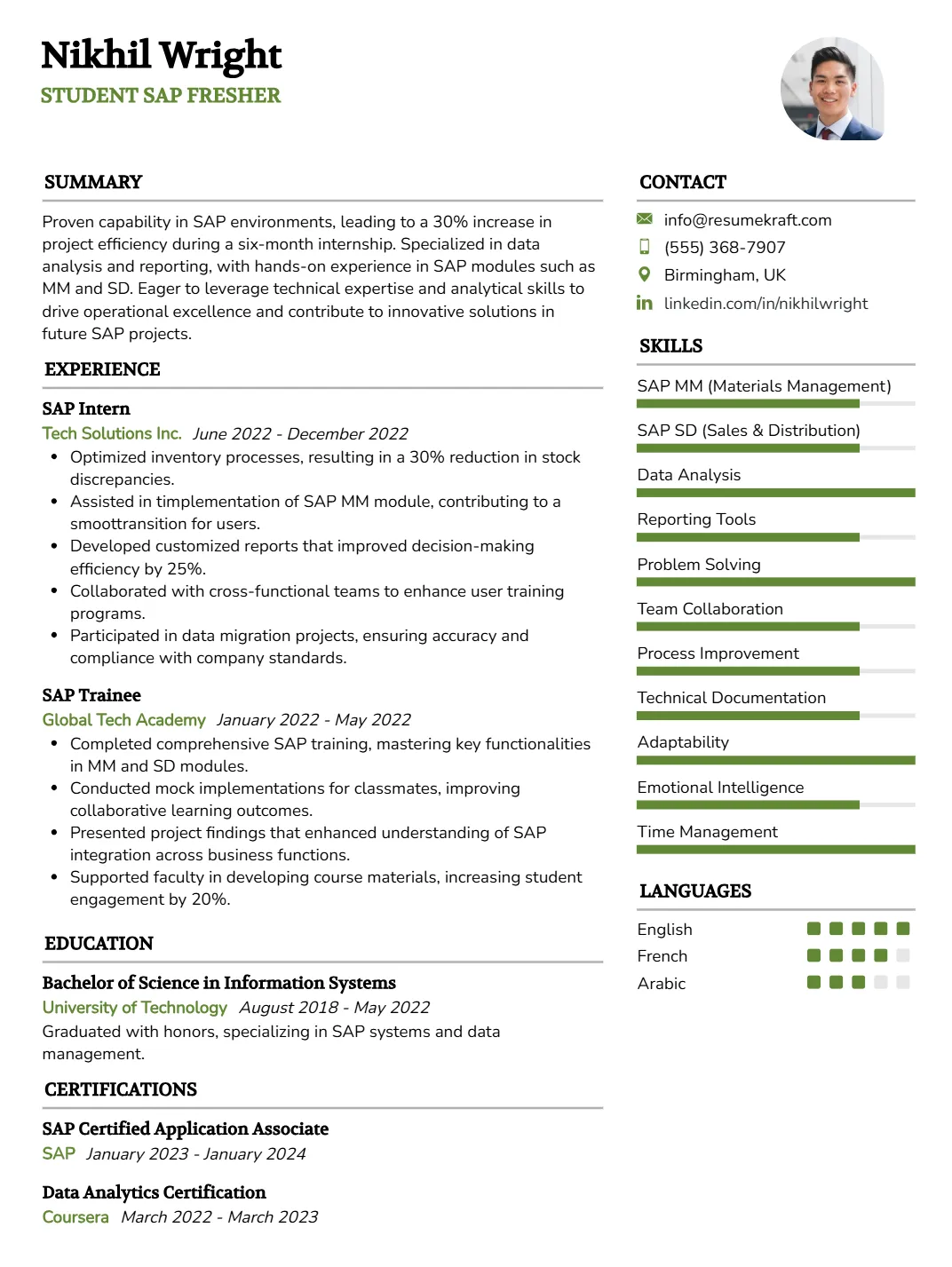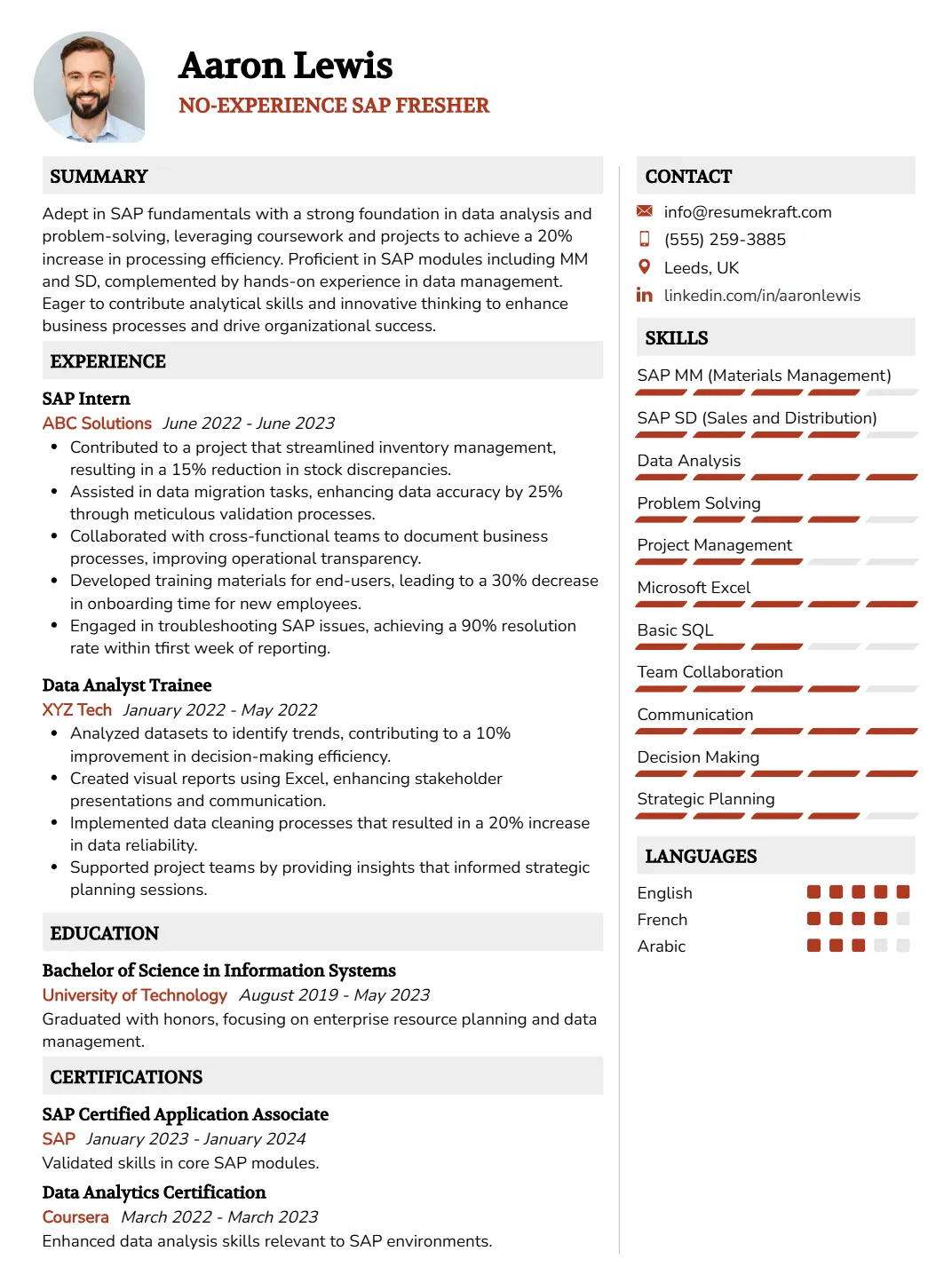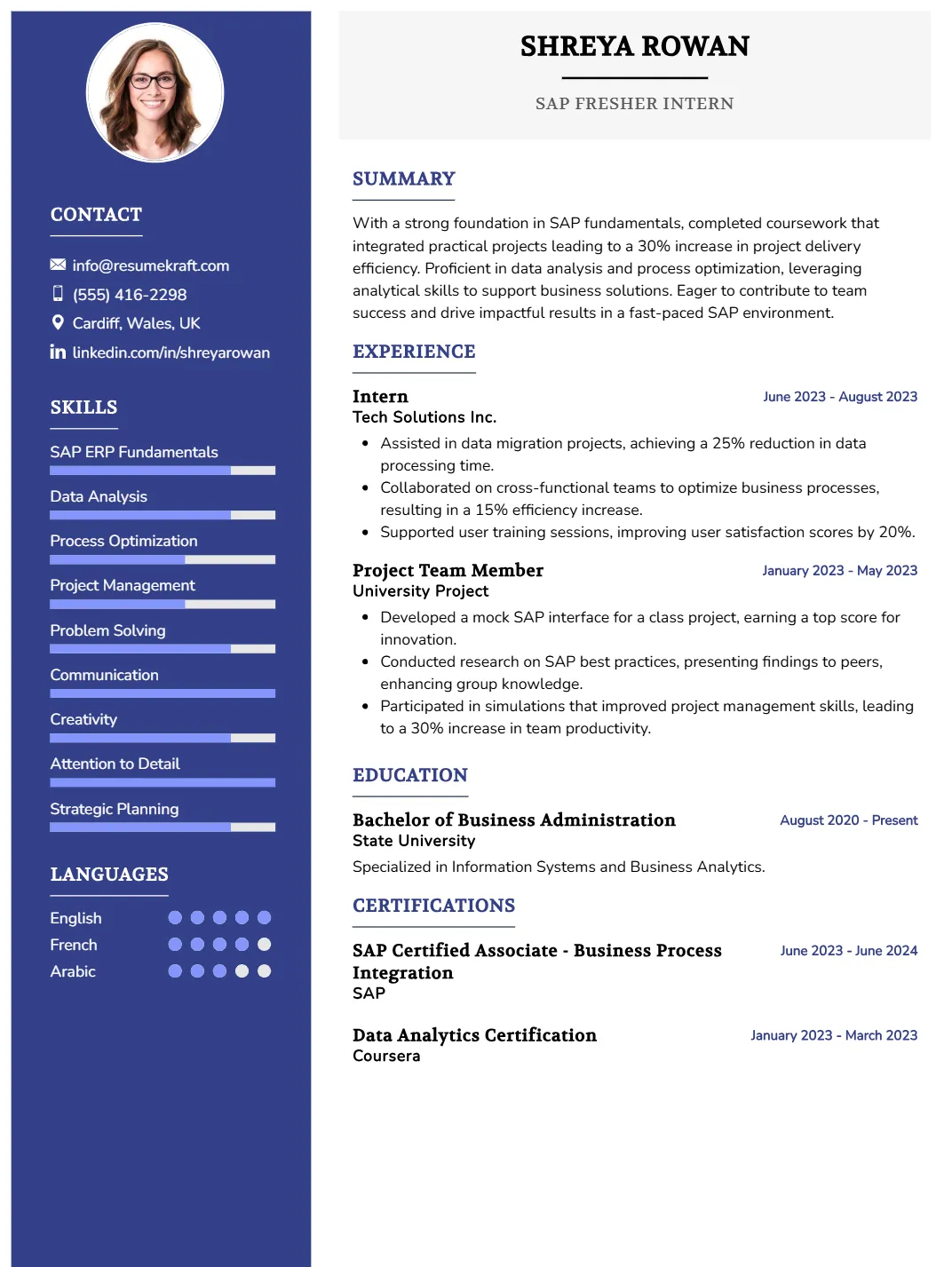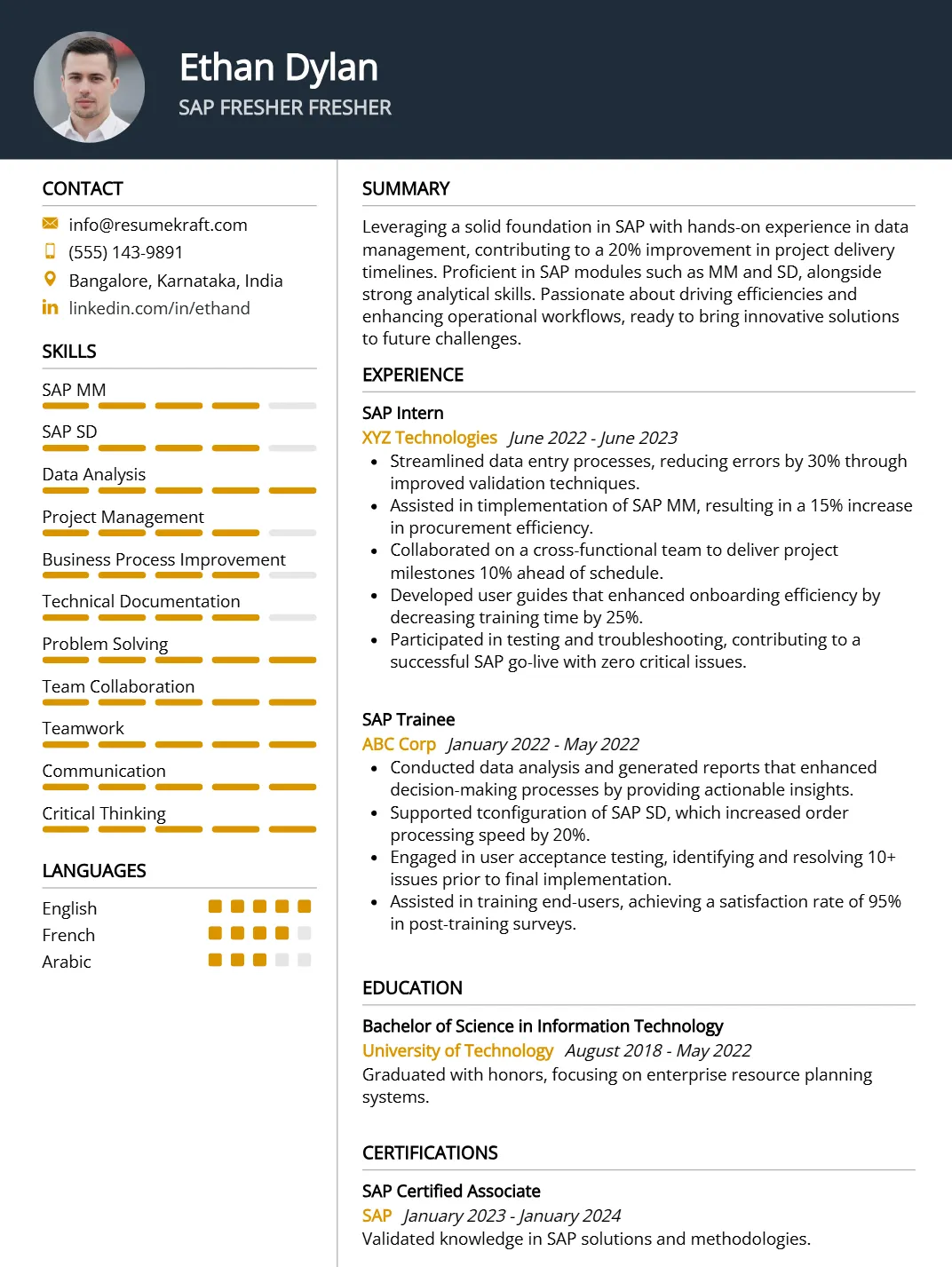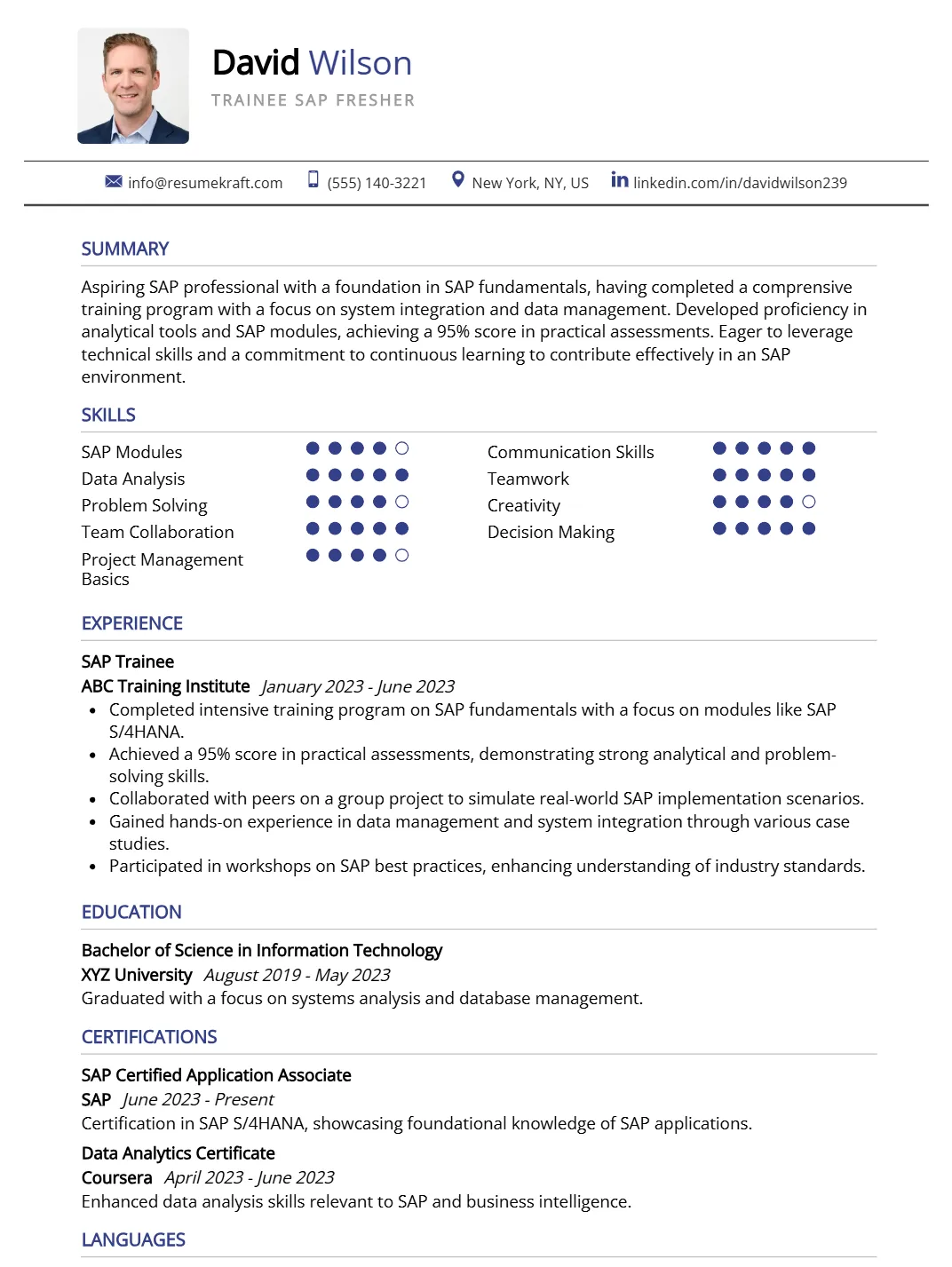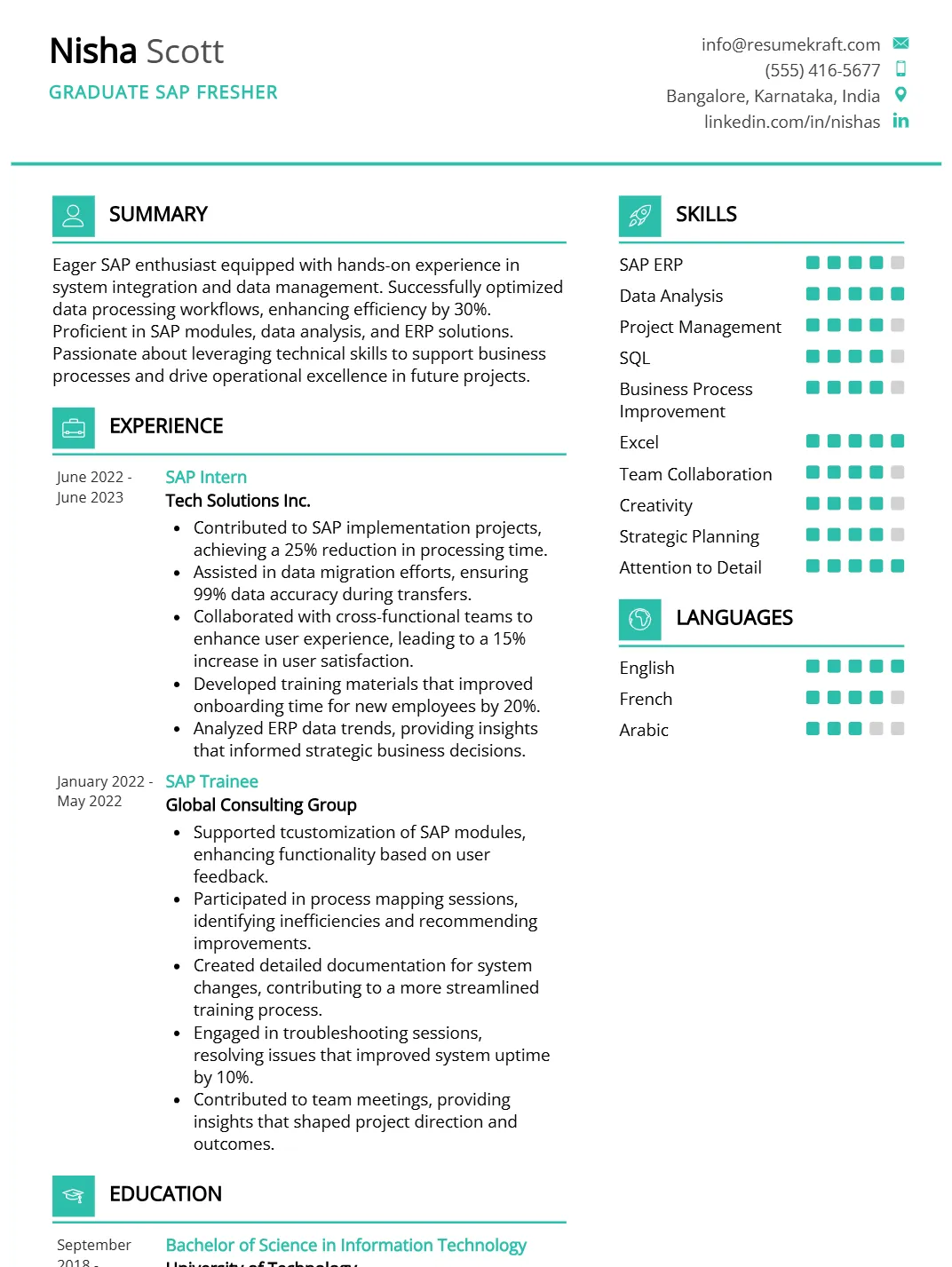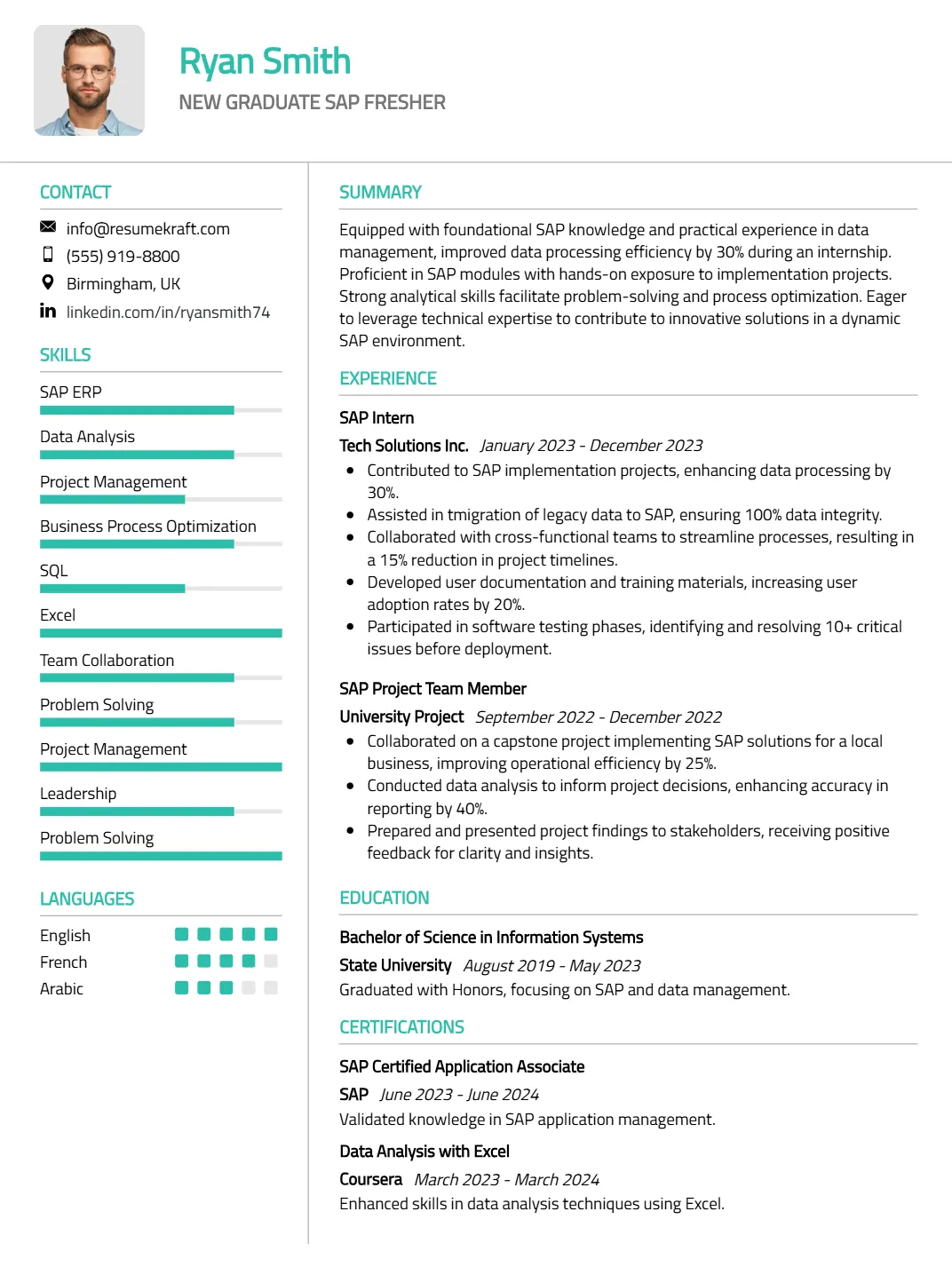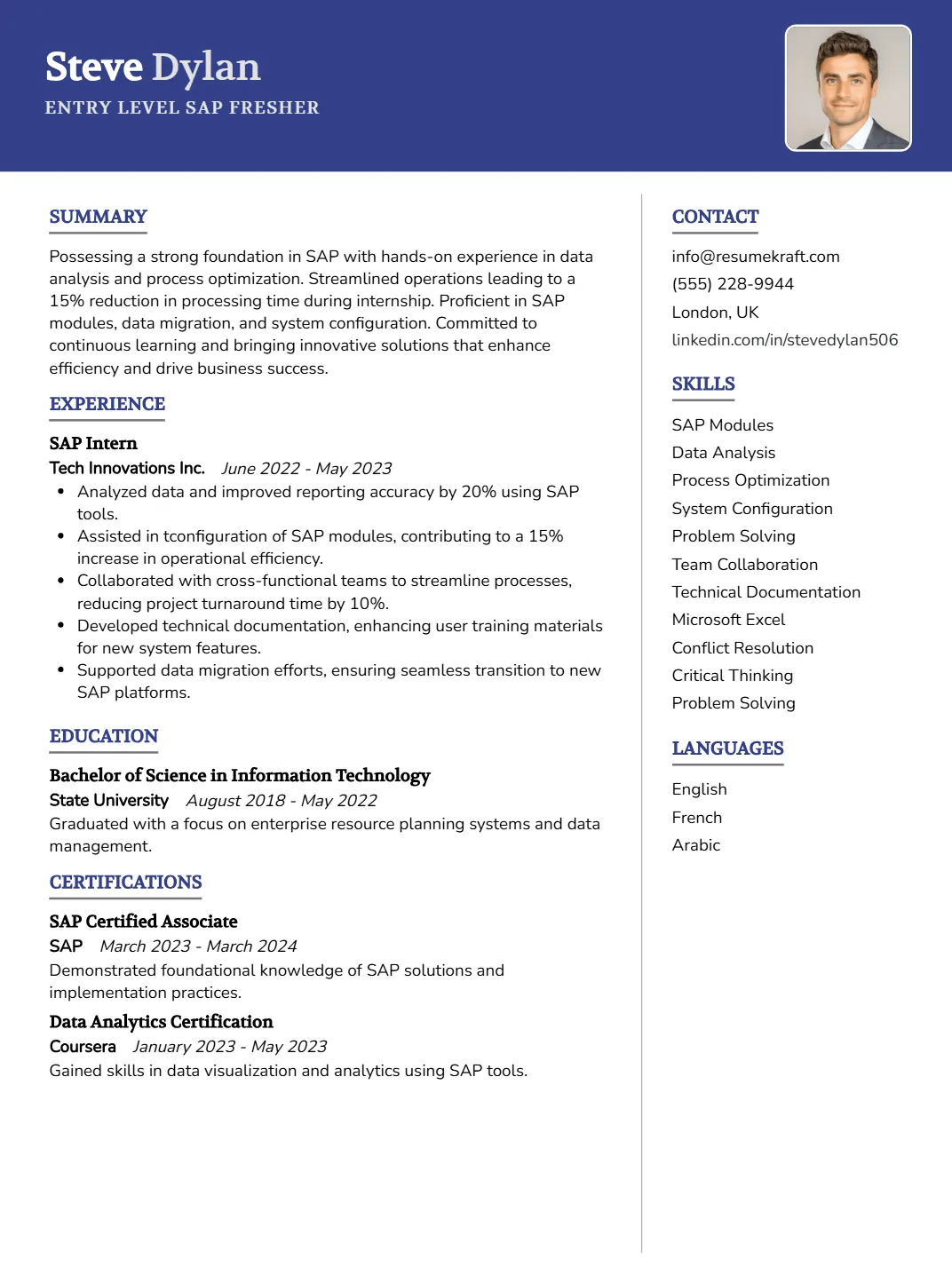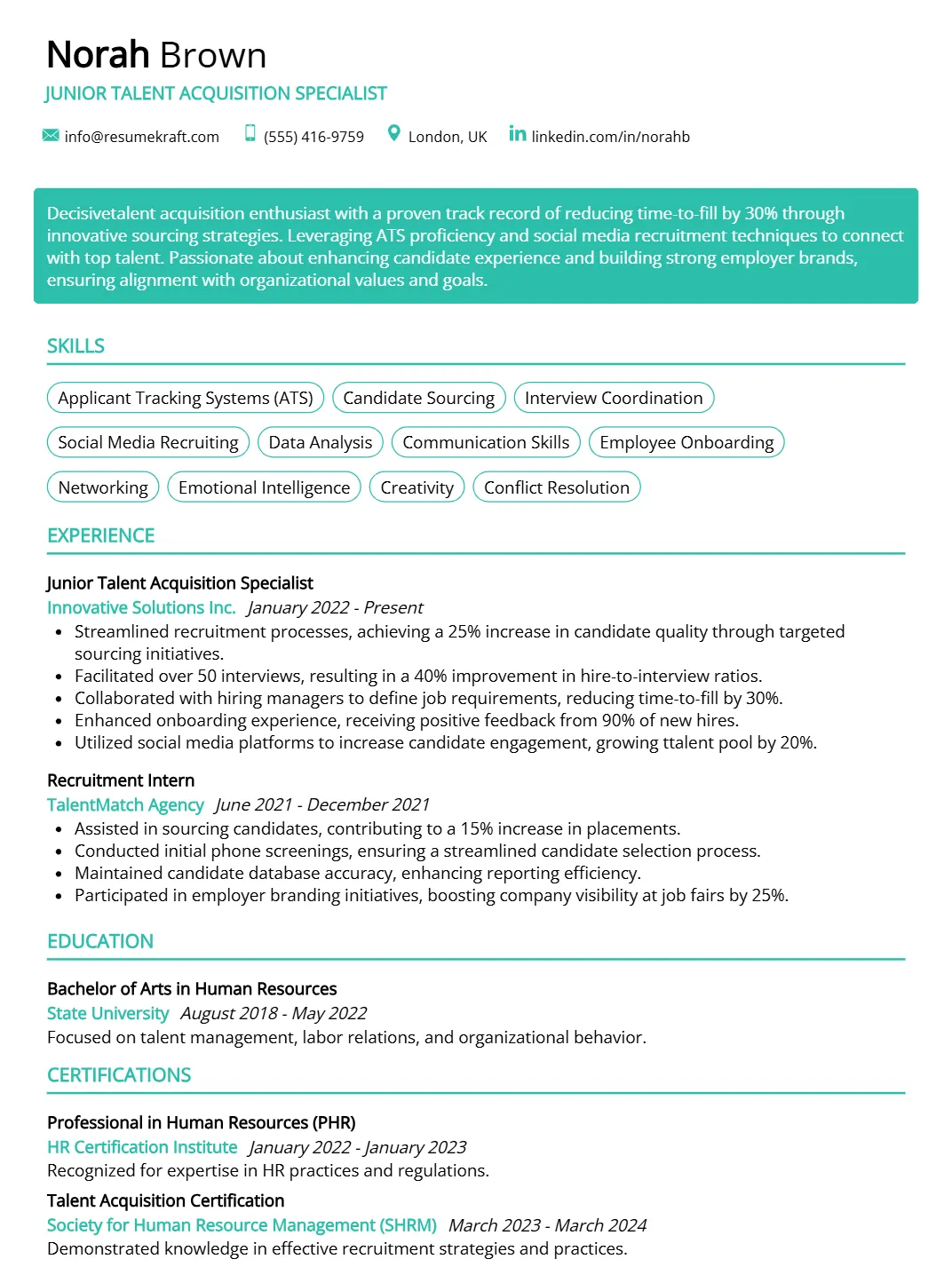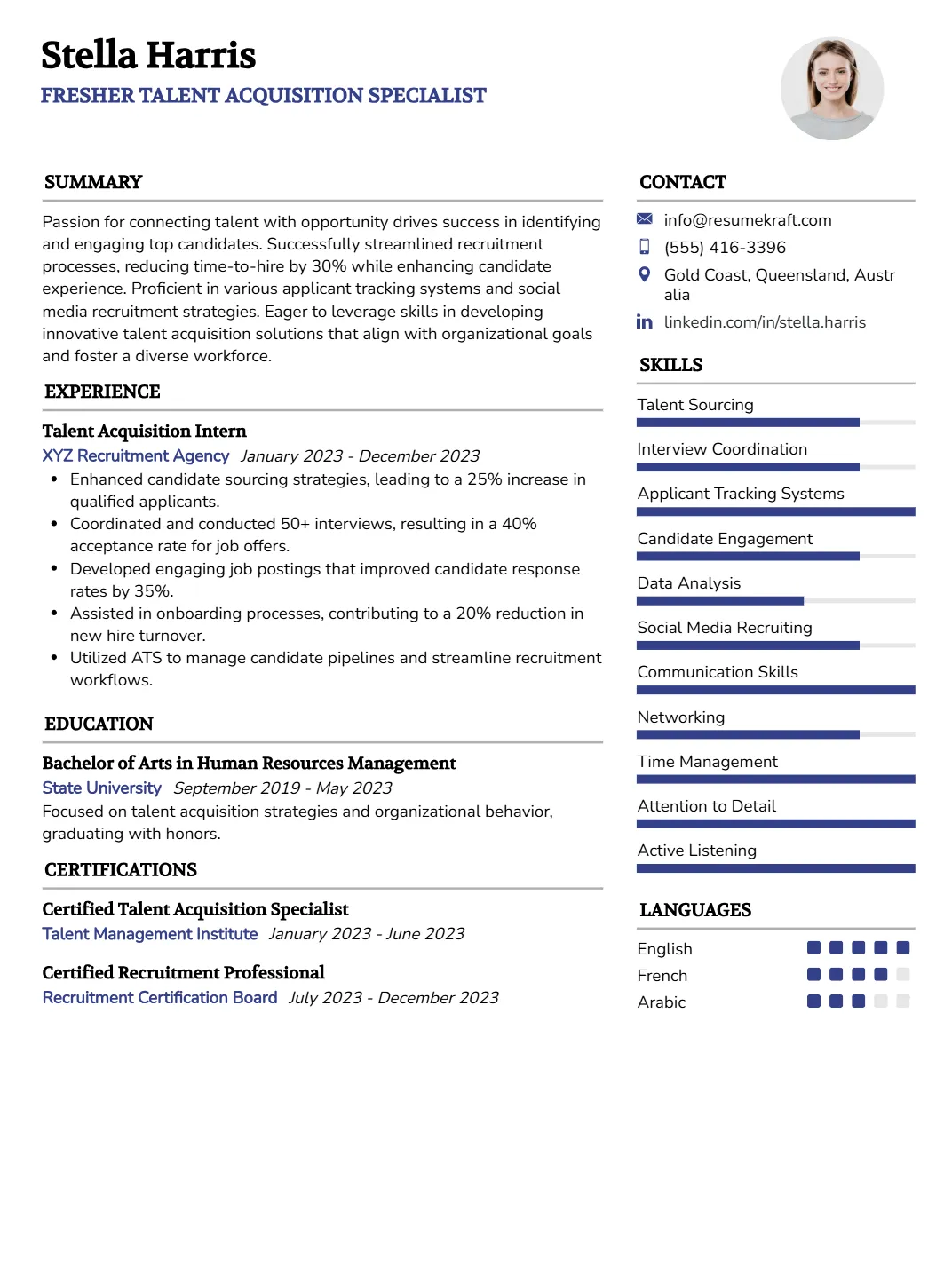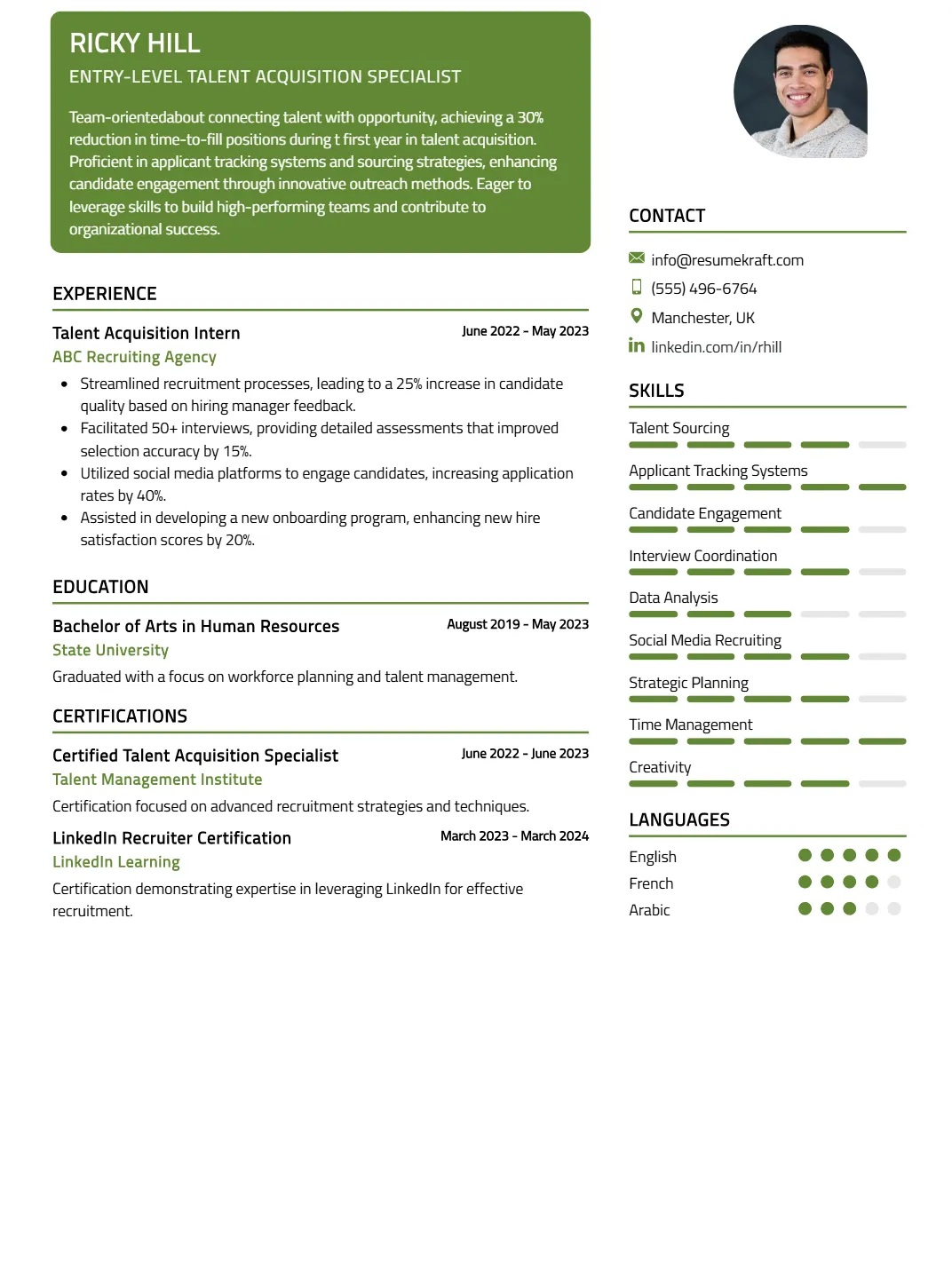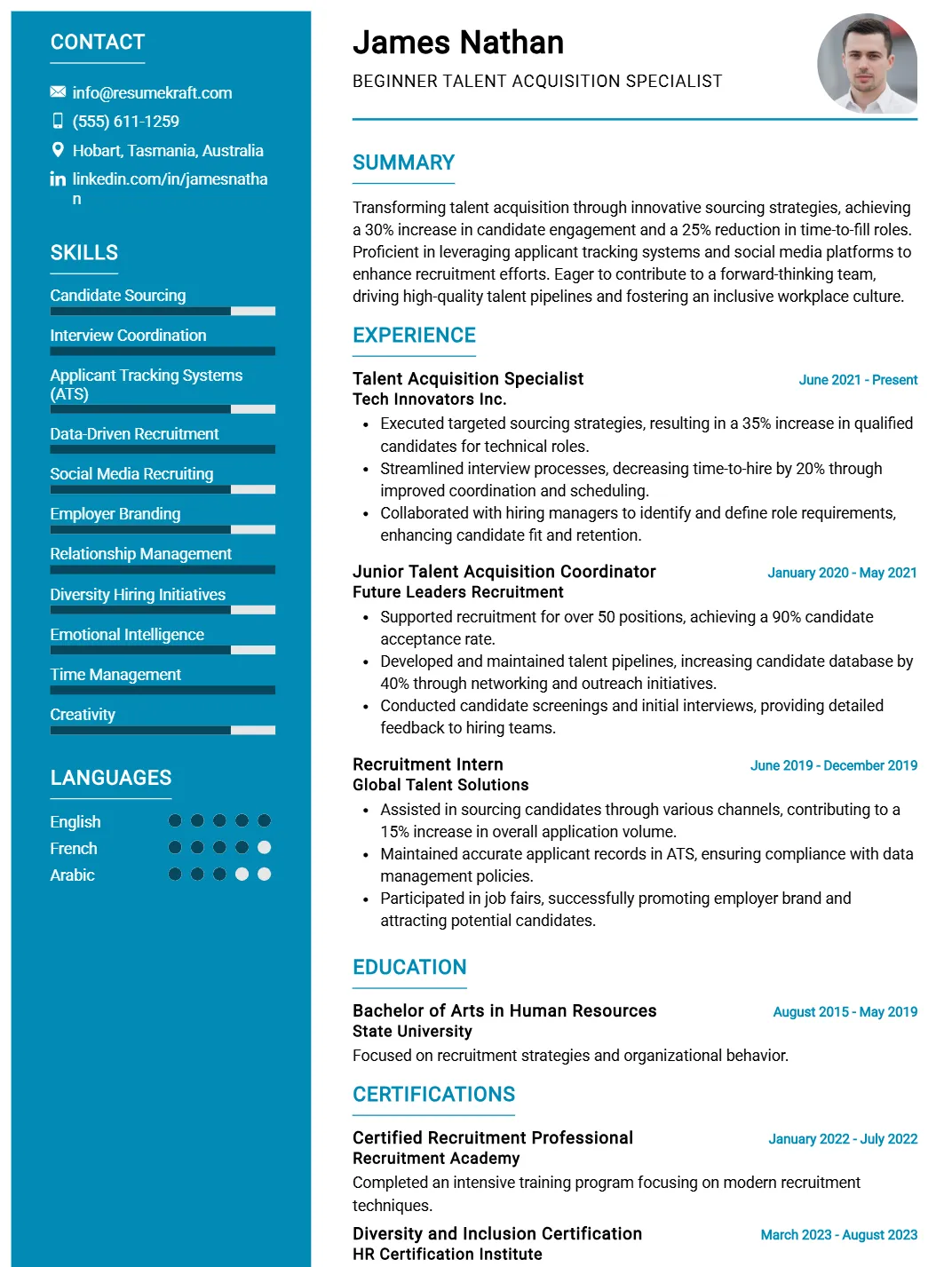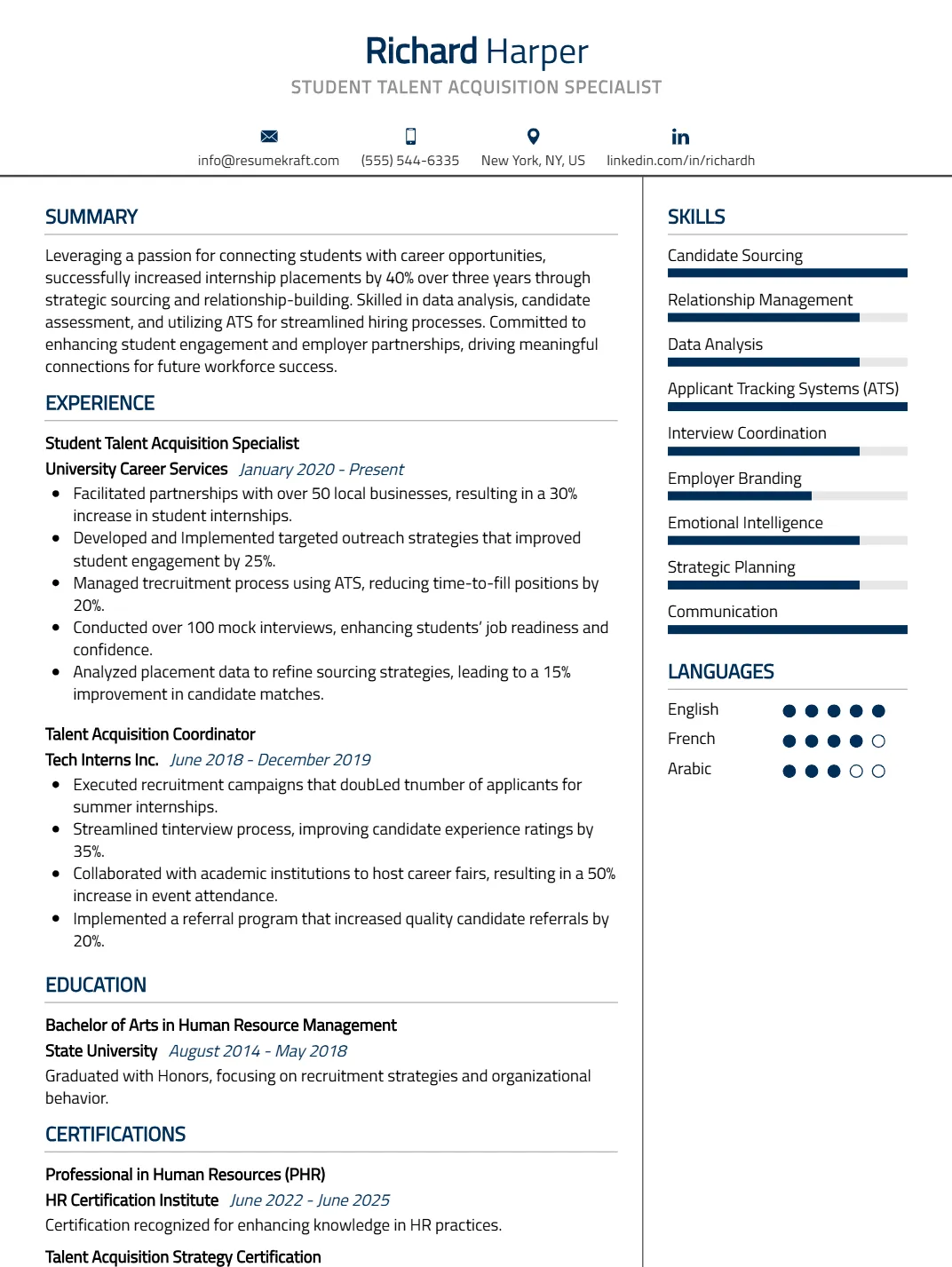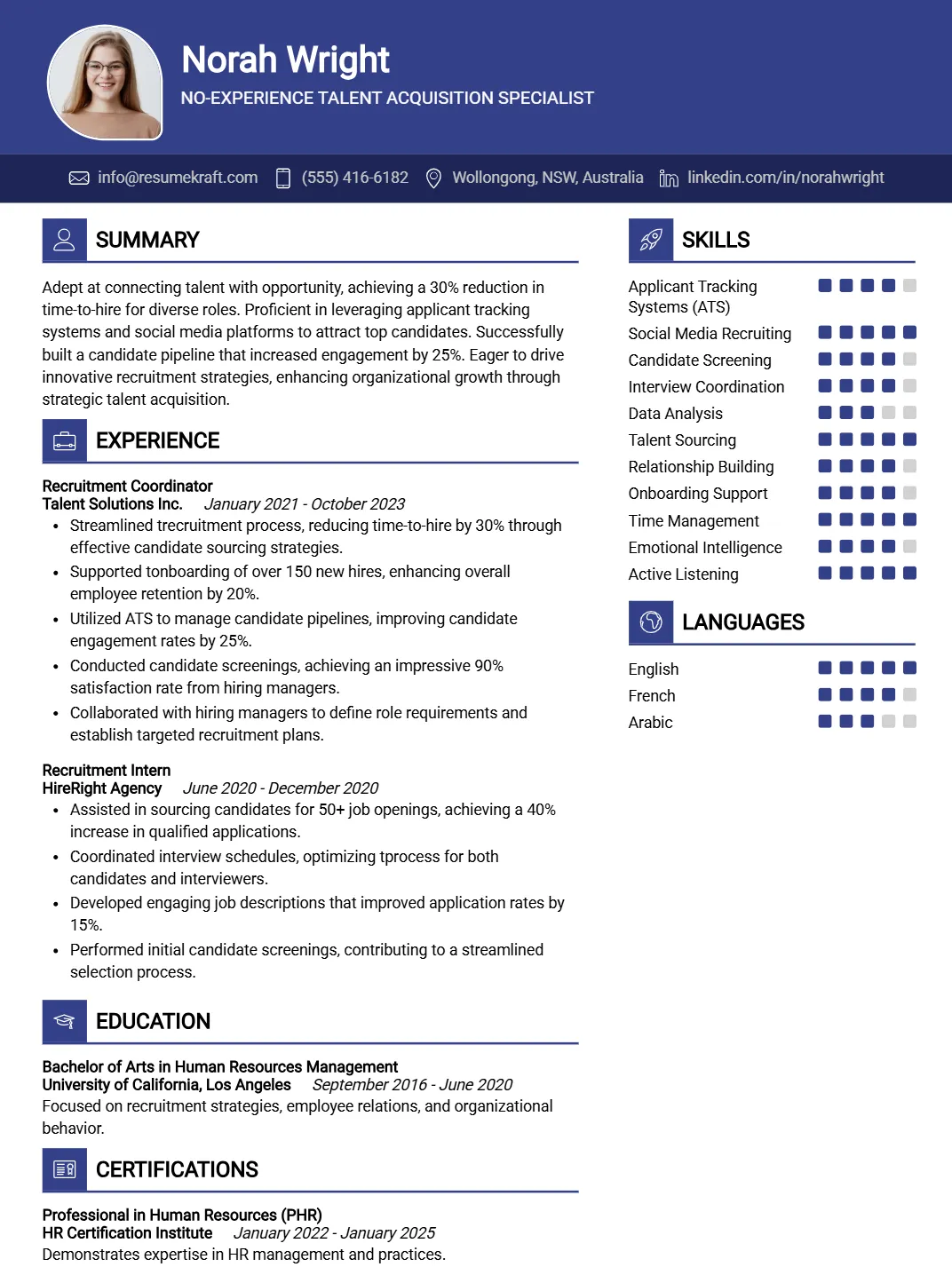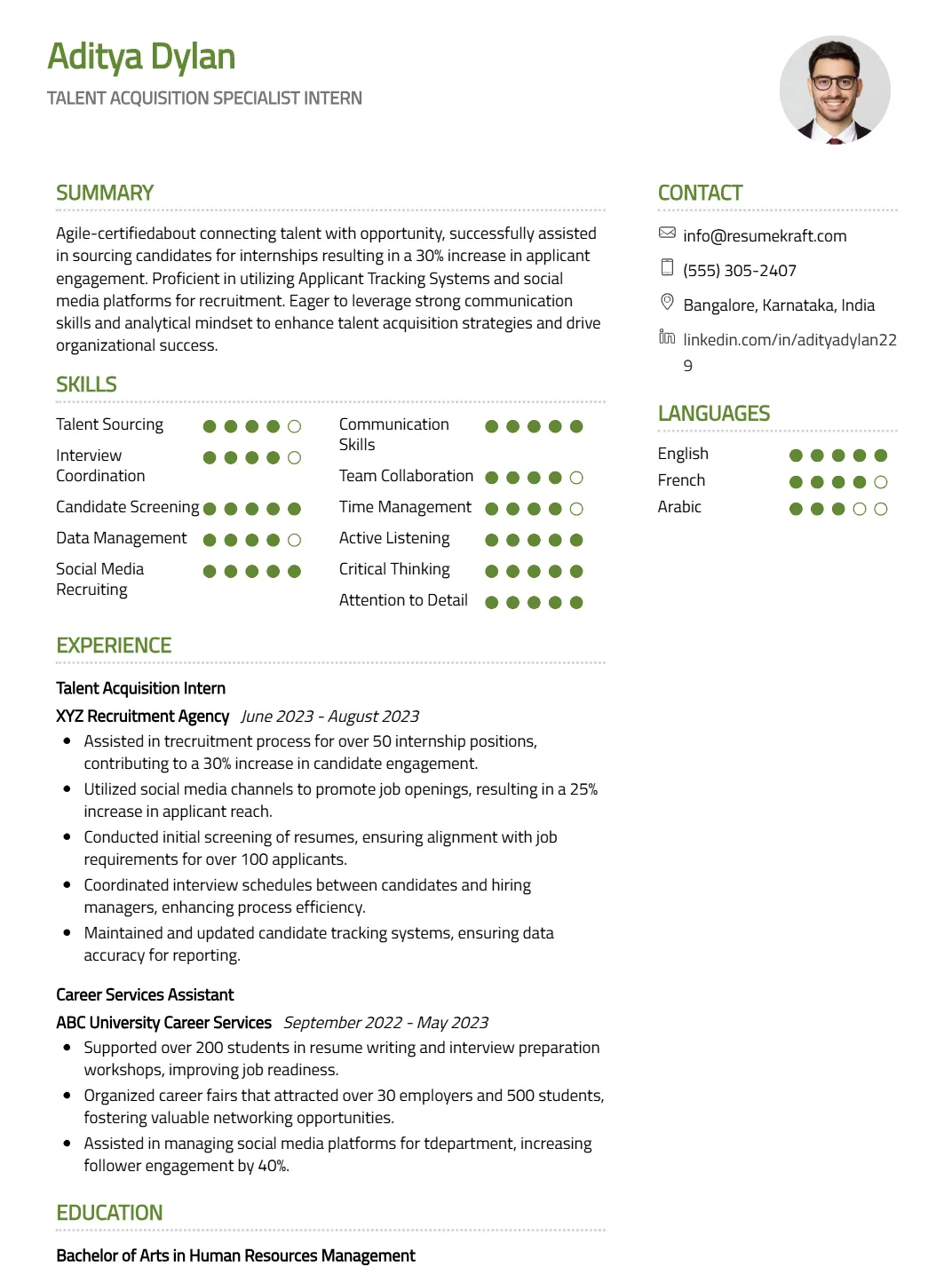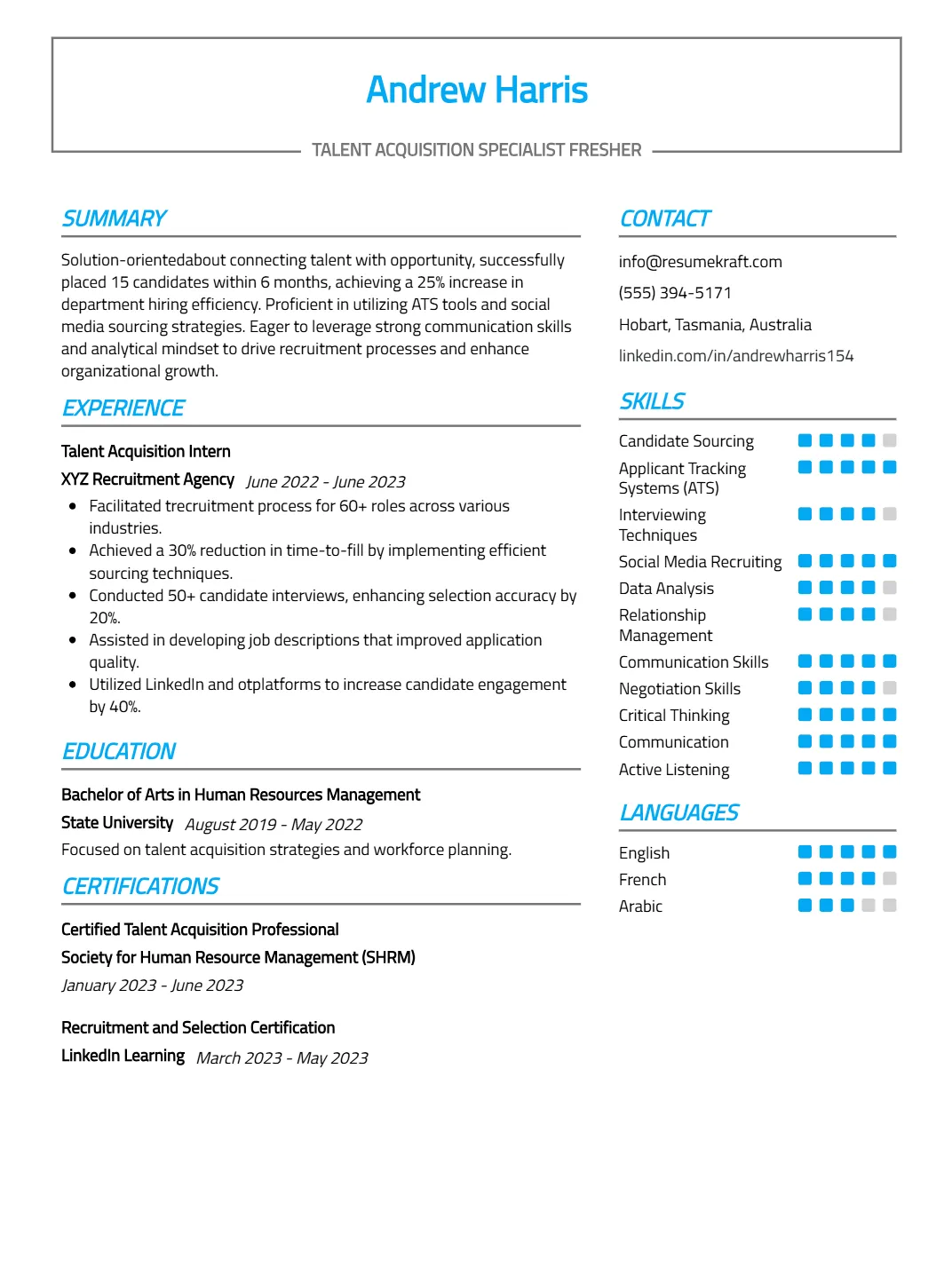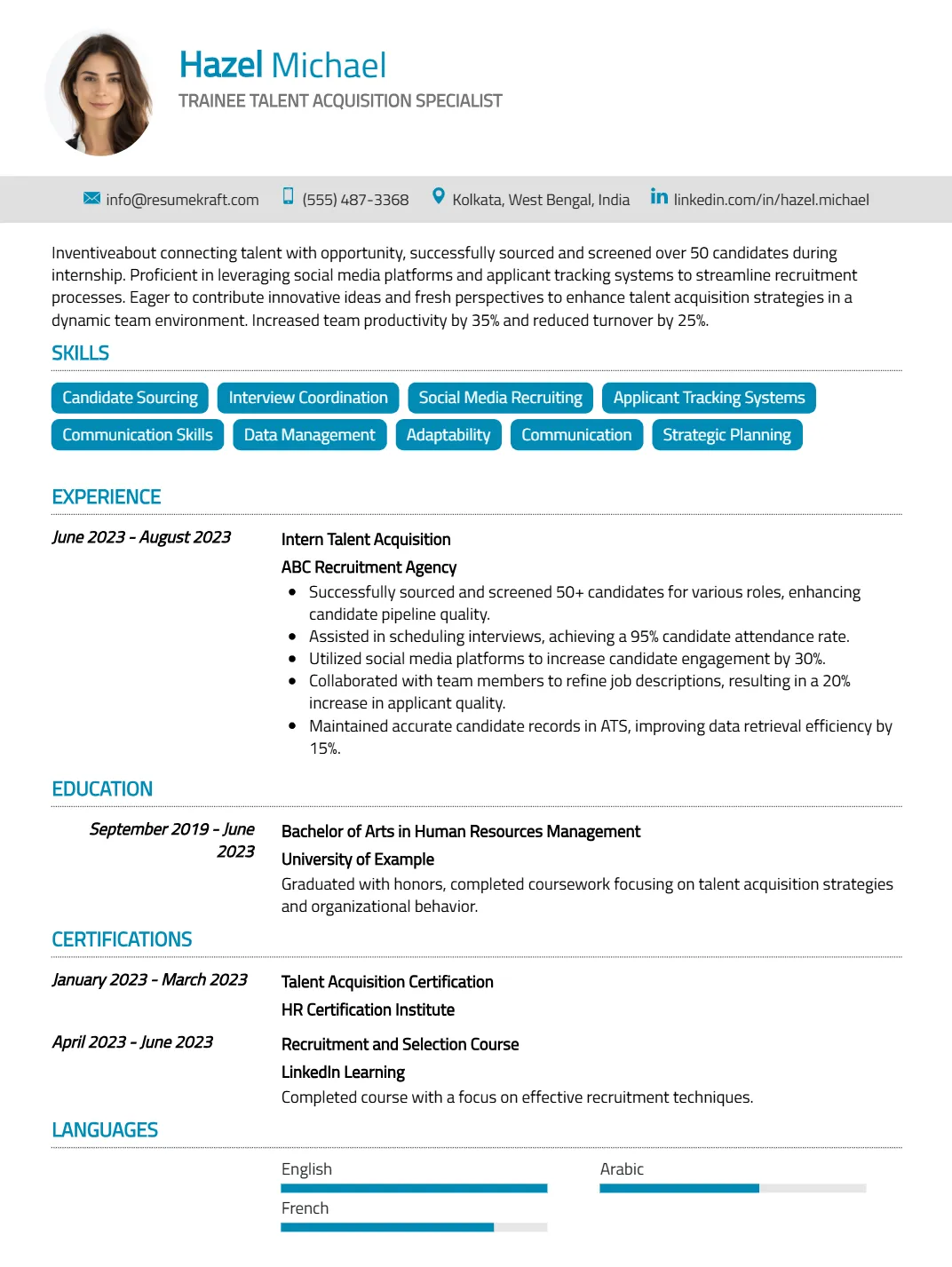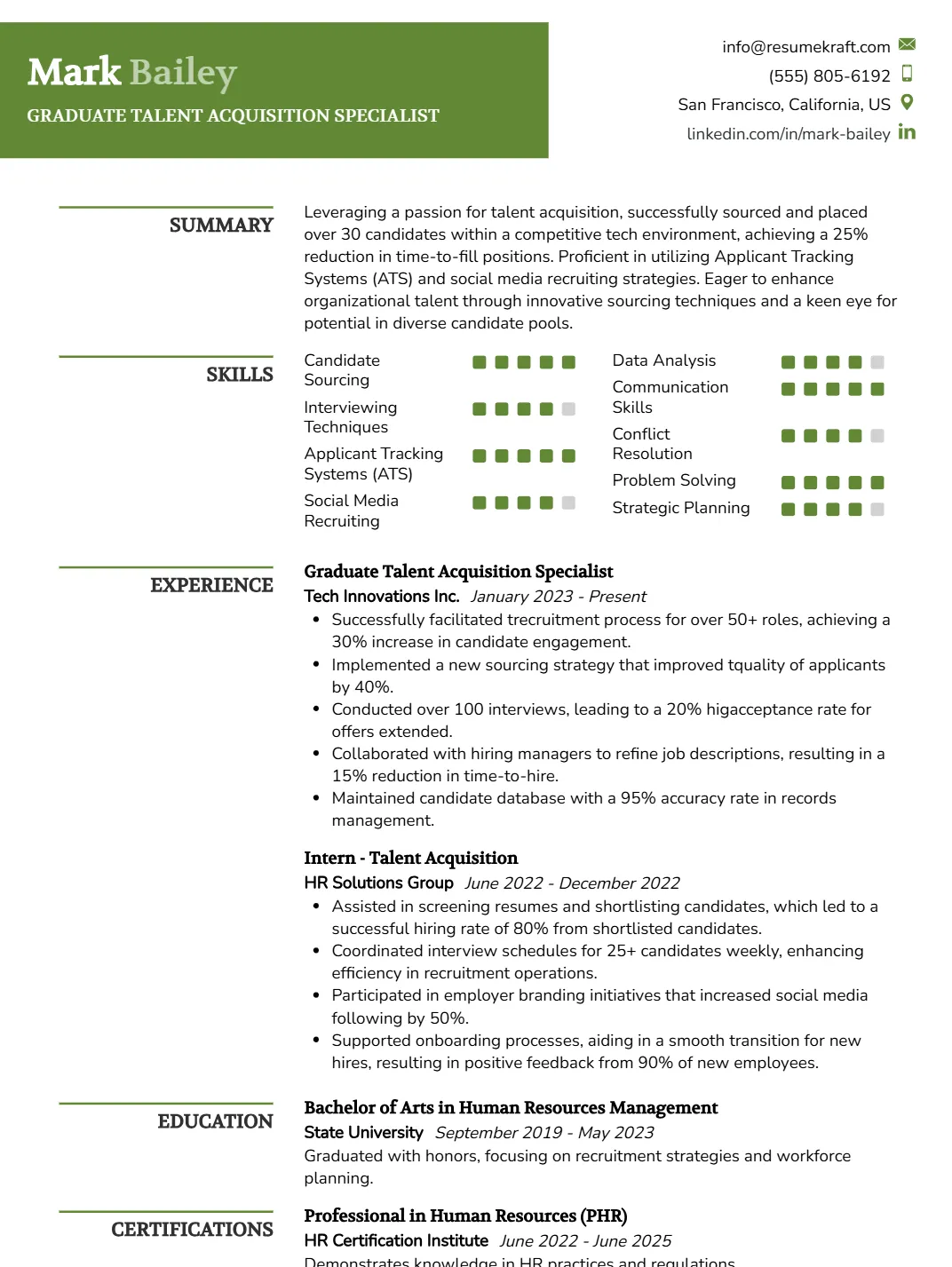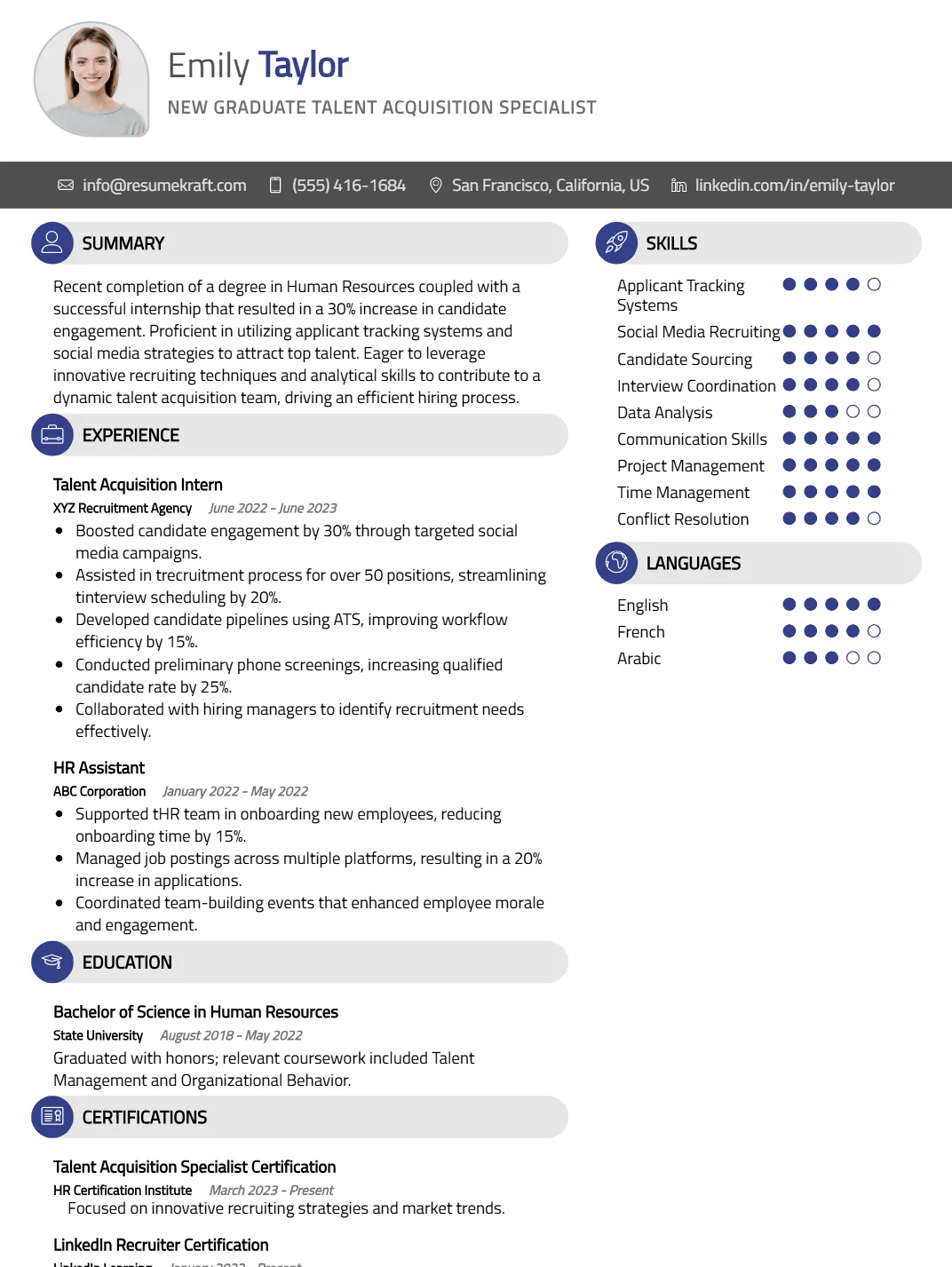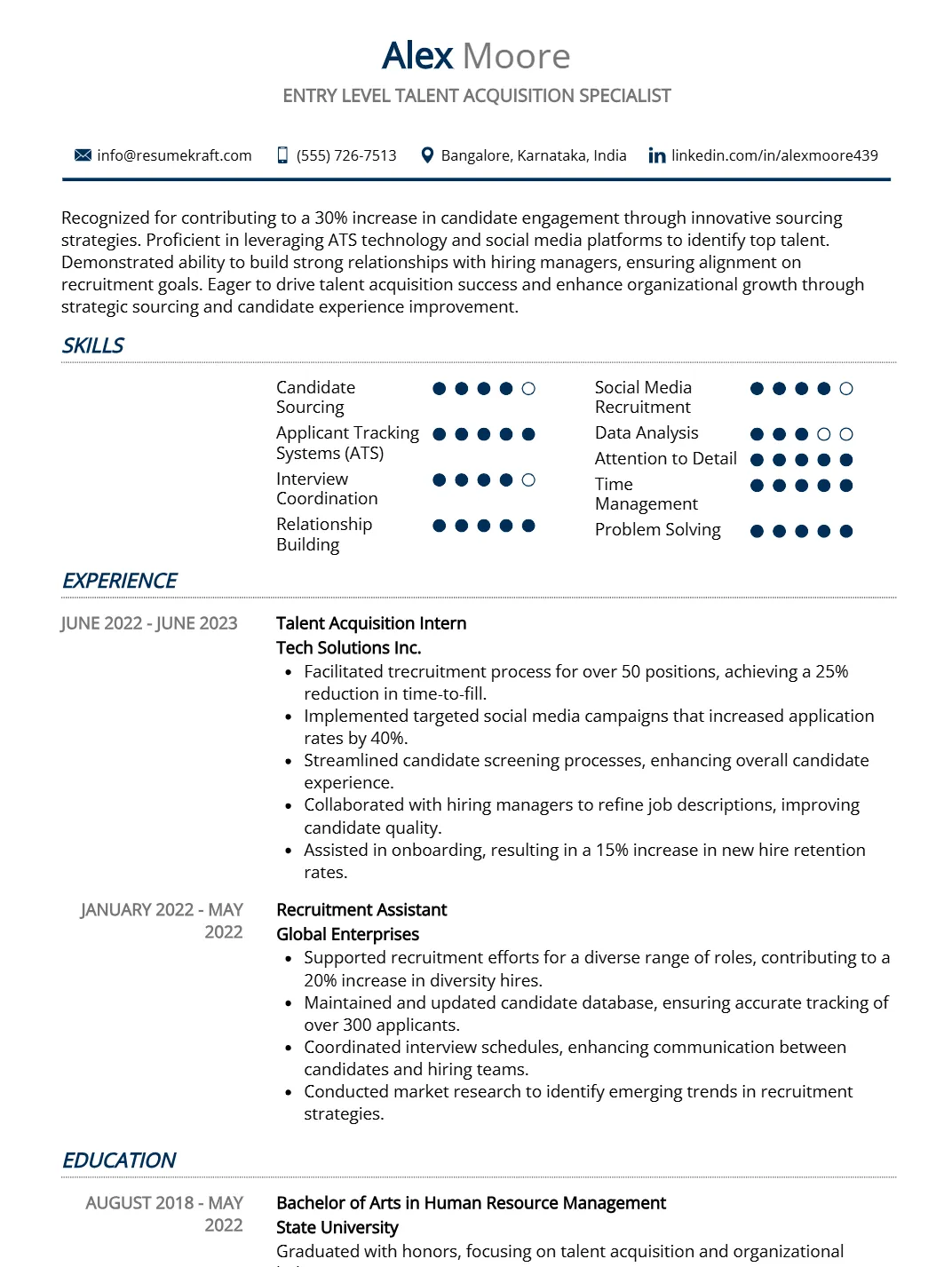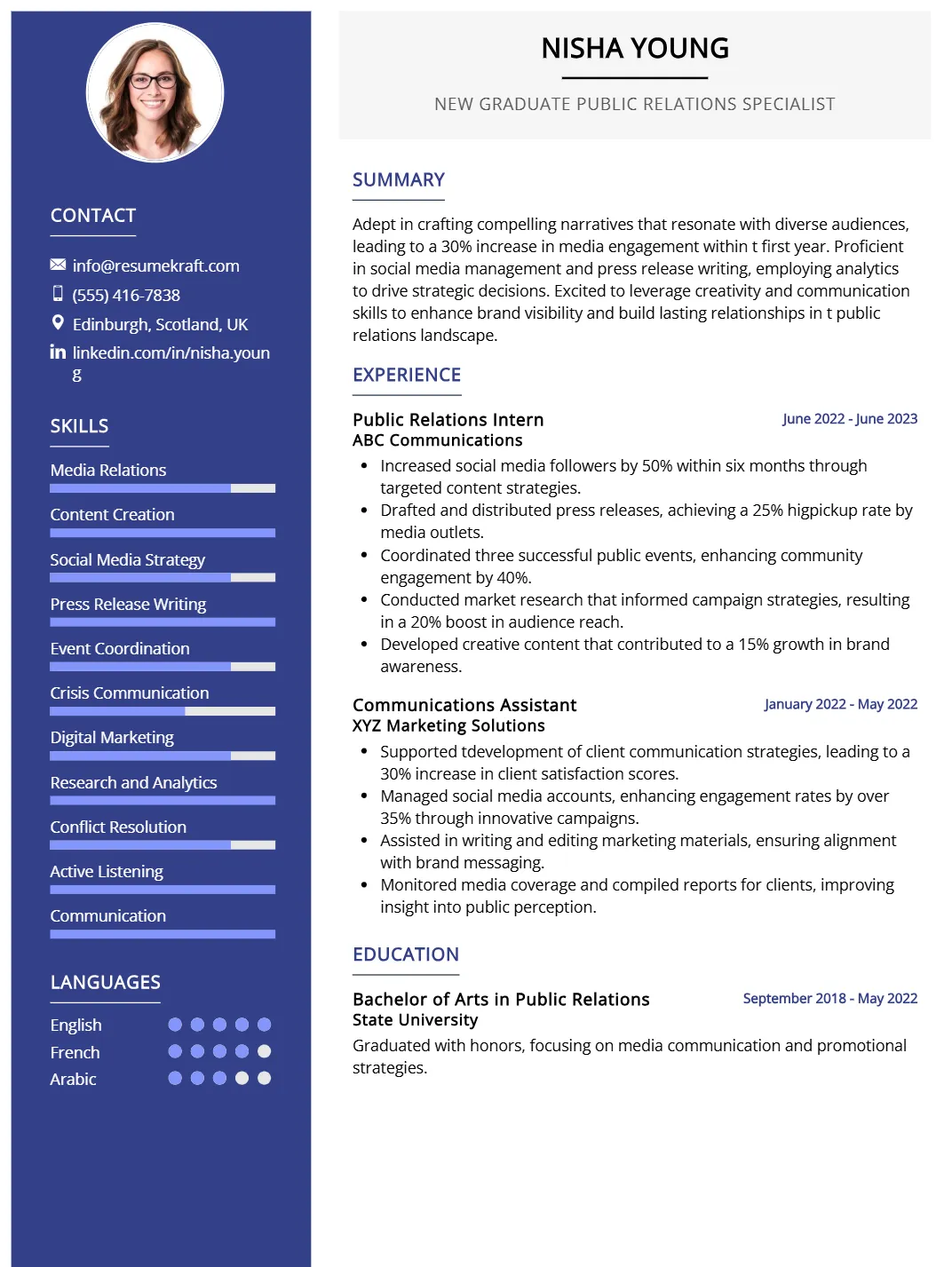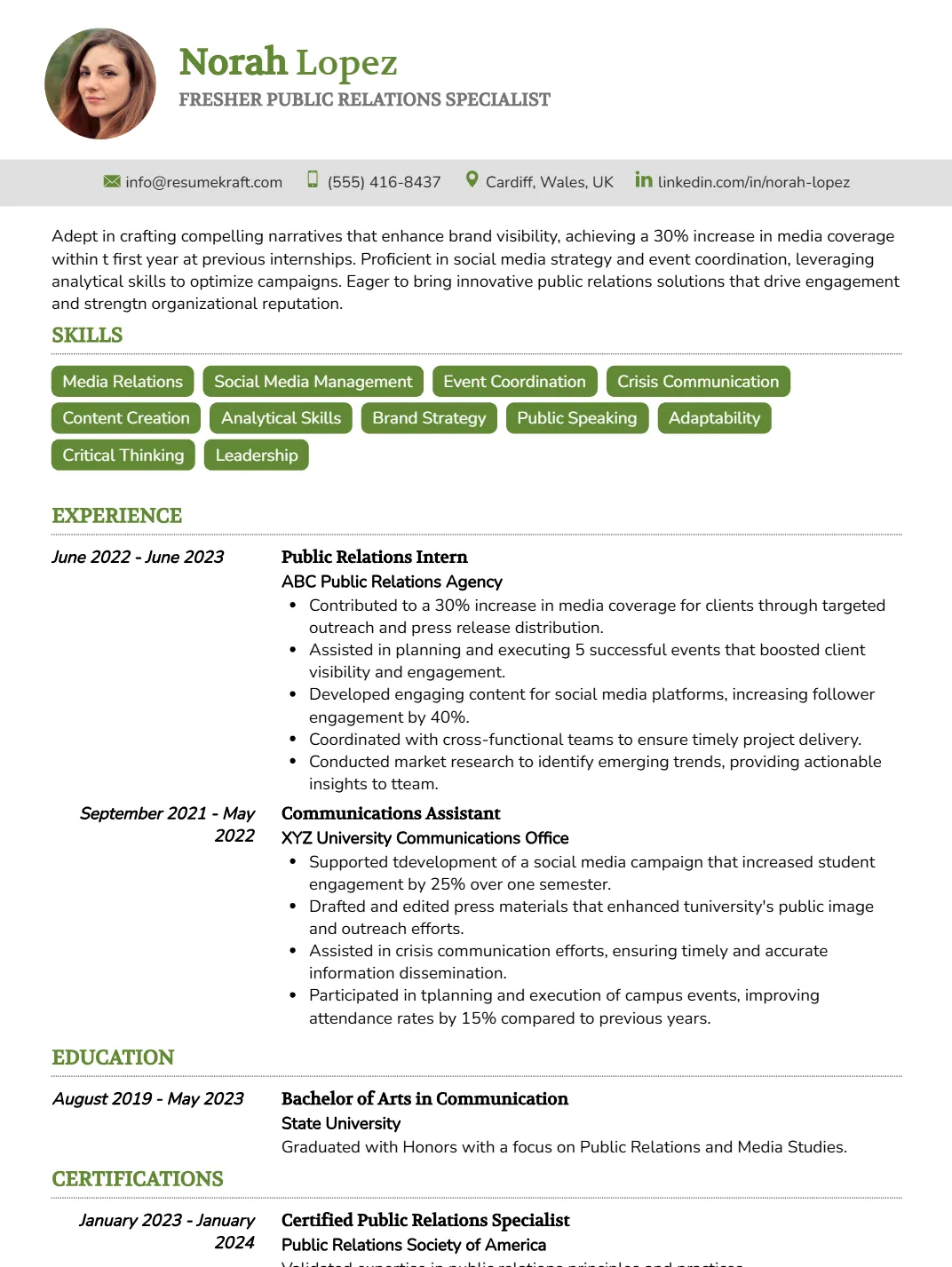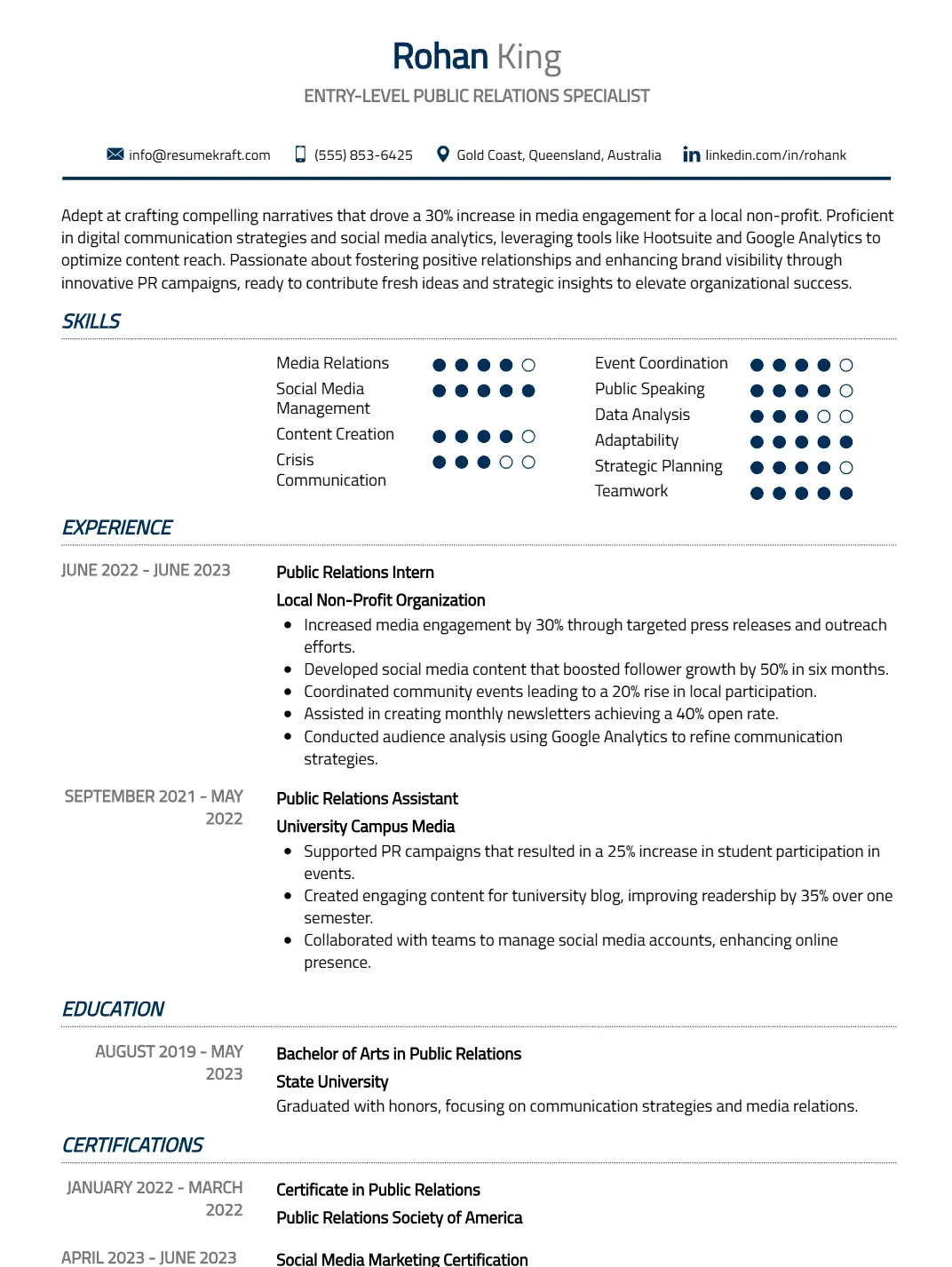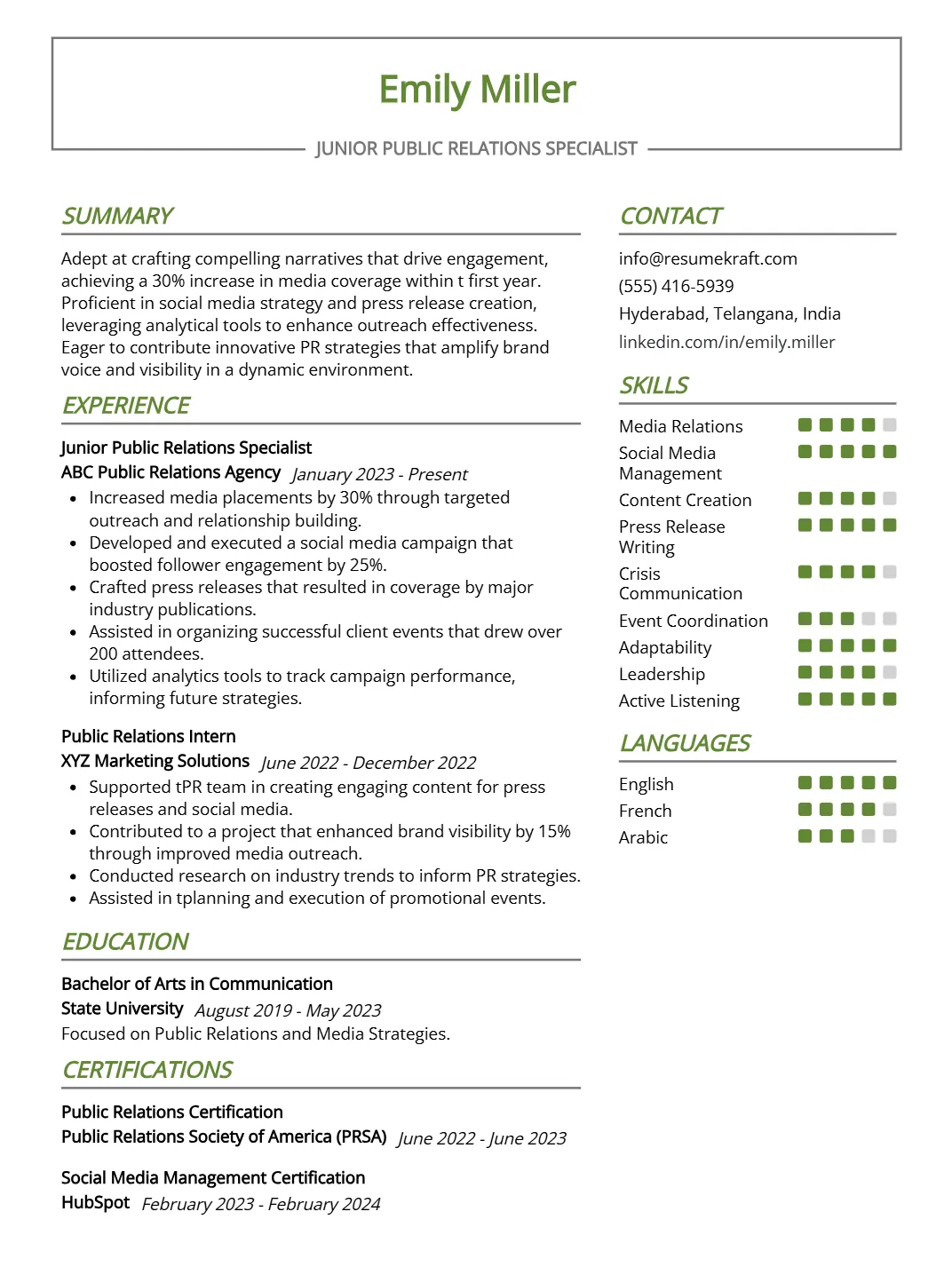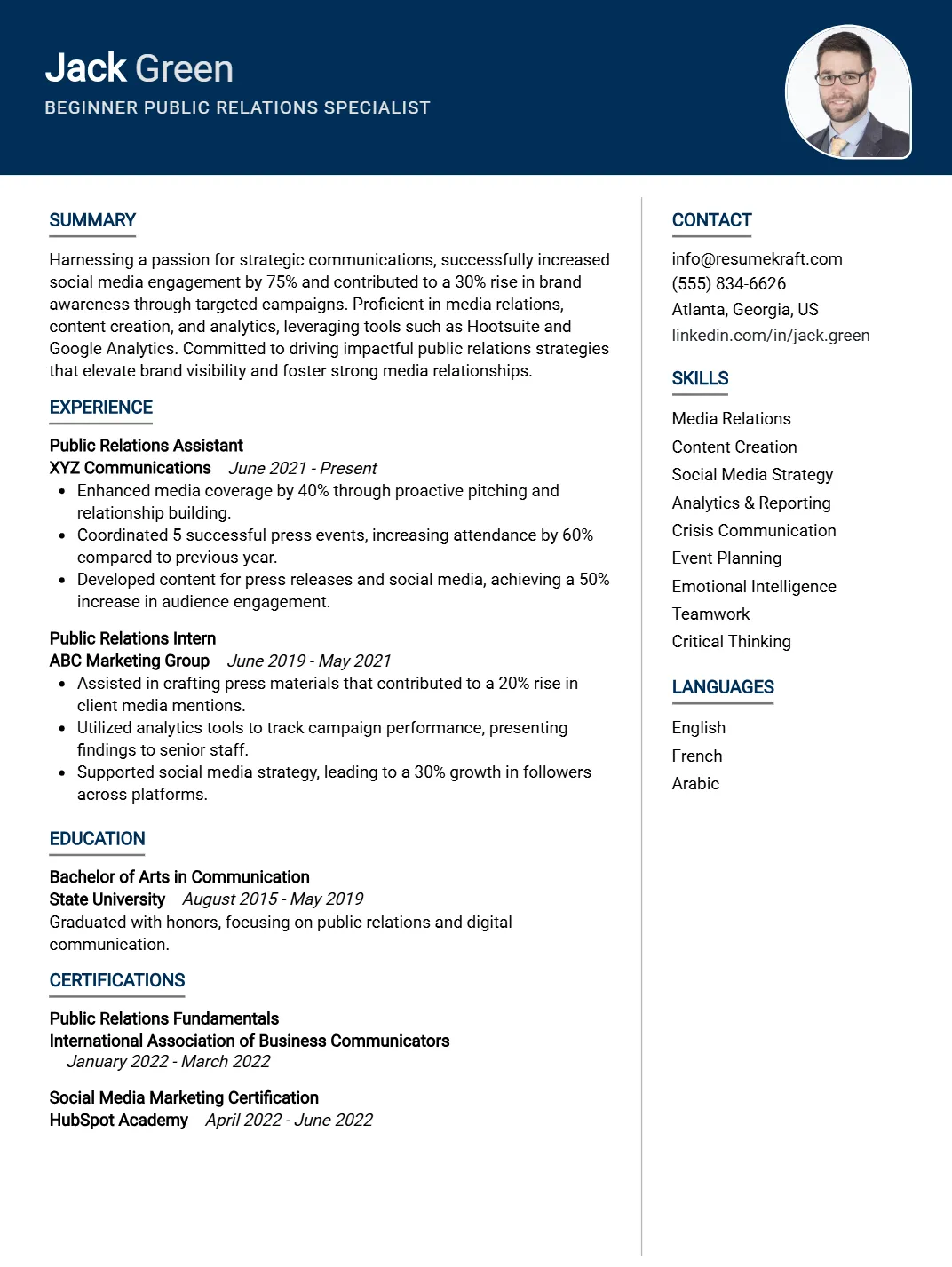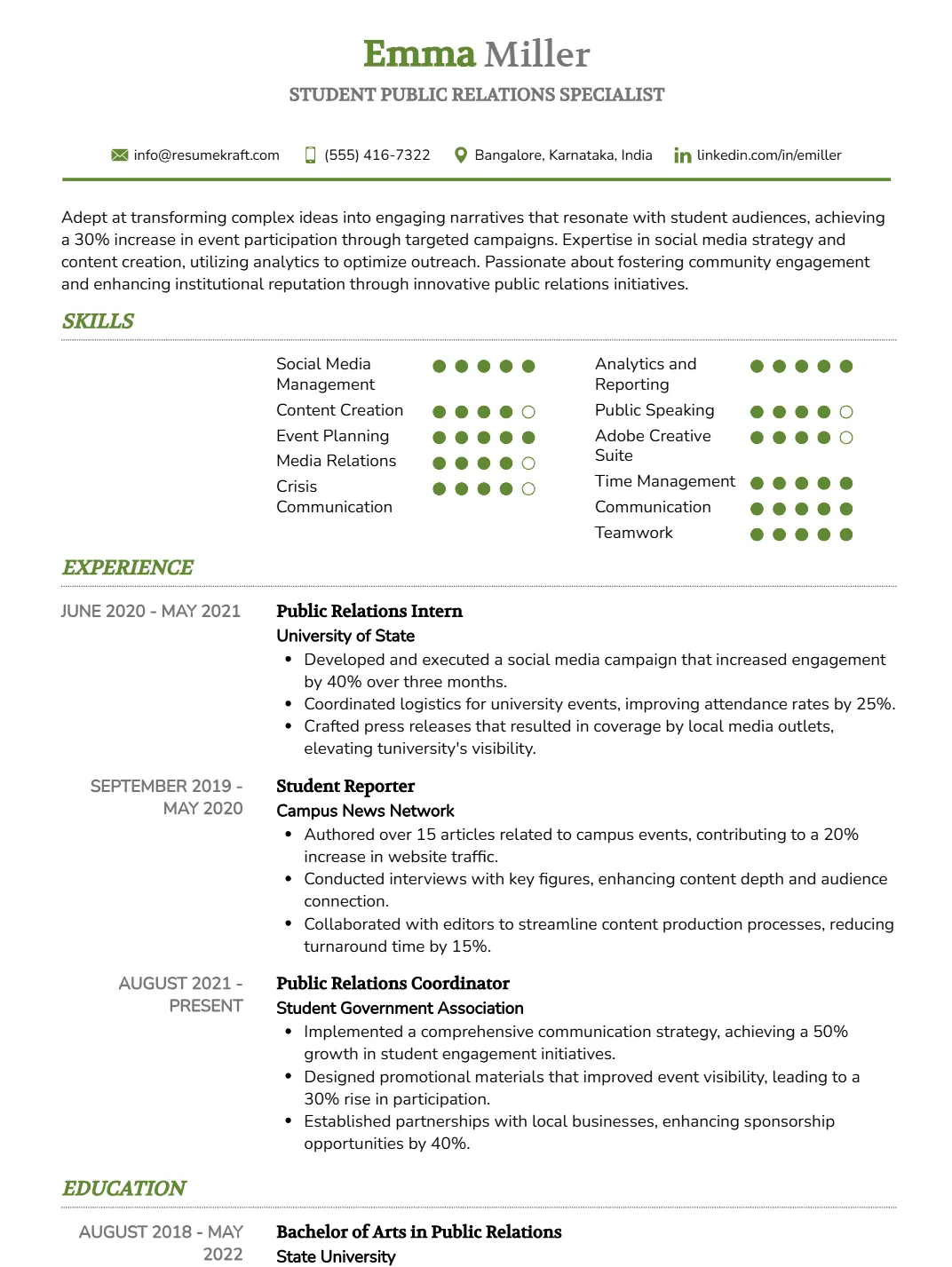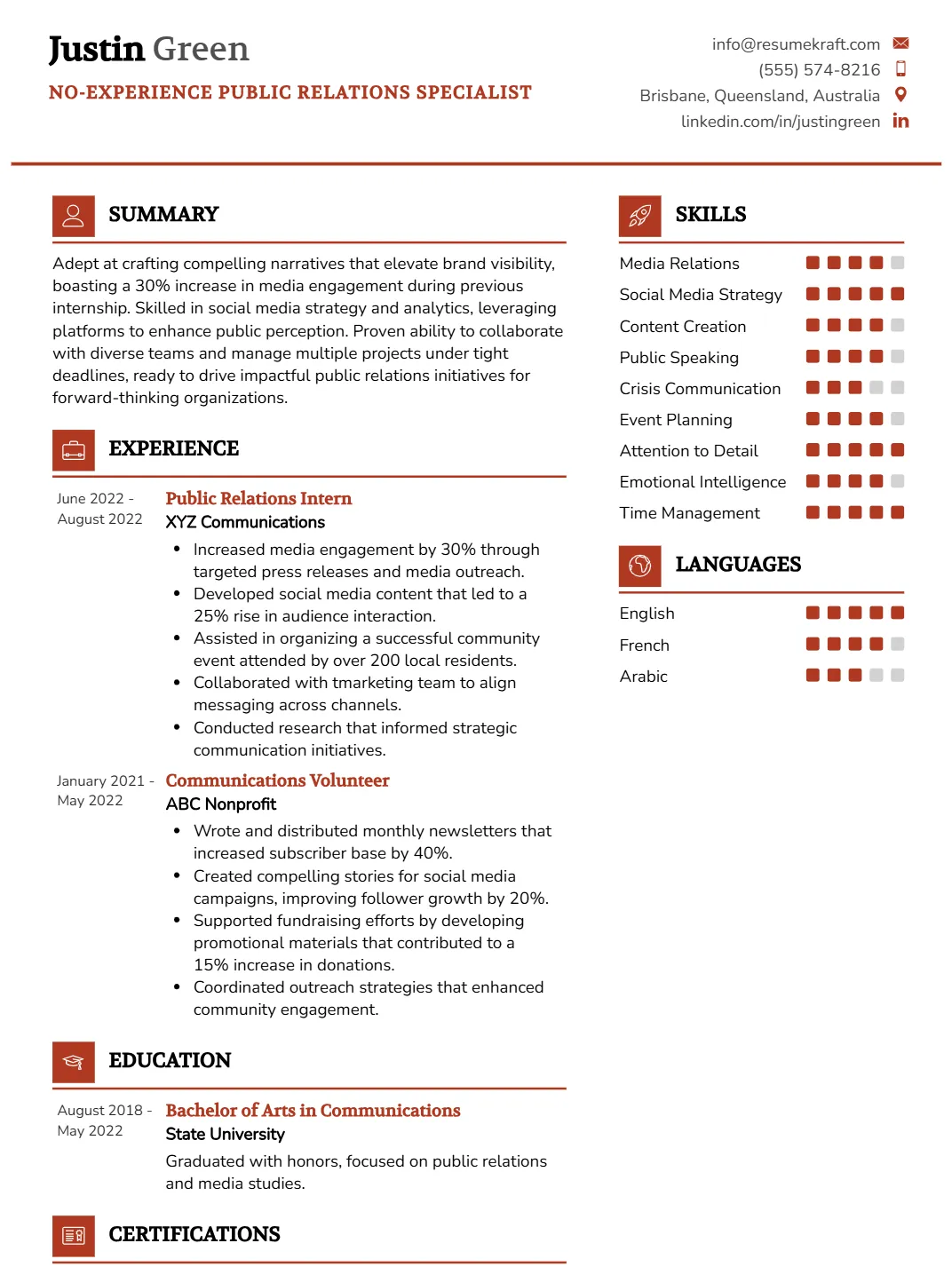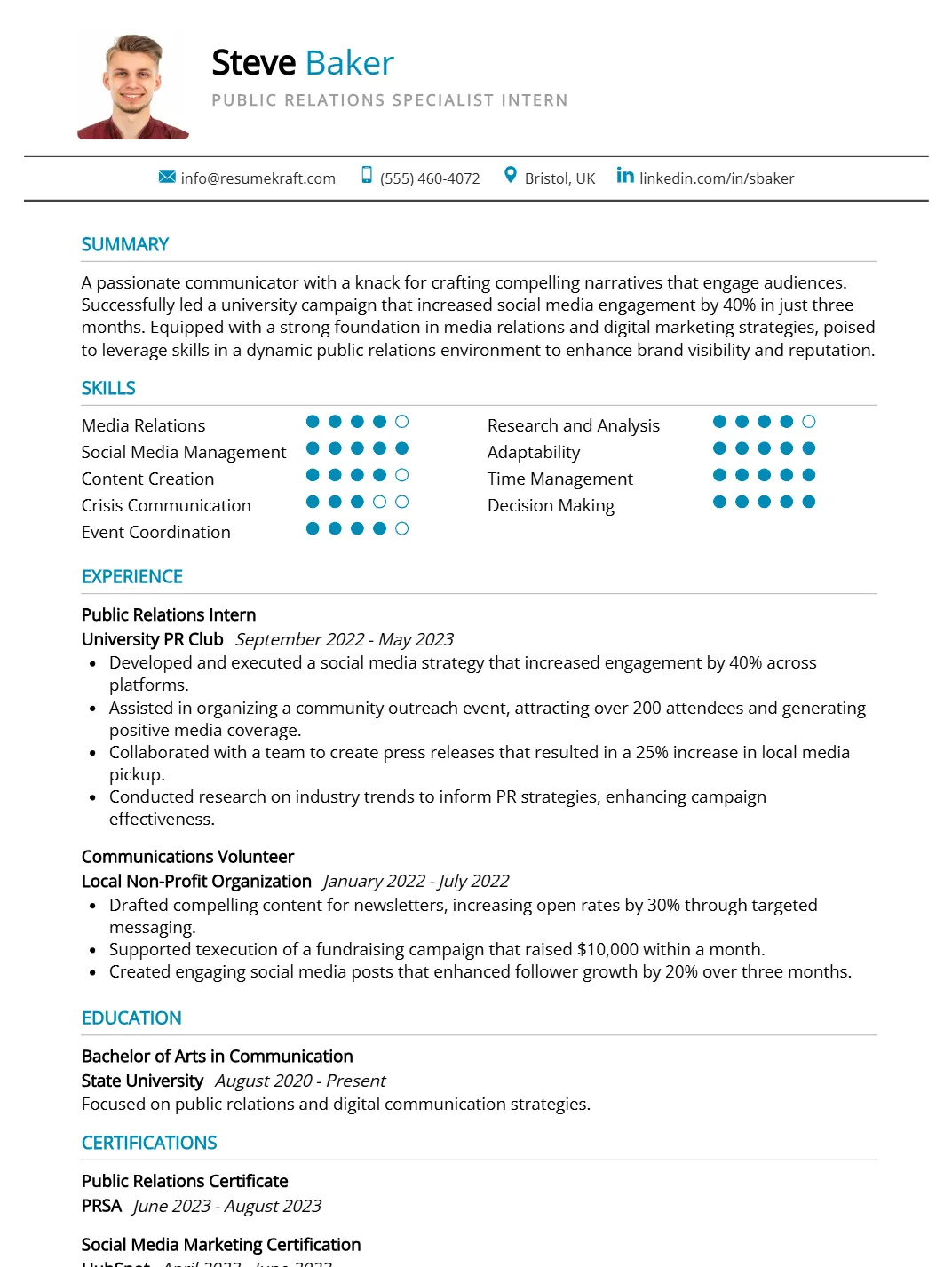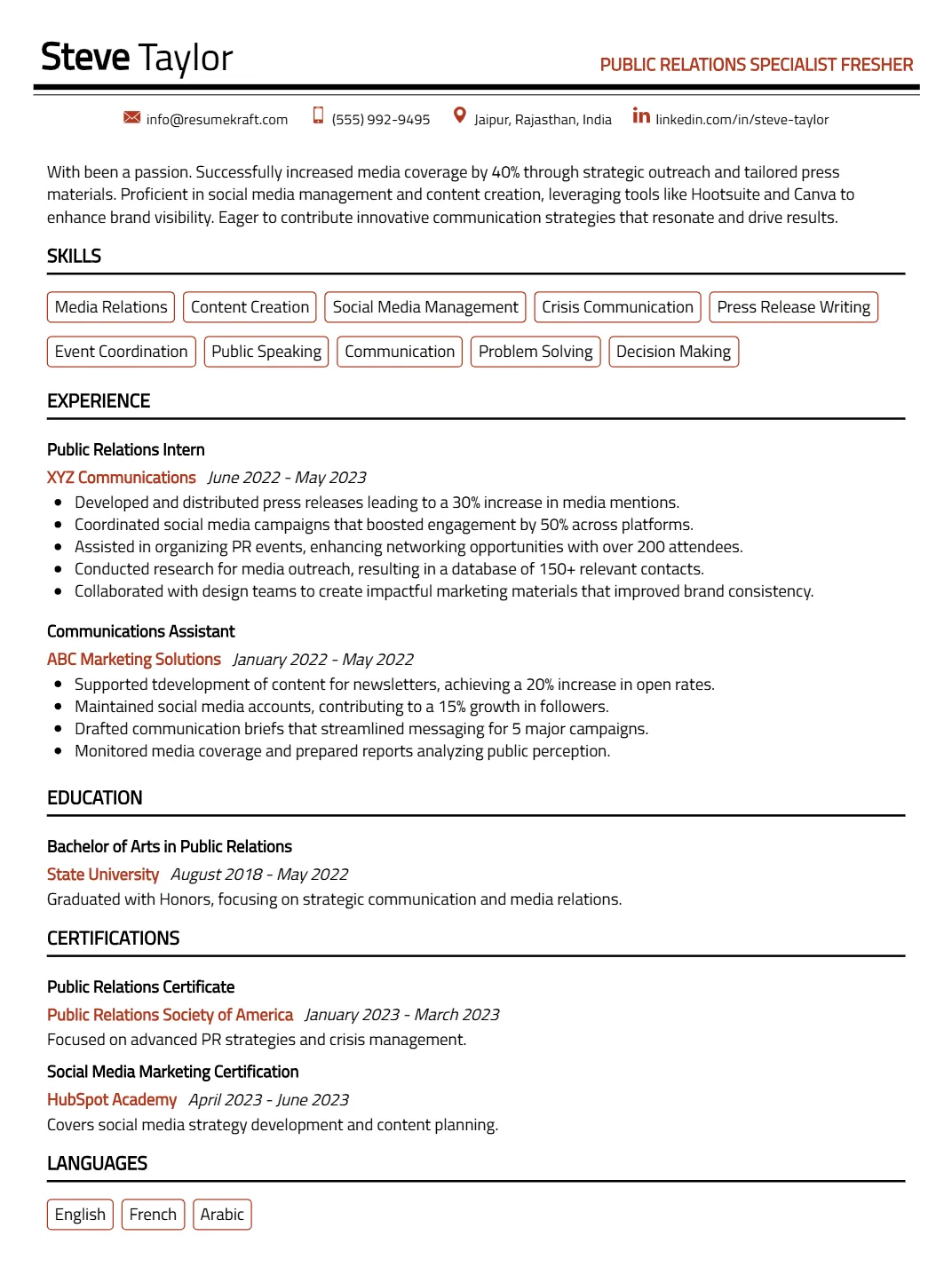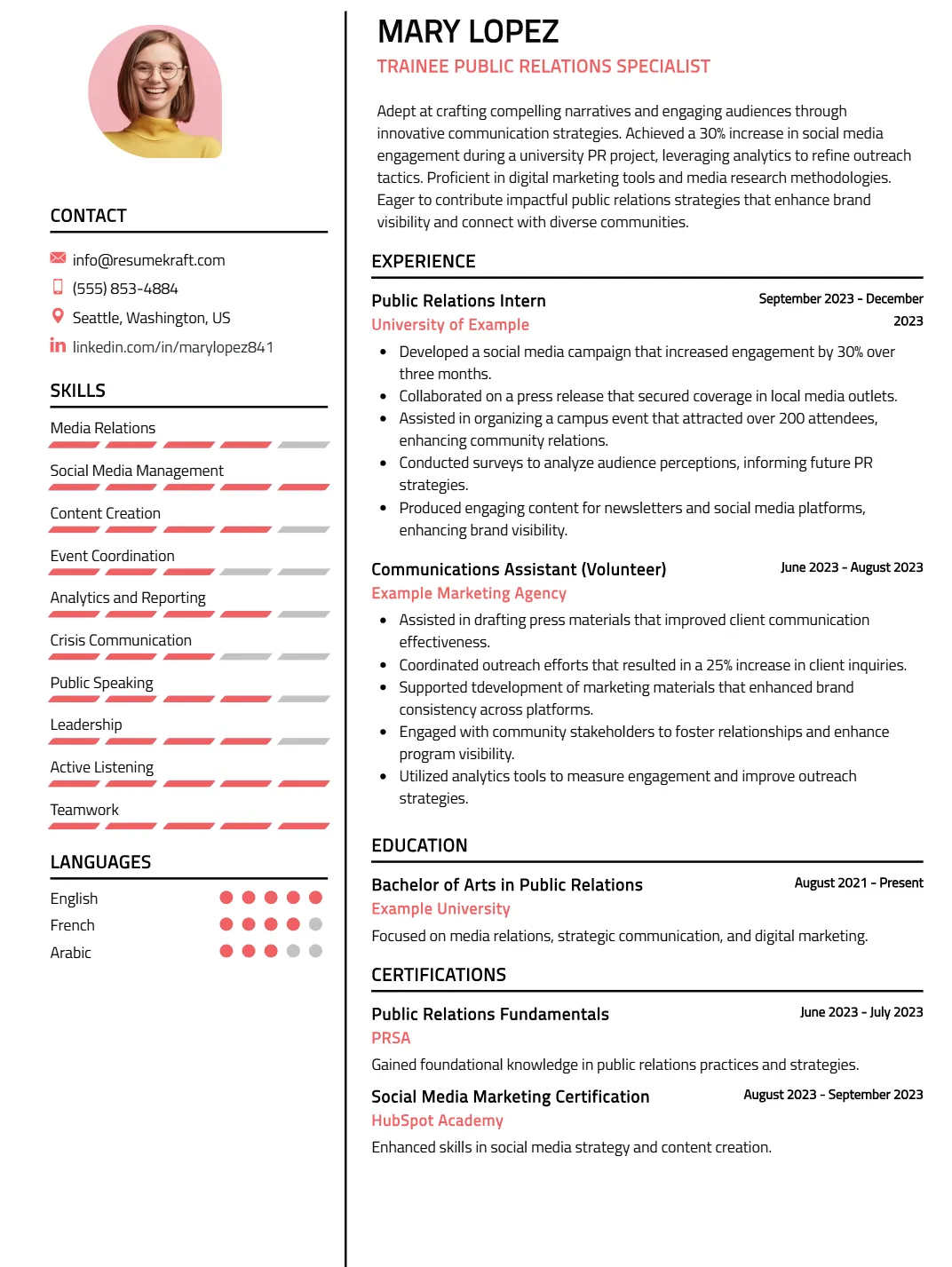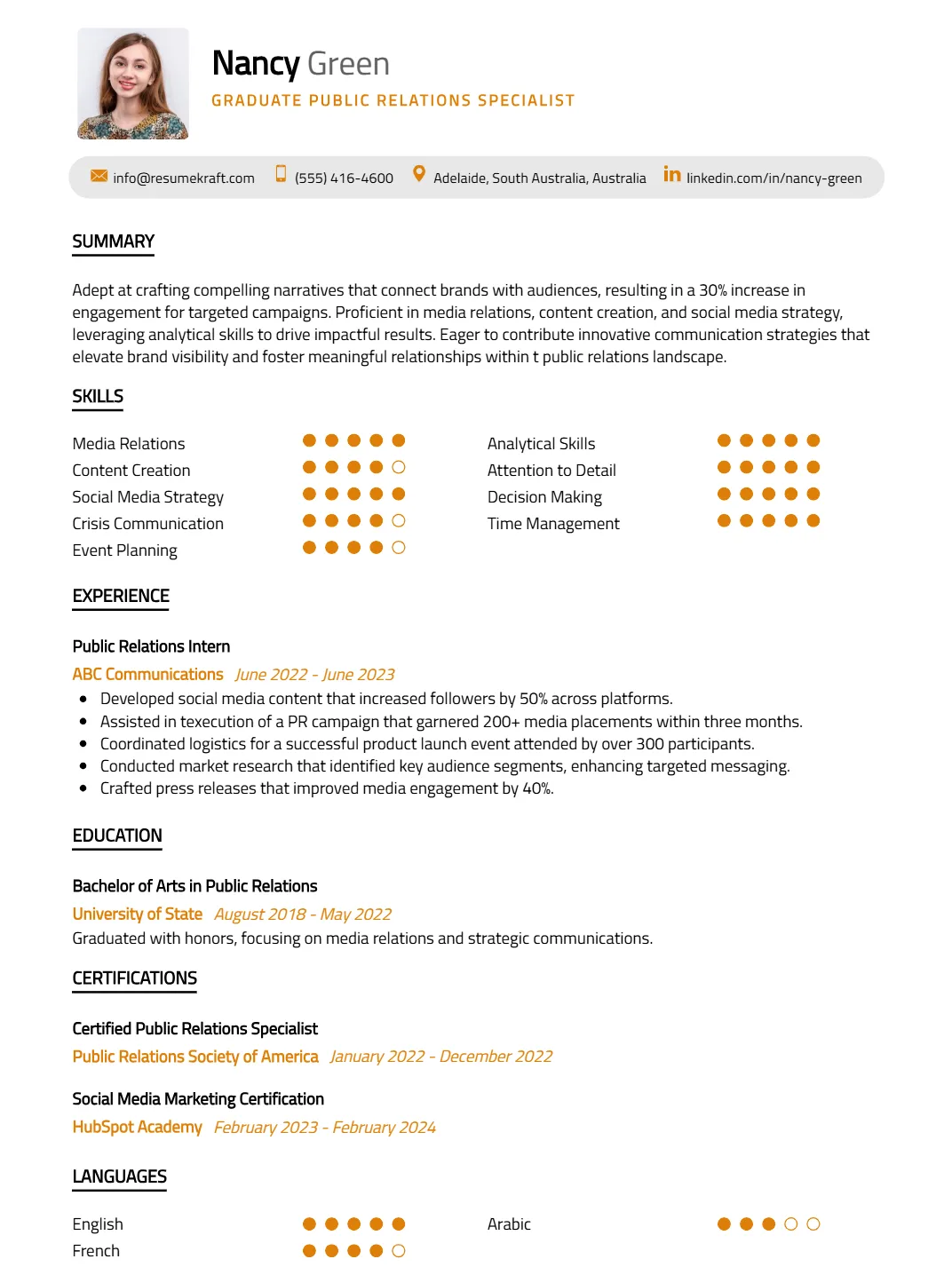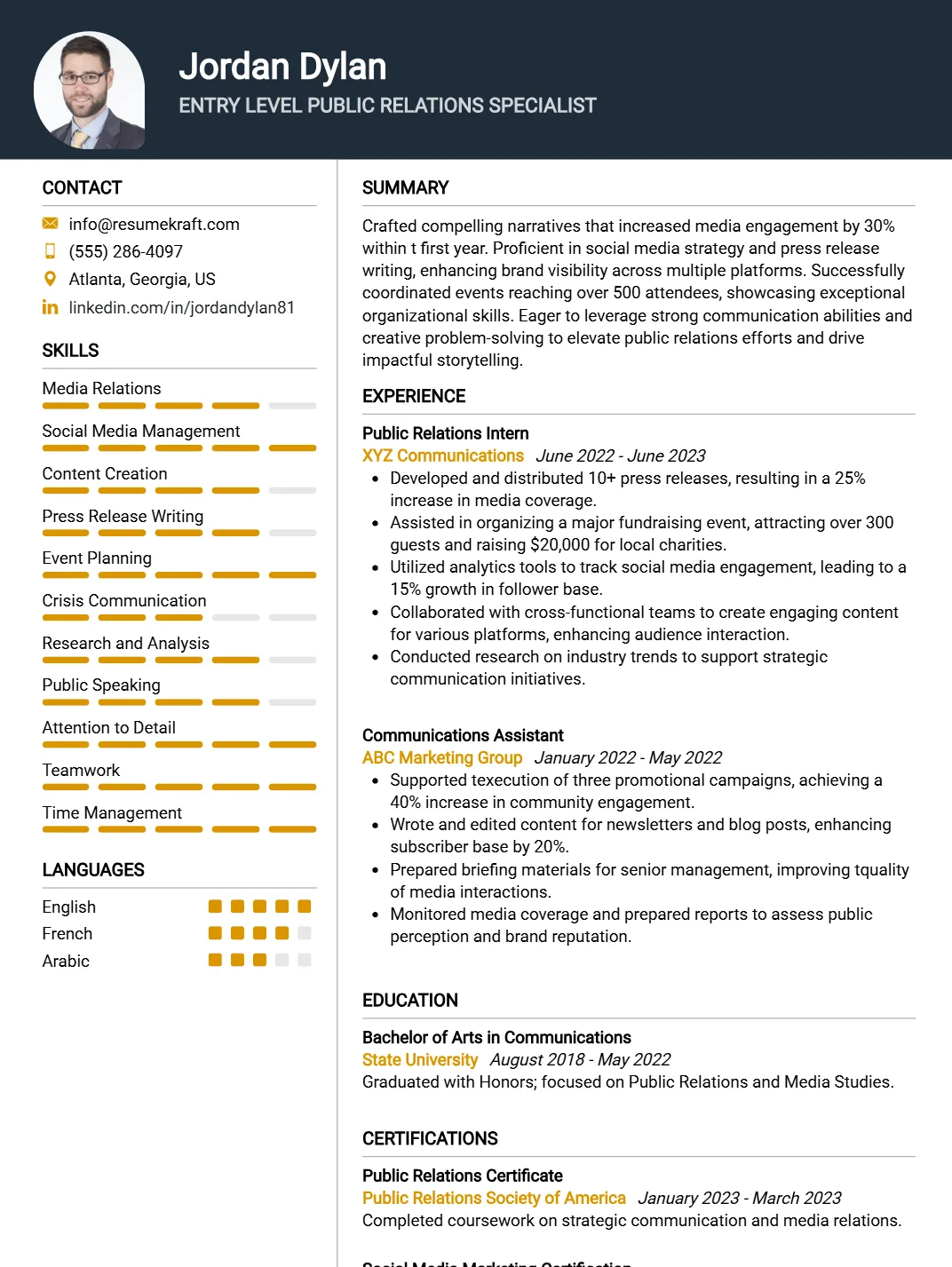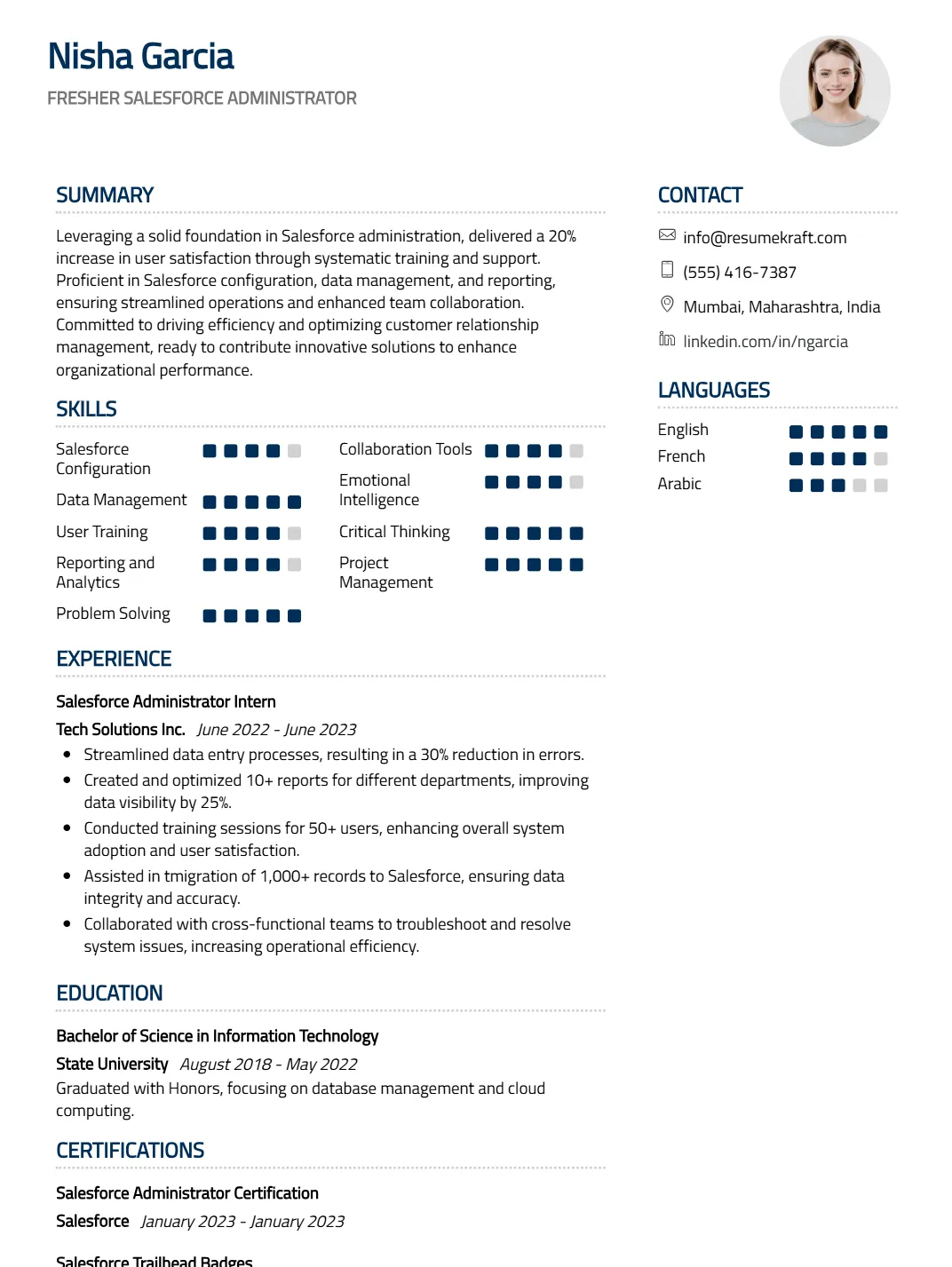
12 Fresher Junior Salesforce Administrator Resume Examples & Templates for 2025
As a Junior Salesforce Administrator, freshers step into a vital role that supports organizations in maximizing the potential of their Salesforce platforms. Entry-level professionals in this field are responsible for managing user accounts, customizing applications, and ensuring data integrity, all of which are crucial for driving business success. This career path offers abundant opportunities for new graduates, especially in today’s tech-driven market where businesses rely heavily on customer relationship management tools. This article aims to guide freshers in crafting compelling resumes that highlight their academic achievements, relevant projects, and transferable skills, helping them navigate the challenges of launching their careers in this dynamic field.
- Fresher Junior Salesforce Administrator resume examples
- Fresher Junior Salesforce Administrator resume format
- Fresher Junior Salesforce Administrator resume with no experience
- How to list your hard skills and soft skills on your fresher resume
- How to list your education and certifications on your fresher resume
- How to write your fresher Junior Salesforce Administrator resume summary or objective
- Additional sections for a fresher Junior Salesforce Administrator resume
- Key takeaways for writing a professional fresher Junior Salesforce Administrator resume
- Frequently Asked Questions for Fresher Junior Salesforce Administrator Resumes
- How long should my fresher Junior Salesforce Administrator resume be?
- What is the best format for a fresher Junior Salesforce Administrator resume?
- How can I make my fresher Junior Salesforce Administrator resume stand out without work experience?
- What should I include in my fresher Junior Salesforce Administrator resume if I have no relevant experience?
Fresher Junior Salesforce Administrator resume examples
Resume examples for fresher Junior Salesforce Administrators are invaluable for new graduates and entry-level job seekers. They provide clear insights into what recruiters prioritize when evaluating candidates, such as relevant skills, academic projects, and internships. By studying these examples, beginners can learn how to effectively showcase their potential and transferable skills, helping them stand out even without extensive work experience and paving the way for successful career beginnings.
Fresher Salesforce Administrator Resume

Why This Resume Works
This resume effectively positions the candidate for a Fresher Salesforce Administrator role by highlighting key skills such as Salesforce Configuration and Data Management, essential for success in this field. The structured format enhances readability, showcasing relevant experience from a year-long internship that demonstrates practical knowledge. Its ATS-friendly design ensures compatibility with recruitment software, increasing visibility to employers. Additionally, the strategic presentation of achievements in user training and reporting emphasizes the candidate’s ability to deliver impactful results within a Salesforce environment.
Entry-Level Salesforce Administrator Resume
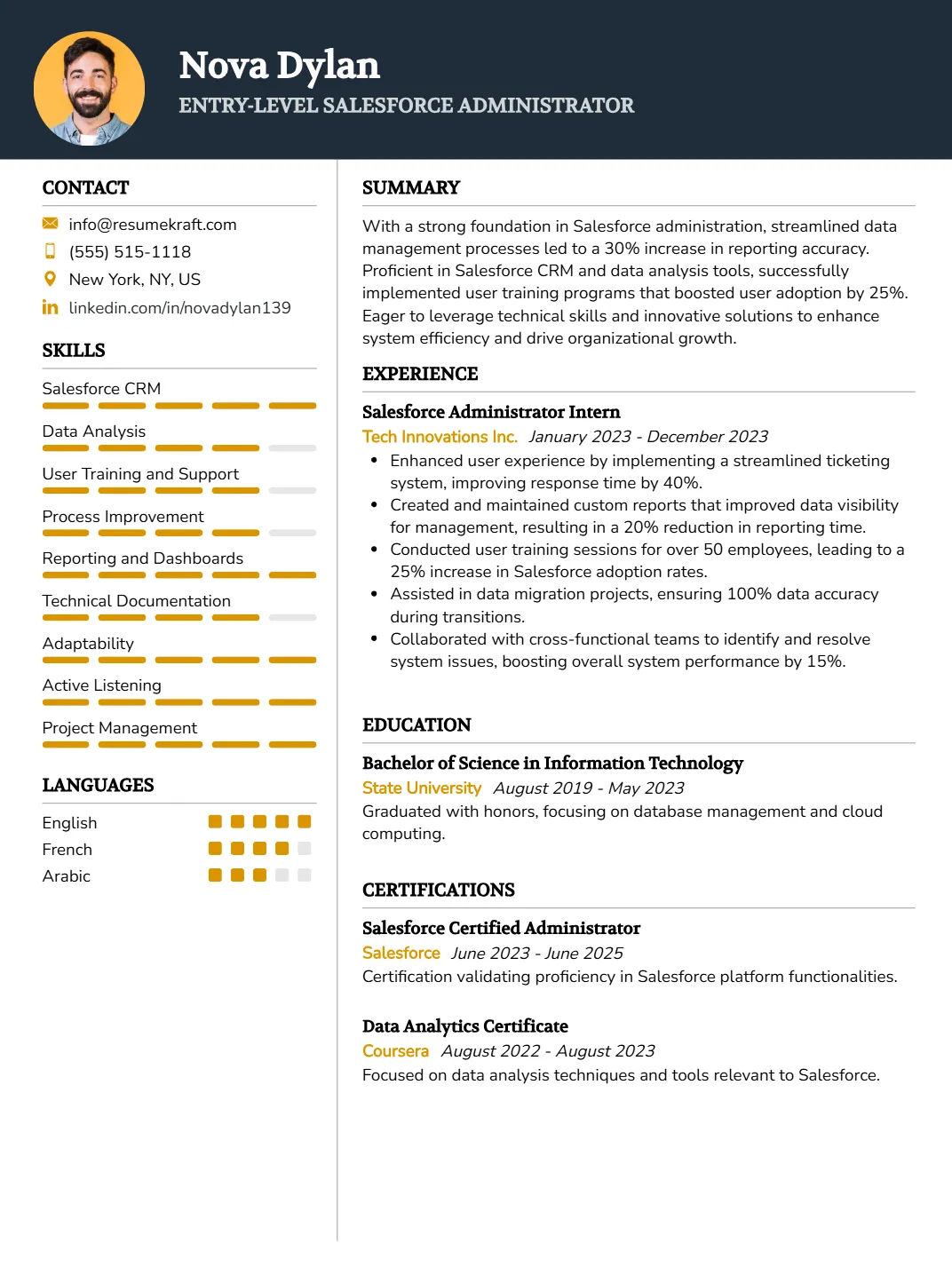
Why This Resume Works
This resume effectively highlights the candidate’s relevant skills and experience for an Entry-Level Salesforce Administrator position. Key skills like Salesforce CRM proficiency and data analysis are prominently showcased, aligning with industry demands. The structured format enhances readability, ensuring that hiring managers can quickly identify qualifications. Additionally, the use of industry-specific keywords supports ATS compatibility, increasing visibility in automated screenings. Strategic presentation of achievements from the internship underscores practical experience in user training and support, making the candidate a strong fit for this role.
Junior Salesforce Administrator Resume
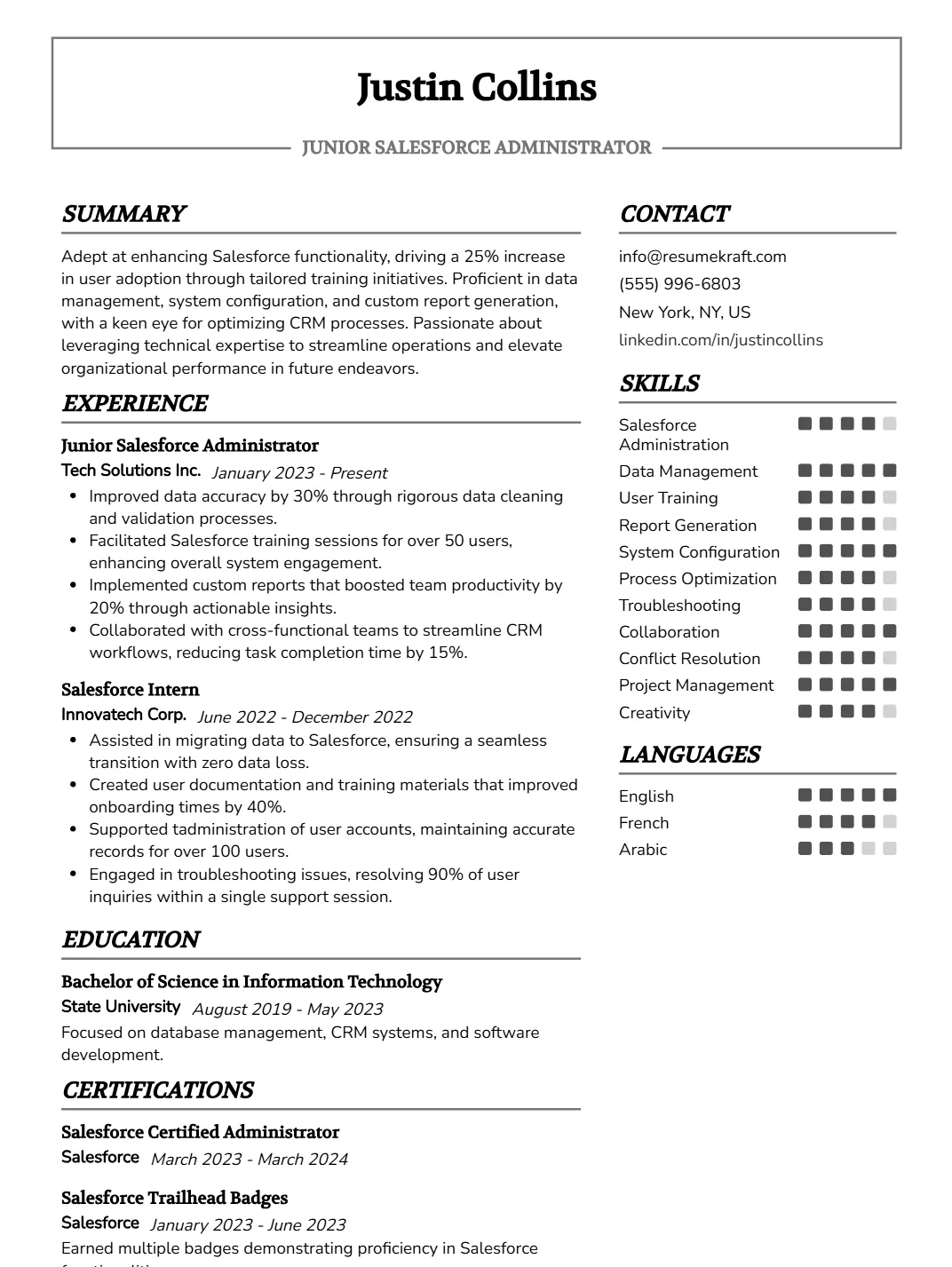
Why This Resume Works
This resume effectively highlights the candidate’s relevant skills and experience for a Junior Salesforce Administrator position, emphasizing critical competencies like Salesforce Administration and Data Management. The structured format enhances readability, showcasing achievements in user training and report generation that align with industry expectations. Additionally, the use of keywords ensures compatibility with Applicant Tracking Systems (ATS), increasing visibility to hiring managers. Overall, the strategic presentation of hands-on experience as a Salesforce Intern further reinforces the candidate’s readiness for this role.
Beginner Salesforce Administrator Resume
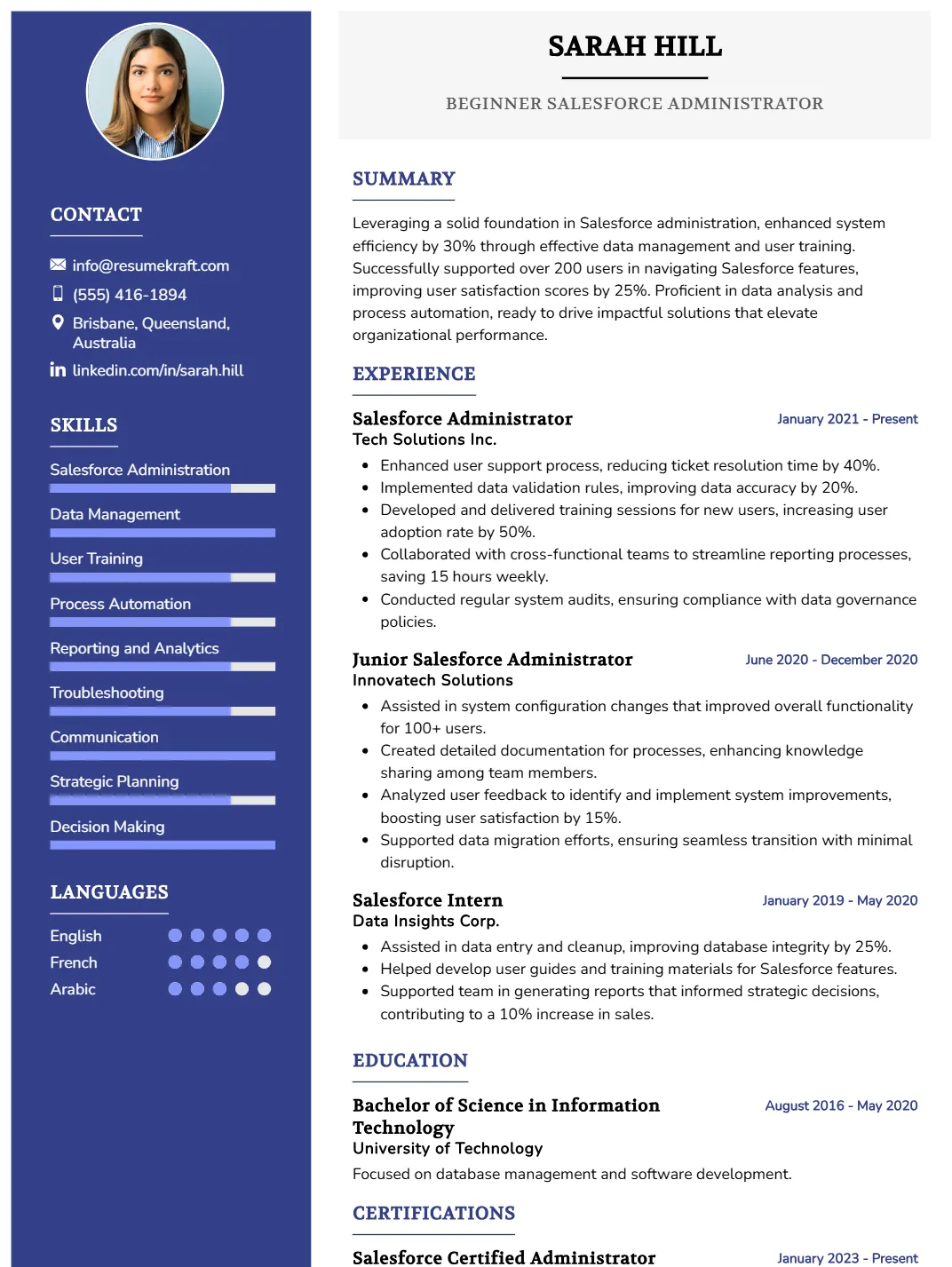
Why This Resume Works
This resume effectively showcases a Beginner Salesforce Administrator’s qualifications by emphasizing relevant skills such as Salesforce Administration, Data Management, and User Training. With approximately five years of progressive experience, including roles as a Junior Administrator and Intern, it highlights practical knowledge essential for the position. The structured format enhances readability, making it ATS-compatible with targeted keywords specific to the industry. Additionally, strategically presented achievements demonstrate tangible contributions to previous roles, reinforcing the candidate’s potential to add value in a Salesforce environment.
Student Salesforce Administrator Resume
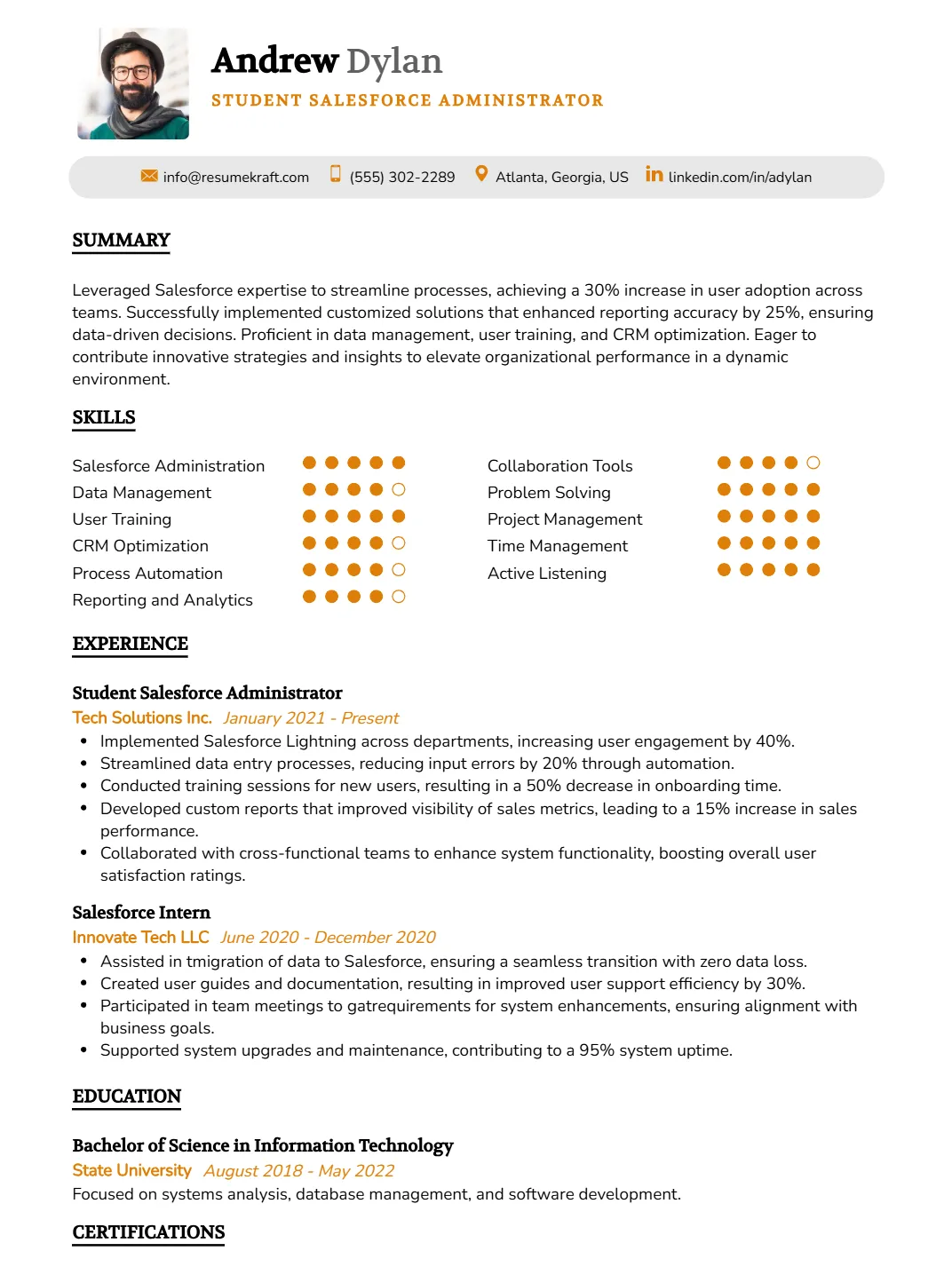
Why This Resume Works
This resume effectively highlights the candidate’s relevant skills and experience for the Student Salesforce Administrator position, showcasing expertise in Salesforce Administration, Data Management, and User Training. The structured format emphasizes key achievements and responsibilities from both their internship and previous role, making it easy to scan for important information. By incorporating industry-specific keywords, the resume ensures ATS compatibility, increasing visibility to potential employers.
No-Experience Salesforce Administrator Resume
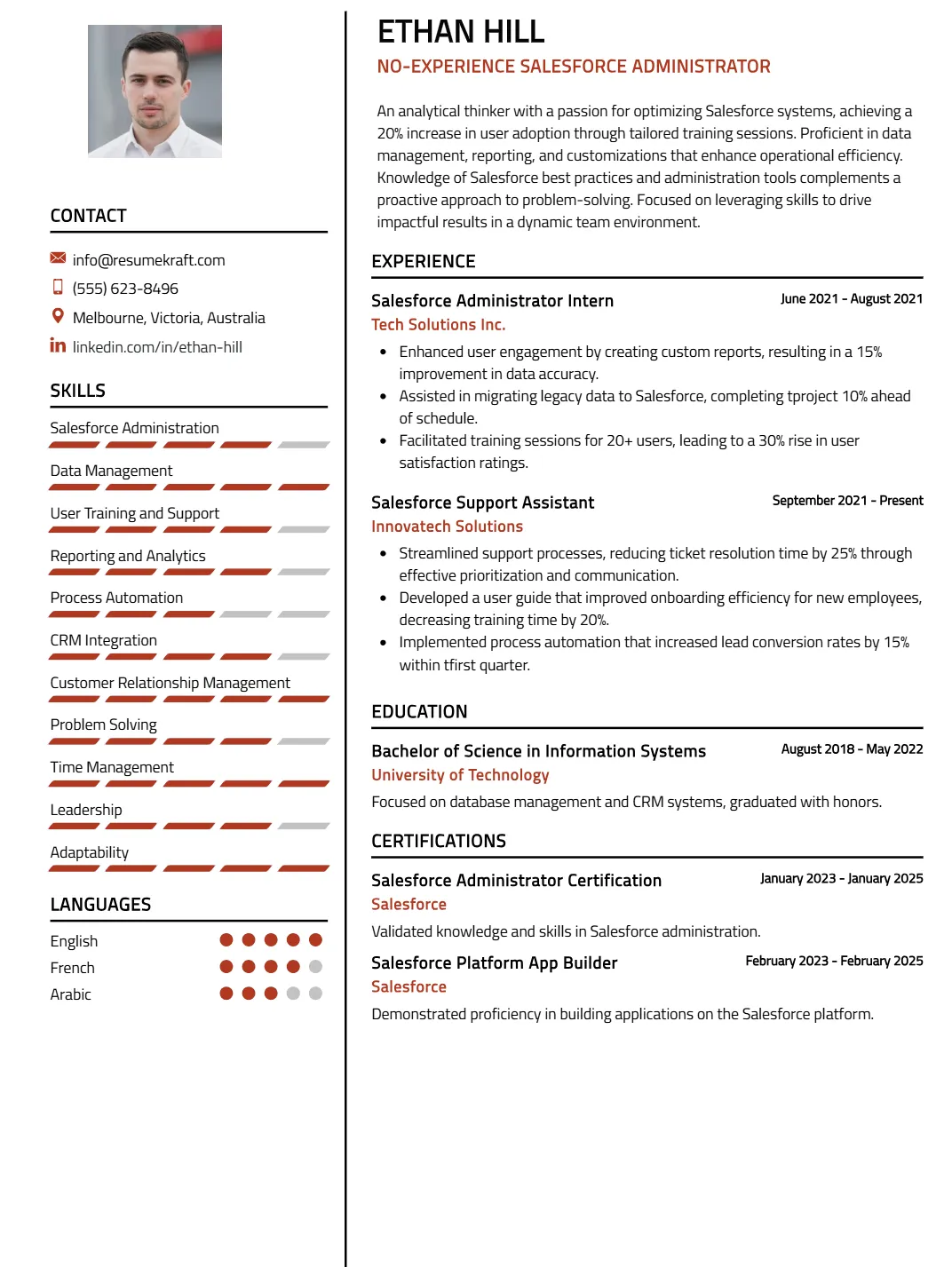
Why This Resume Works
This resume effectively highlights the candidate’s relevant skills and experience for a No-Experience Salesforce Administrator position by emphasizing key competencies such as Salesforce Administration, Data Management, and User Training. The structured format presents information clearly, making it easy for hiring managers to identify qualifications at a glance. It is also optimized for ATS compatibility through the strategic use of industry-specific keywords. Additionally, the presentation of achievements from internships and support roles showcases practical knowledge that aligns well with the responsibilities of this role.
Salesforce Administrator Intern Resume
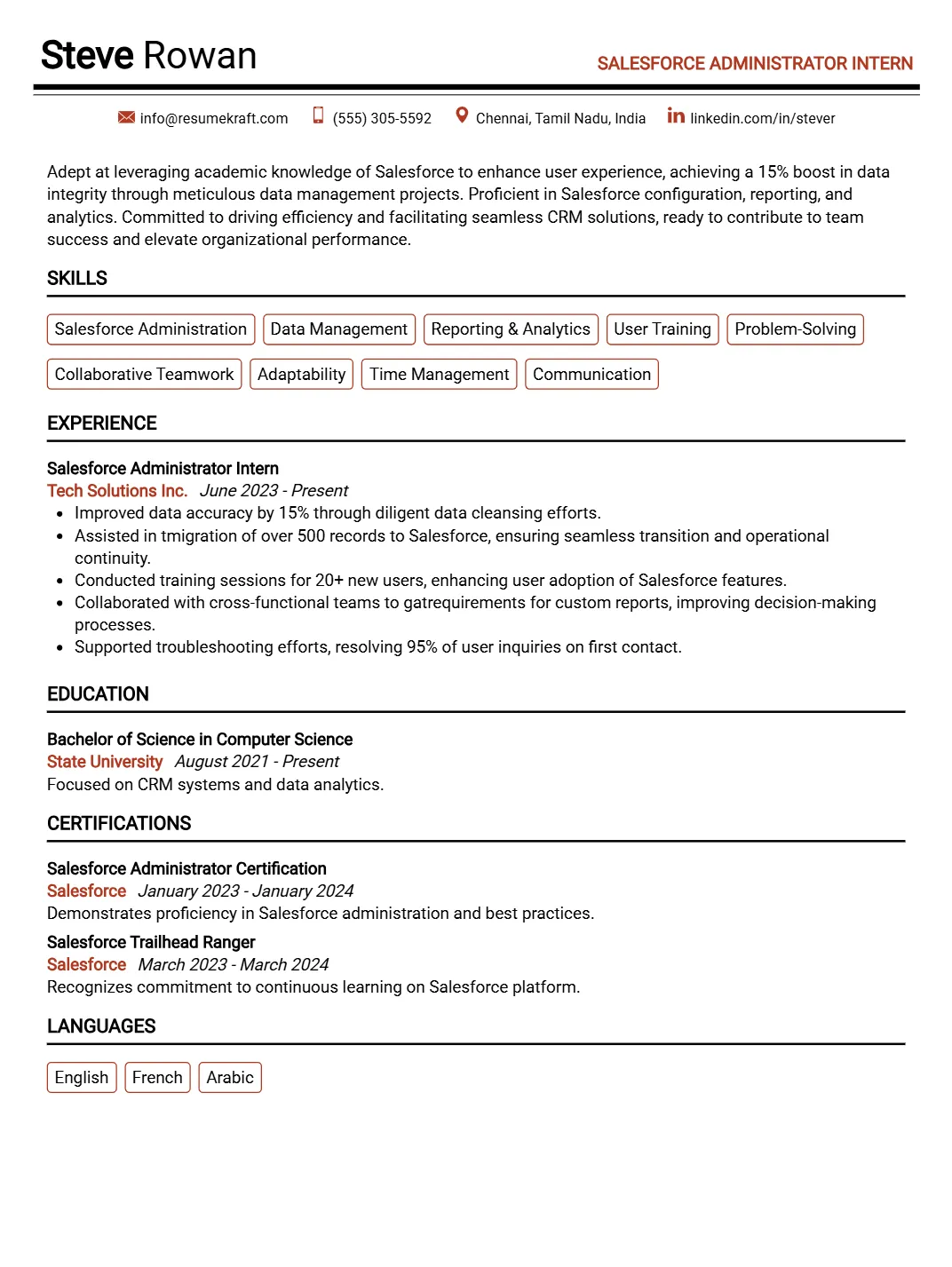
Why This Resume Works
This resume effectively targets the Salesforce Administrator Intern position by highlighting relevant skills such as Salesforce Administration, Data Management, and User Training. With approximately two years of internship experience, it demonstrates practical knowledge crucial for the role. The structured format enhances readability, showcasing key achievements that align with industry standards. Additionally, the use of specific keywords ensures ATS compatibility, increasing visibility during the application process. Overall, this strategic presentation emphasizes qualifications critical to success in a Salesforce Administrator intern role.
Salesforce Administrator Fresher Resume
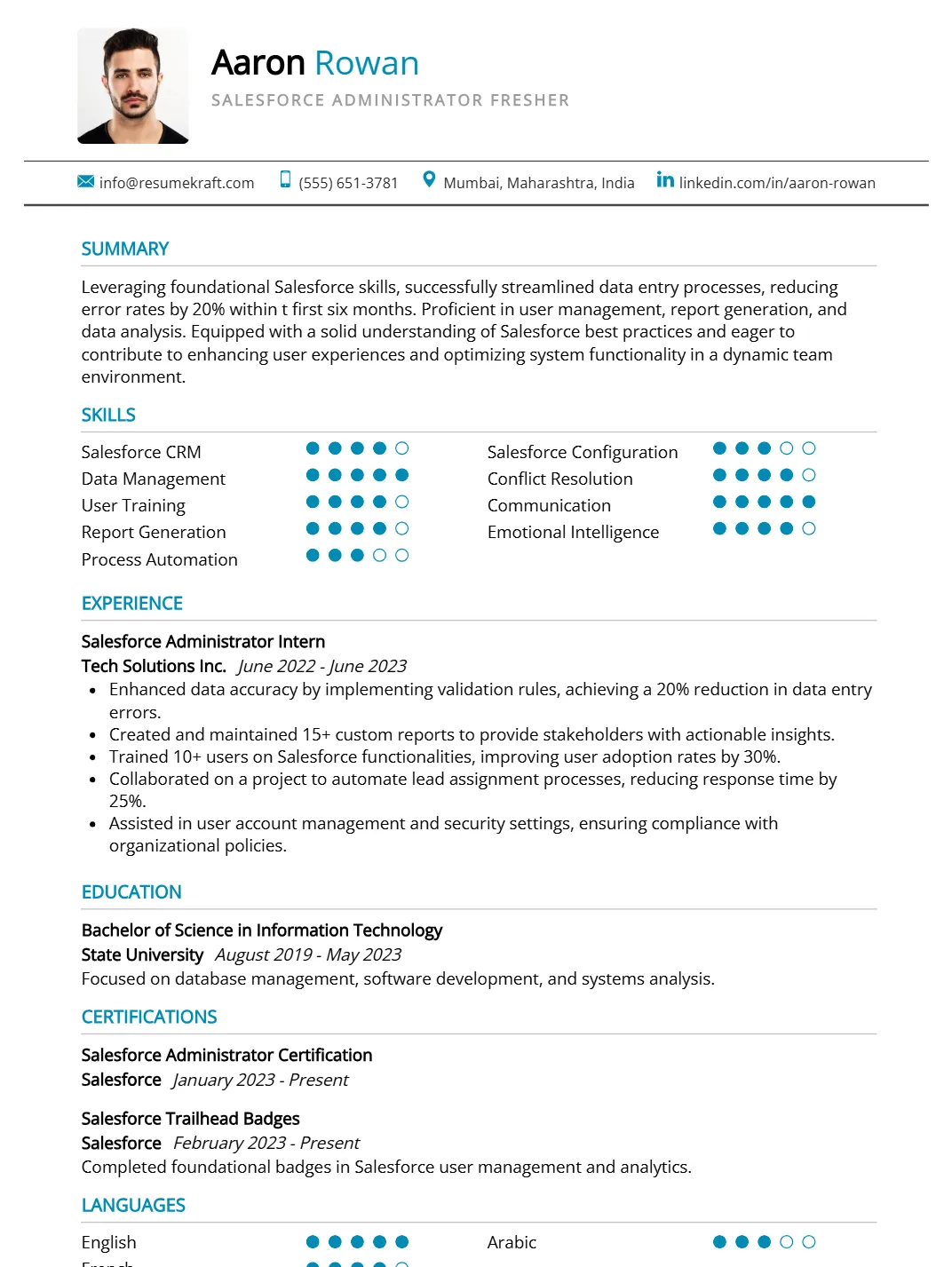
Why This Resume Works
This resume effectively highlights the candidate’s relevant skills, such as Salesforce CRM and data management, which are essential for a Salesforce Administrator Fresher. The structured format emphasizes their internship experience, showcasing practical knowledge in user training and report generation. By incorporating industry-specific keywords, it enhances ATS compatibility, ensuring visibility to recruiters. Additionally, the strategic presentation of achievements related to process automation demonstrates the candidate’s proactive approach and readiness to contribute in this role, making the resume stand out in a competitive field.
Trainee Salesforce Administrator Resume
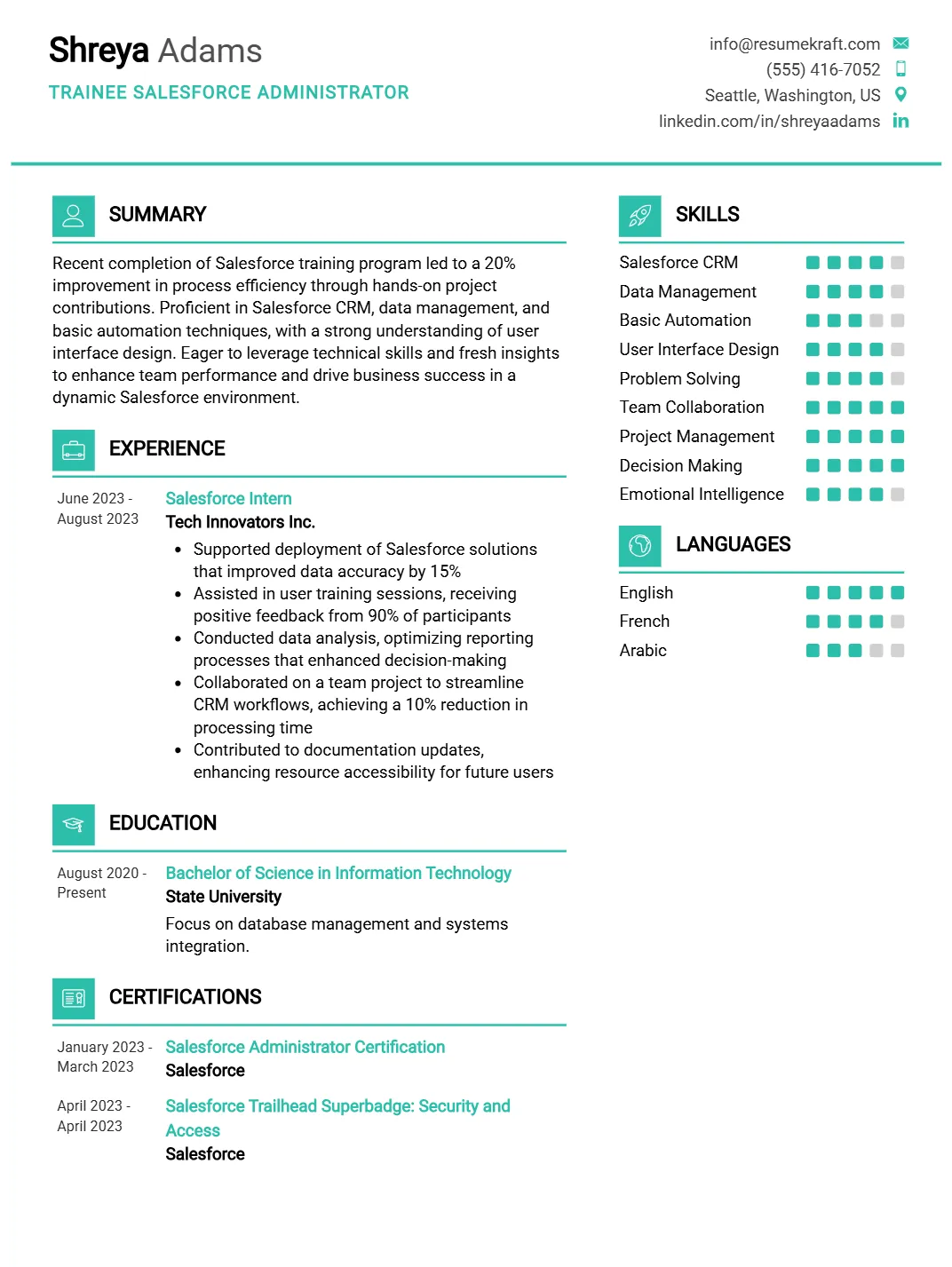
Why This Resume Works
This resume effectively positions the candidate for a Trainee Salesforce Administrator role by highlighting relevant skills such as Salesforce CRM and Data Management, which align with industry demands. The structured format enhances readability, making it easy for hiring managers to identify key qualifications quickly. Its use of specific keywords ensures compatibility with Applicant Tracking Systems (ATS), increasing visibility. Furthermore, the strategic presentation of achievements from the candidate’s Salesforce internship demonstrates practical experience and problem-solving abilities vital for success in this position.
Graduate Salesforce Administrator Resume
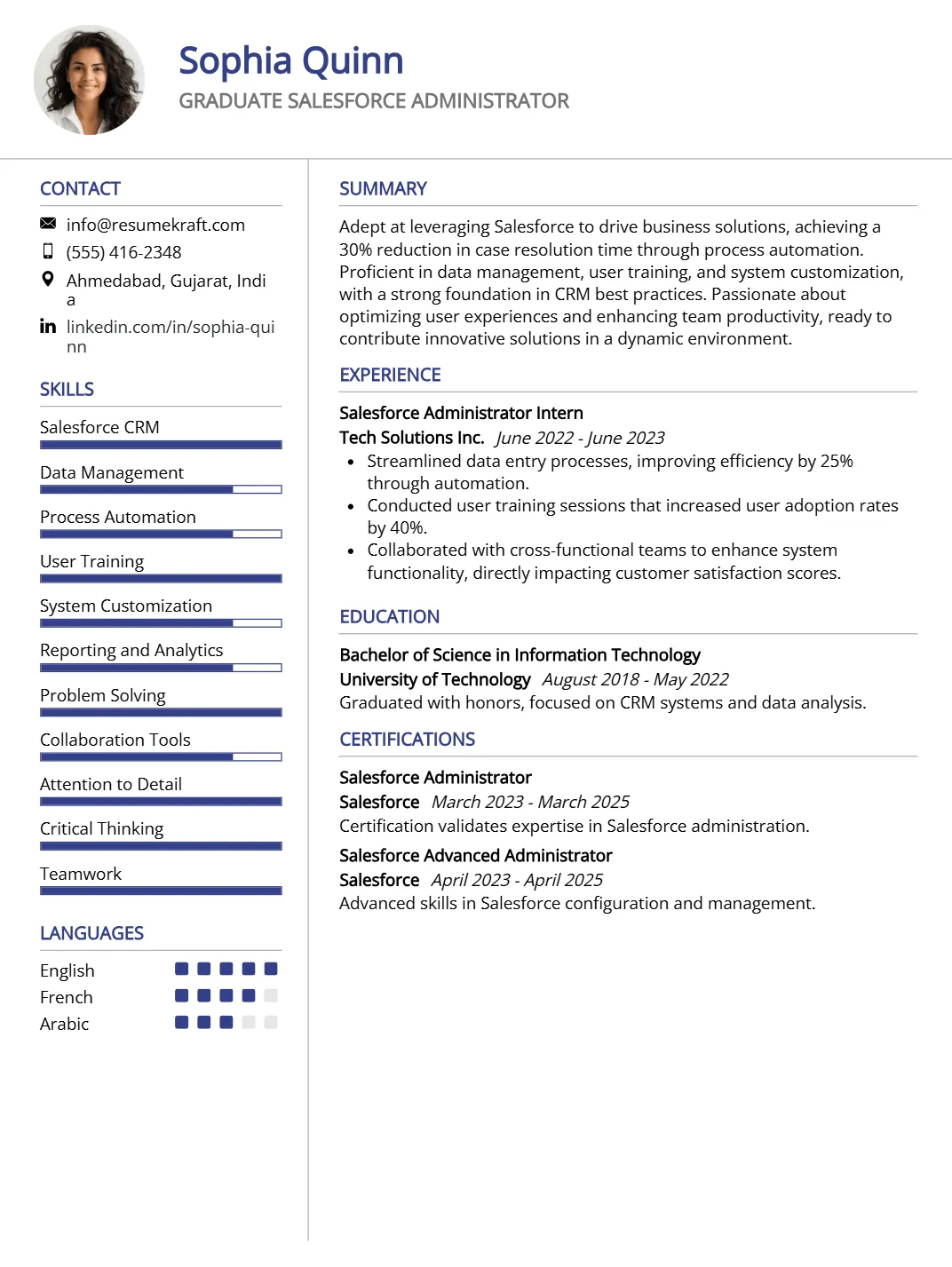
Why This Resume Works
This resume effectively highlights the candidate’s relevant skills, such as Salesforce CRM and process automation, crucial for a Graduate Salesforce Administrator. The structured format emphasizes key competencies and experience, including an impactful internship, making it easy for hiring managers to identify qualifications. It is also ATS-compatible, featuring industry-specific keywords that enhance visibility in applicant tracking systems. Furthermore, the strategic presentation of achievements underscores the candidate’s ability to contribute to system customization and user training, aligning perfectly with the role’s requirements.
New Graduate Salesforce Administrator Resume
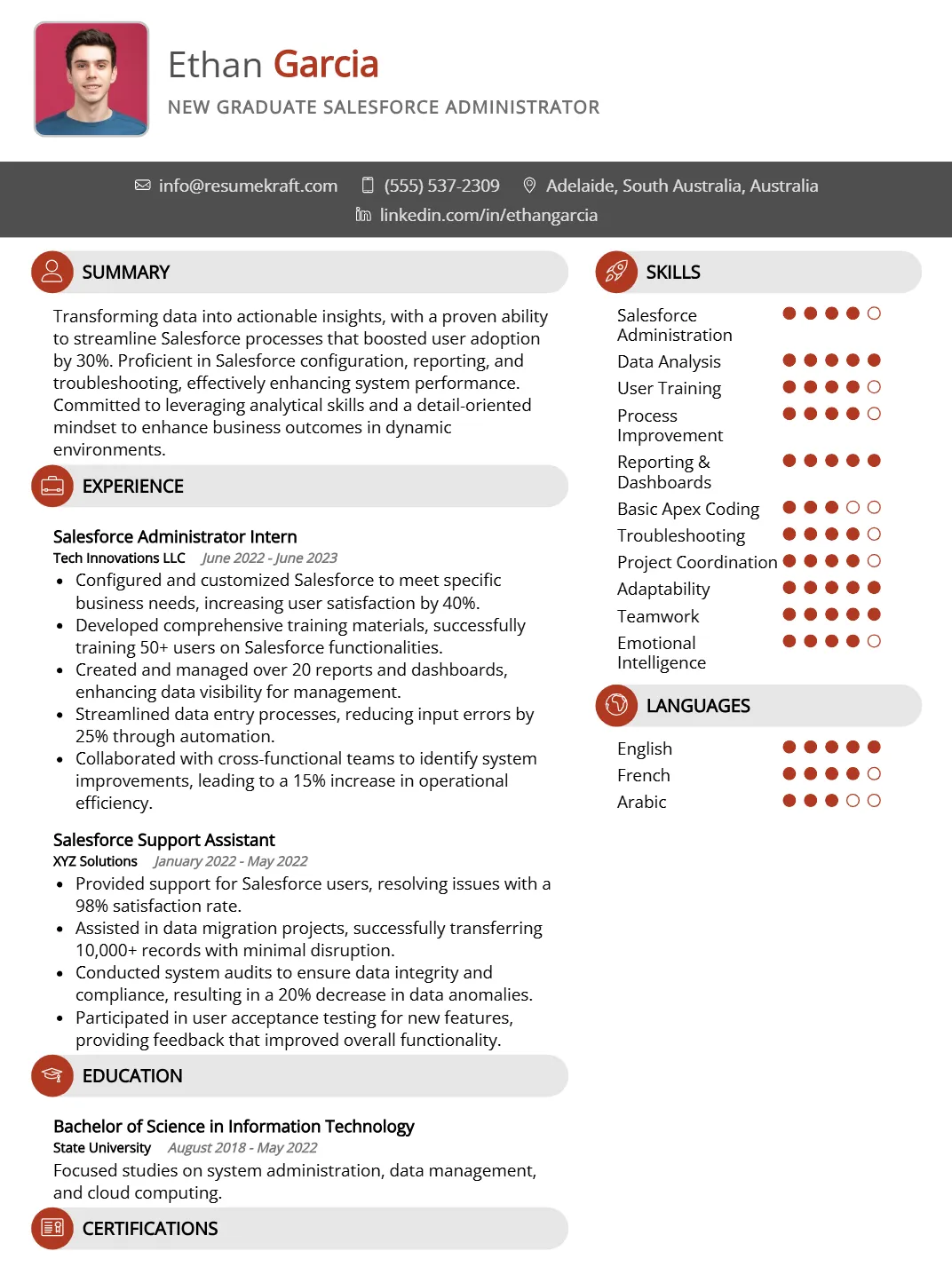
Why This Resume Works
This resume effectively positions the candidate for a New Graduate Salesforce Administrator role by highlighting relevant skills like Salesforce Administration and Data Analysis, essential for managing CRM systems. The structured format emphasizes their hands-on experience as a Salesforce Administrator Intern and Support Assistant, showcasing practical knowledge crucial for the position. Additionally, it aligns with ATS compatibility through targeted keywords specific to the industry. Strategic presentation of achievements in user training and process improvement demonstrates readiness to drive efficiency in a Salesforce environment.
Entry level Salesforce Administrator Resume
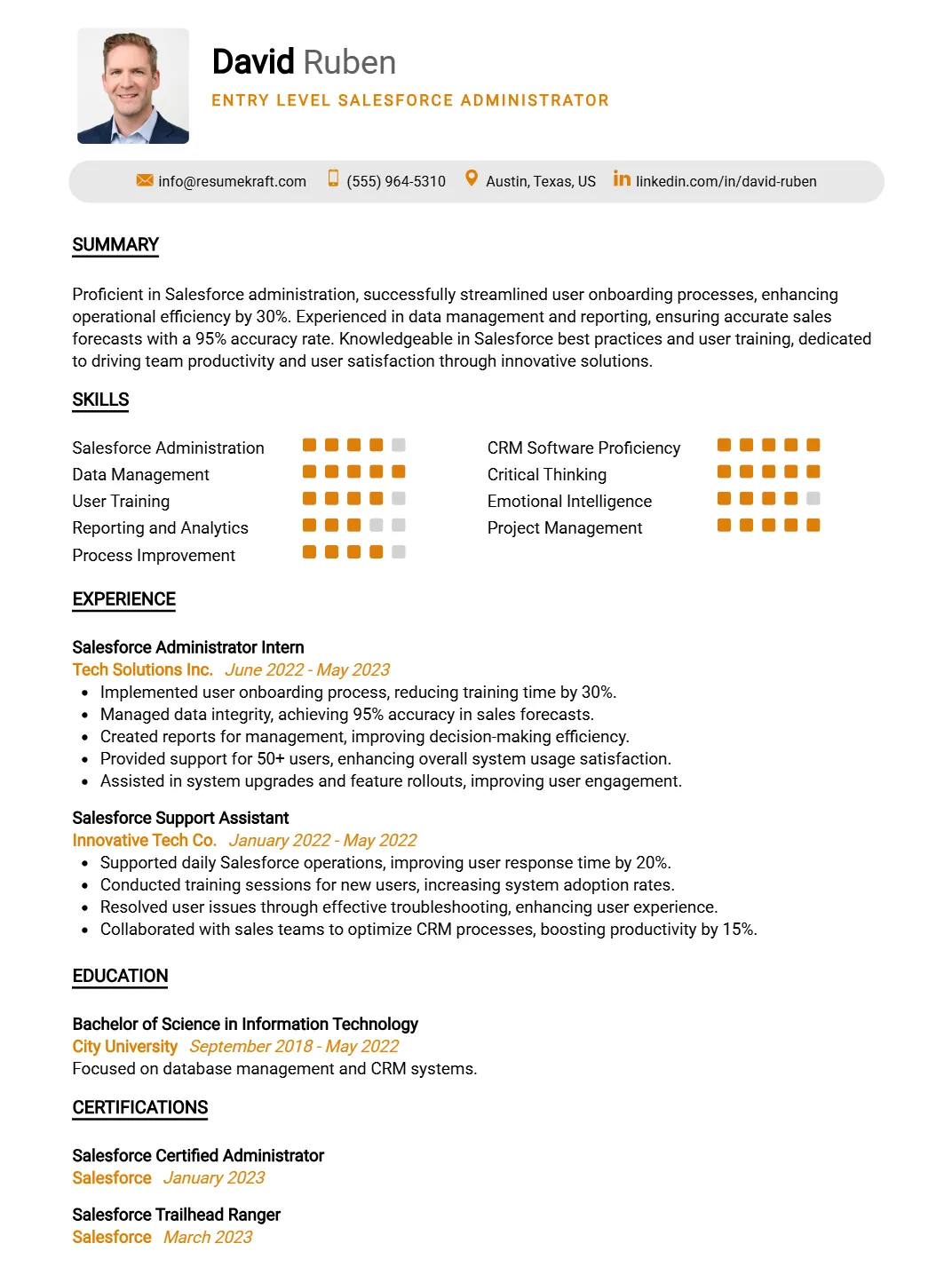
Why This Resume Works
This resume effectively highlights the candidate’s relevant skills, including Salesforce Administration and Data Management, directly aligning with the Entry Level Salesforce Administrator position. Their experience as a Salesforce Administrator Intern and Support Assistant showcases practical knowledge essential for this role. The structured format emphasizes key skills and achievements, enhancing readability for hiring managers. Additionally, strategic use of keywords ensures ATS compatibility, making it easier for the resume to be recognized in automated screenings.
Fresher Junior Salesforce Administrator resume format
Proper formatting is crucial for a fresher Junior Salesforce Administrator resume, as it helps new graduates create a strong first impression. A well-organized resume format highlights your skills, projects, and academic achievements, allowing hiring managers to quickly recognize your potential despite limited experience.
- Use a clean, professional layout with clear headings and bullet points to enhance readability. This ensures that important information about your skills and projects stands out to hiring managers.
- Limit your resume to one page, focusing on the most relevant details. This concise approach helps you highlight your education and key skills without overwhelming potential employers with too much information.
- Choose a simple font like Arial or Calibri in 10-12 point size. Consistency in font style and size throughout the document creates a polished appearance and makes your resume easier to read.
- Organize sections logically, starting with your contact information, followed by education, skills, and relevant experiences. This structure guides hiring managers through your qualifications in a coherent manner.
- Incorporate white space effectively by using margins and spacing between sections. Adequate white space makes your resume visually appealing and prevents it from appearing cluttered, making it easier for employers to digest.
Fresher Junior Salesforce Administrator resume with no experience
Freshers with no professional experience can still create an impressive Junior Salesforce Administrator resume by emphasizing academic projects, relevant coursework, and transferable skills gained from volunteering or personal initiatives. Highlighting proficiency in Salesforce through certifications or self-directed learning, along with showcasing any team collaborations or leadership roles in group projects, can effectively demonstrate your readiness for the role. Remember, valuable experience comes from various activities, not just traditional jobs, so be creative in presenting your background.
Have no work experience but am interested in Salesforce.
Designed a Salesforce-based project during coursework, utilizing data management skills and collaborating with peers to simulate real-world CRM scenarios, while also earning Salesforce Administrator certification through online training.
How to list your hard skills and soft skills on your fresher resume
In the competitive job market, both hard and soft skills play a crucial role in a fresher’s resume, especially for roles like Junior Salesforce Administrator. New graduates can leverage their academic knowledge, online courses, certifications, and personal projects to showcase relevant hard skills, such as proficiency in Salesforce and data management. Additionally, soft skills like problem-solving and communication are essential in this role, enabling freshers to work effectively in teams and interact with clients. By emphasizing these skills, freshers can create a compelling narrative that highlights their readiness for the workforce.
Hard Skills for Fresher Junior Salesforce Administrator:
- Salesforce CRM: Familiarity with Salesforce platform functionalities and navigation.
- Data Management: Understanding of data import/export processes and data cleaning.
- Basic Coding: Knowledge of Apex and Visualforce for customization.
- Report Creation: Ability to generate and analyze reports to support decision-making.
- Salesforce Administration: Basics of user management and permissions setup.
- Process Automation: Understanding of workflow rules and process builder.
- SQL: Ability to query databases for data extraction and analysis.
- Excel Proficiency: Skills in using Excel for data analysis and reporting.
- API Integration: Basic knowledge of integrating third-party applications with Salesforce.
- Project Management: Familiarity with project management principles and methodologies.
- Salesforce Certifications: Completion of Salesforce Administrator certification courses.
- Data Visualization: Understanding of tools for visualizing data insights.
- Cloud Computing: Basic knowledge of cloud technology and its applications.
- Customer Support: Experience handling customer inquiries and support issues.
- Documentation Skills: Ability to document processes and create user guides.
Soft Skills for Entry-Level Junior Salesforce Administrator:
- Communication: Strong verbal and written communication skills for effective collaboration.
- Problem-Solving: Ability to analyze issues and develop practical solutions.
- Teamwork: Experience working in team settings during projects or academic work.
- Adaptability: Willingness to learn and adjust to new technologies or processes.
- Attention to Detail: Capability to spot errors and ensure data accuracy.
- Time Management: Skills in prioritizing tasks to meet deadlines efficiently.
- Critical Thinking: Ability to assess situations and make informed decisions.
- Customer Service Orientation: Understanding the importance of client satisfaction and support.
- Collaboration: Experience working with diverse groups to achieve common goals.
- Initiative: Proactive approach in seeking out learning opportunities and challenges.
- Empathy: Understanding and addressing client needs and concerns effectively.
- Organizational Skills: Ability to keep track of multiple tasks and projects simultaneously.
- Networking: Skills in building professional relationships with peers and mentors.
- Curiosity: Eagerness to learn and explore new technologies within Salesforce.
- Professionalism: Demonstrating a responsible and positive attitude in the workplace.
How to list your education and certifications on your fresher resume
Freshers should leverage their educational background by emphasizing relevant coursework, certifications, and academic projects that align with the Junior Salesforce Administrator role. Highlighting specific subjects such as CRM systems, data management, or cloud computing can showcase your knowledge base. Additionally, detailing any significant projects, such as a Salesforce implementation case study or a group assignment on customer relationship strategies, can illustrate practical applications of your skills and knowledge.
To further enhance the impact, mention any certifications, such as Salesforce Administrator or Trailhead badges, demonstrating your commitment to professional development. Including achievements like high grades in relevant classes or awards received during your studies can also help differentiate you from other candidates with limited experience.
Graduated from college with a degree. Took some classes related to business.
Bachelor of Science in Business Administration, XYZ University. Relevant coursework: CRM Systems, Data Analytics, and Cloud Computing. Completed a Salesforce project focusing on data migration strategies, earning recognition for innovative solutions during the final presentation.
How to write your fresher Junior Salesforce Administrator resume summary or objective
A strong resume summary or objective is crucial for freshers applying for a Junior Salesforce Administrator position, as it serves as the first impression to potential employers. This opening statement should encapsulate the candidate’s enthusiasm, relevant skills, and potential contributions, even with limited experience. Freshers should use a summary when they have a few specific skills or experiences to highlight, while an objective is more suitable for those looking to express their career goals and aspirations.
Looking for a job as a Junior Salesforce Administrator. I have some experience with Salesforce.
Enthusiastic recent graduate with a strong foundation in Salesforce administration, eager to leverage coursework and personal projects to enhance CRM efficiency and user experience in a Junior Salesforce Administrator role.
Additional sections for a fresher Junior Salesforce Administrator resume
Including additional sections on a resume can significantly enhance a fresher Junior Salesforce Administrator candidate’s profile, showcasing their potential and eagerness to learn. These sections provide a platform to highlight relevant skills, projects, and experiences that may not be directly tied to formal employment.
- **Projects**: Detailing academic or personal projects related to Salesforce or CRM systems demonstrates practical application of skills. This shows initiative and the ability to translate theoretical knowledge into real-world solutions.
- **Volunteer Work**: Involvement in volunteer activities, especially those utilizing Salesforce or managing data, reflects a commitment to community and personal growth. It highlights transferable skills like teamwork and problem-solving.
- **Certifications**: Listing relevant certifications, such as Salesforce Administrator or Trailhead badges, emphasizes dedication to professional development. This indicates a proactive approach to learning and staying current with industry standards.
- **Achievements**: Showcasing specific achievements from academics or extracurricular activities, such as leading a project or improving a process, can differentiate a candidate. It demonstrates leadership qualities and a results-driven mindset.
- **Technical Skills**: Highlighting technical skills relevant to Salesforce, including familiarity with data management, reporting tools, and other CRM functionalities, showcases readiness for the role. This section helps address gaps in work experience by focusing on applicable knowledge.
Key takeaways for writing a professional fresher Junior Salesforce Administrator resume
- Highlight relevant coursework and certifications in Salesforce, demonstrating your foundational knowledge and commitment to the field even without professional experience.
- Use resume templates specifically designed for entry-level candidates to present your skills and education clearly, making your resume visually appealing and easy to read.
- Emphasize transferable skills gained from internships, volunteer work, or academic projects, showcasing your ability to adapt and learn quickly in a professional environment.
- Utilize an ai resume builder to craft a tailored resume that effectively highlights your strengths and aligns with job descriptions for Junior Salesforce Administrator roles.
- Include a section for projects or academic achievements related to Salesforce, detailing your contributions and the technologies used to illustrate practical experience and problem-solving abilities.
Frequently Asked Questions for Fresher Junior Salesforce Administrator Resumes
How long should my fresher Junior Salesforce Administrator resume be?
Your resume should ideally be one page long, especially as a fresher Junior Salesforce Administrator. This length allows you to succinctly convey your education, skills, and relevant projects without overwhelming potential employers. Focus on highlighting key information that demonstrates your understanding of Salesforce concepts, technical skills, and any certifications you may have earned. Keeping it concise will help recruiters quickly identify your suitability for the role while ensuring you stay within a manageable length.
What is the best format for a fresher Junior Salesforce Administrator resume?
The best format for your resume is a reverse chronological format, which emphasizes your education and relevant coursework at the top, followed by skills and any projects or internships. This format allows recruiters to see your most recent academic achievements first, showcasing your qualifications effectively. Use clear headings and bullet points to enhance readability, ensuring that your resume is professionally structured and easy to scan, which is crucial for entry-level positions.
How can I make my fresher Junior Salesforce Administrator resume stand out without work experience?
To make your resume stand out, focus on showcasing relevant skills, academic projects, and any Salesforce certifications you have. Highlight coursework that involved practical applications of Salesforce, such as CRM projects or customer data management. Additionally, include any volunteer work or extracurricular activities that demonstrate your teamwork and problem-solving abilities. Tailor your resume to the job description and use action verbs to describe your experiences, which will help convey your proactive approach and enthusiasm for the role.
What should I include in my fresher Junior Salesforce Administrator resume if I have no relevant experience?
If you lack relevant experience, emphasize your education, certifications, and any projects related to Salesforce or CRM systems. Include coursework that demonstrates your knowledge of Salesforce functionalities and tools. Detail academic projects where you applied your skills, and mention any relevant software or programming languages you’ve learned. Additionally, highlight transferable skills such as communication, analytical thinking, and teamwork that can be valuable in a Salesforce Administrator role, reinforcing your readiness for the position.

